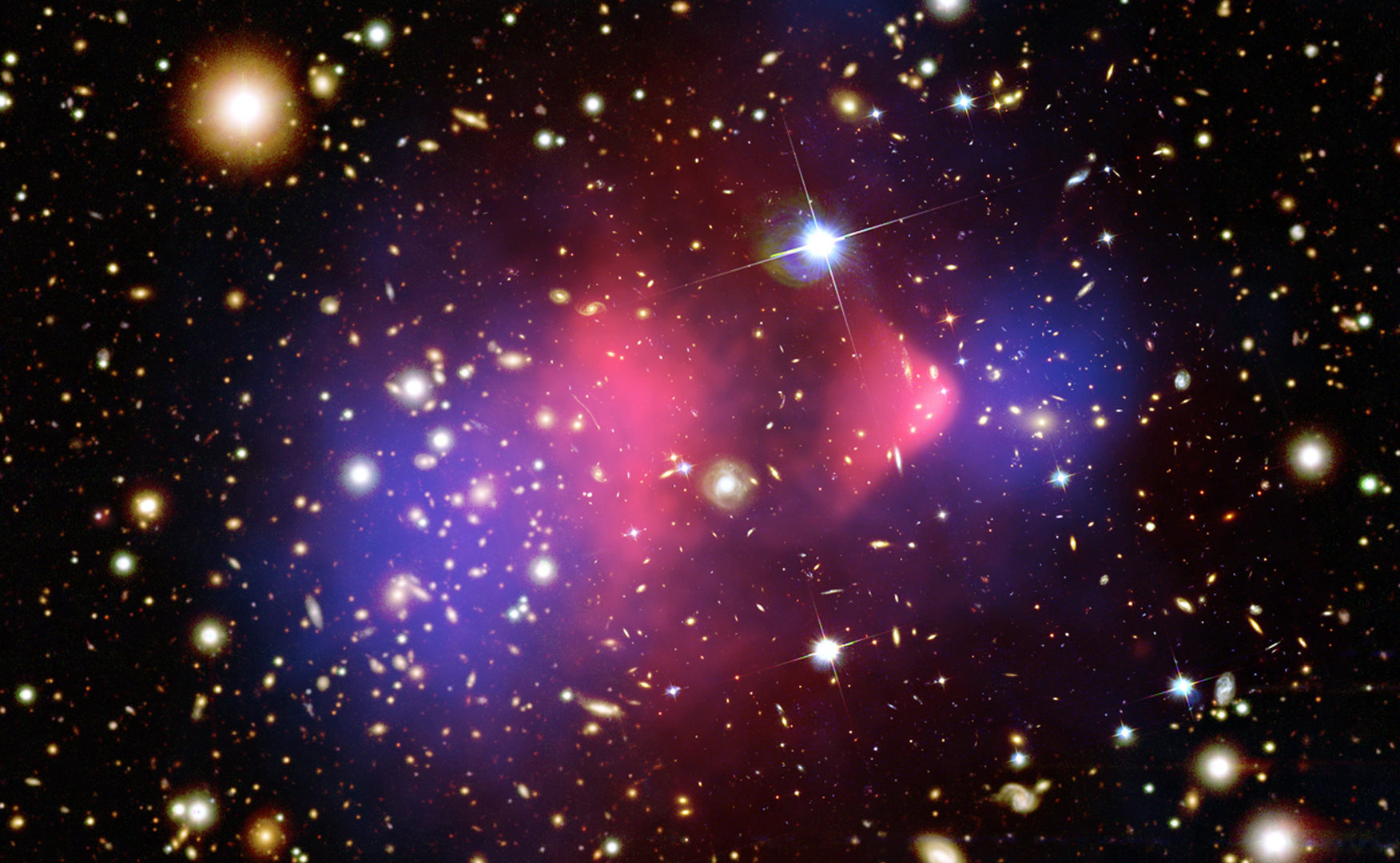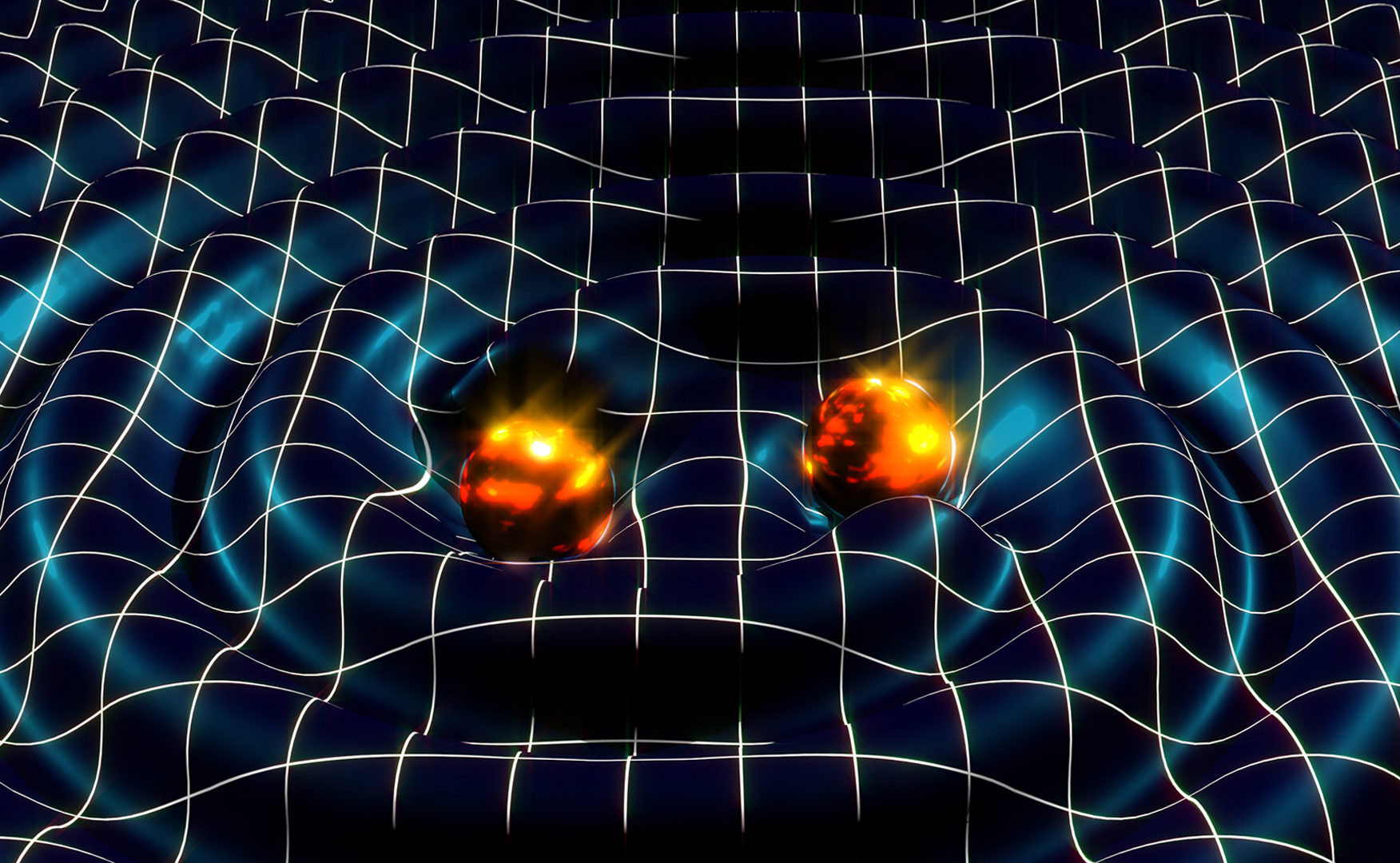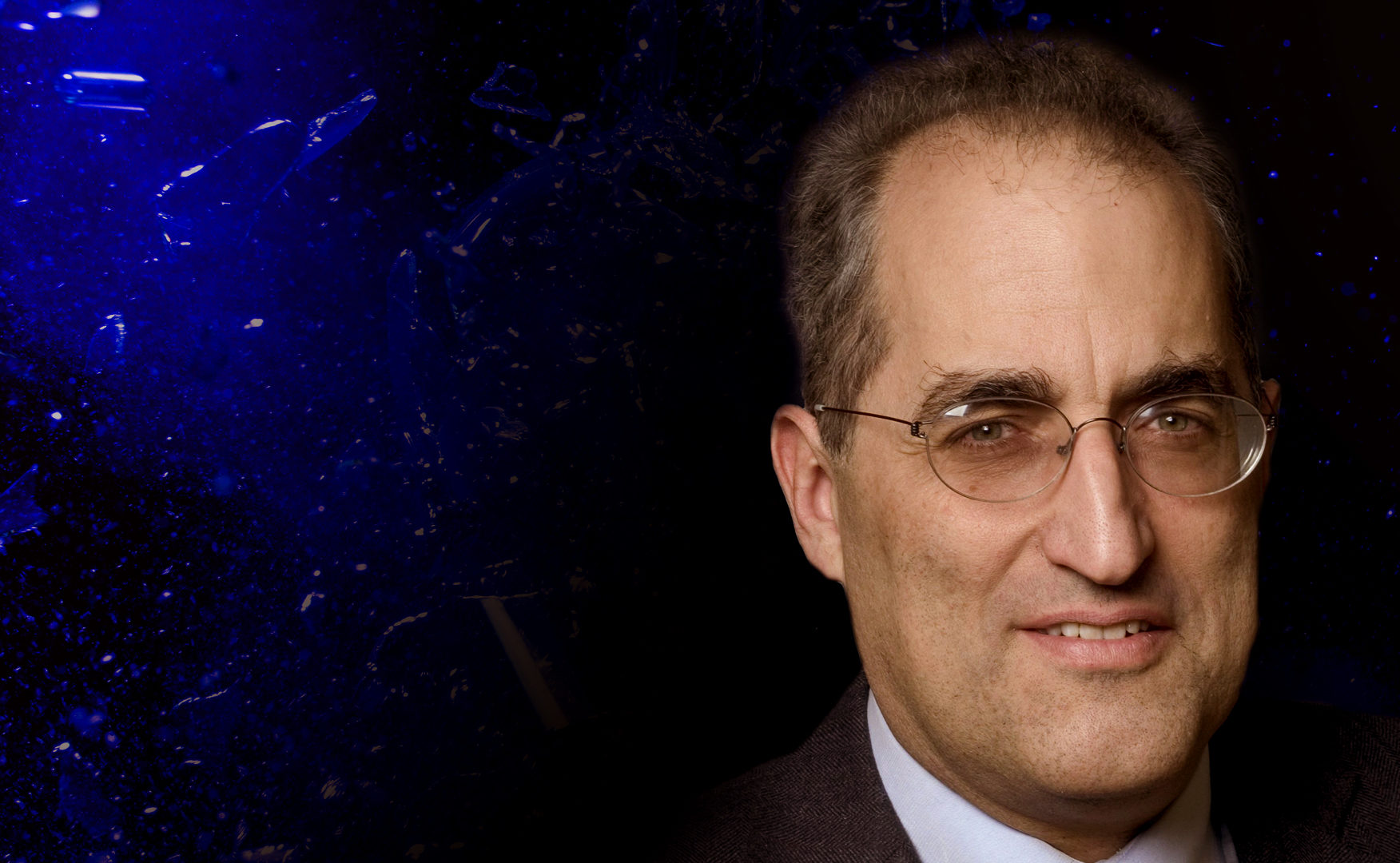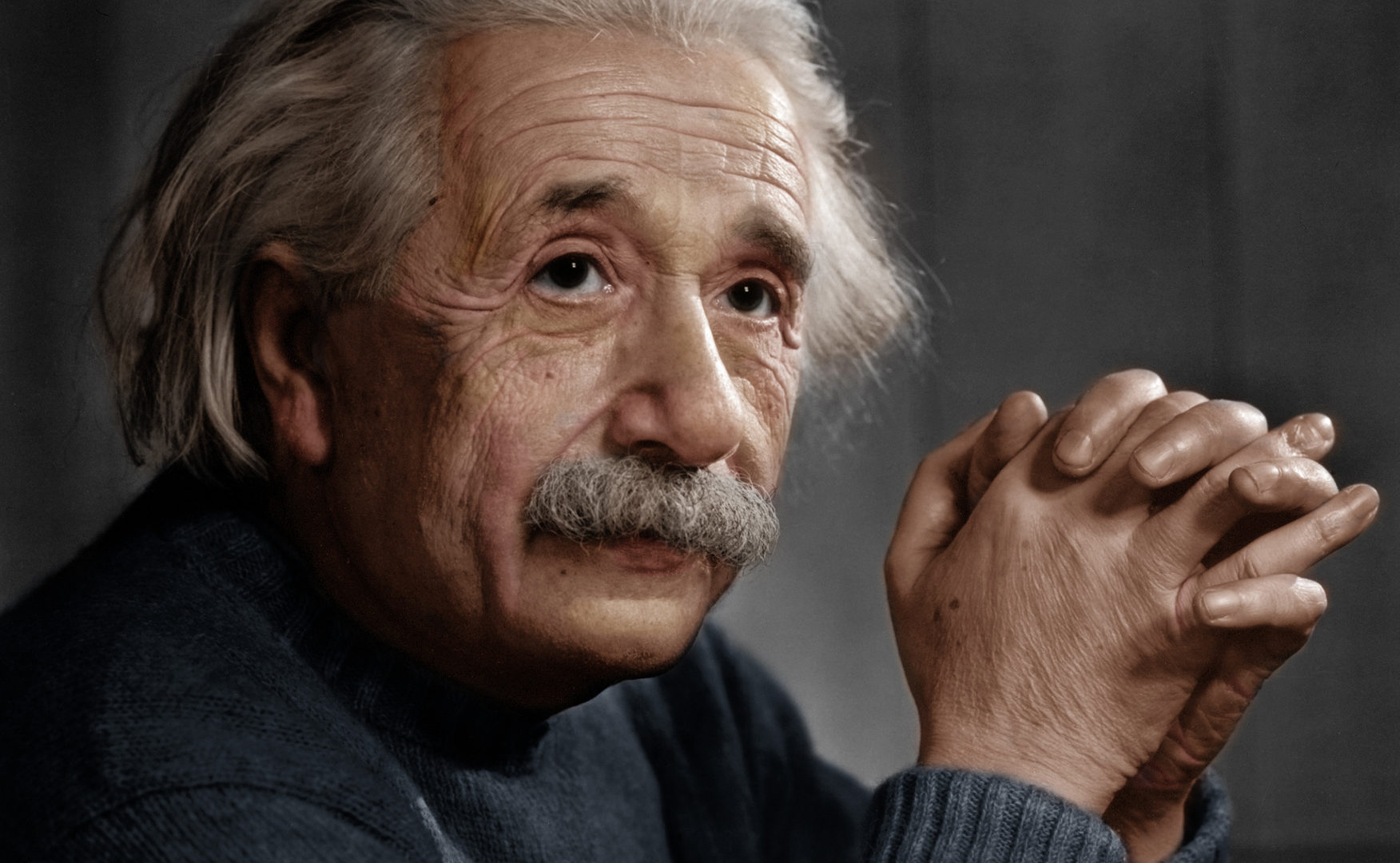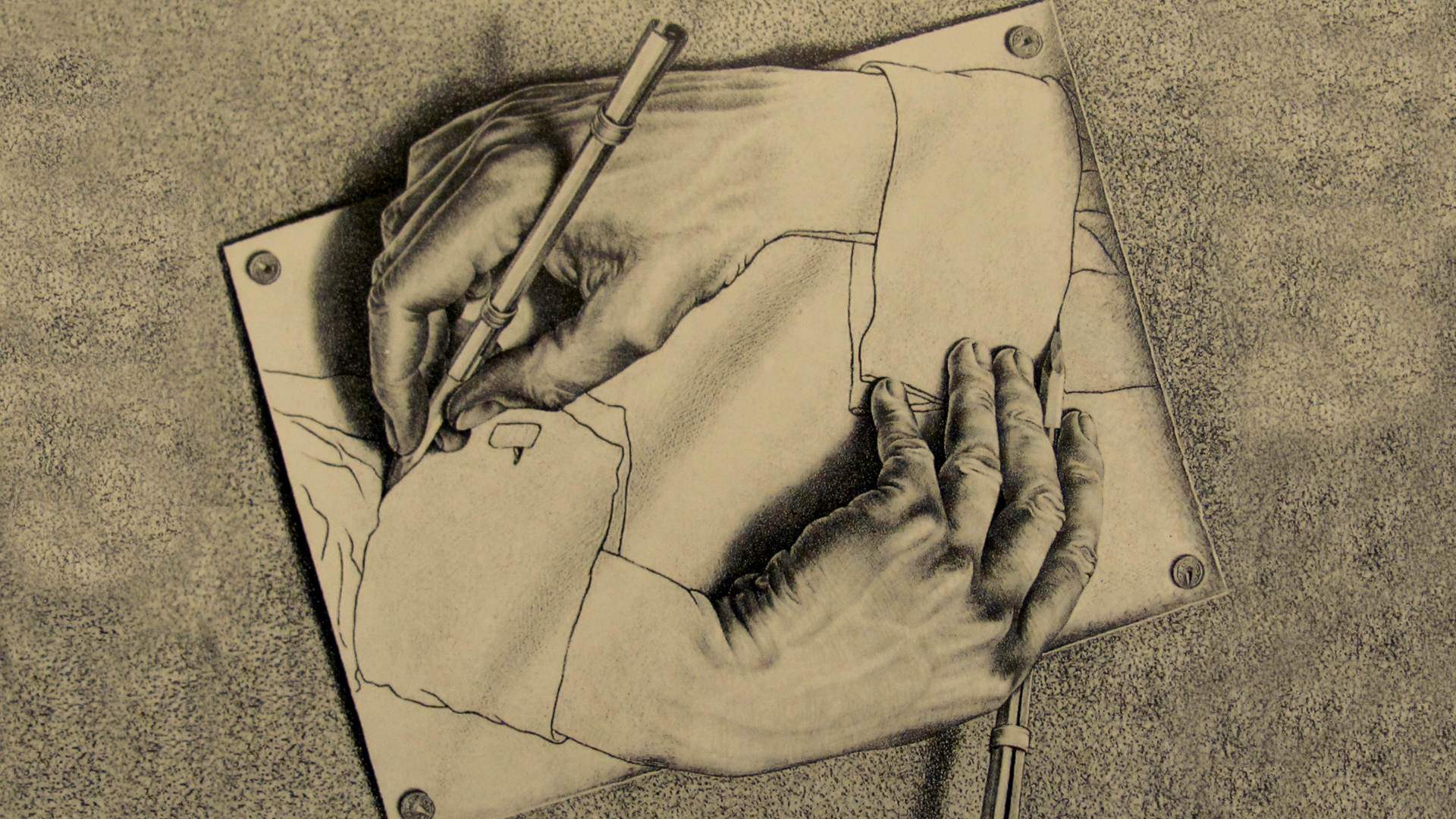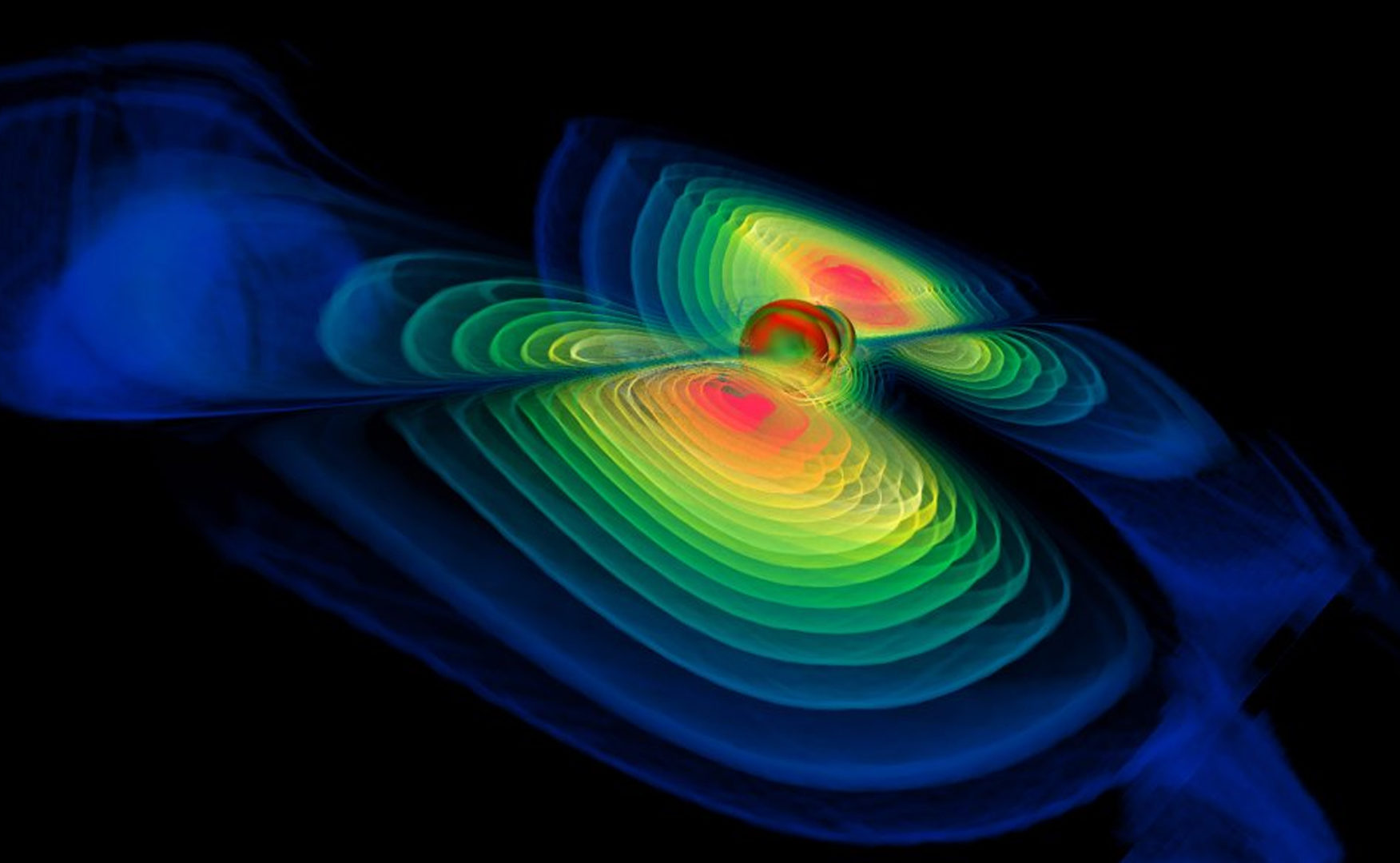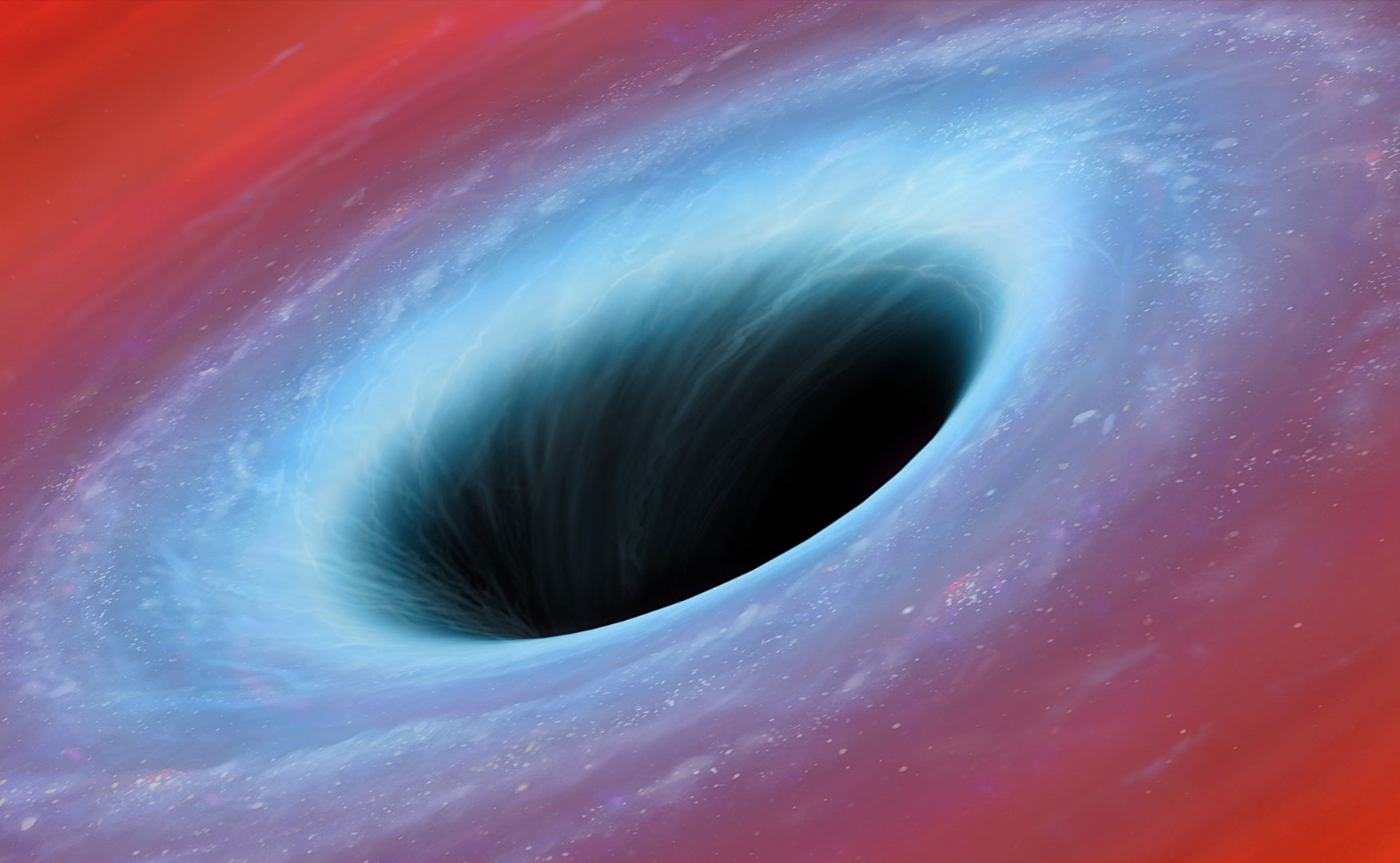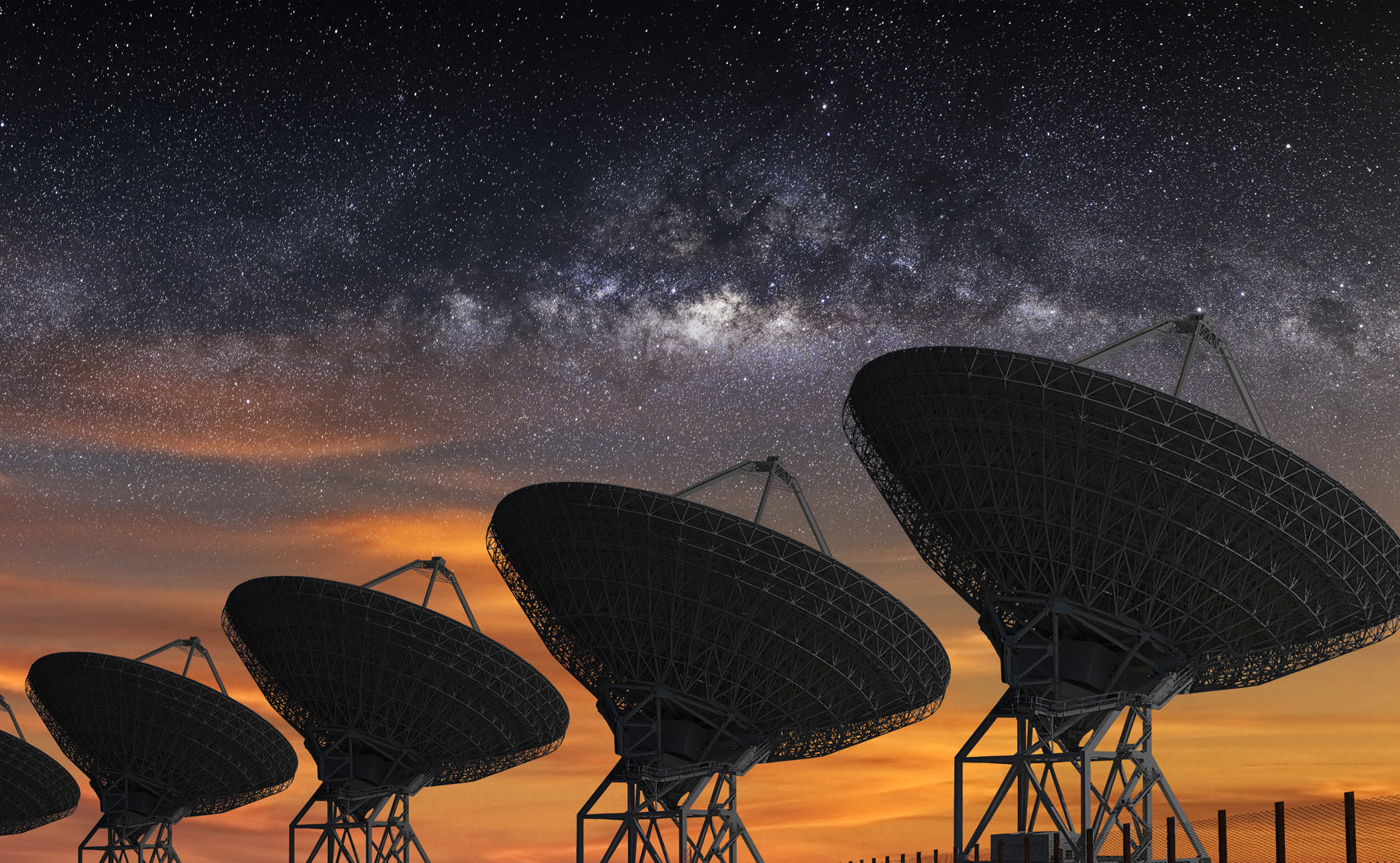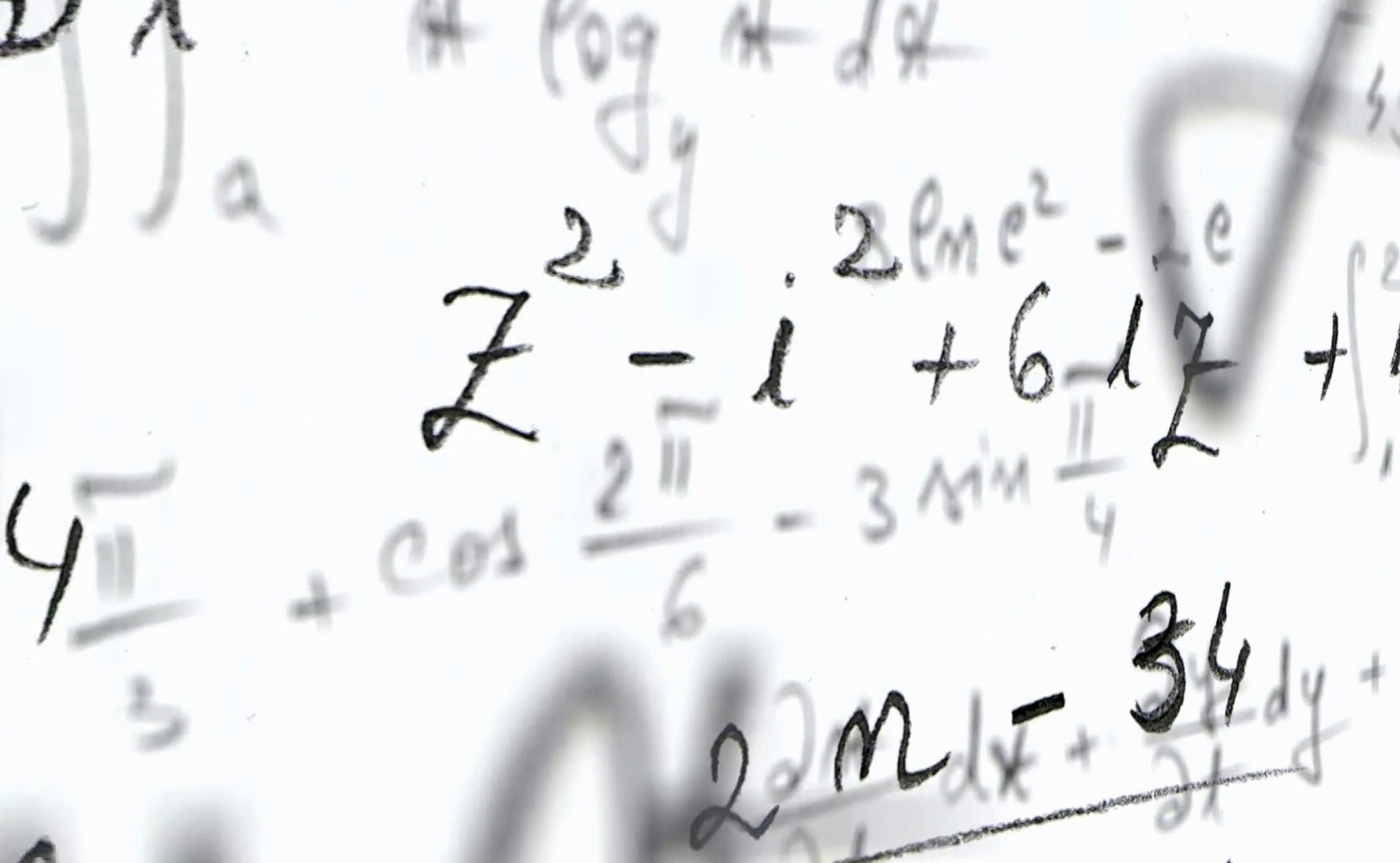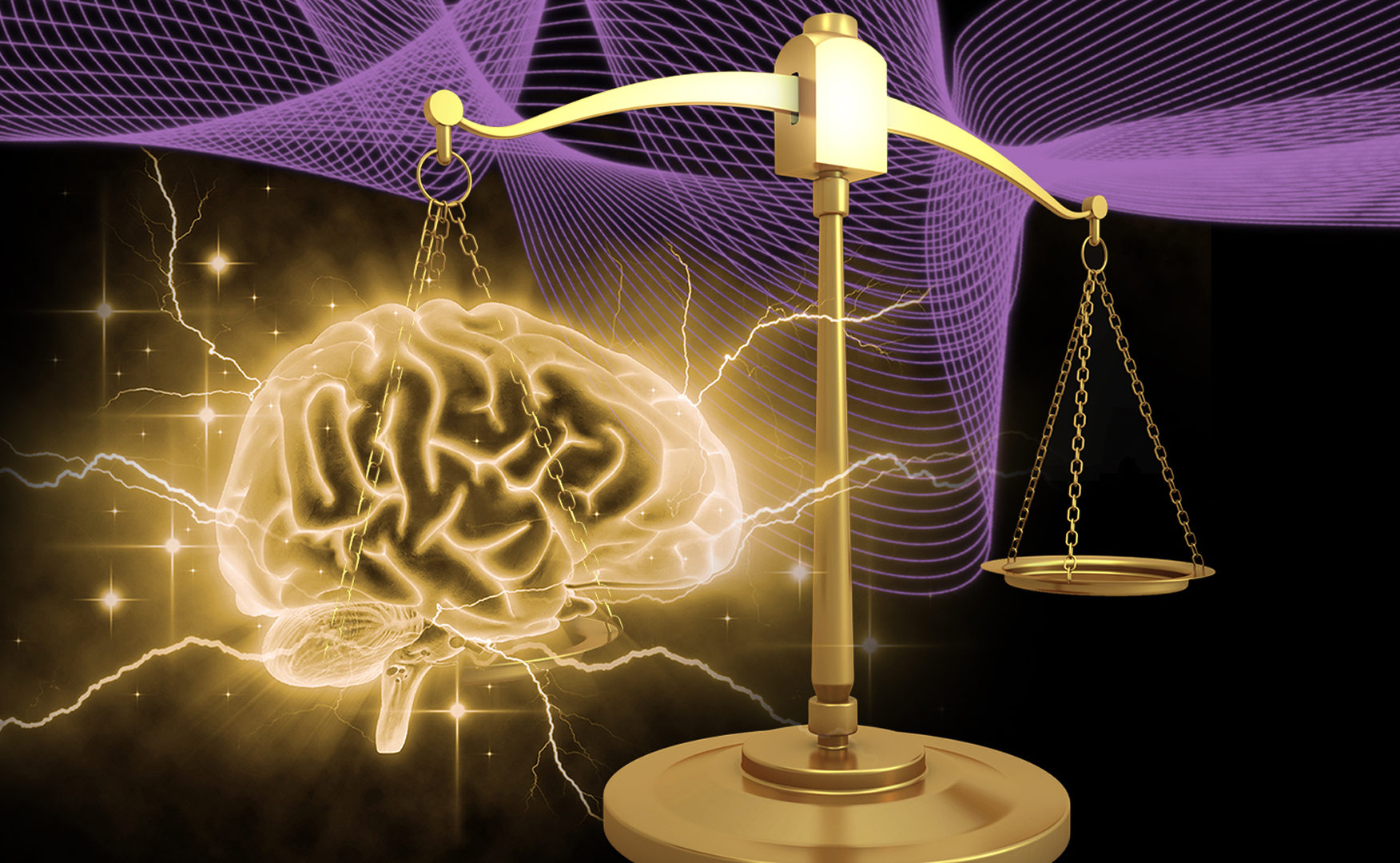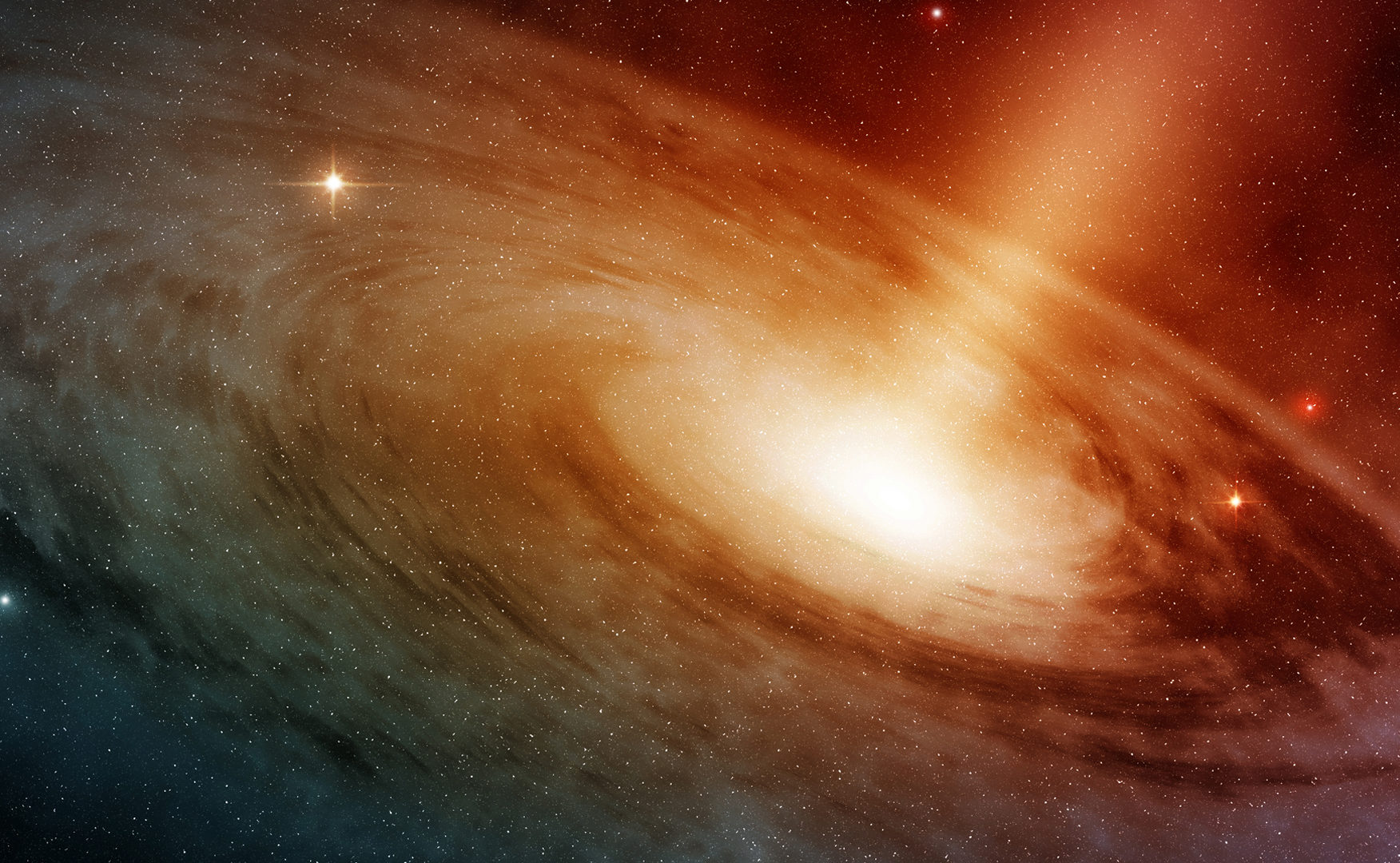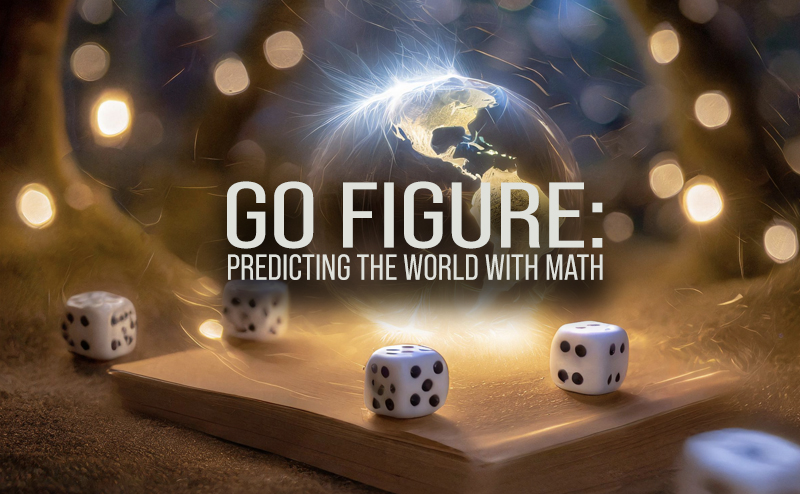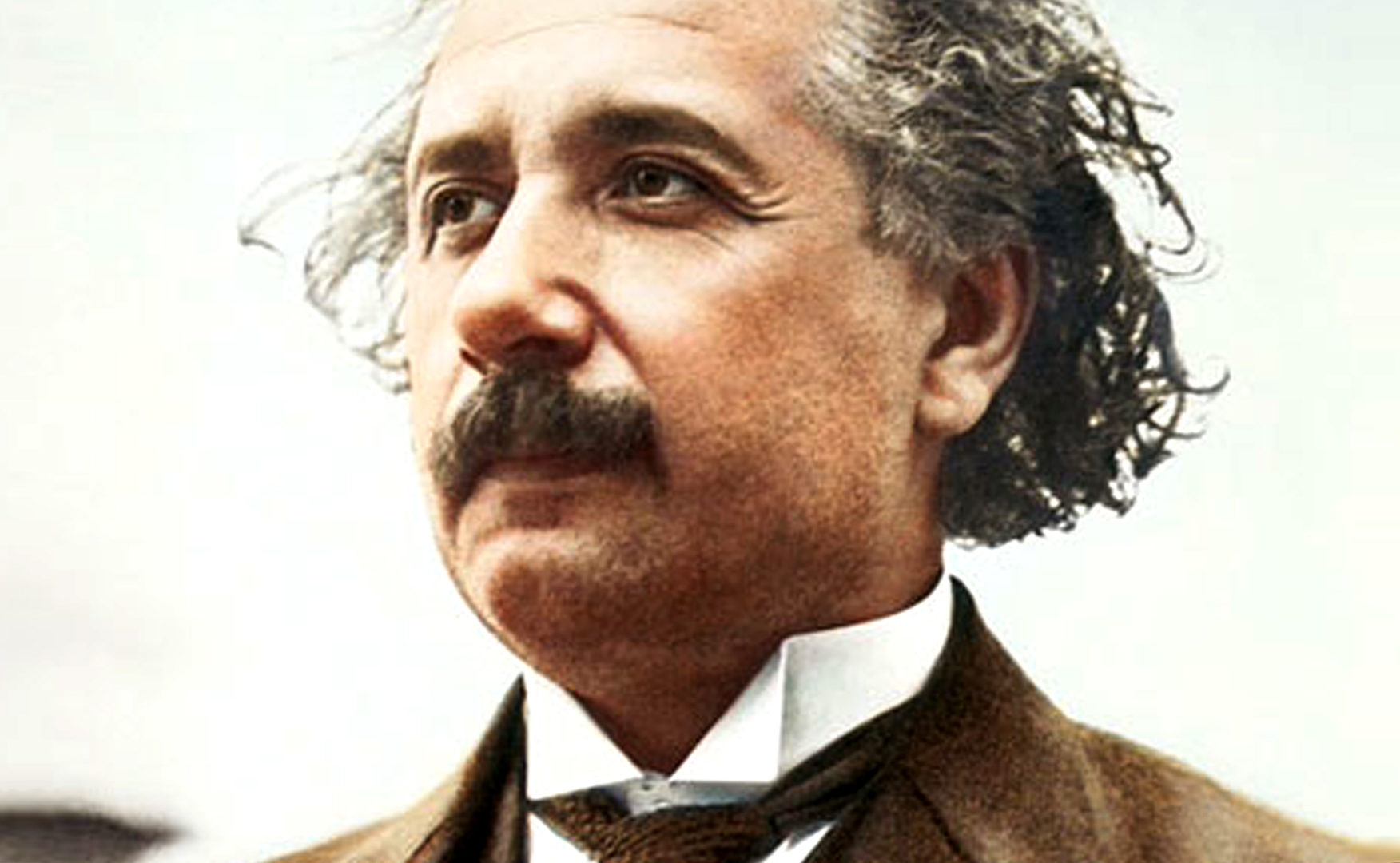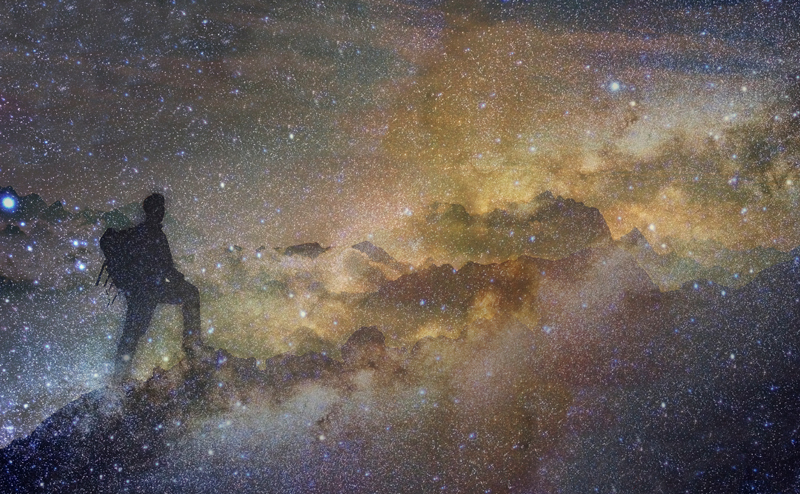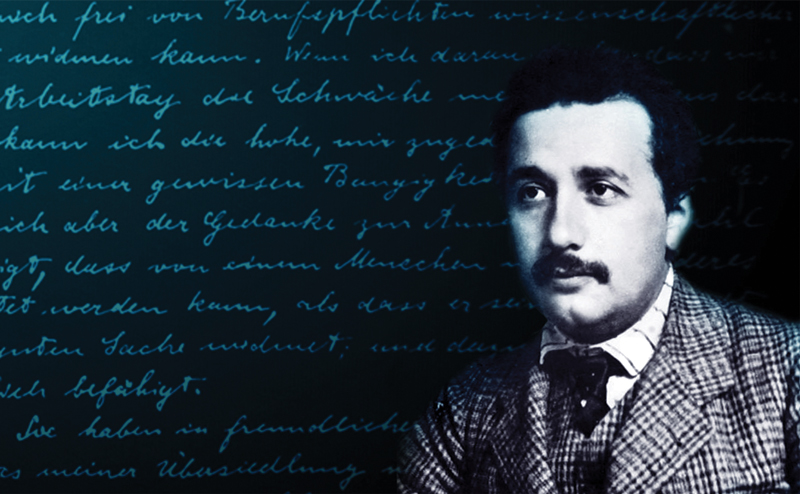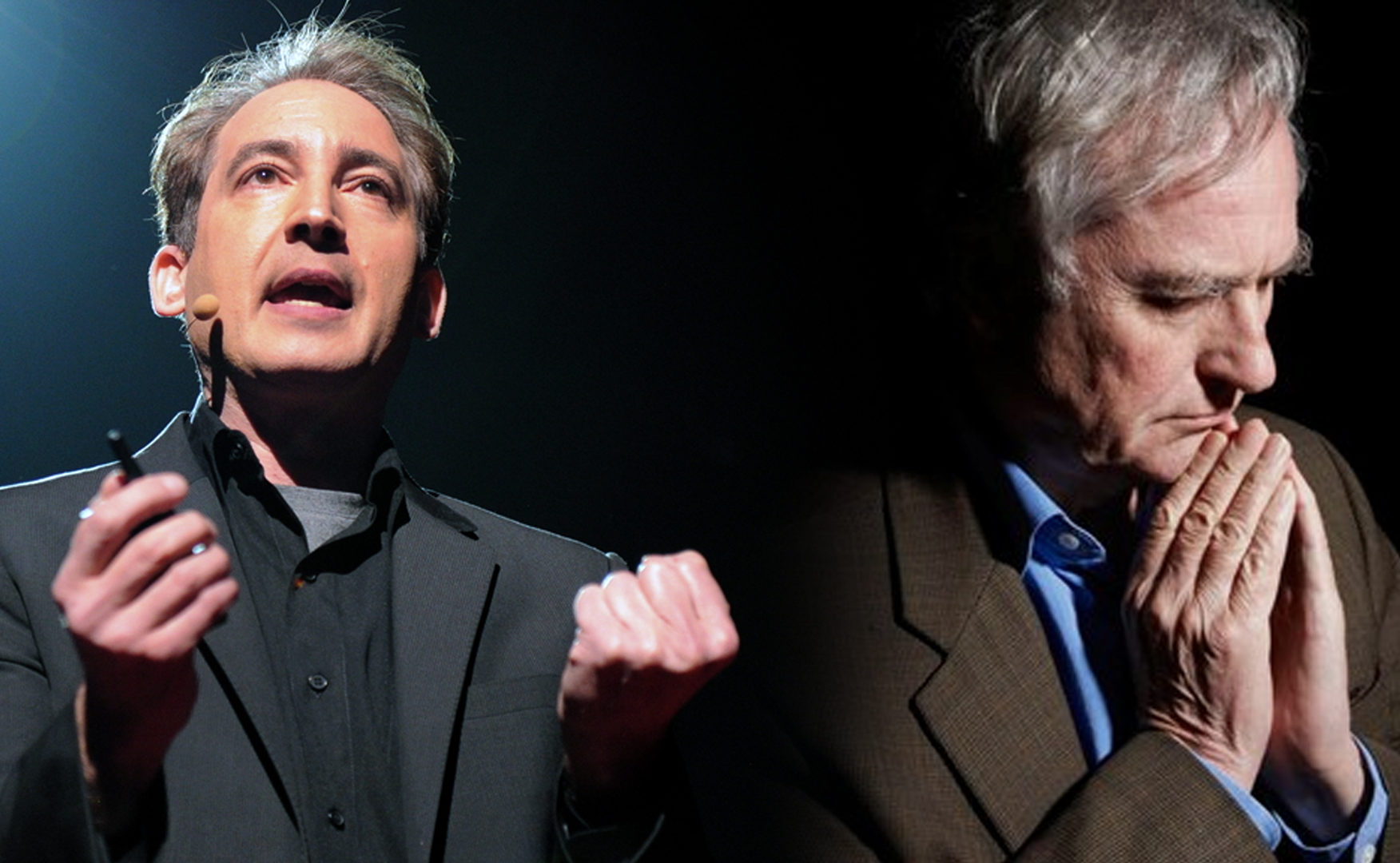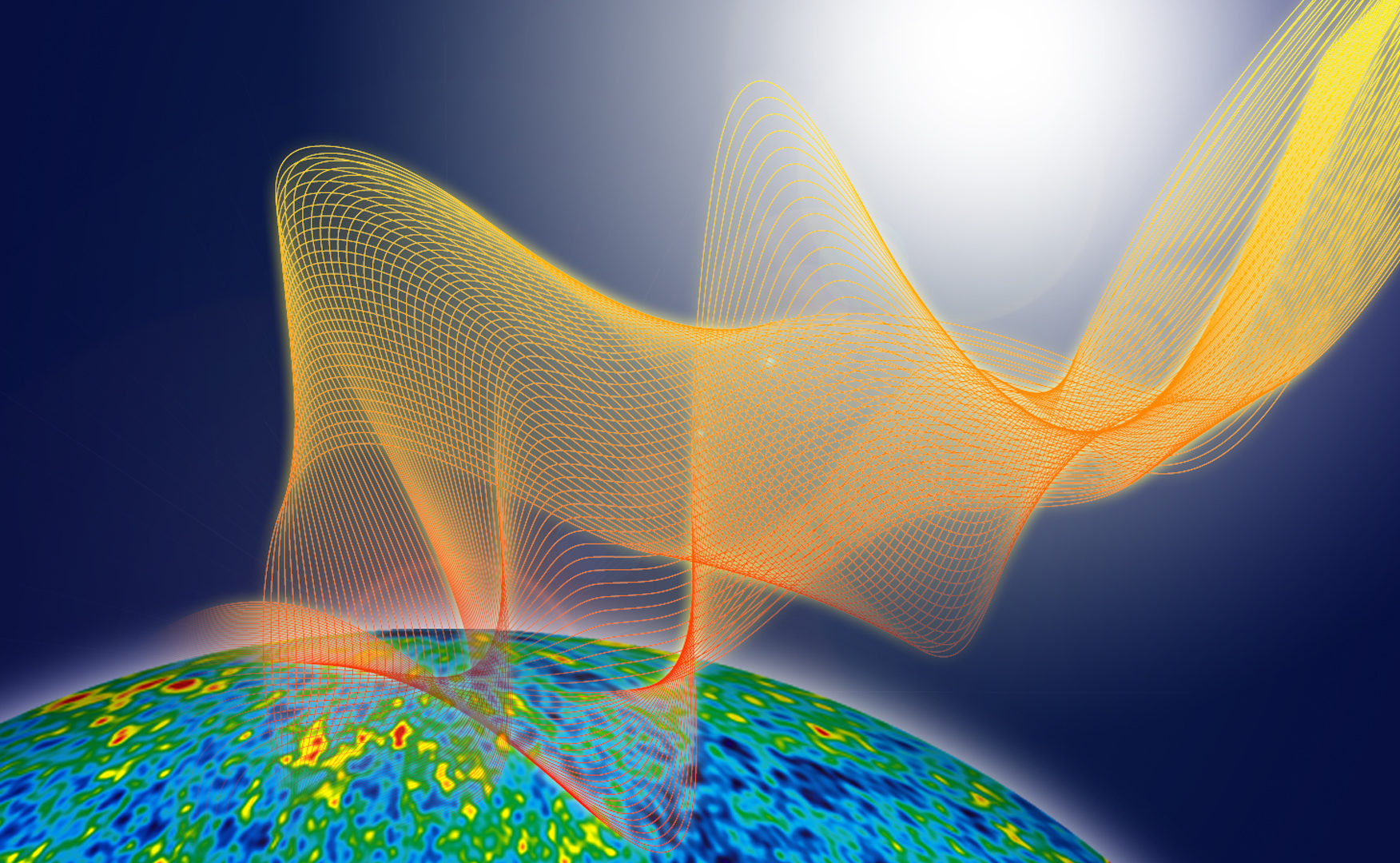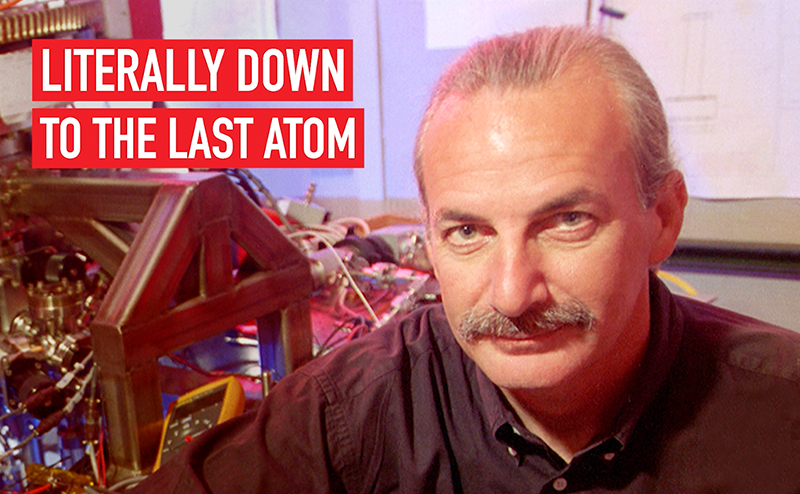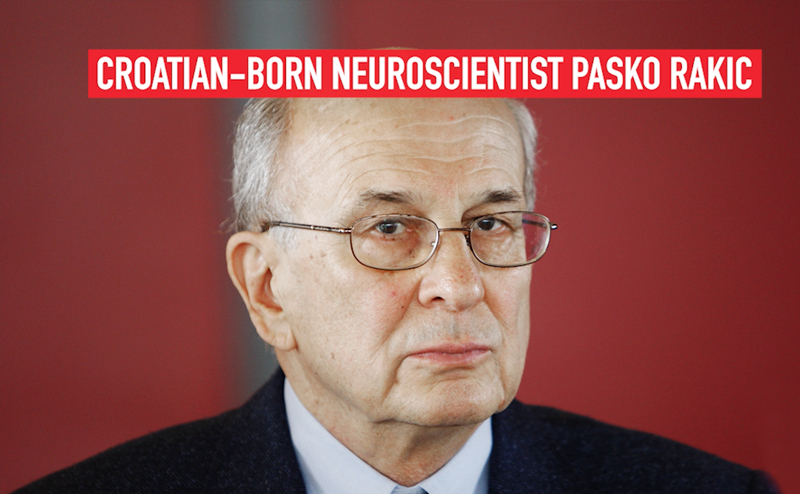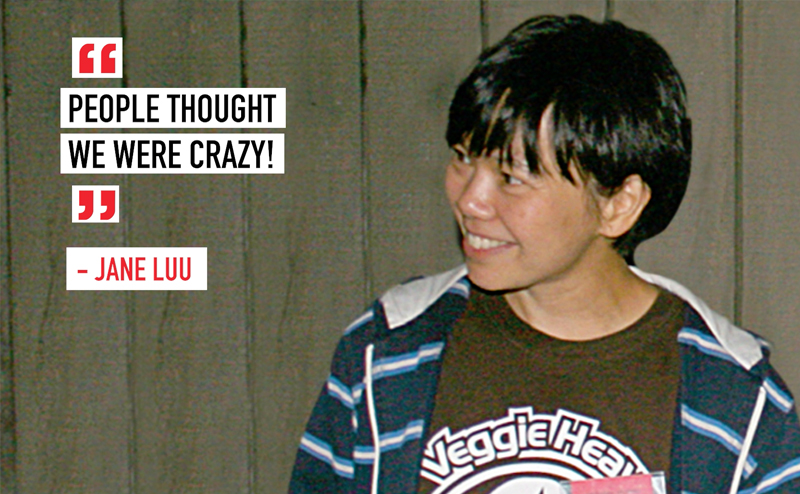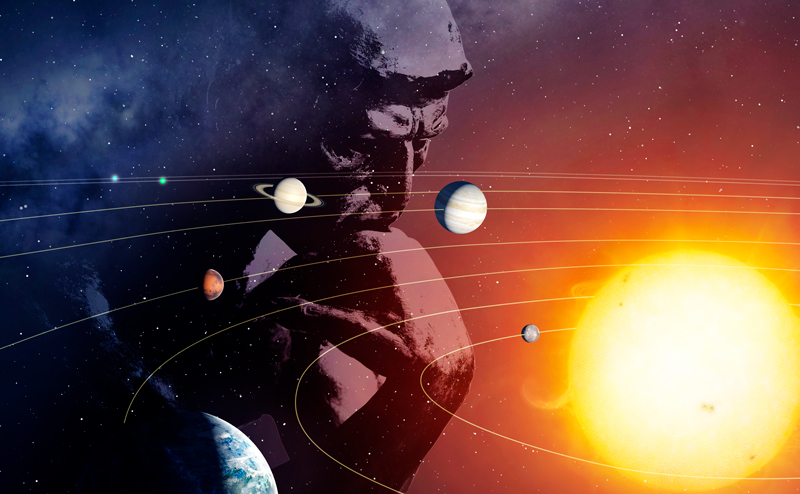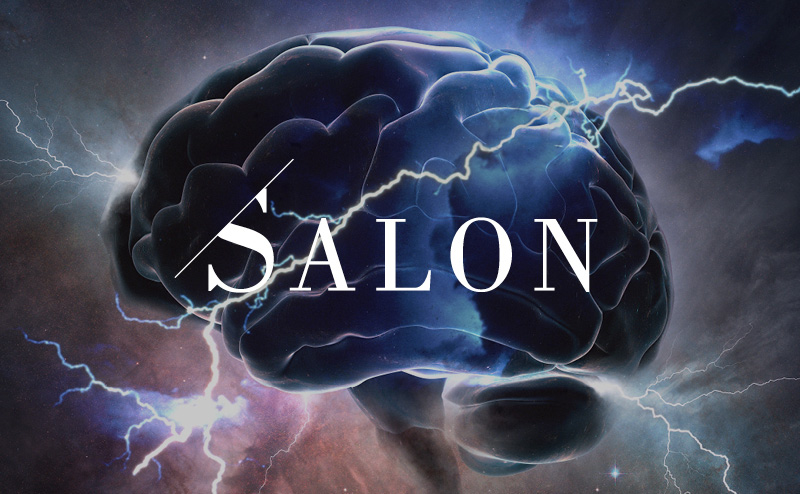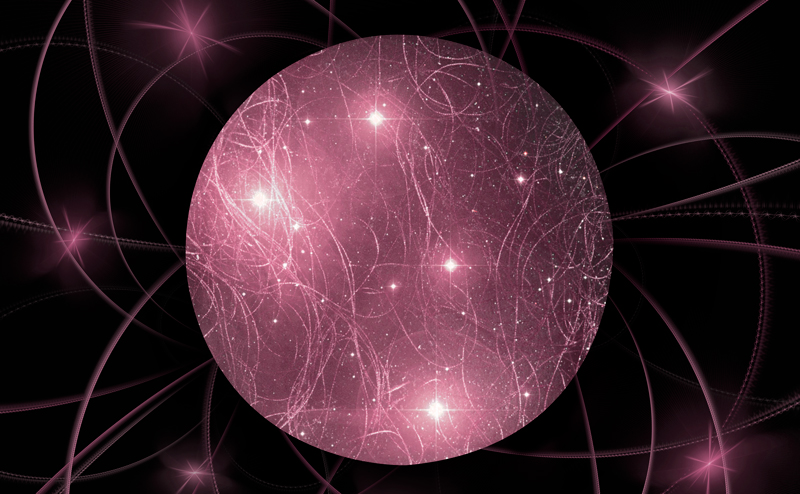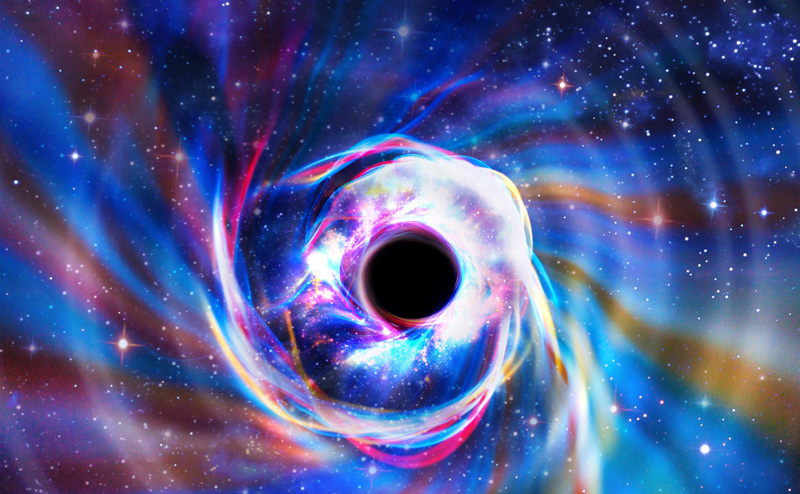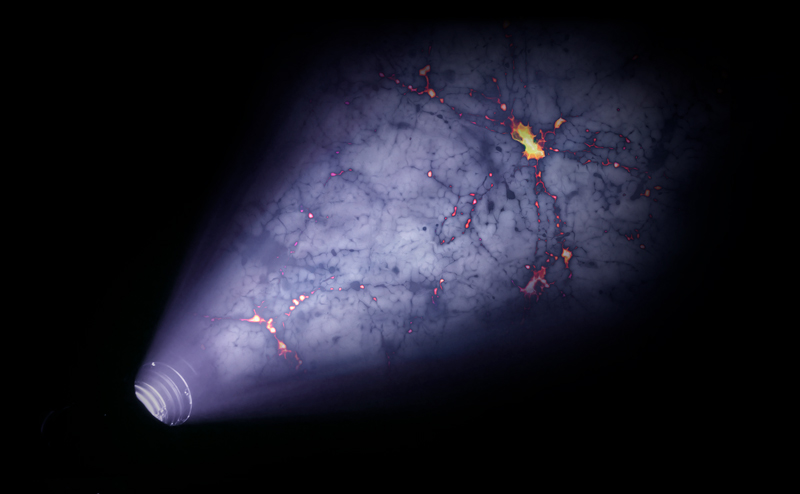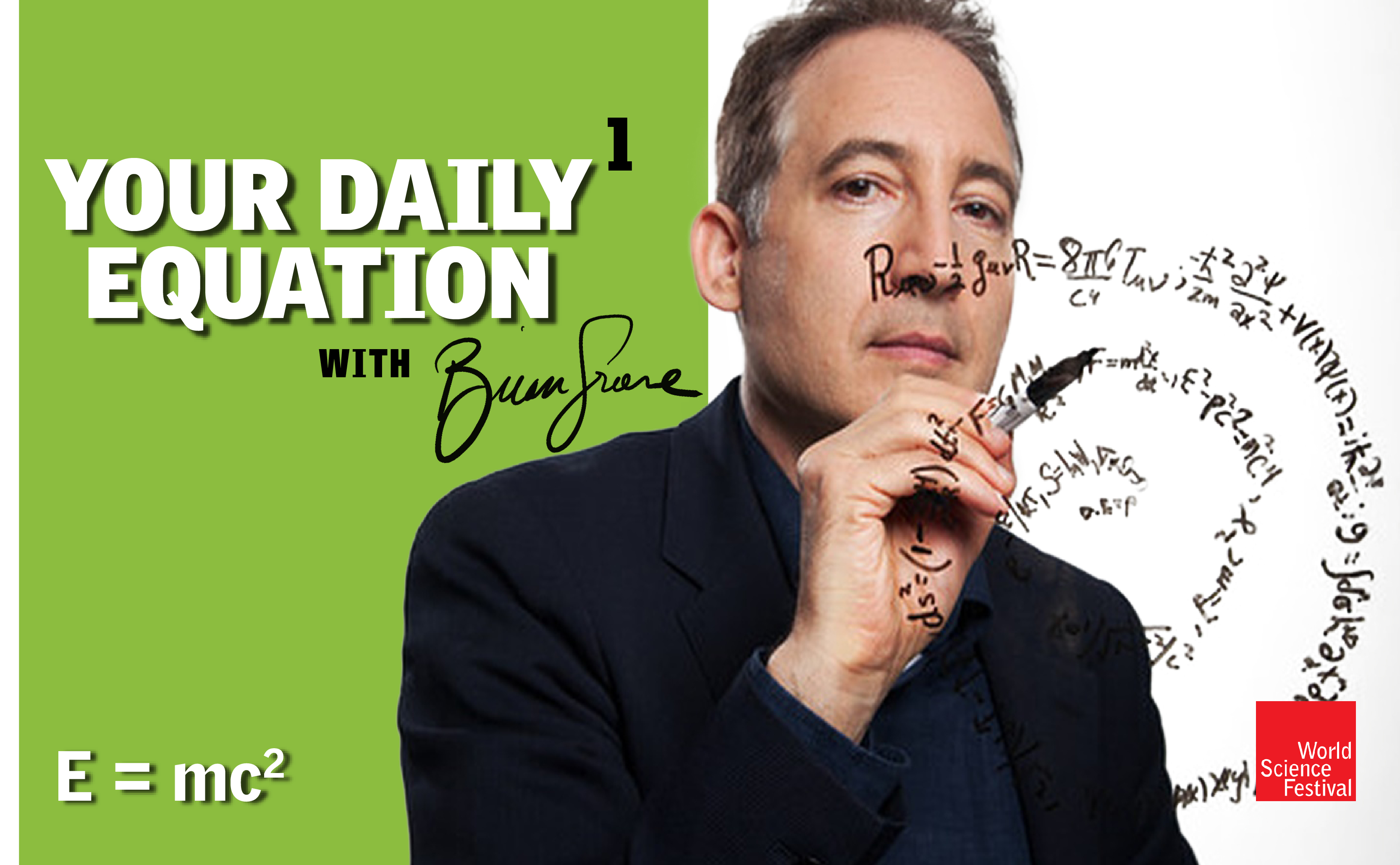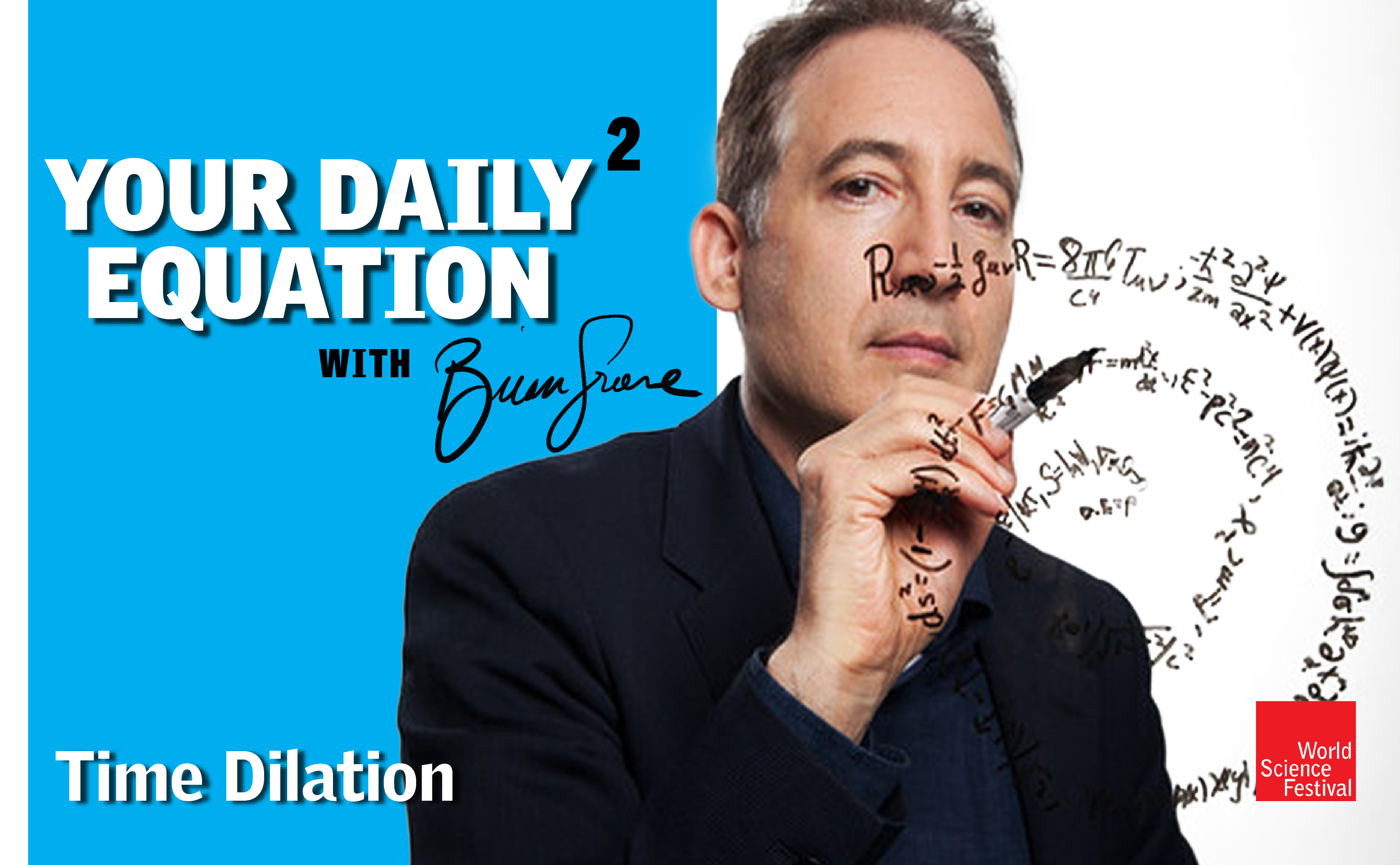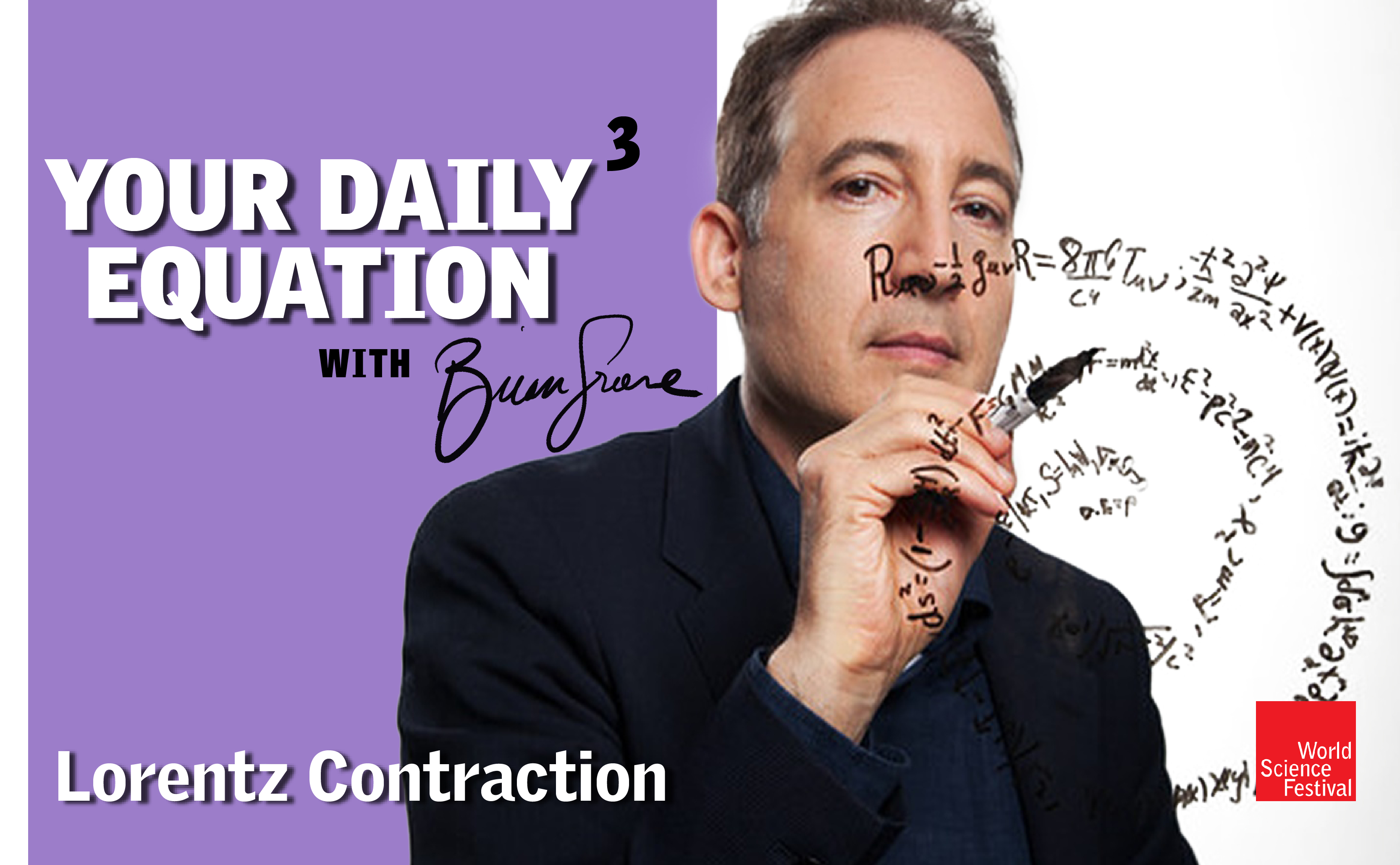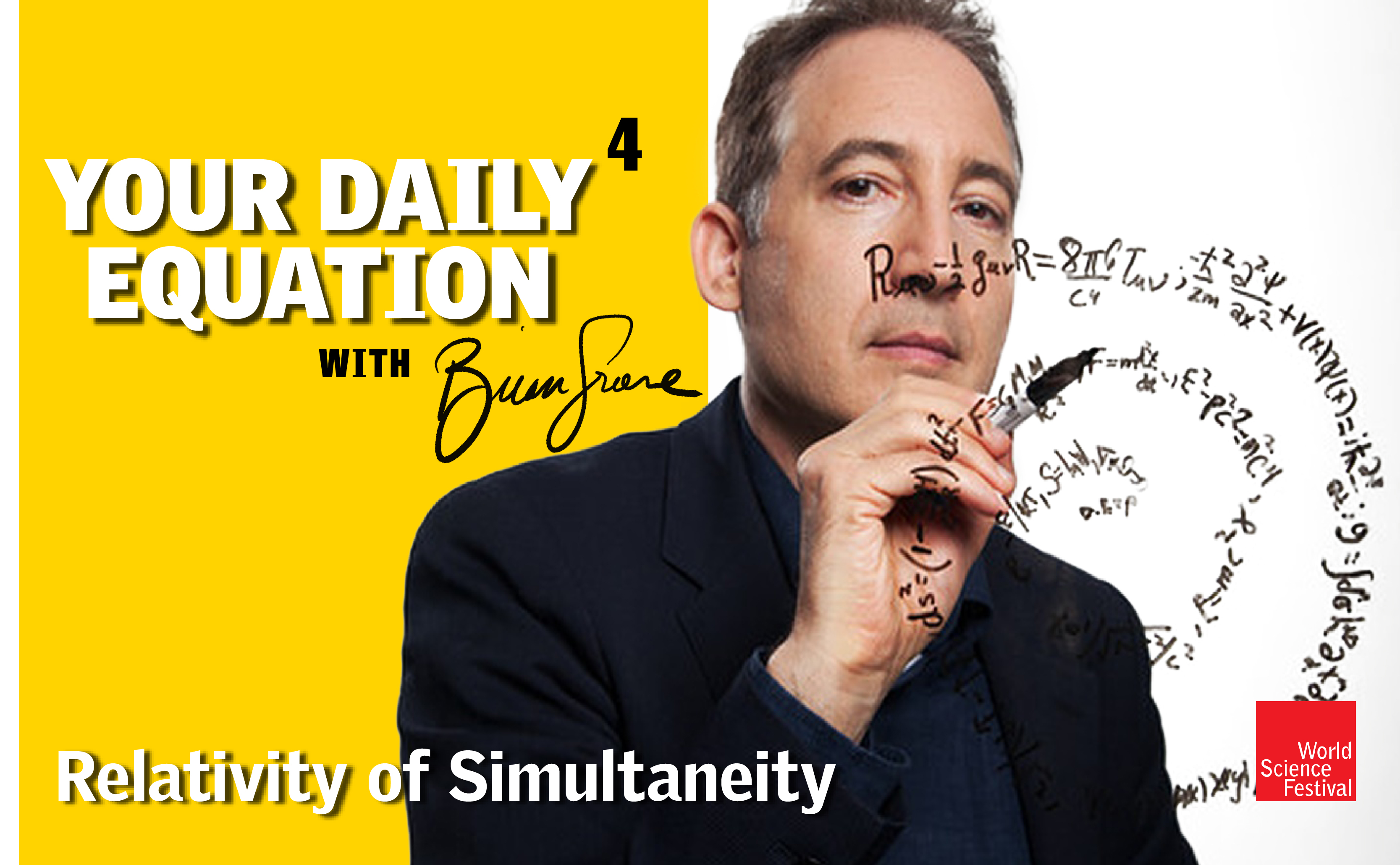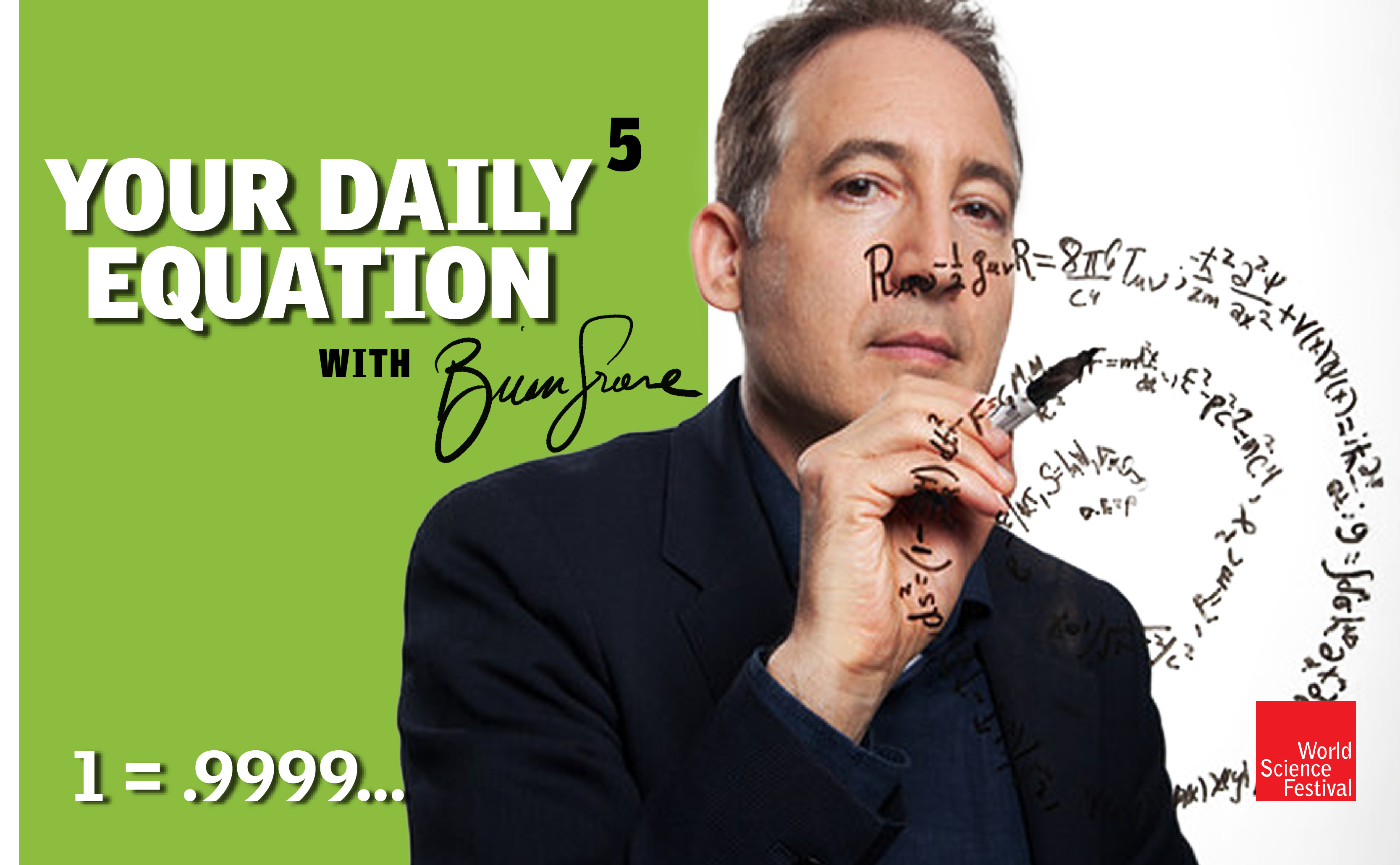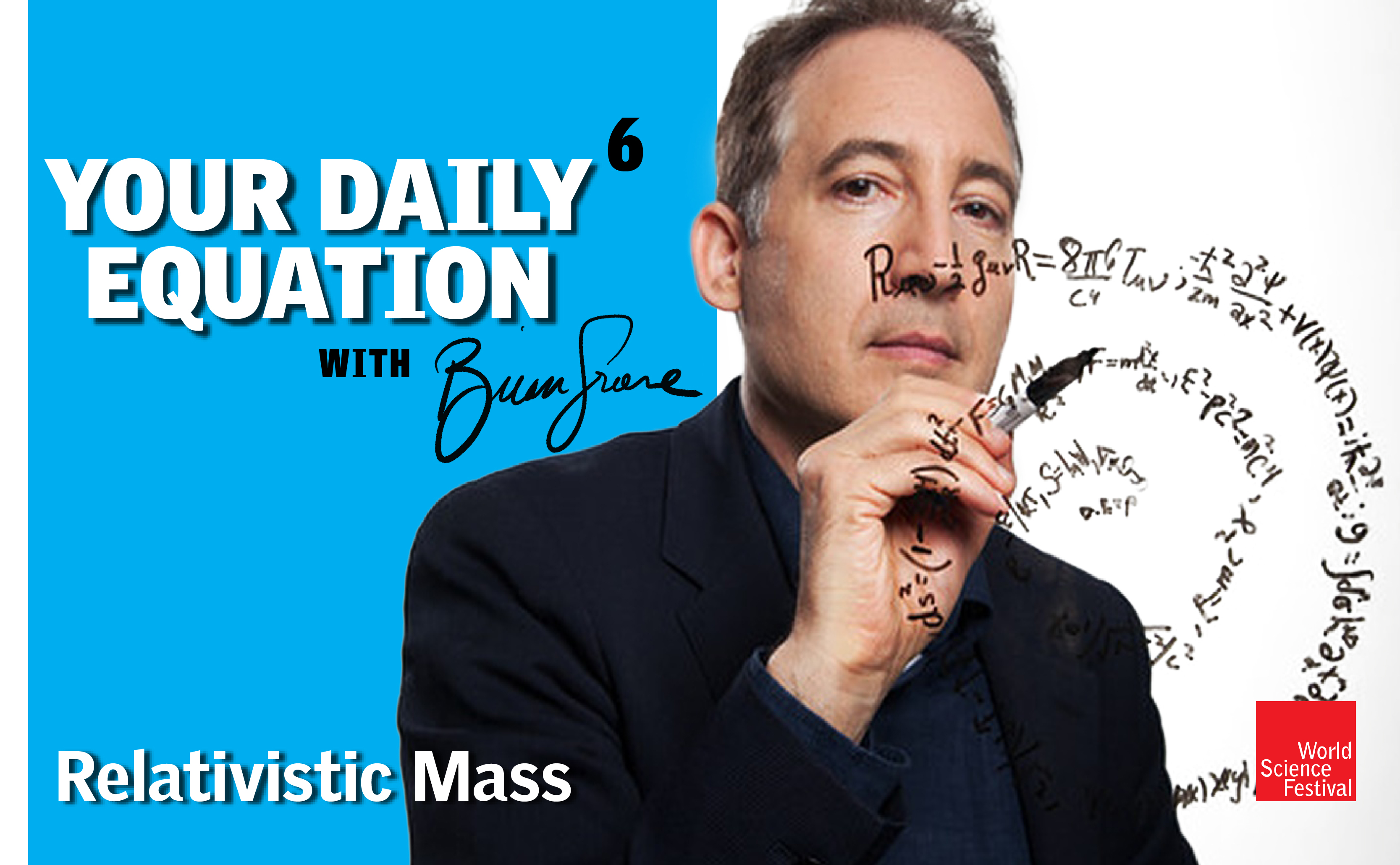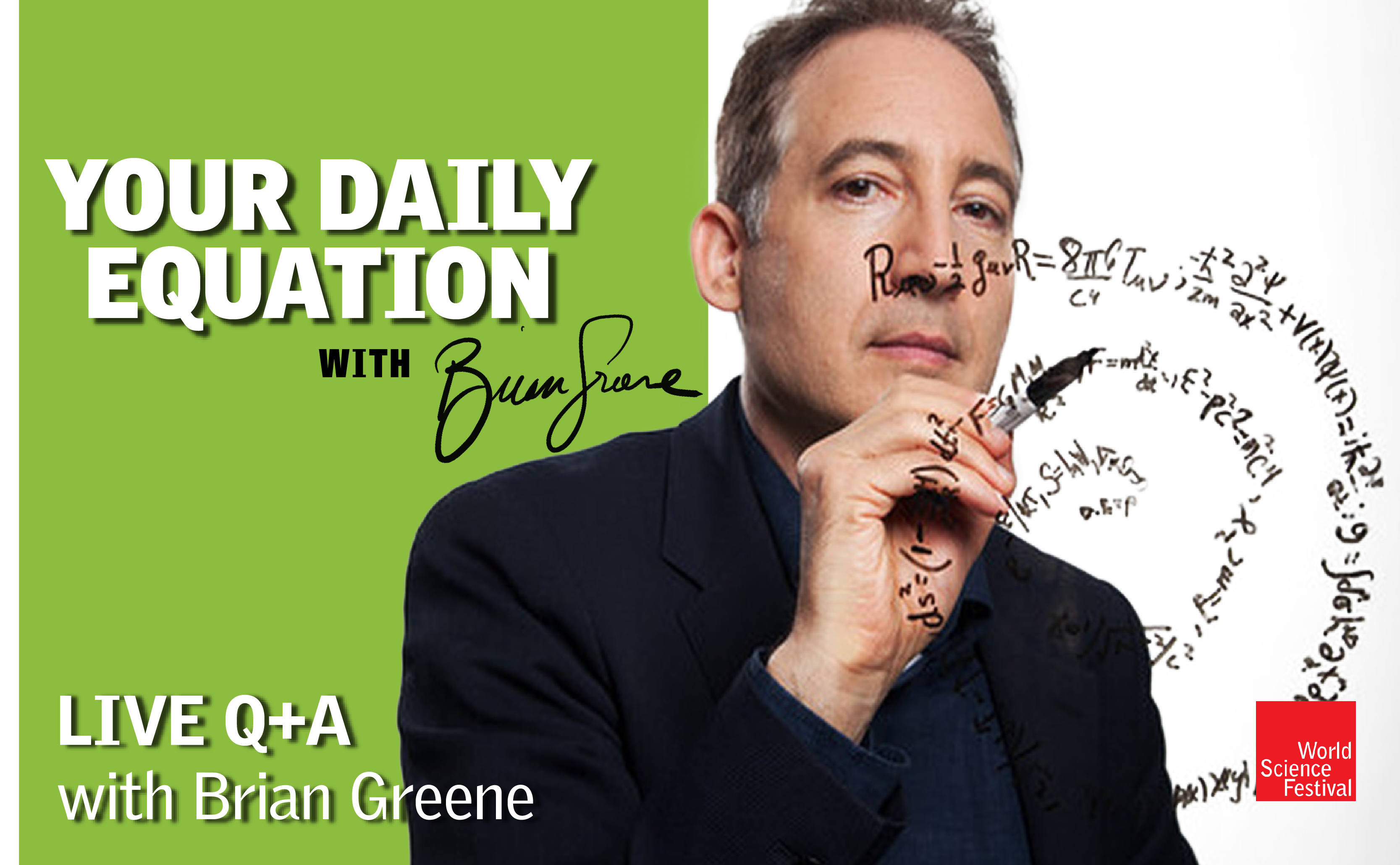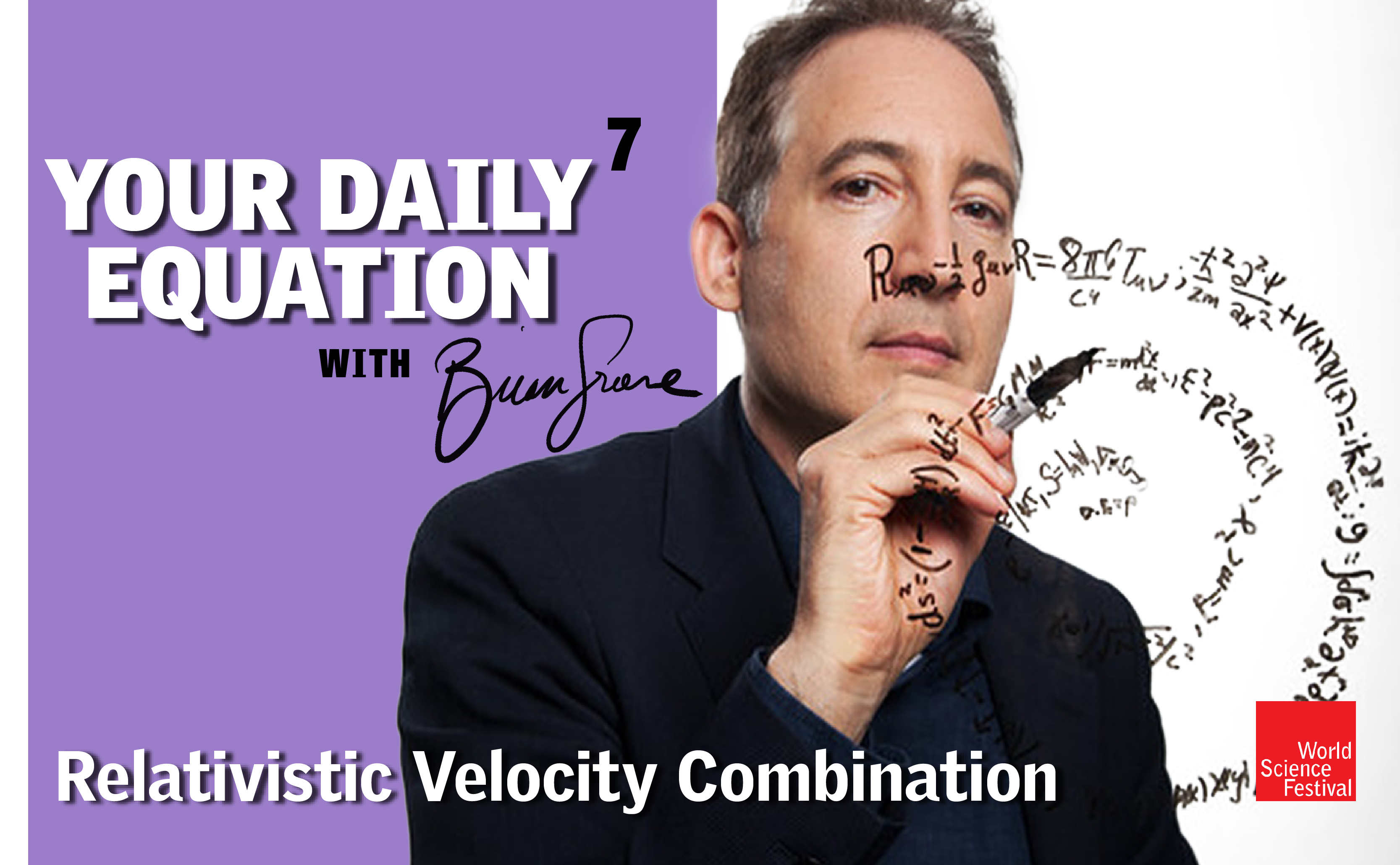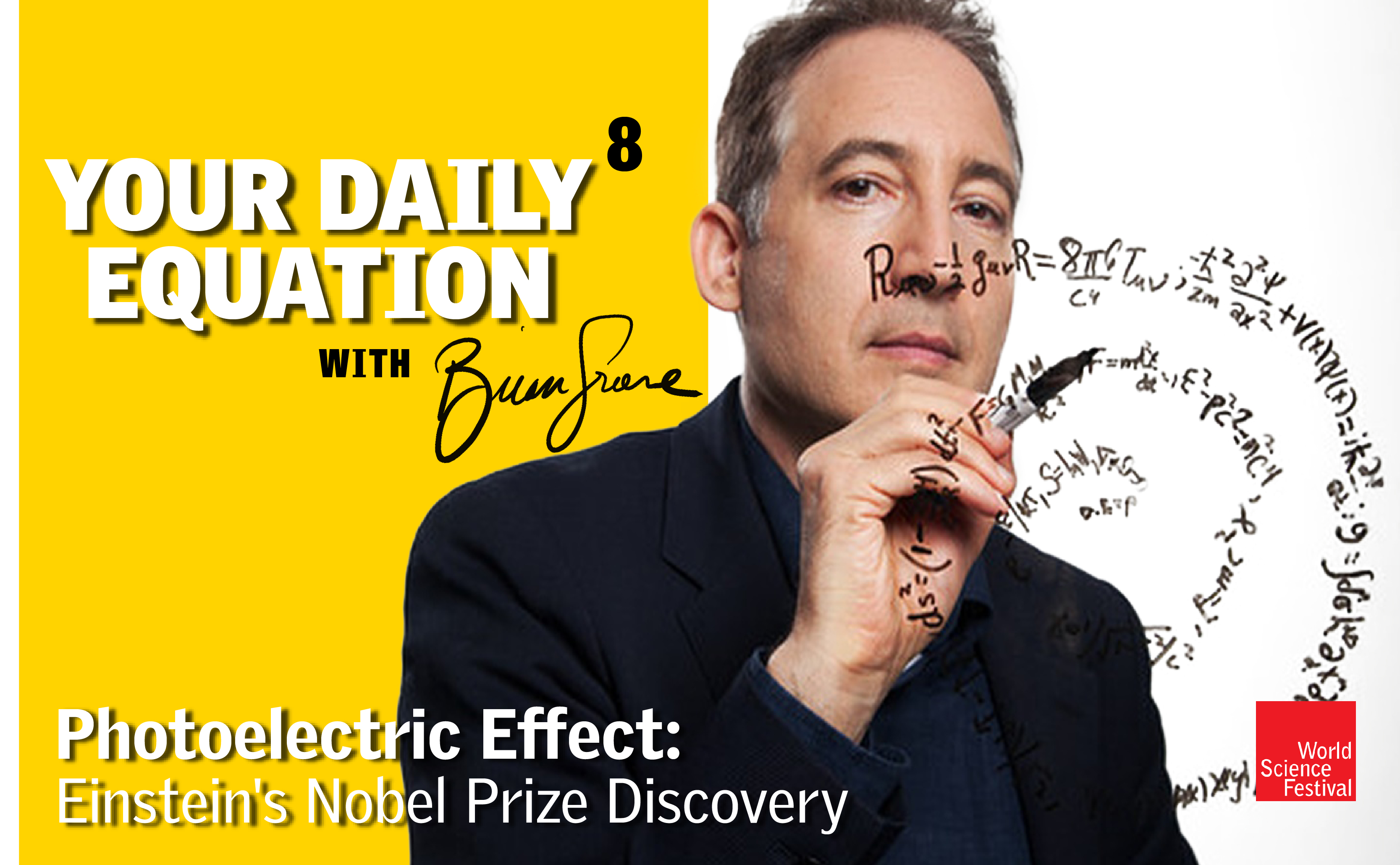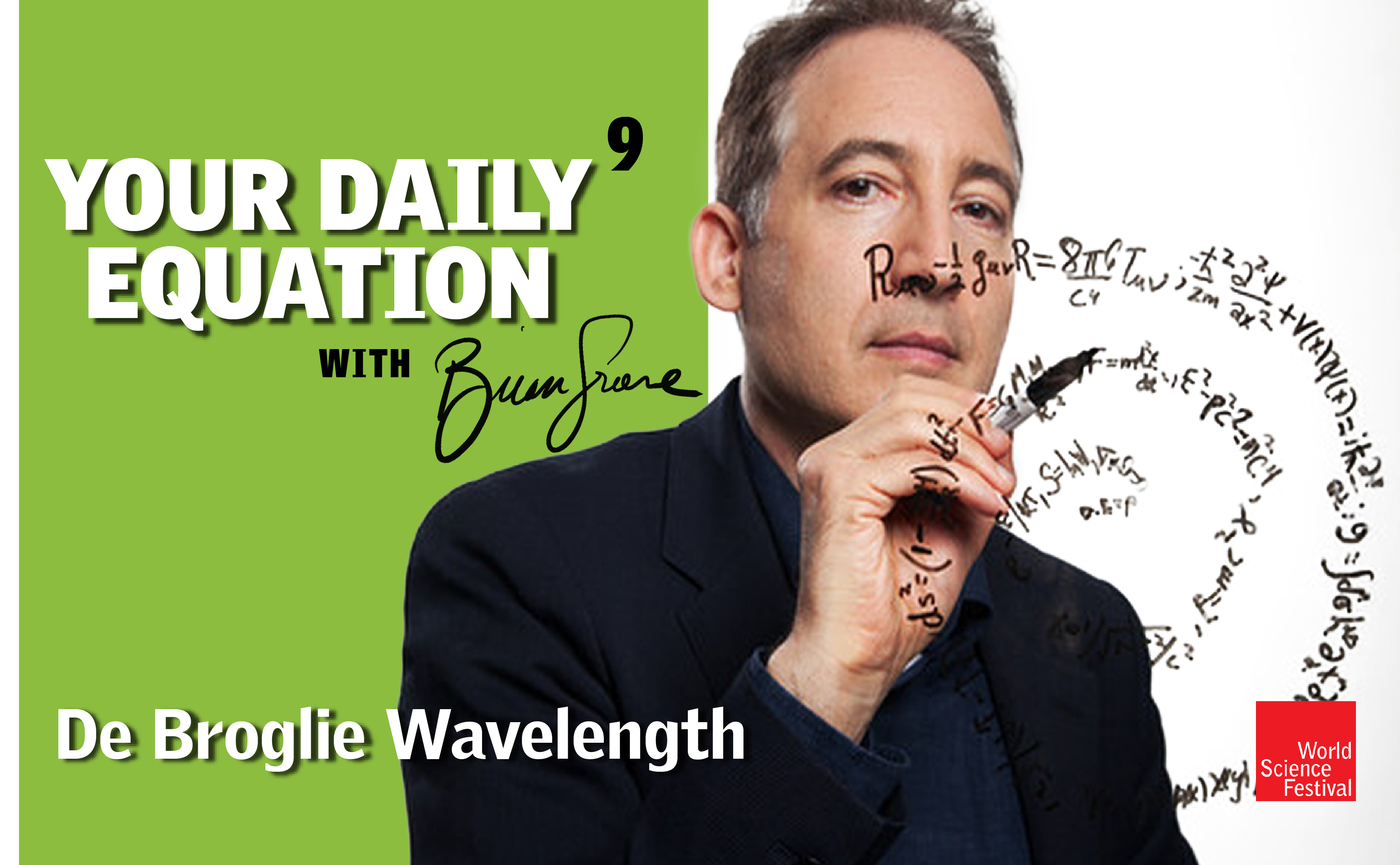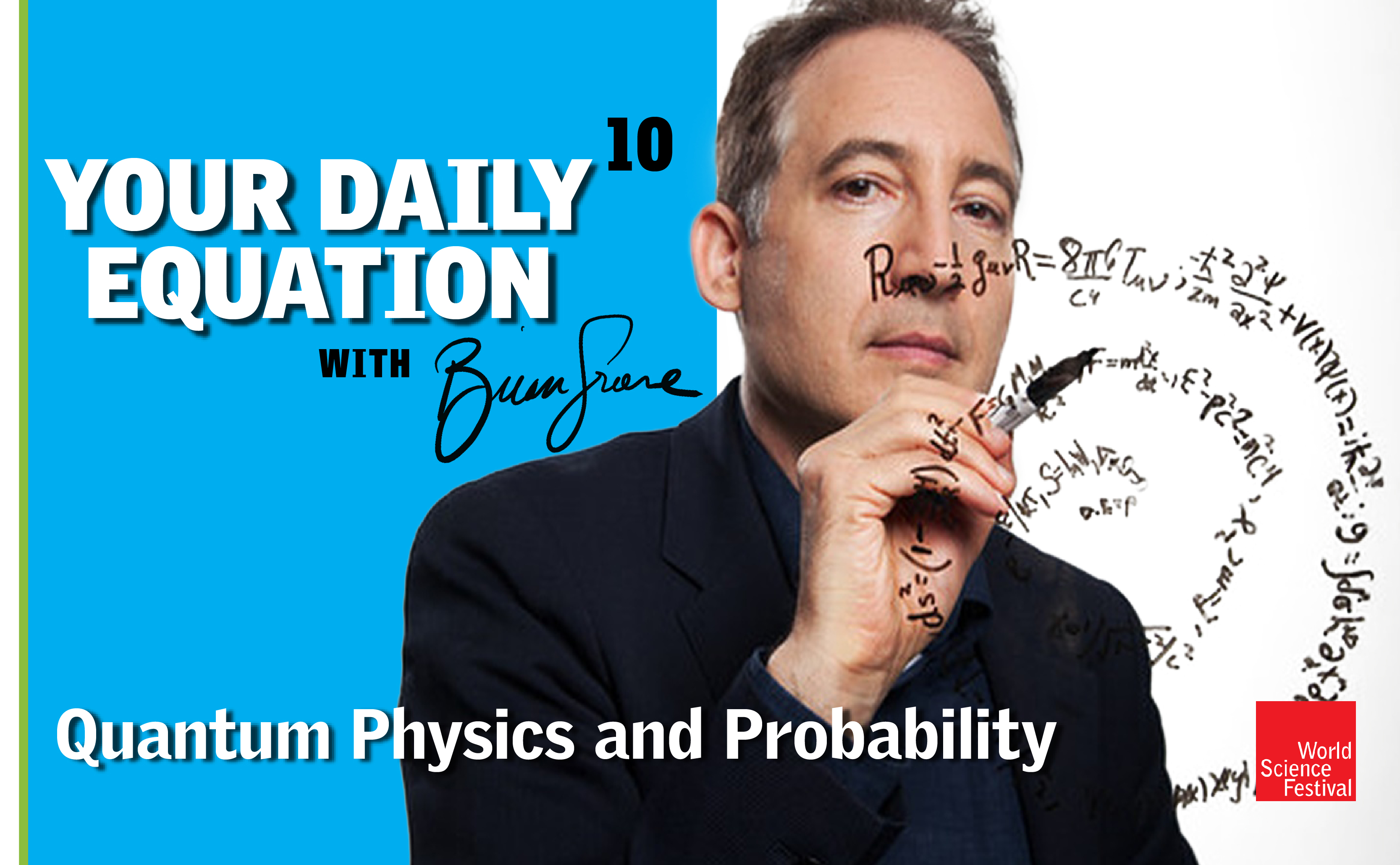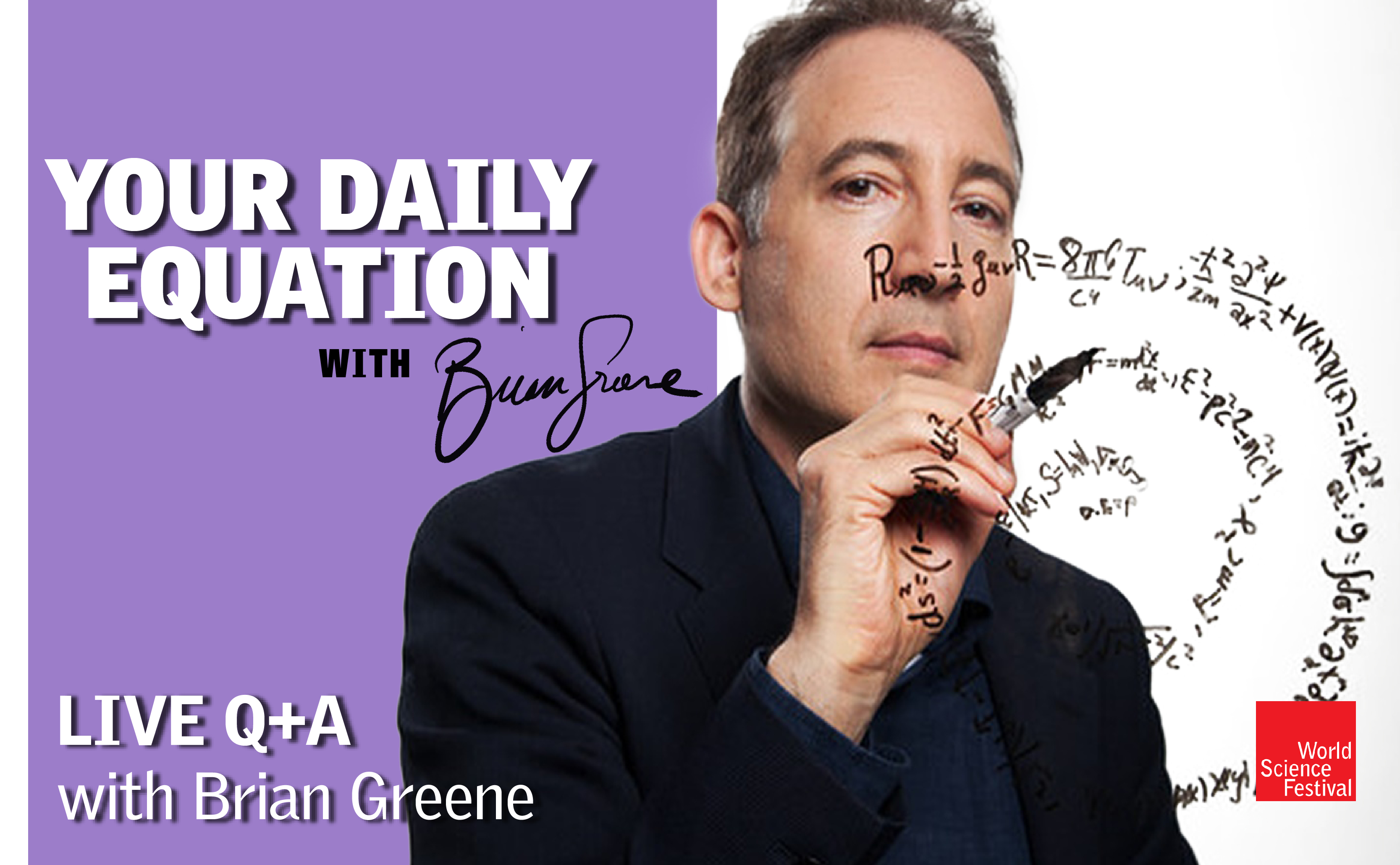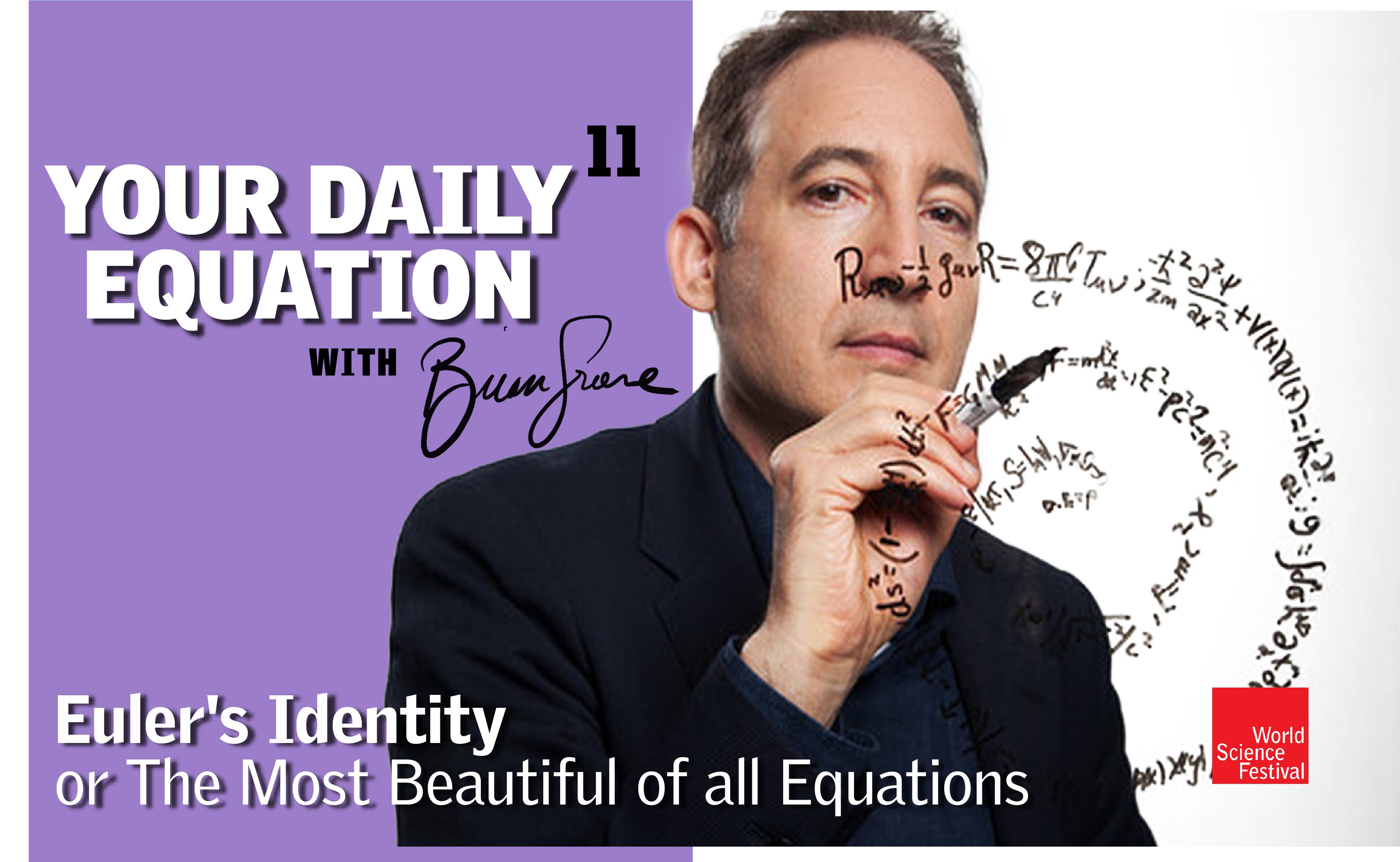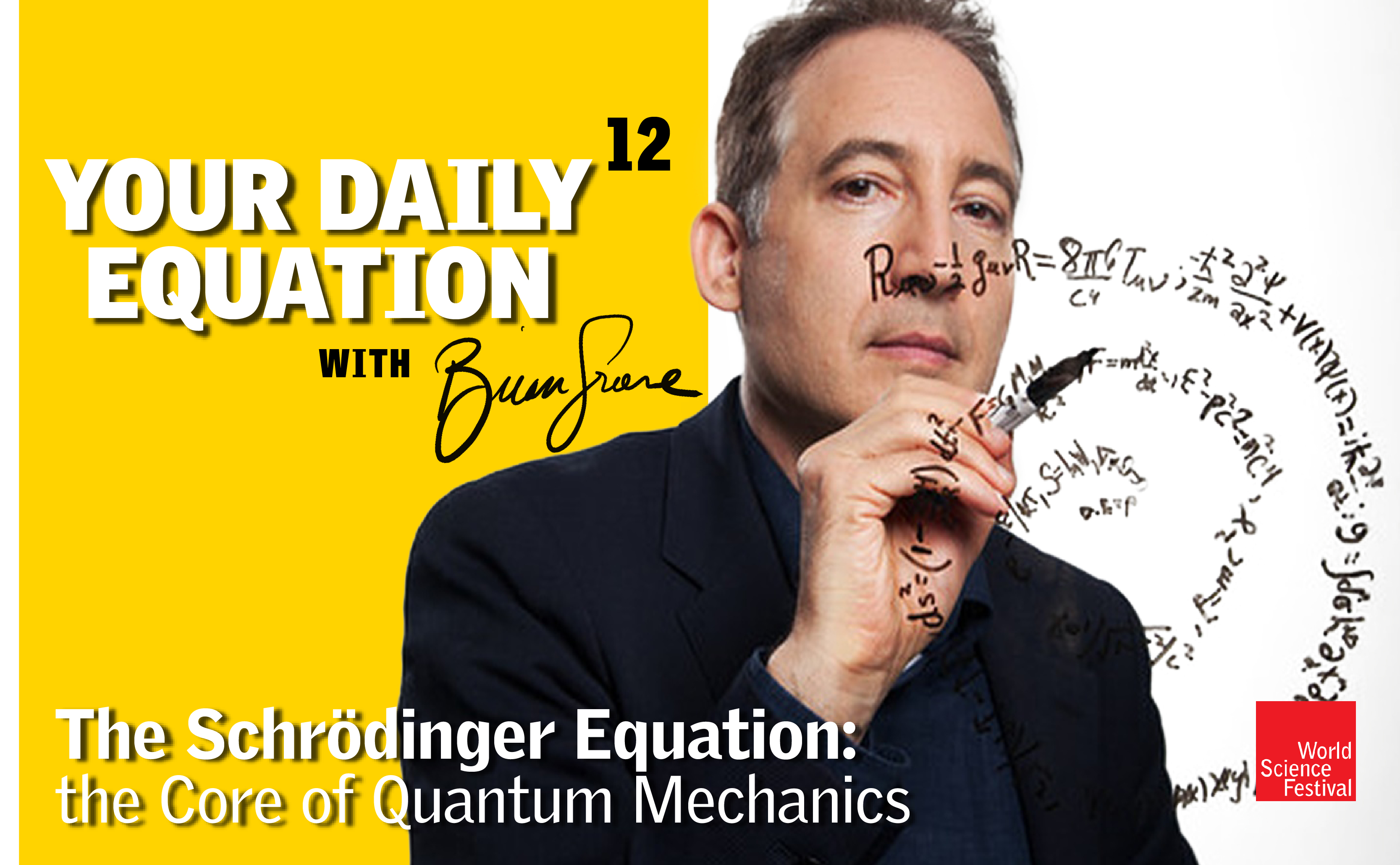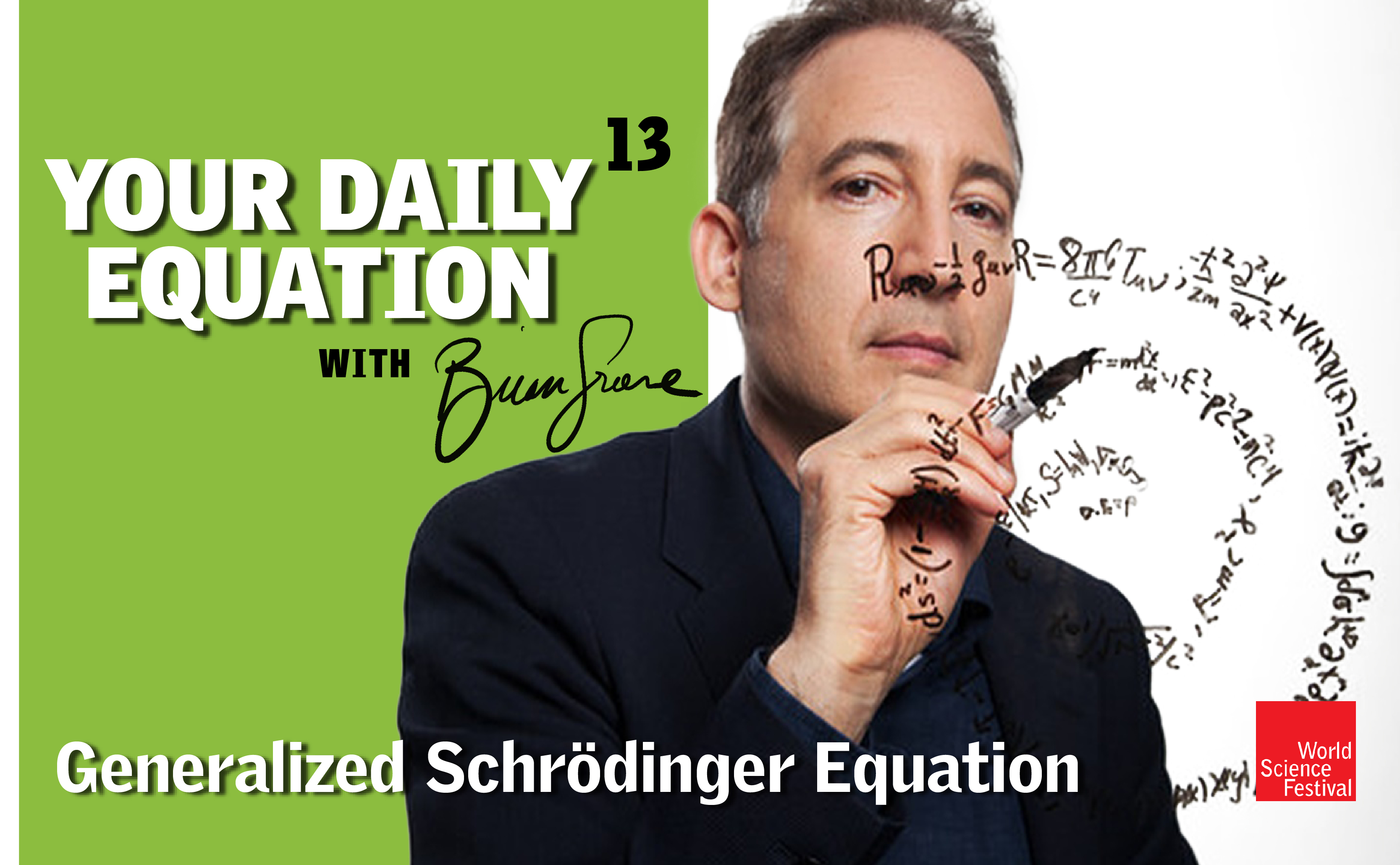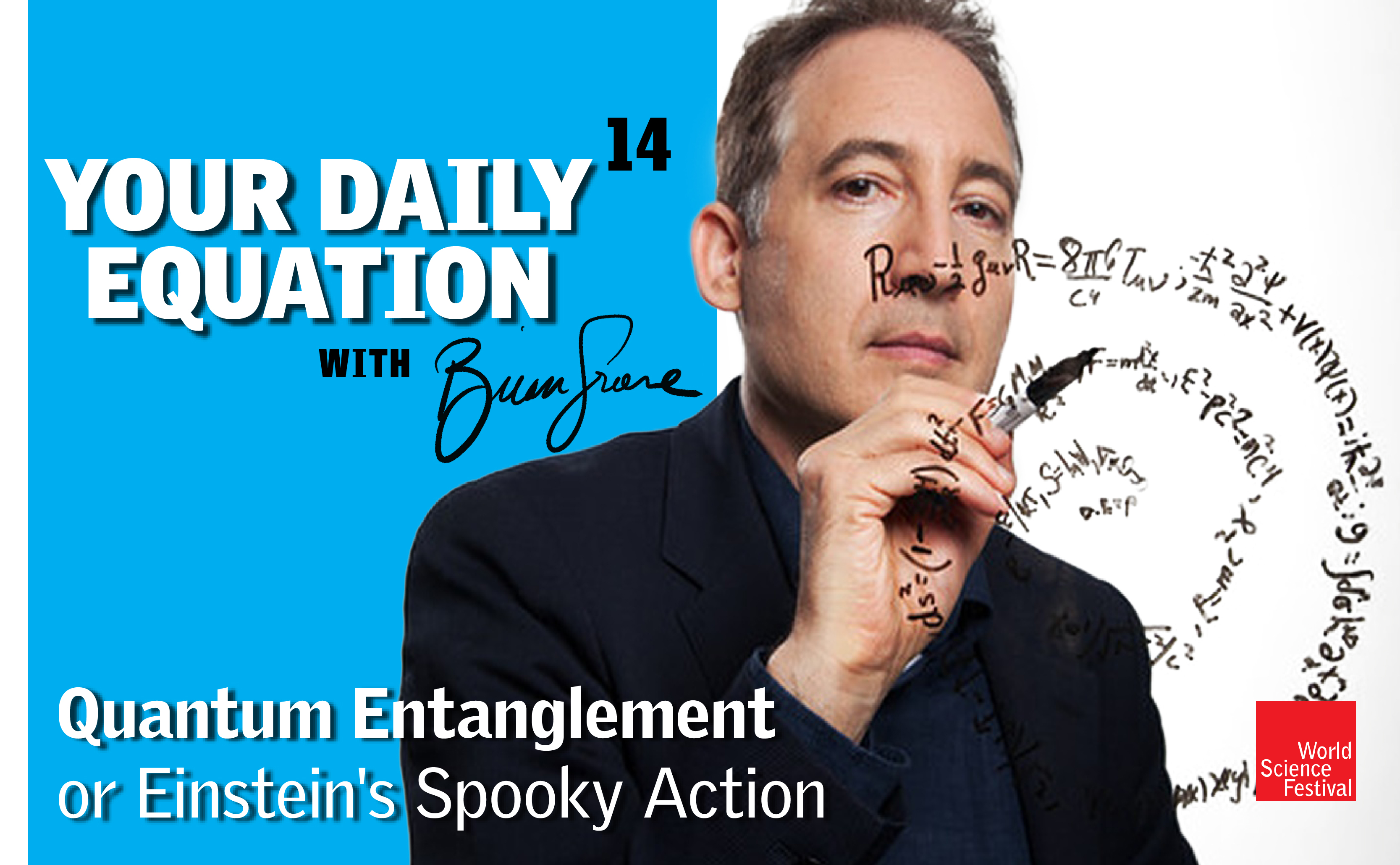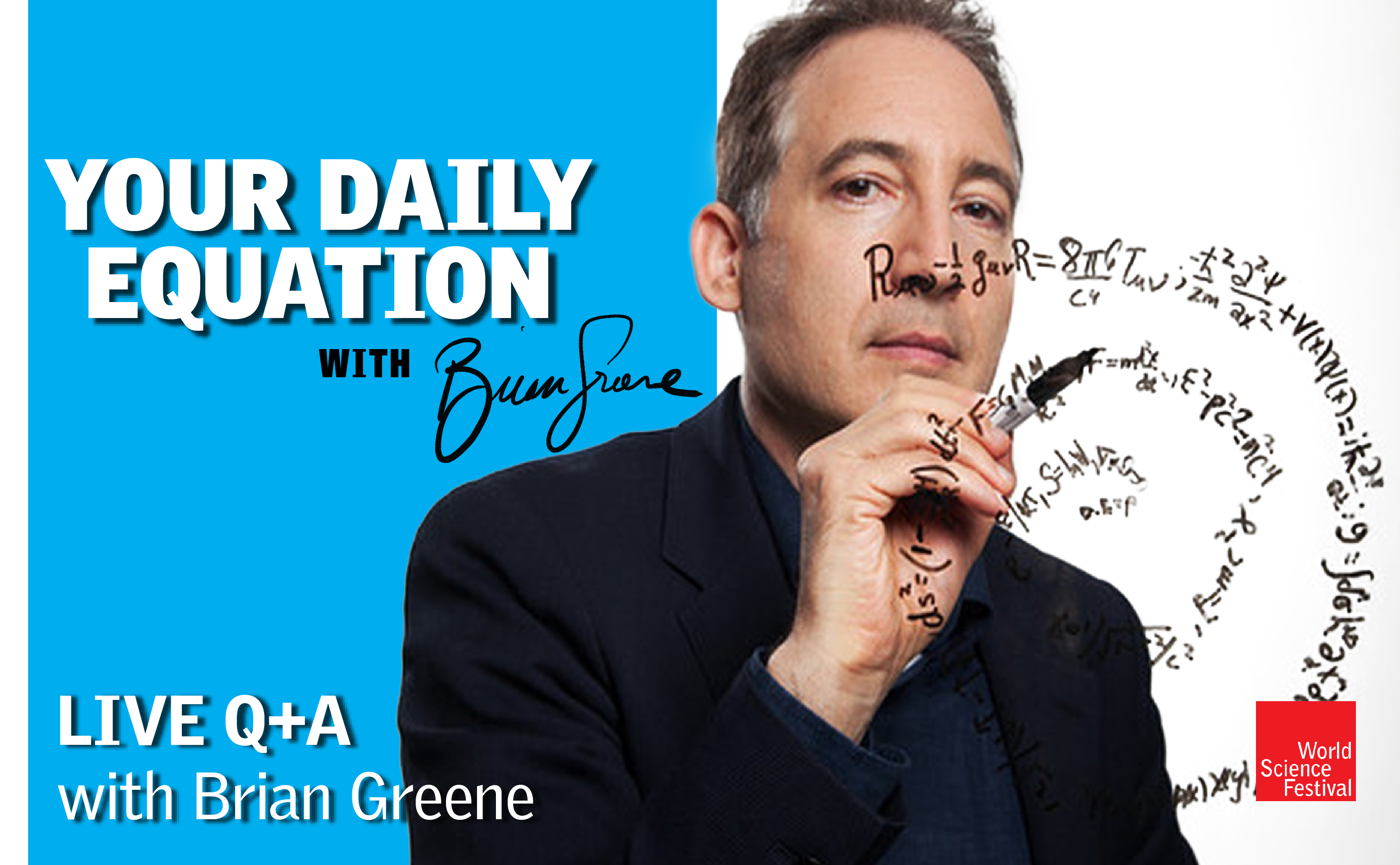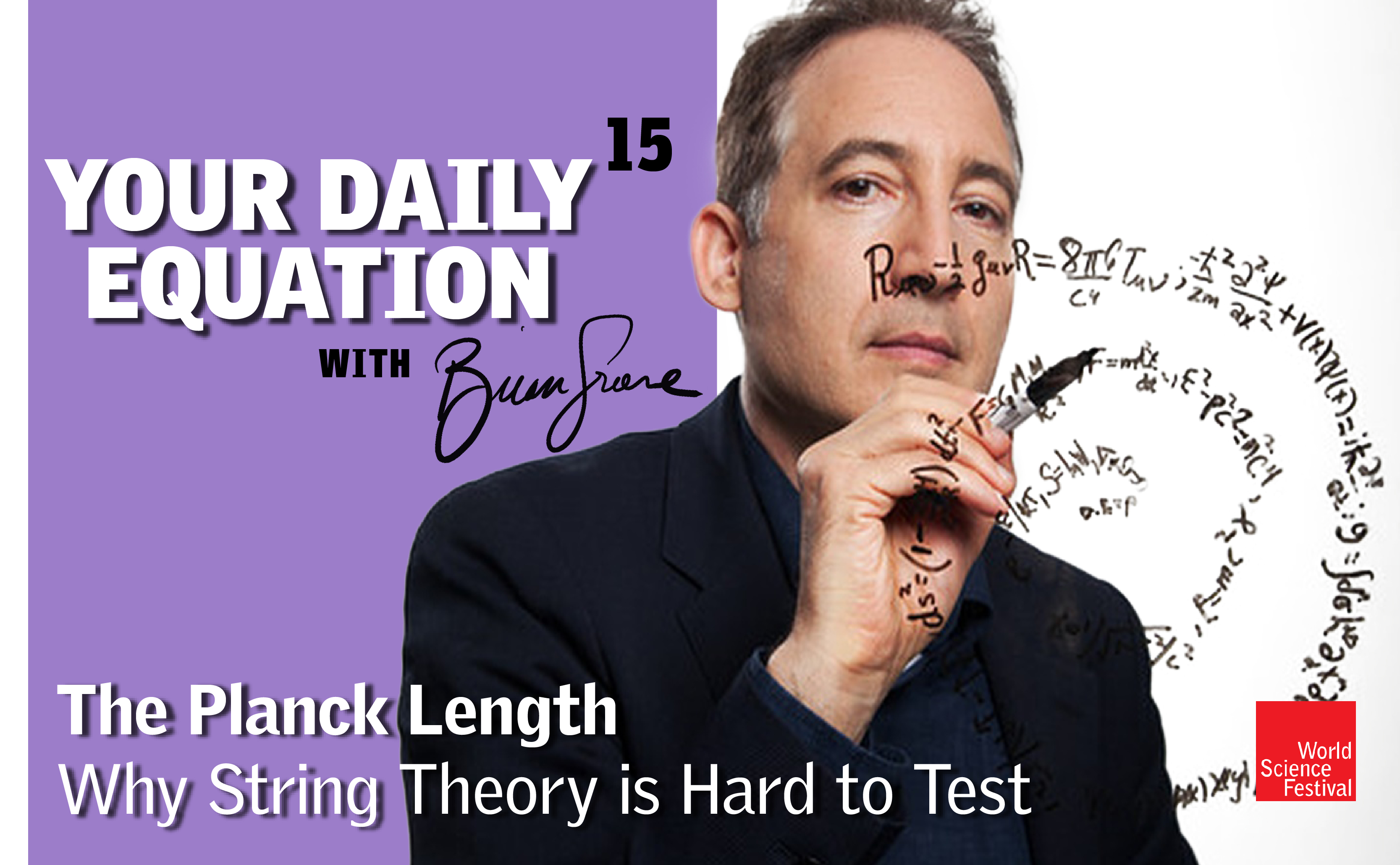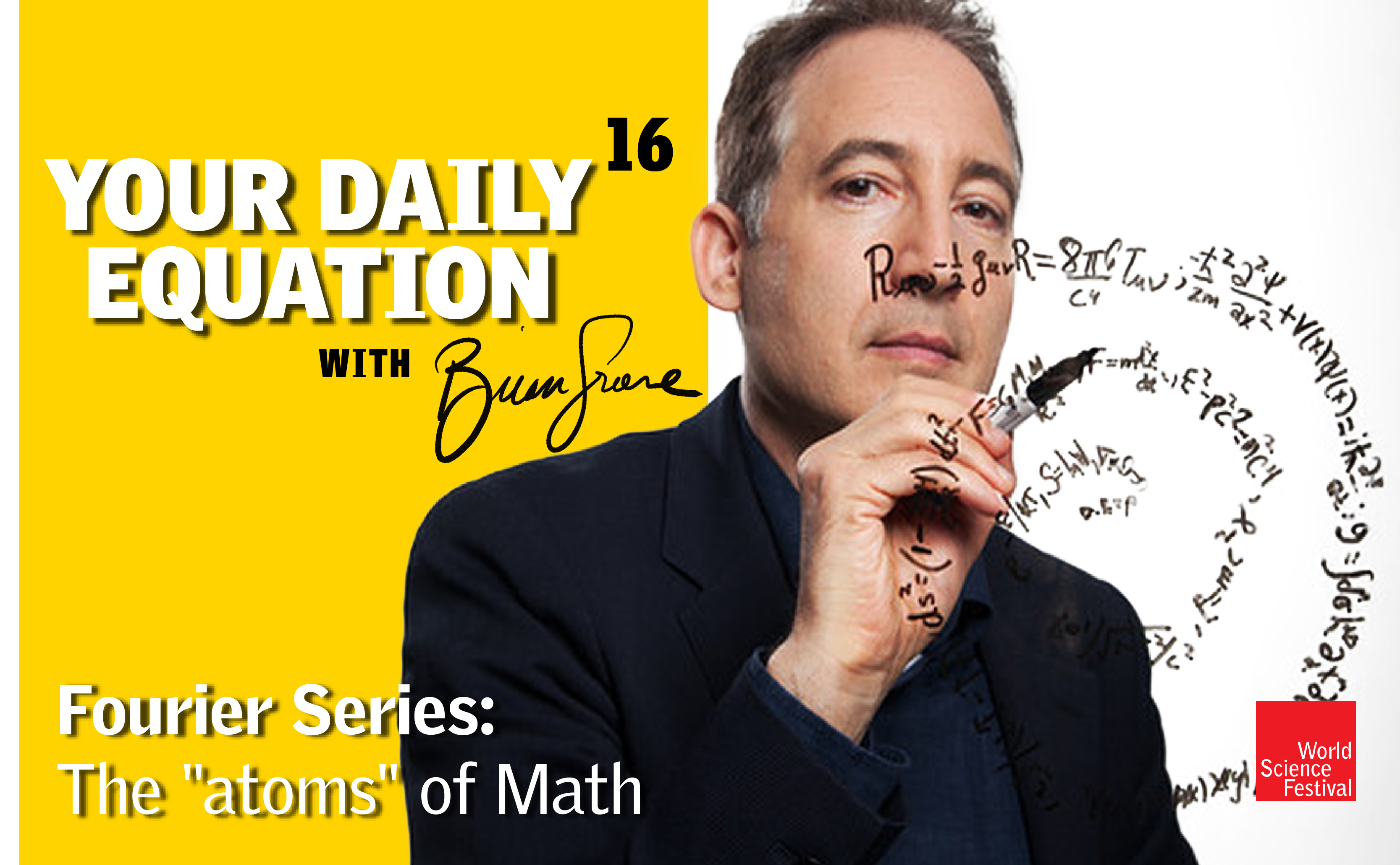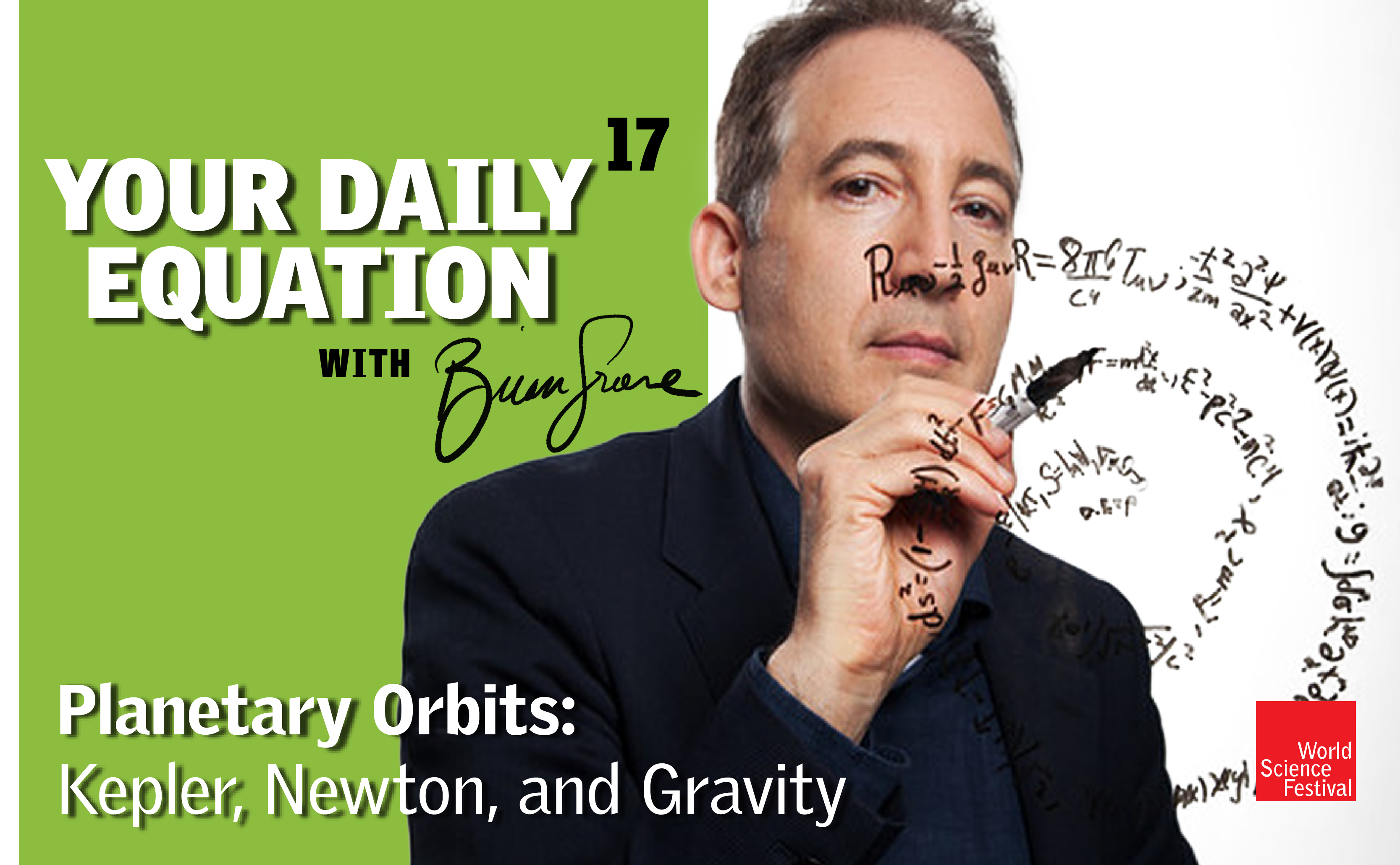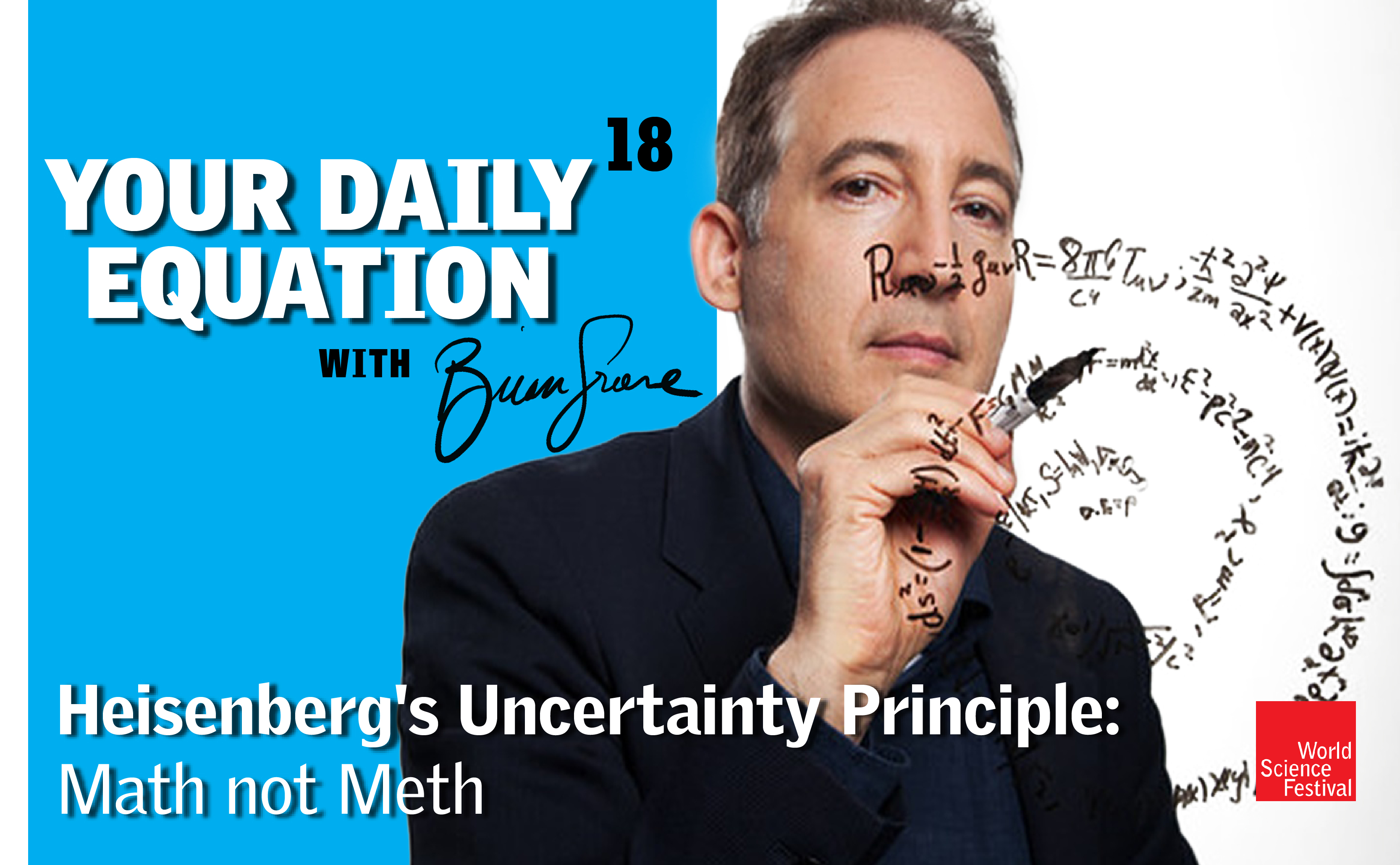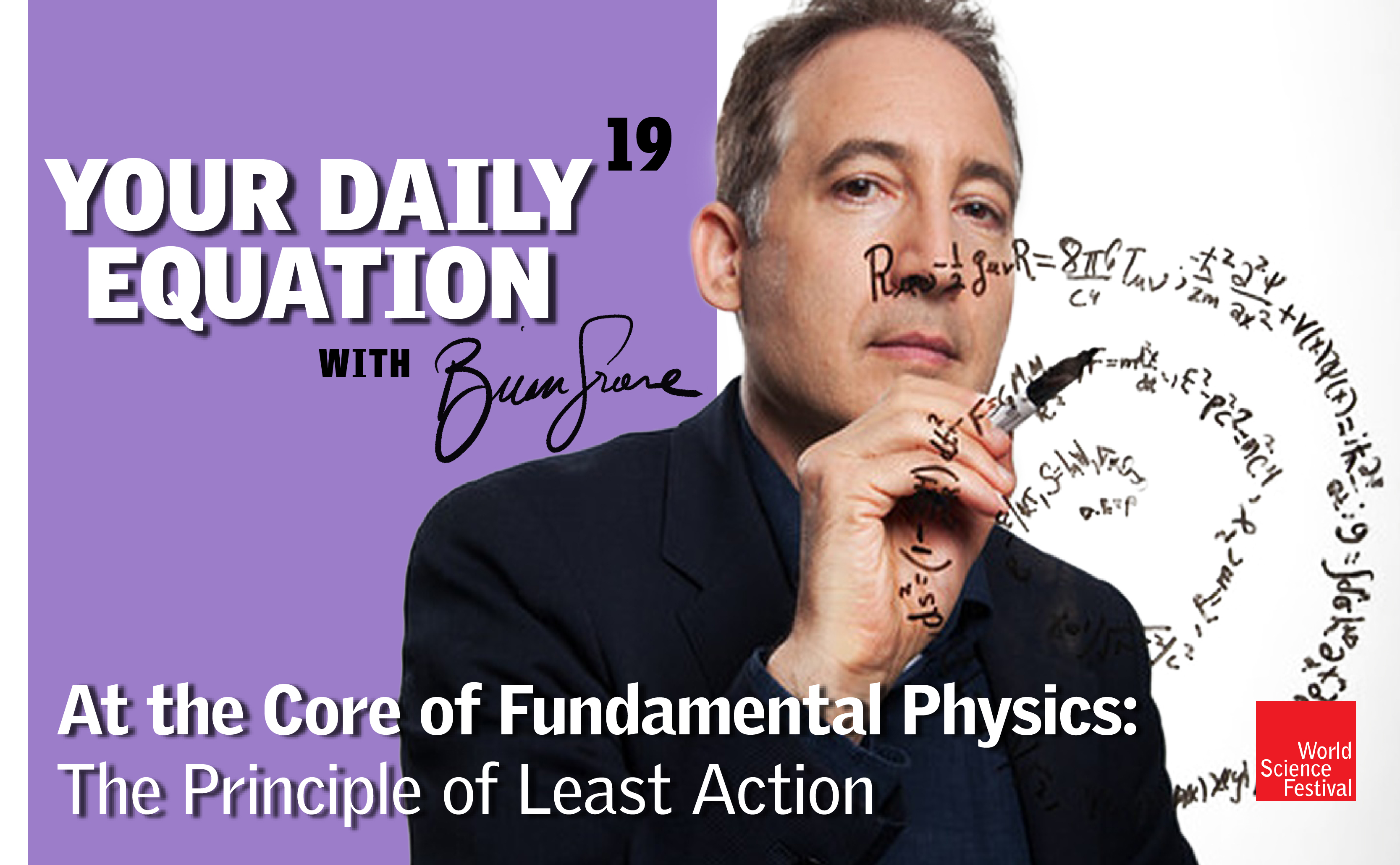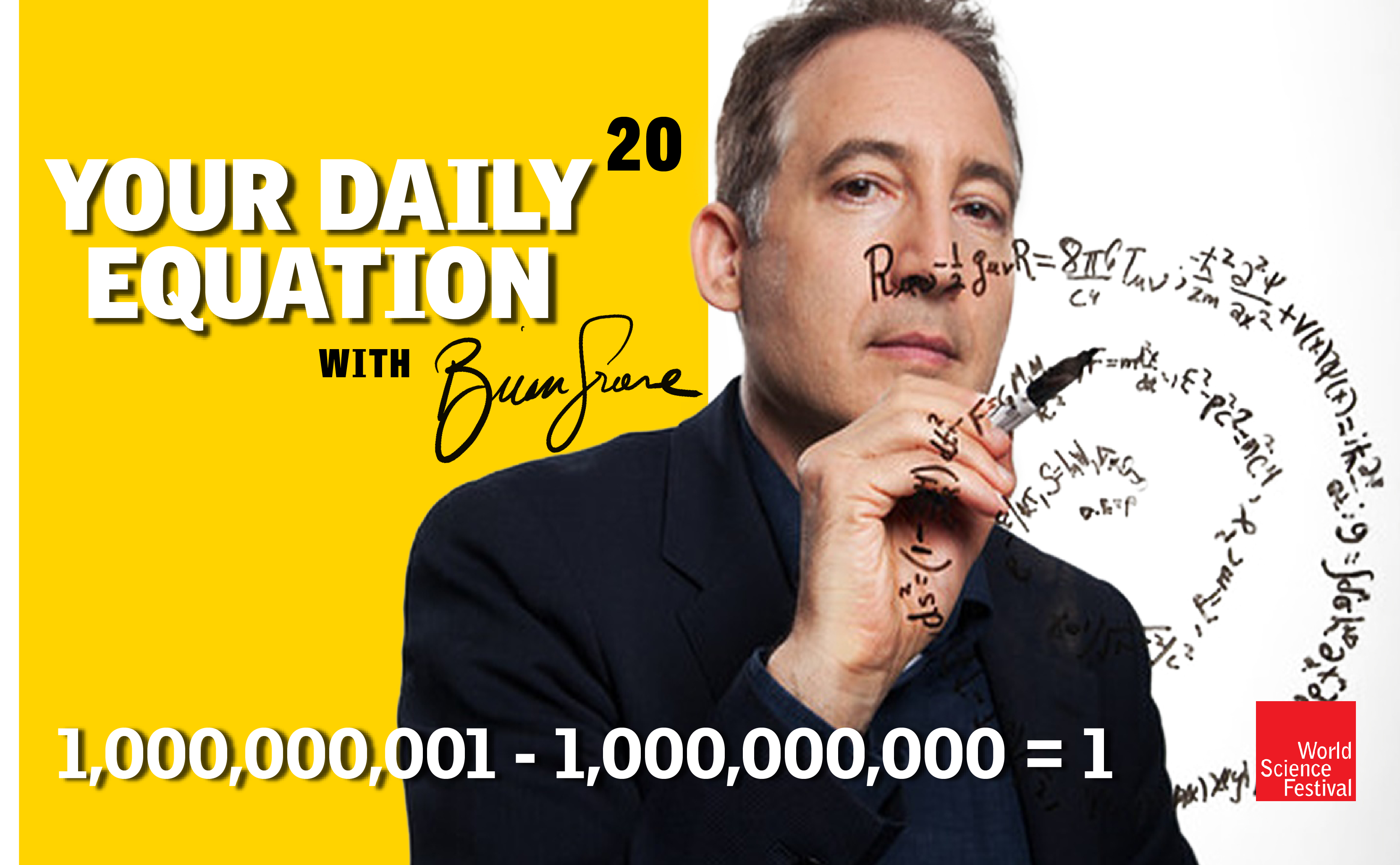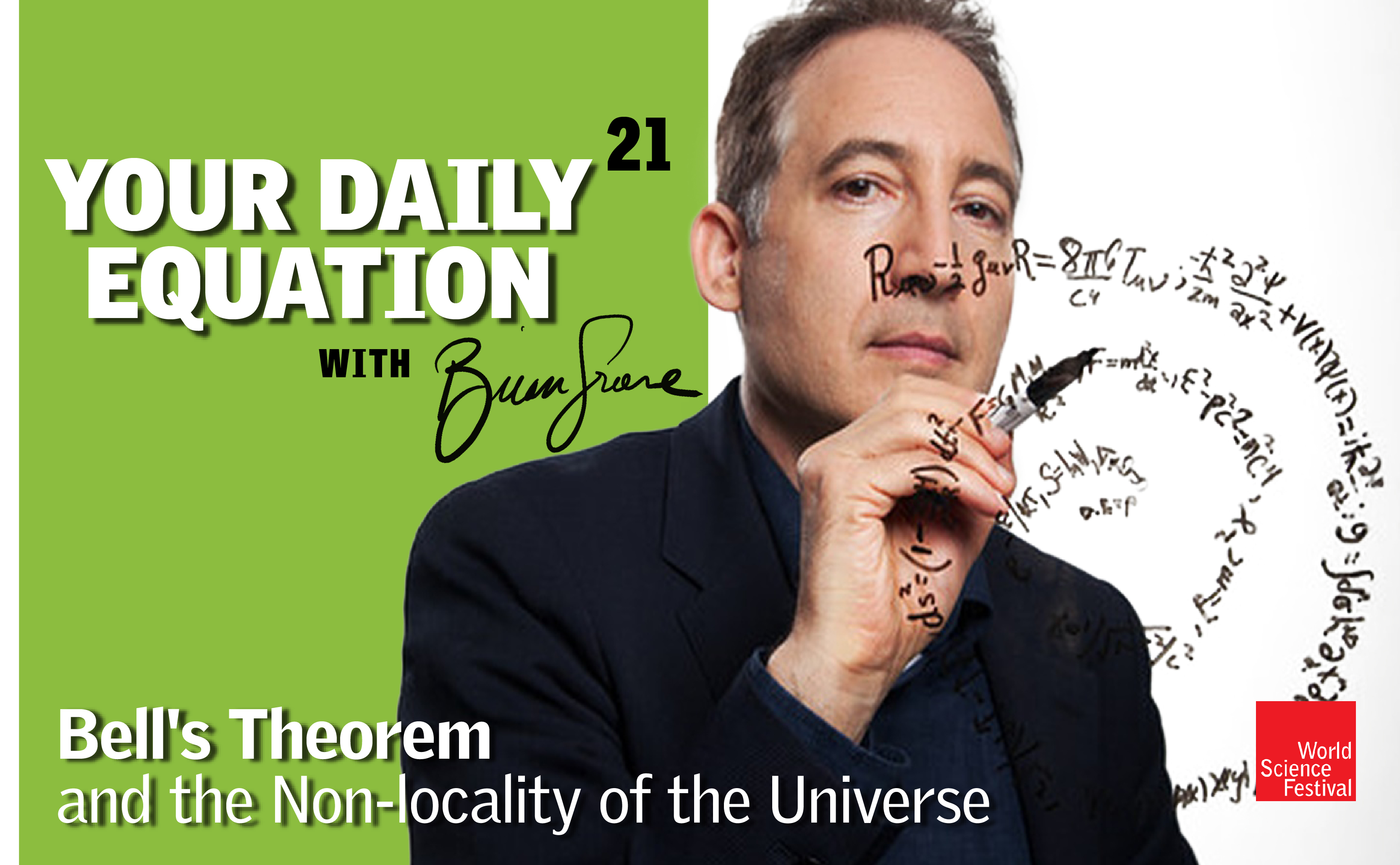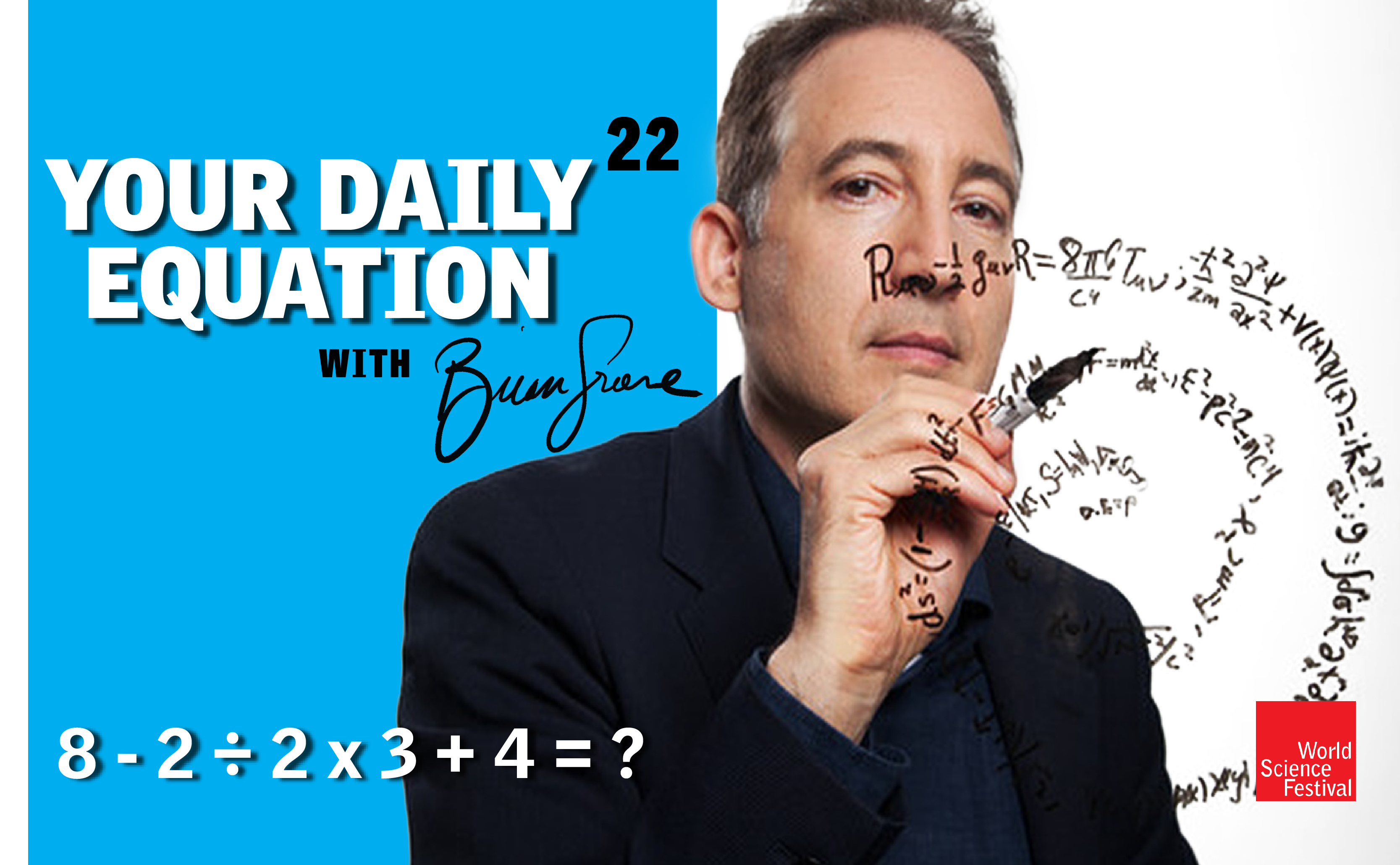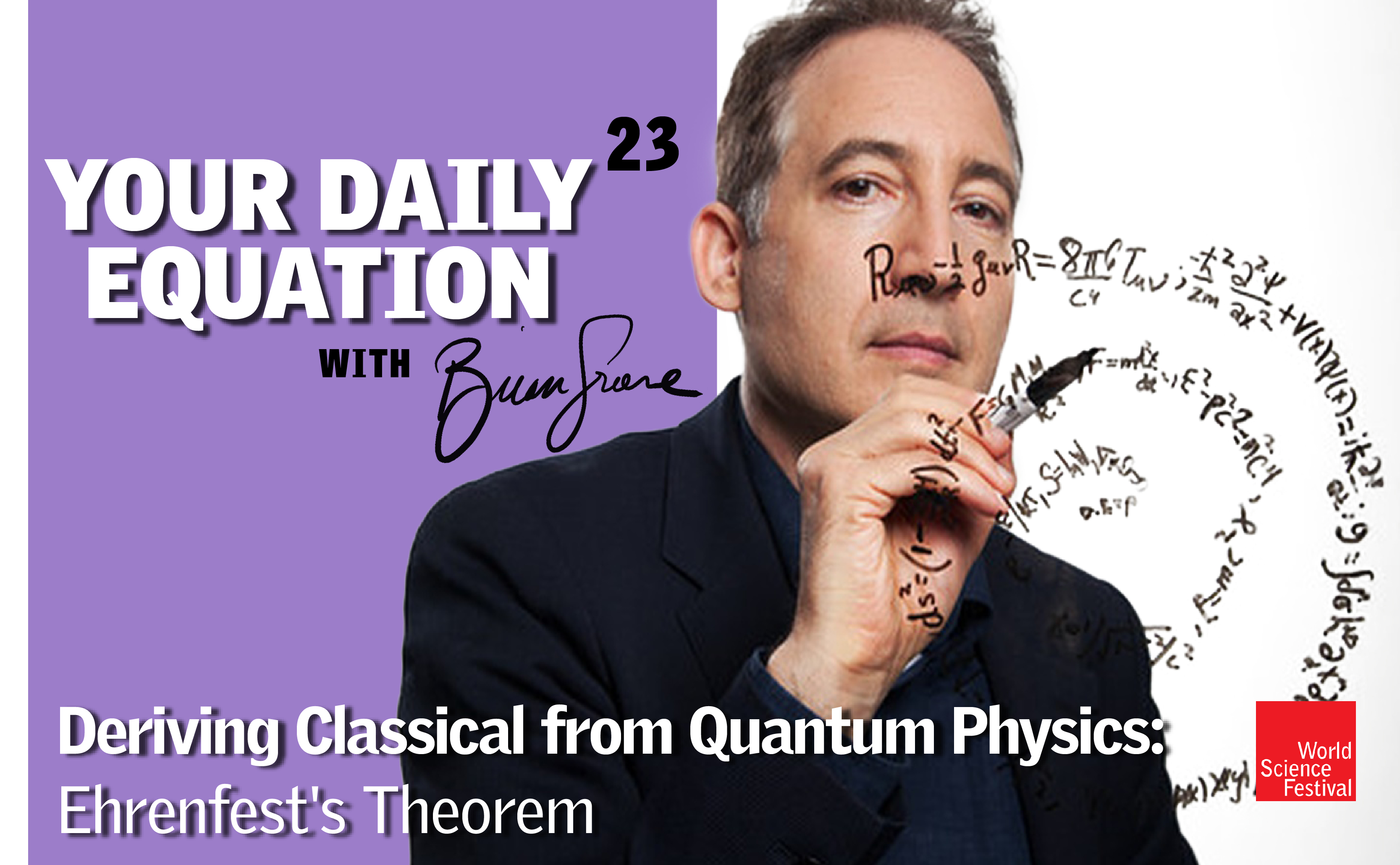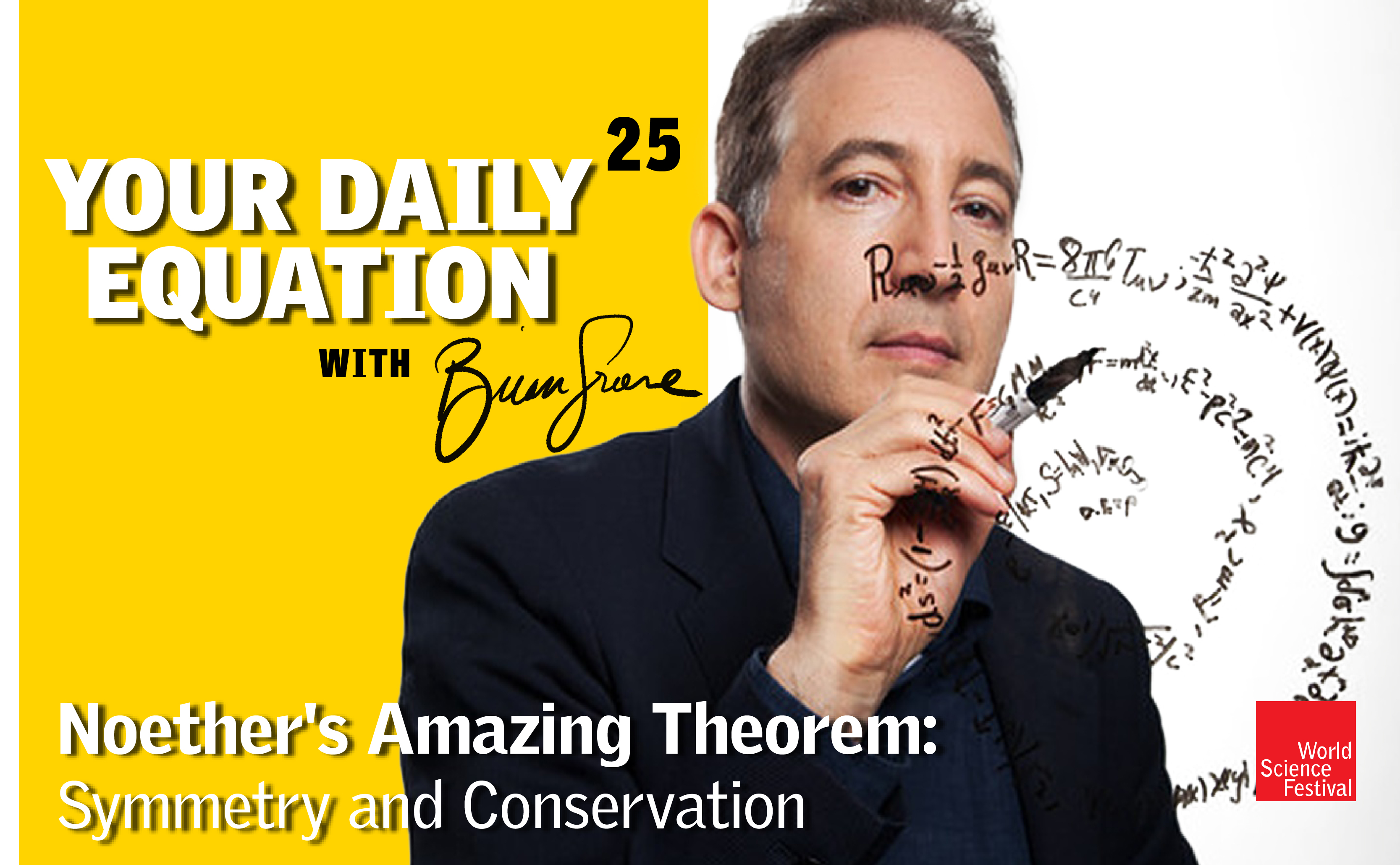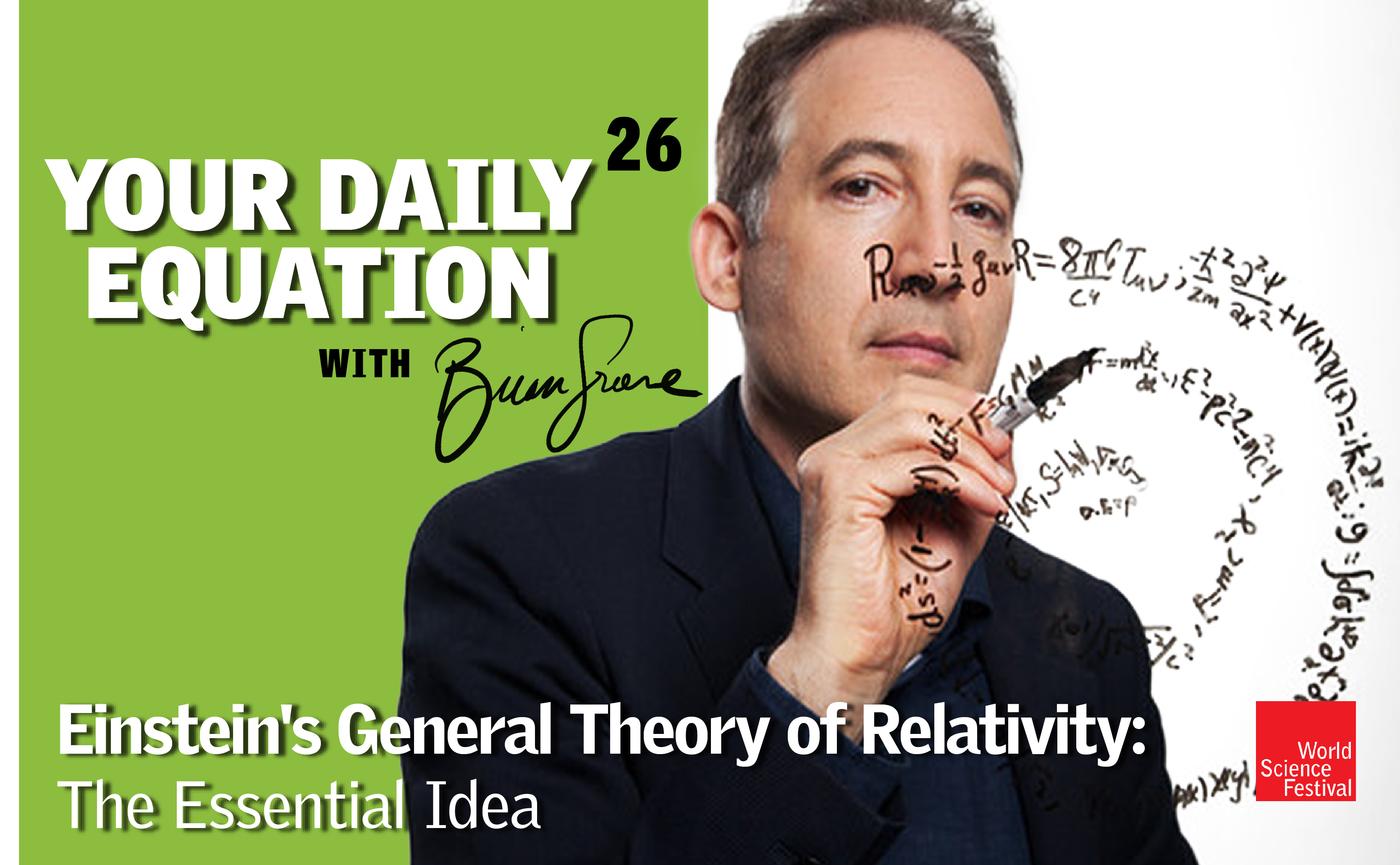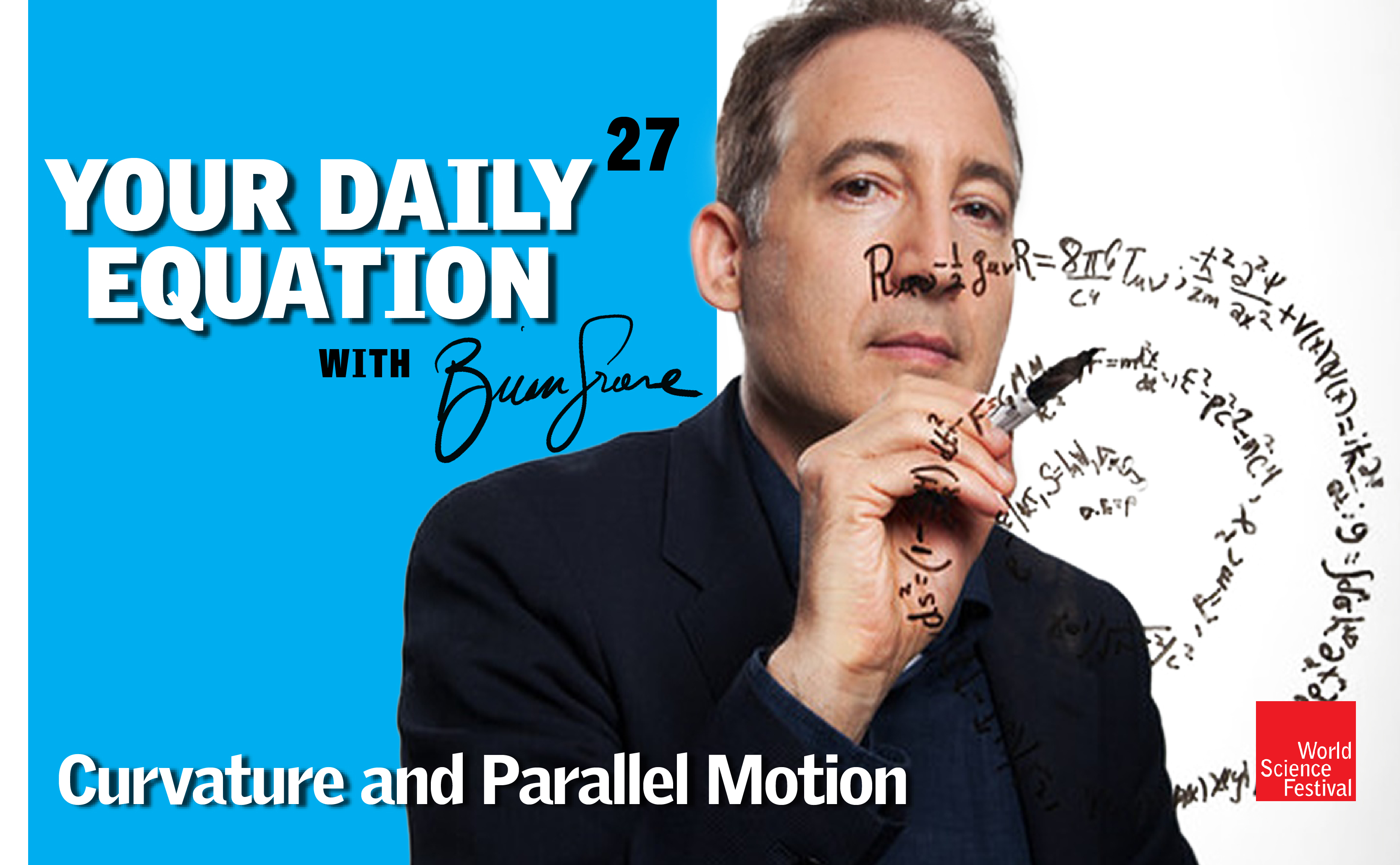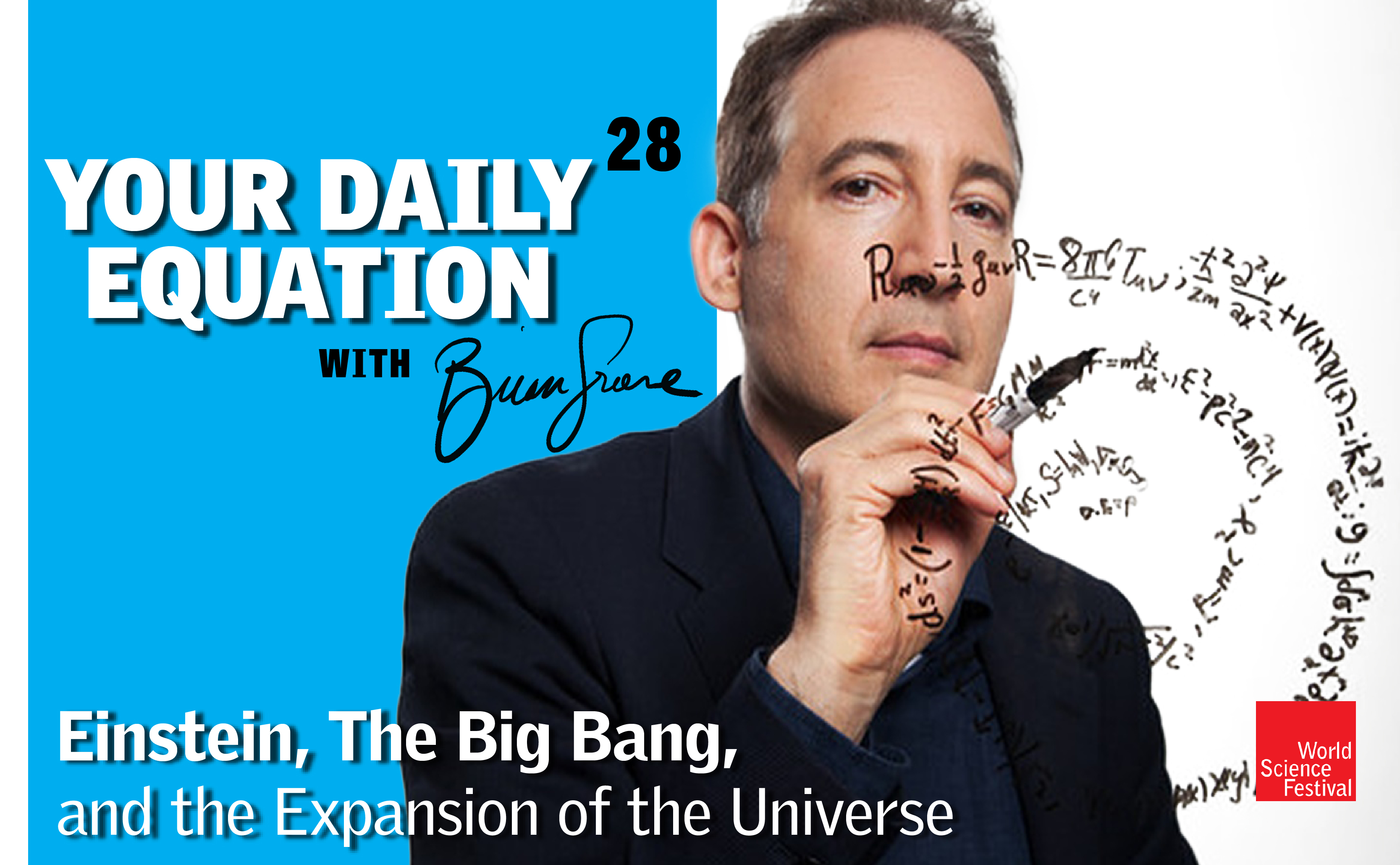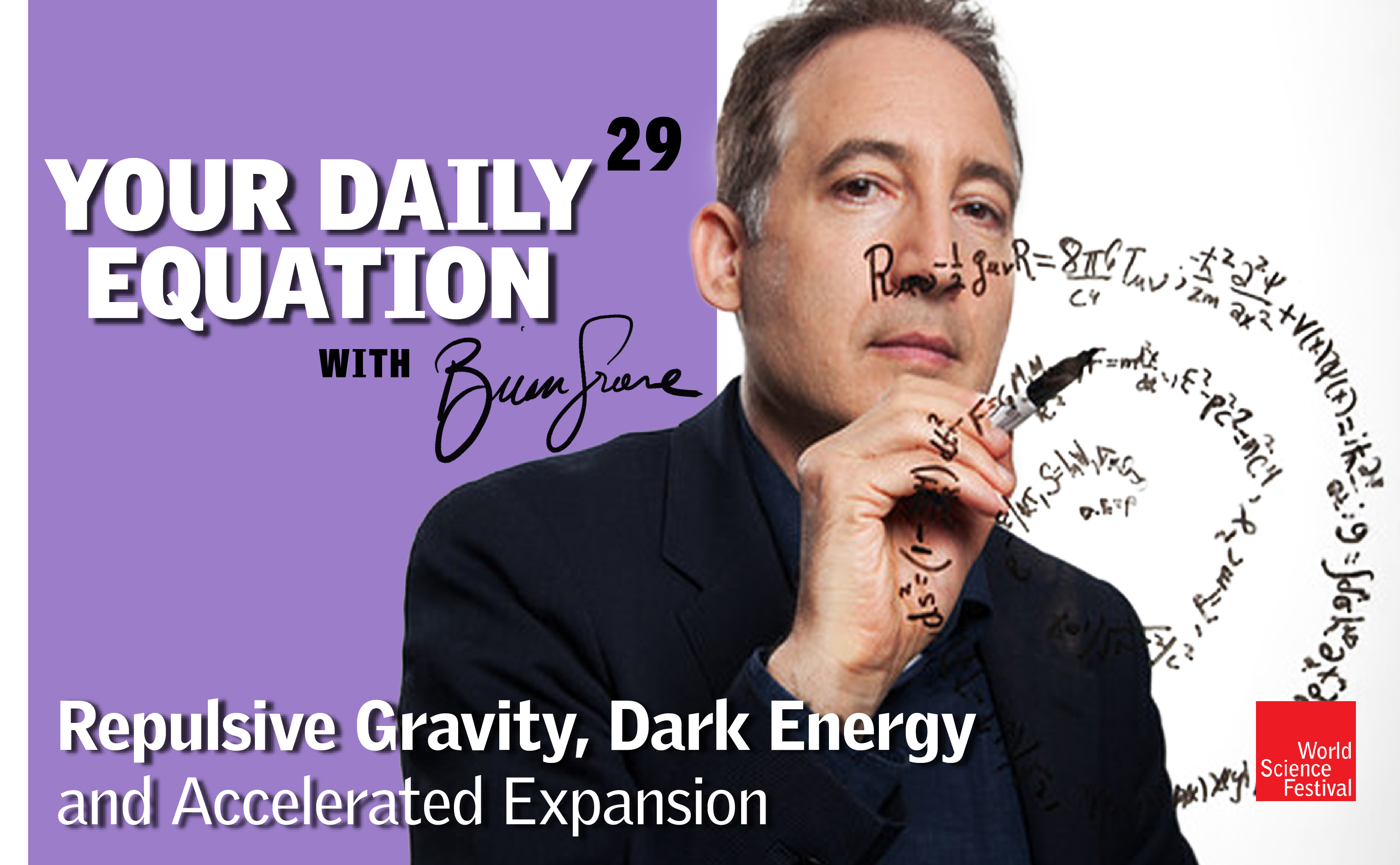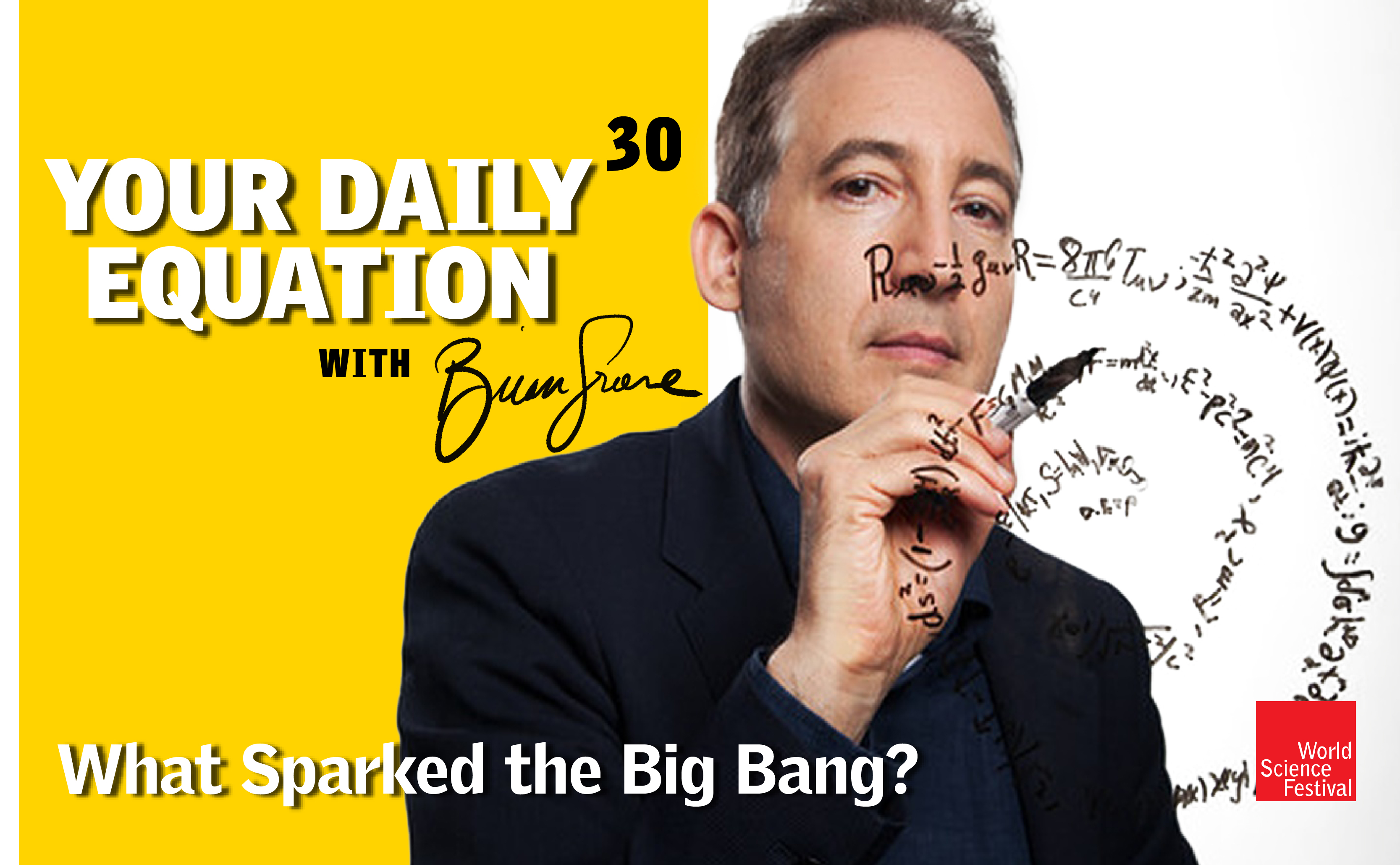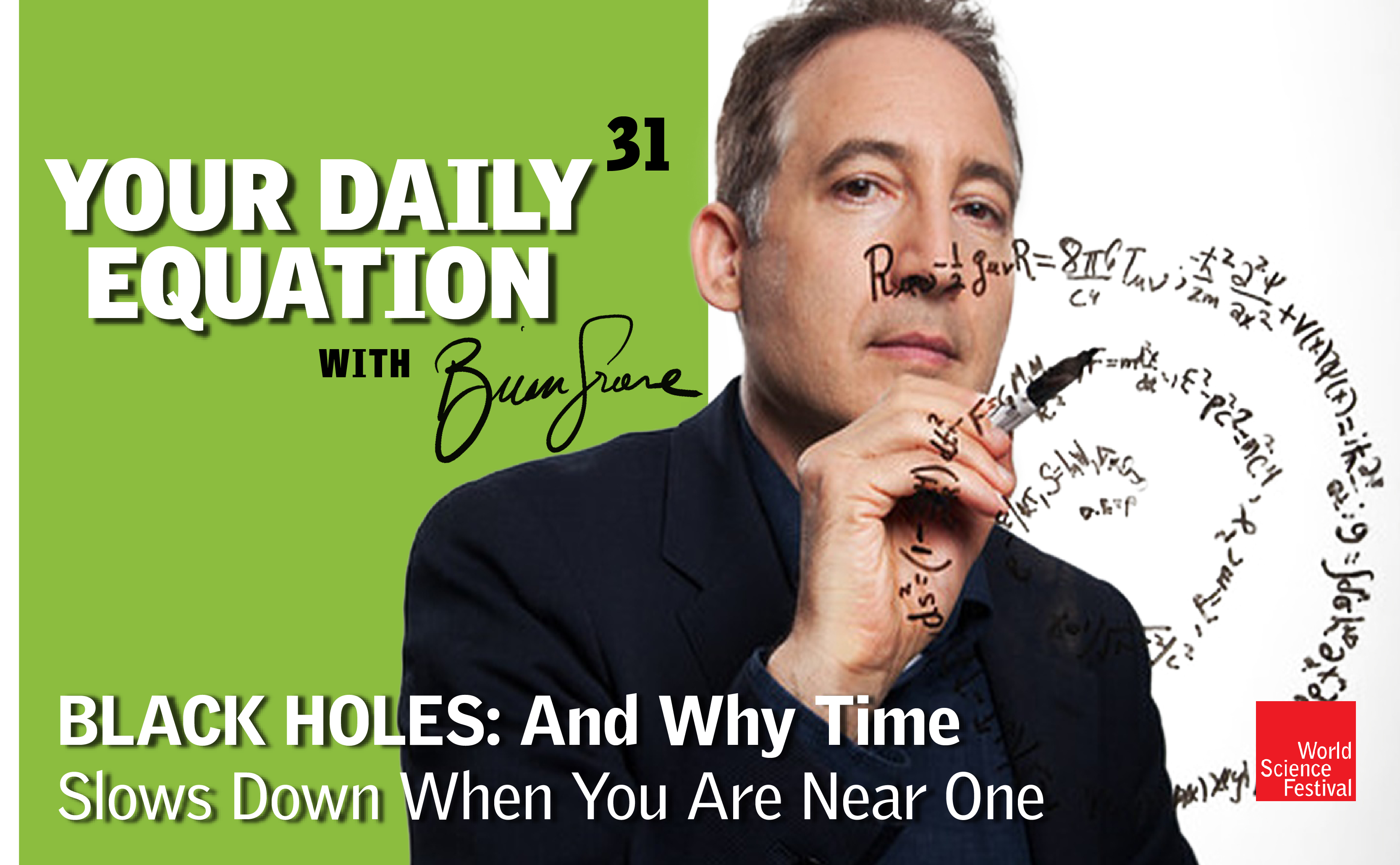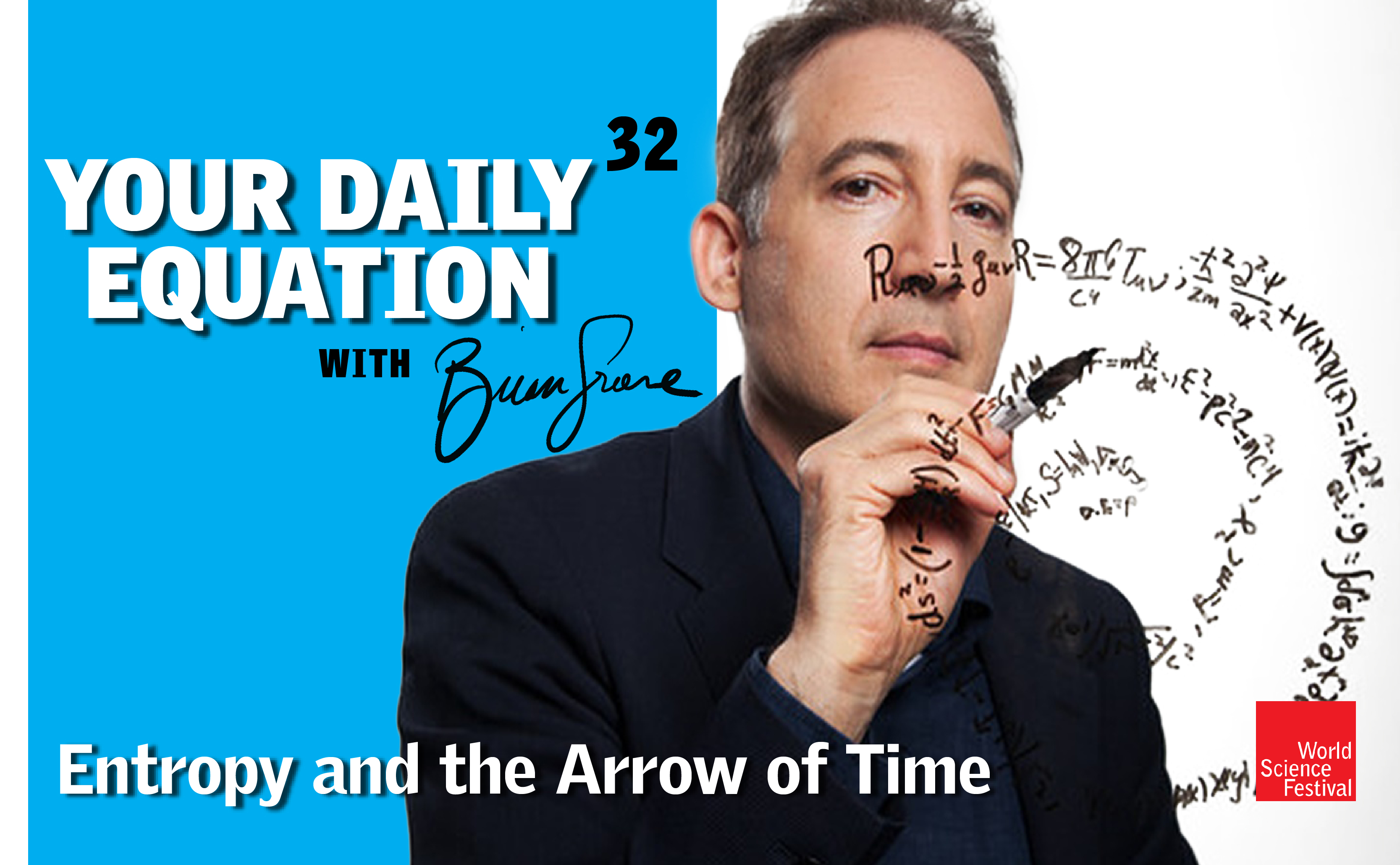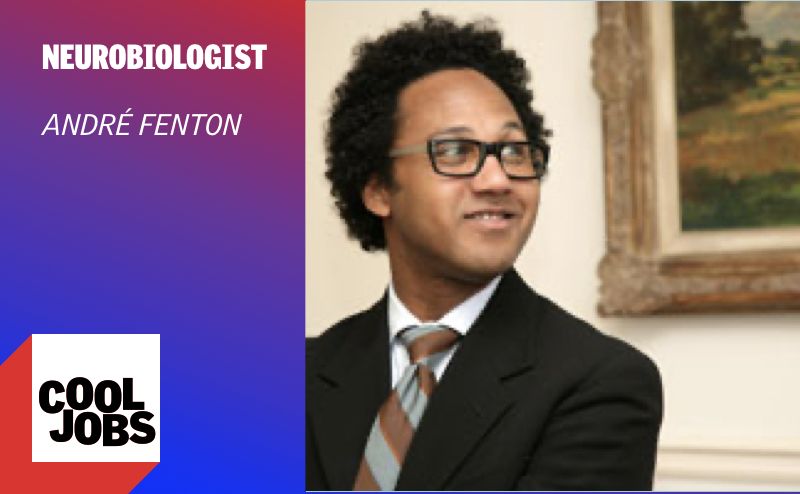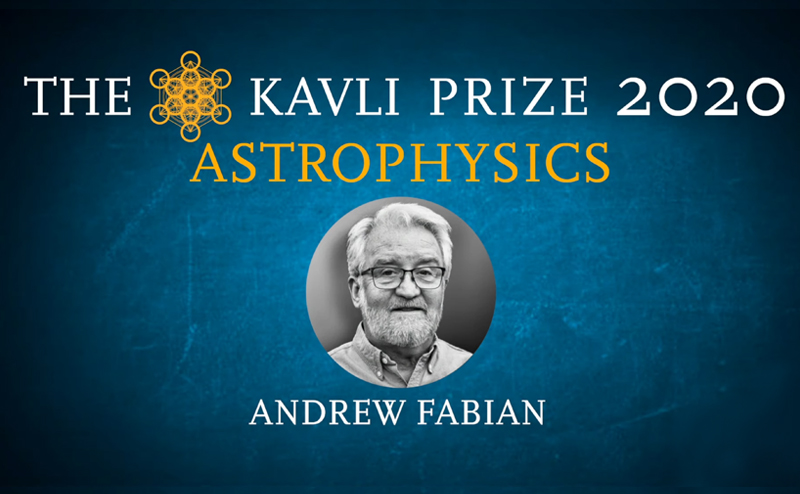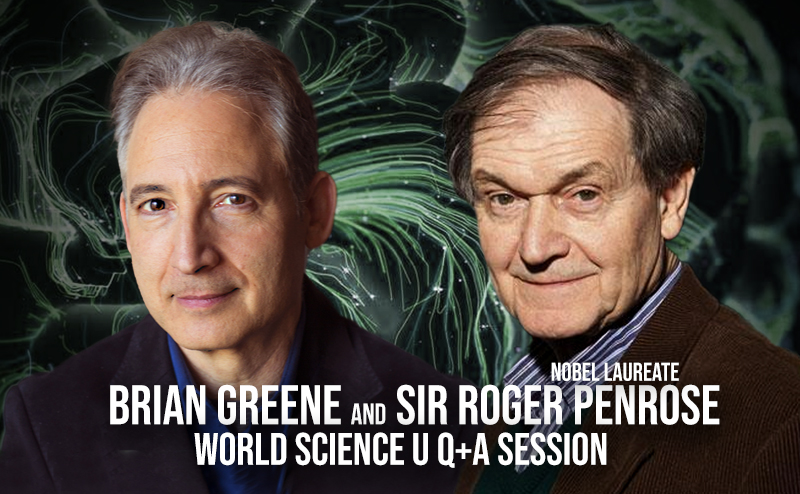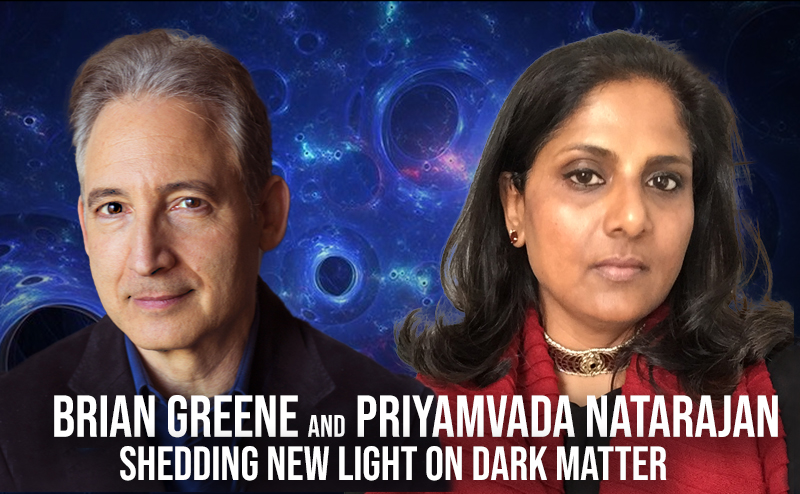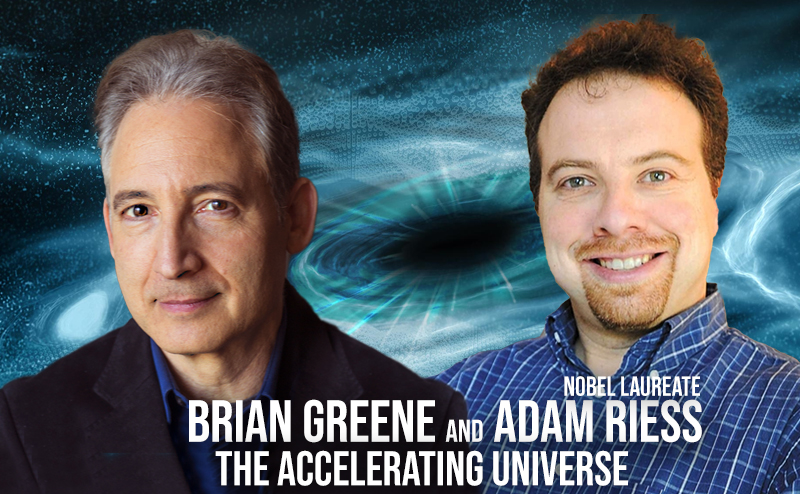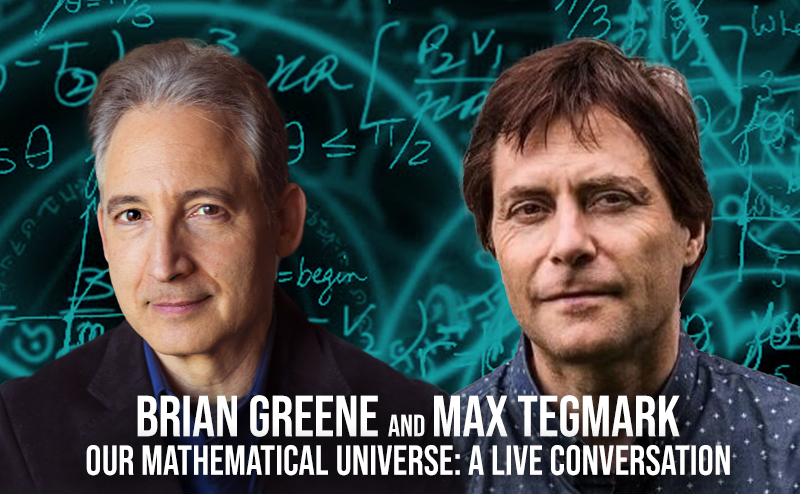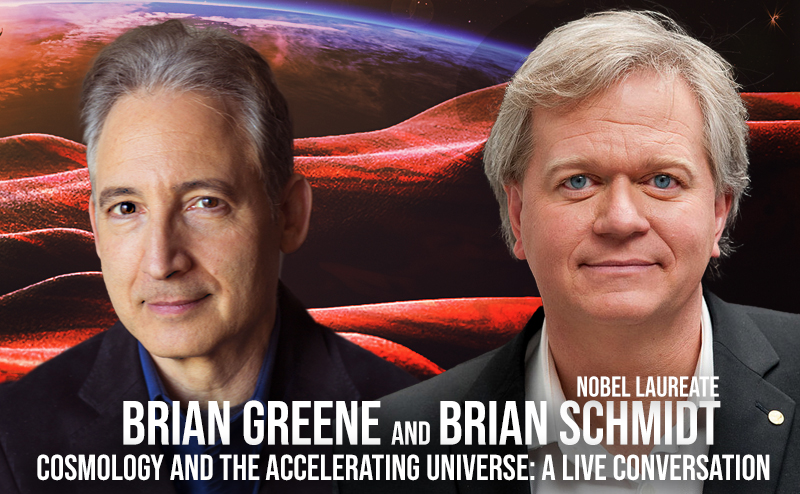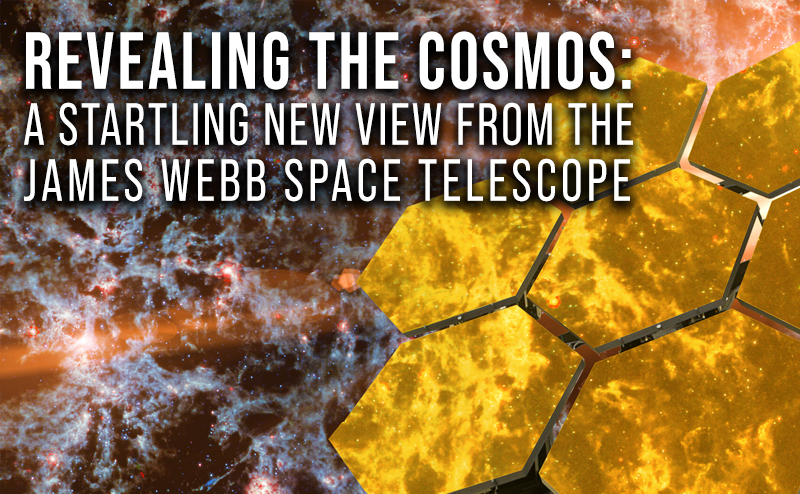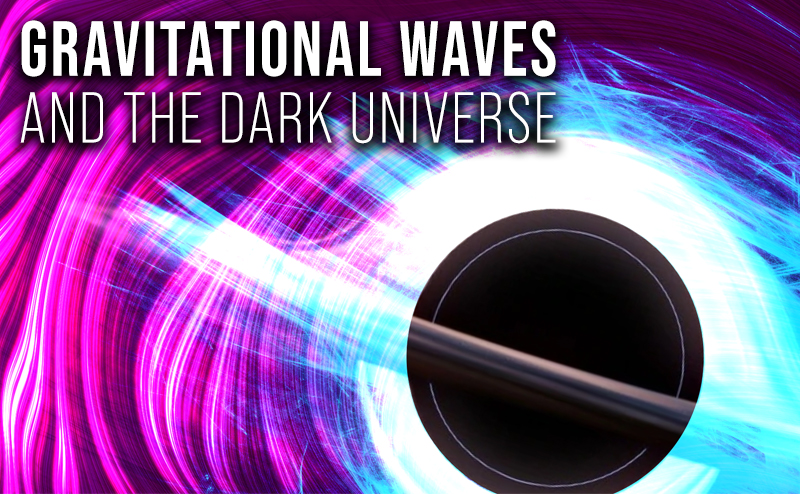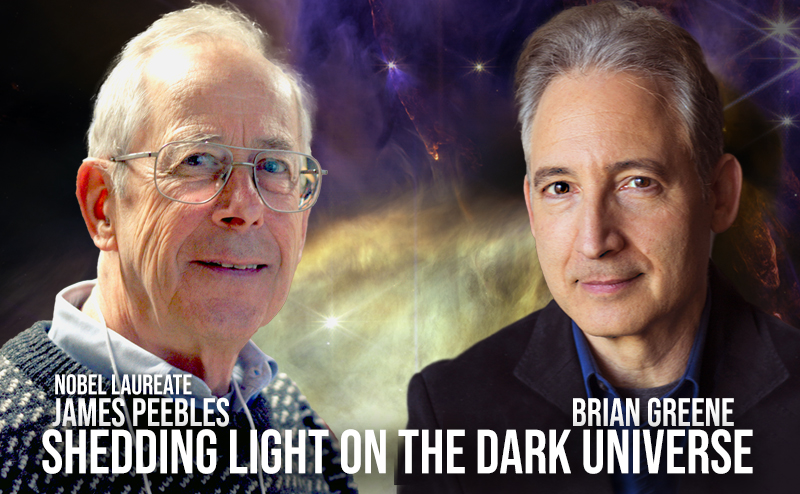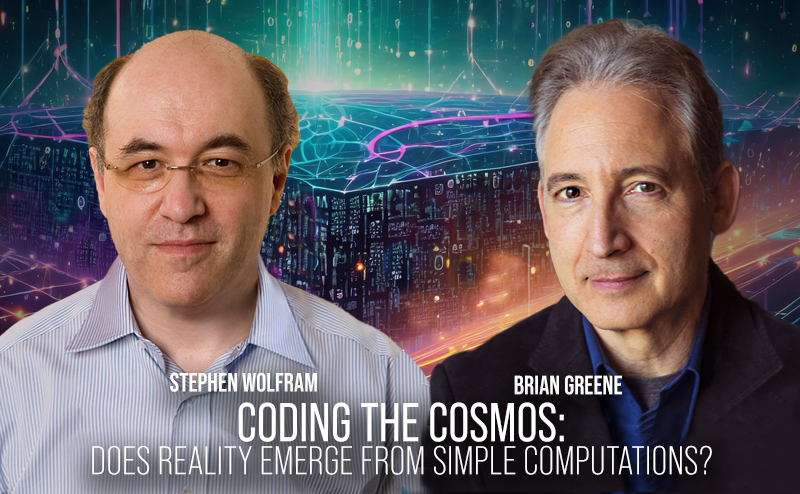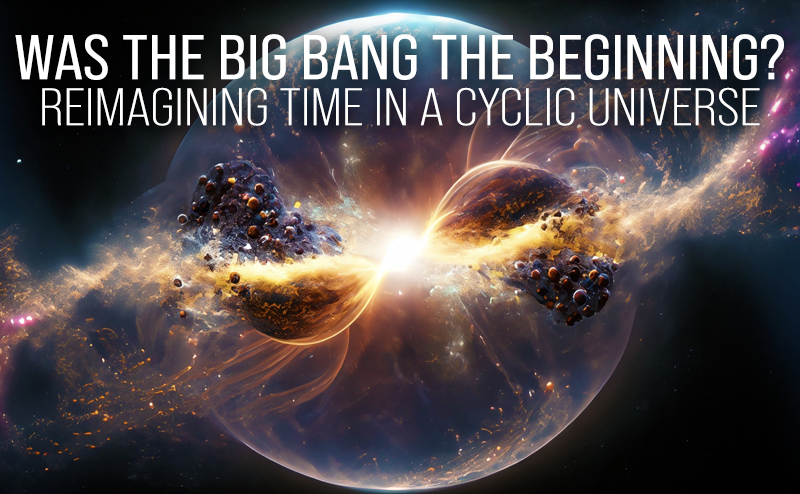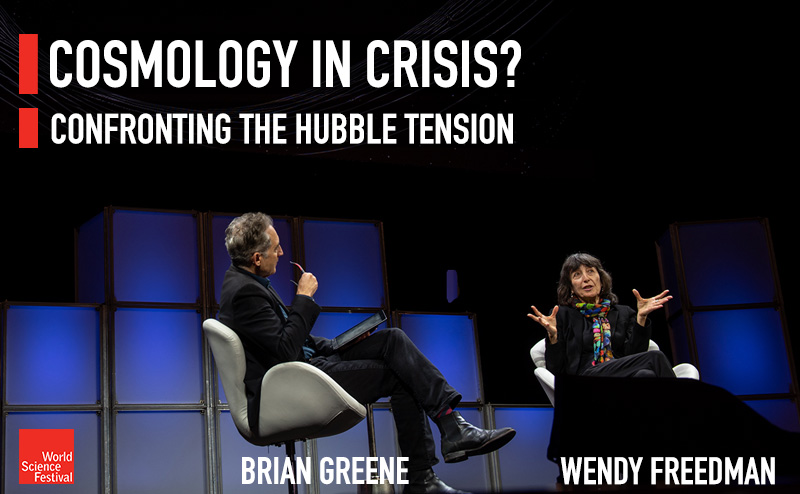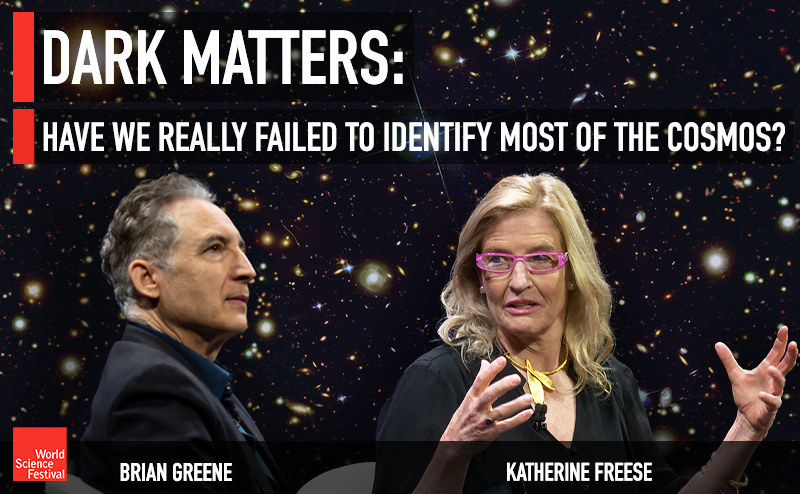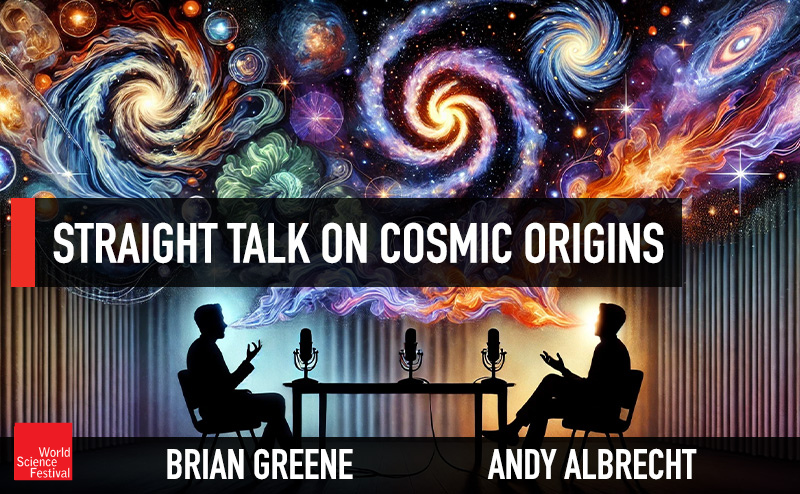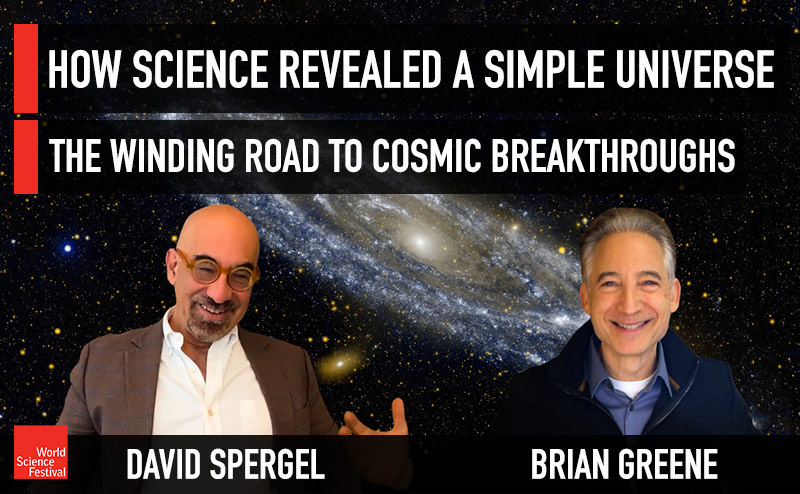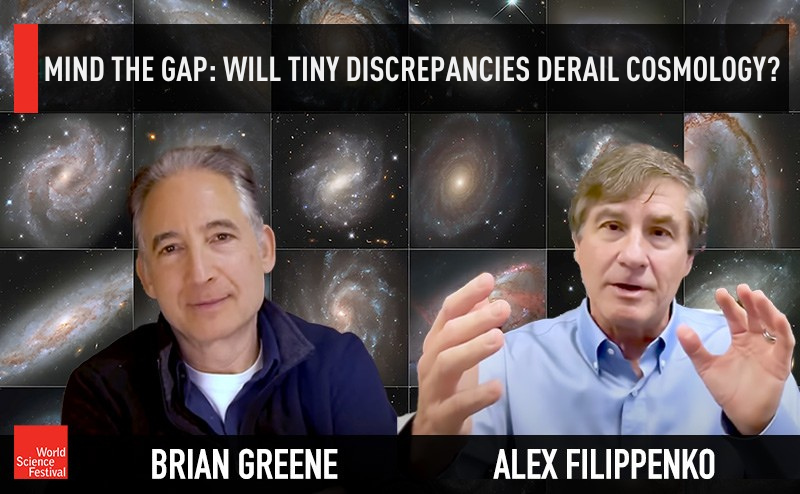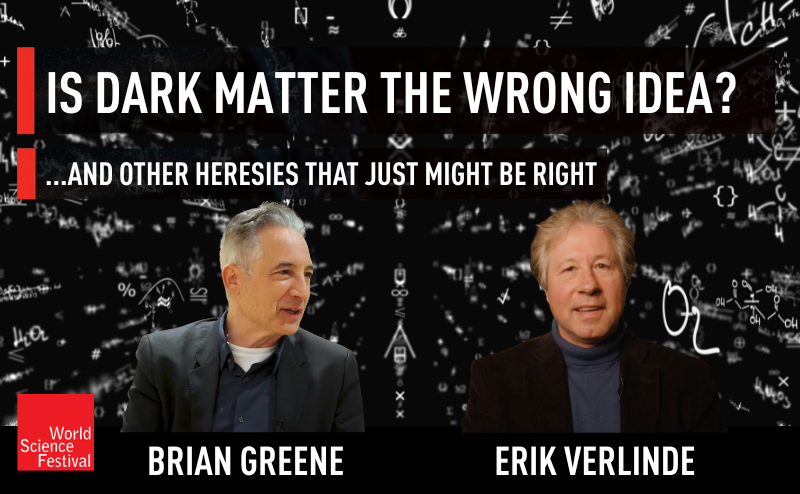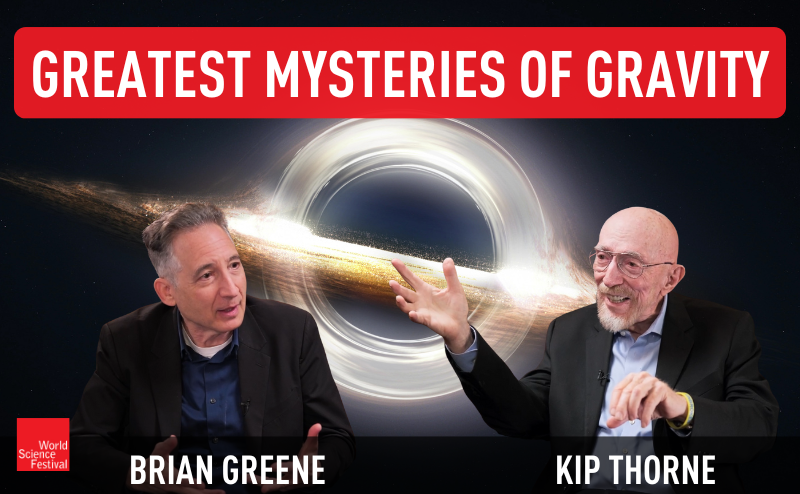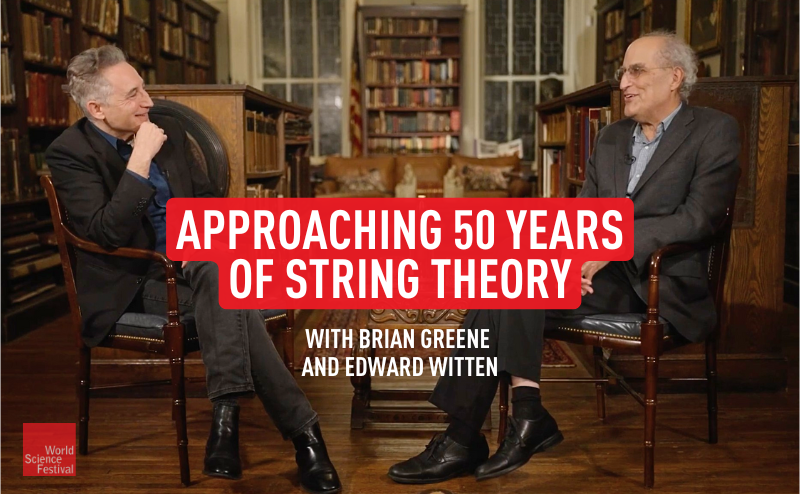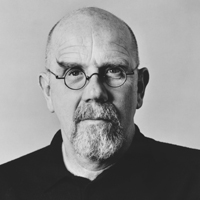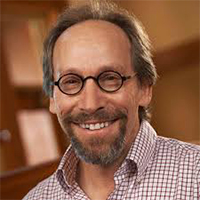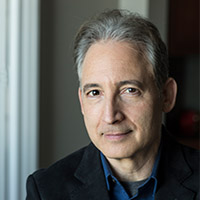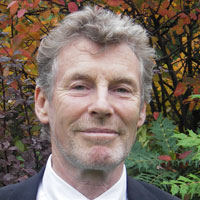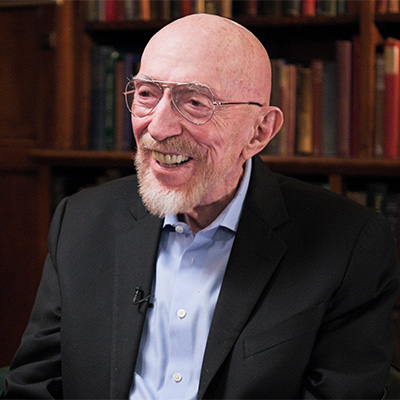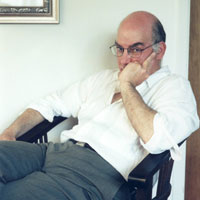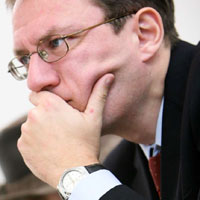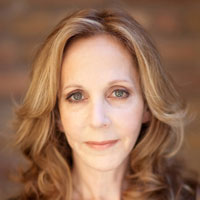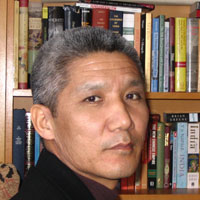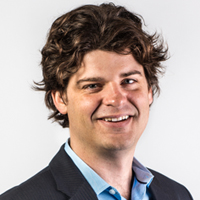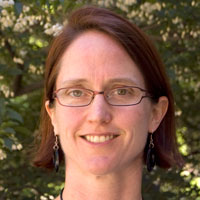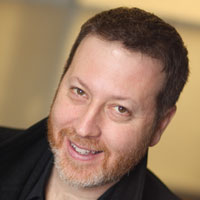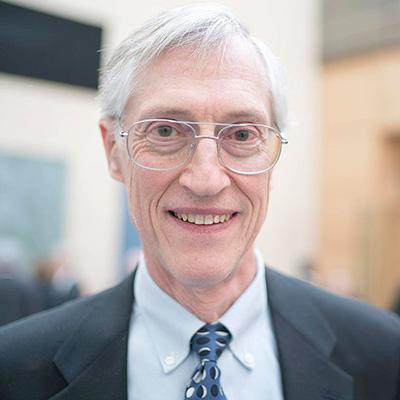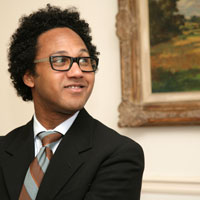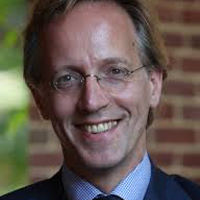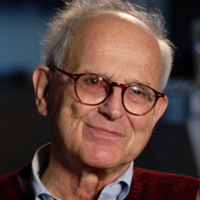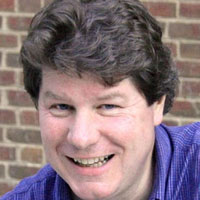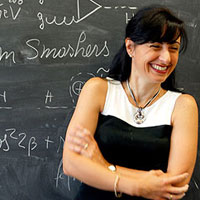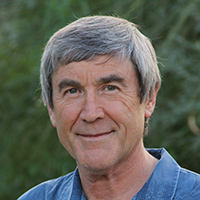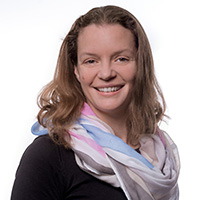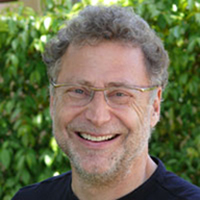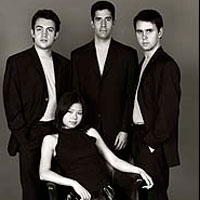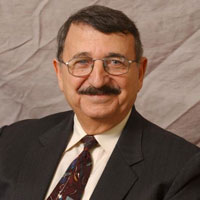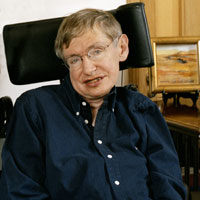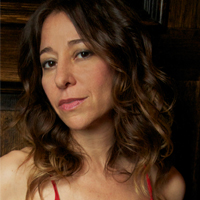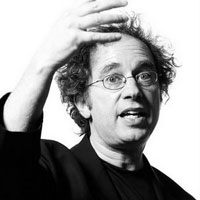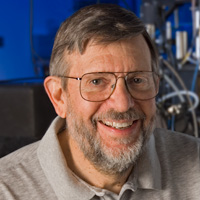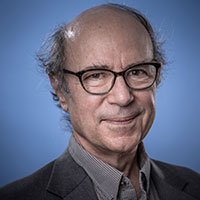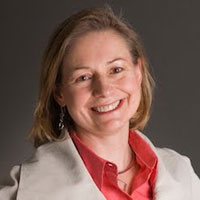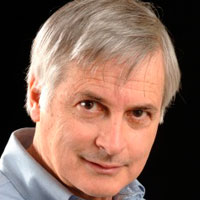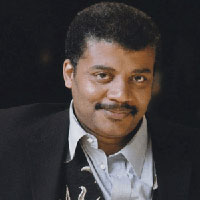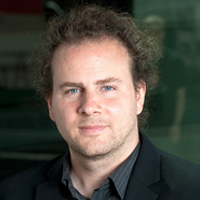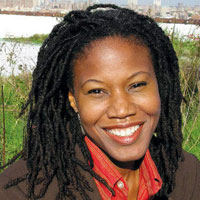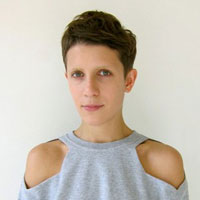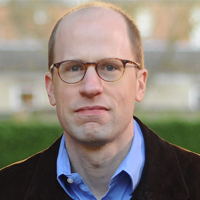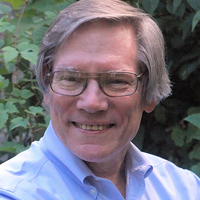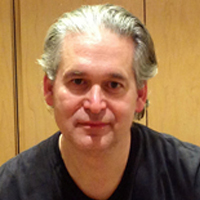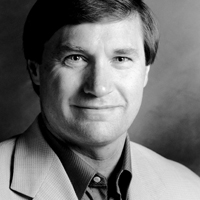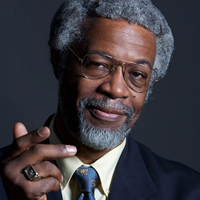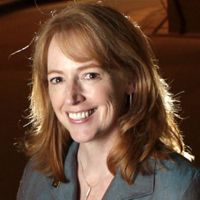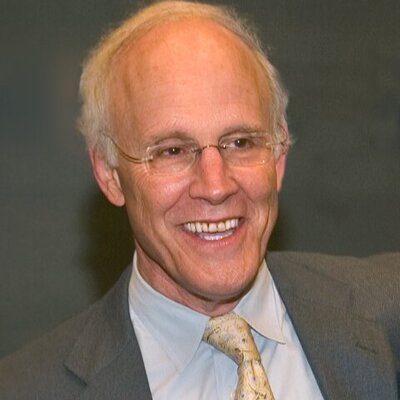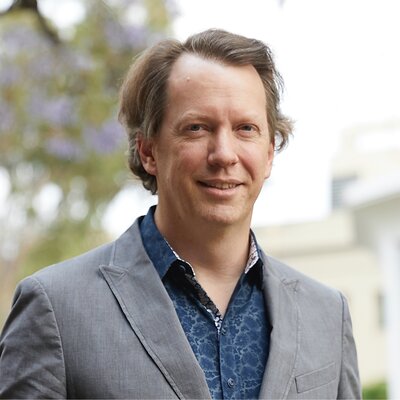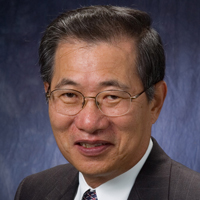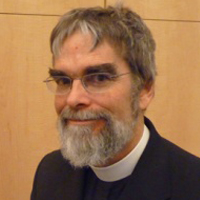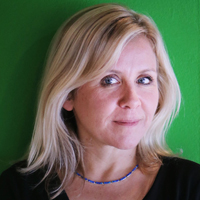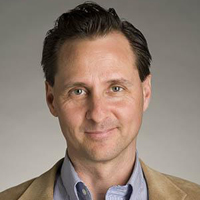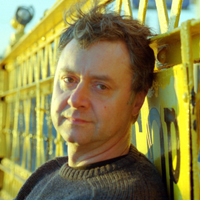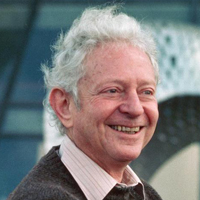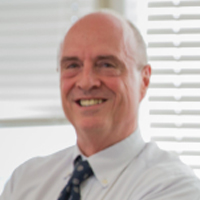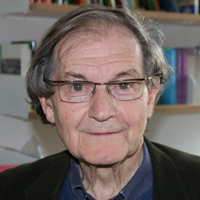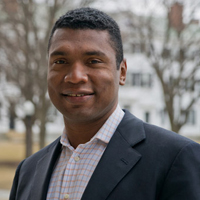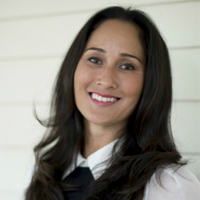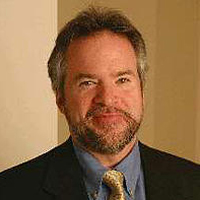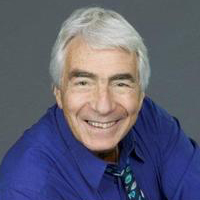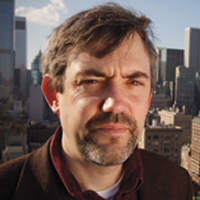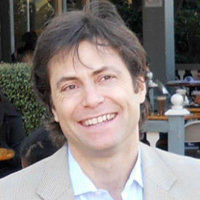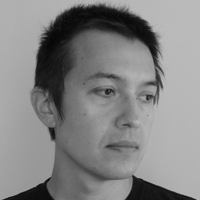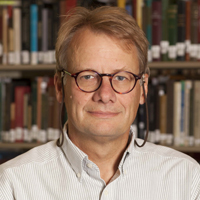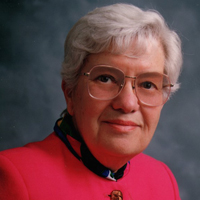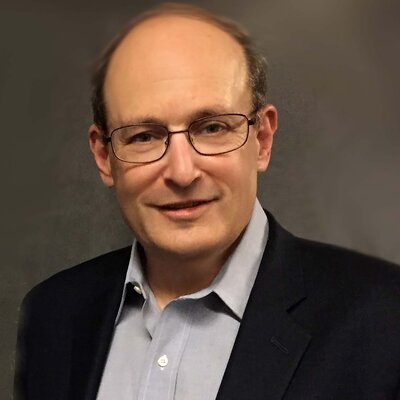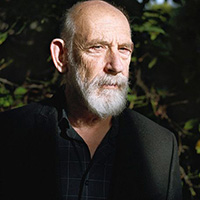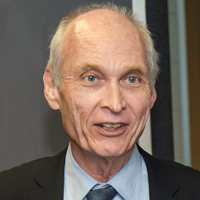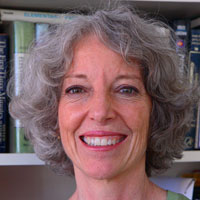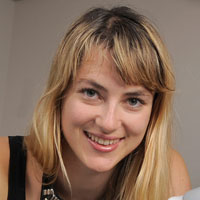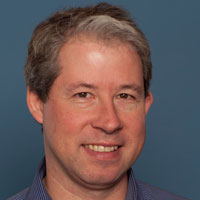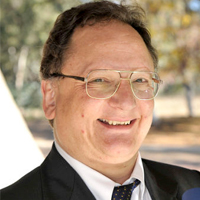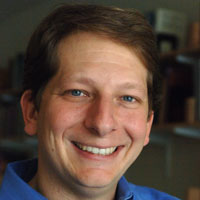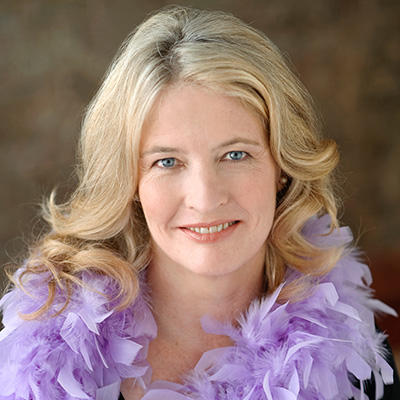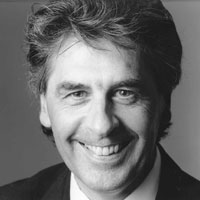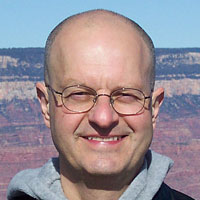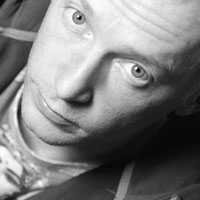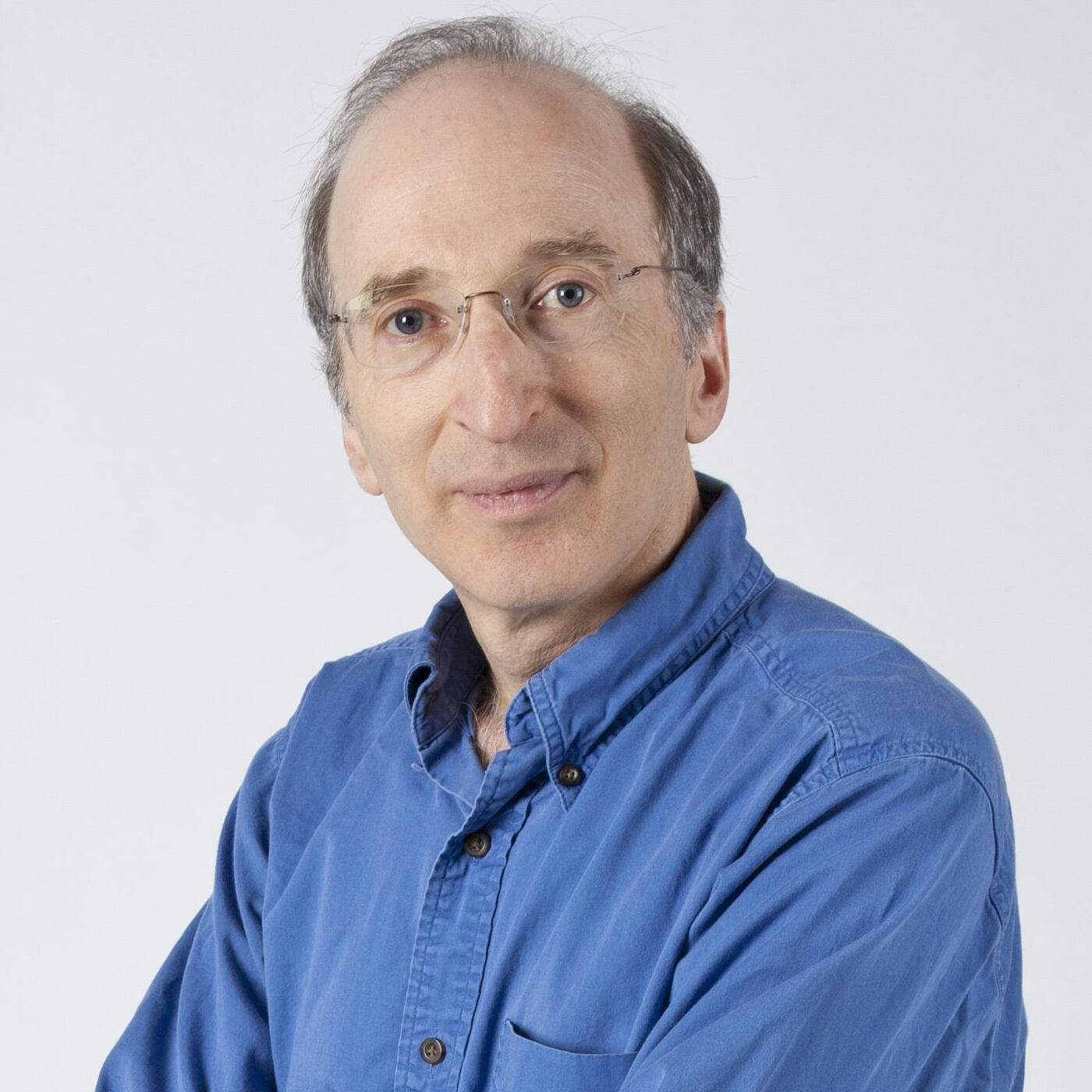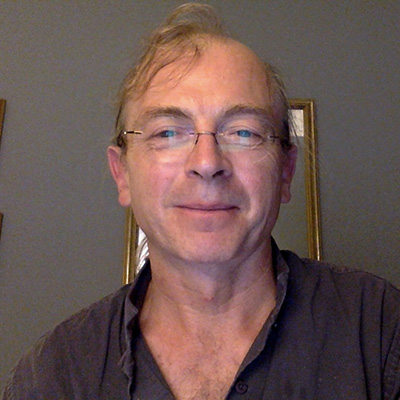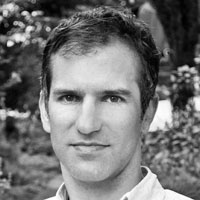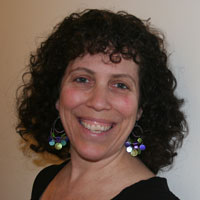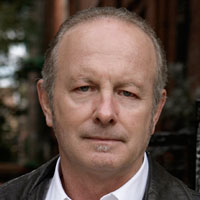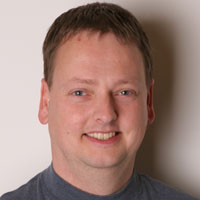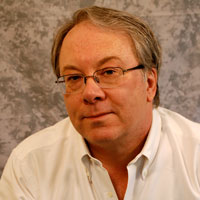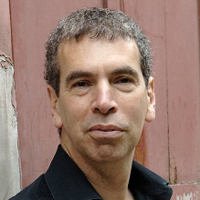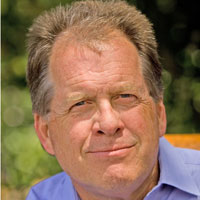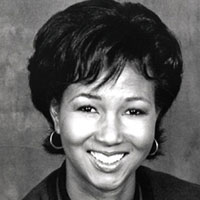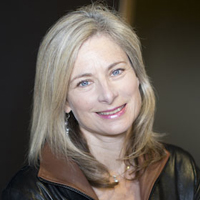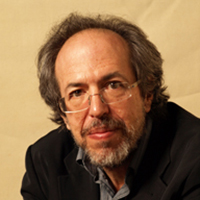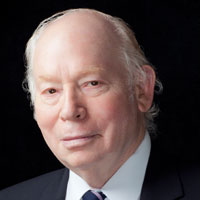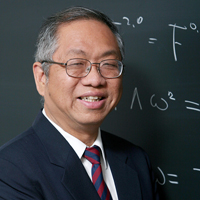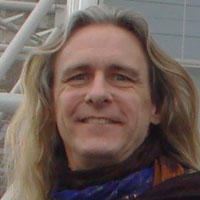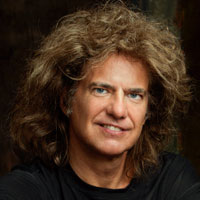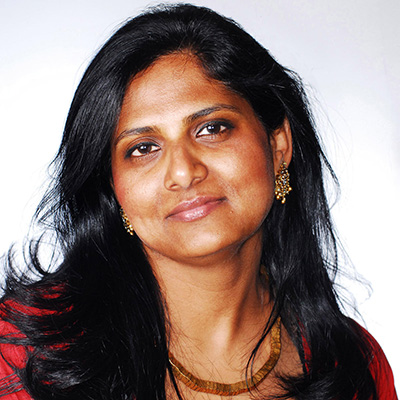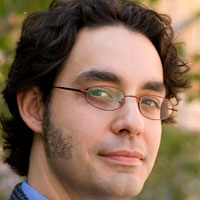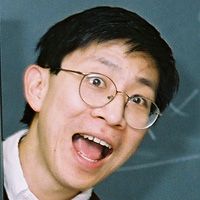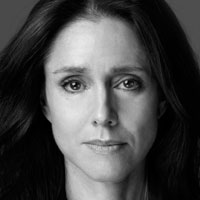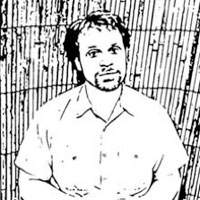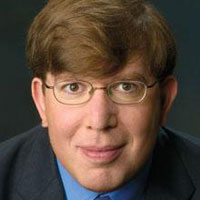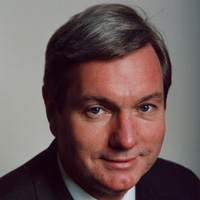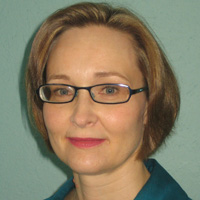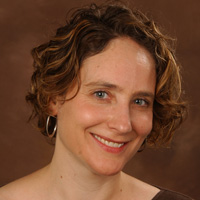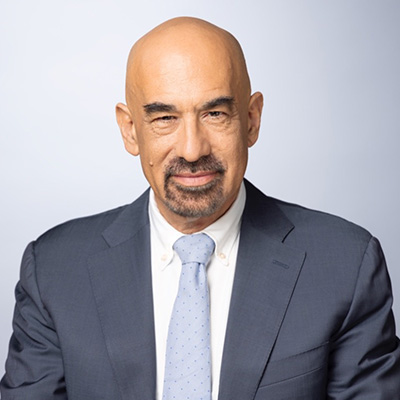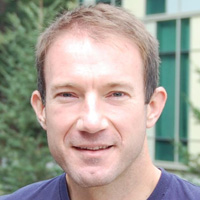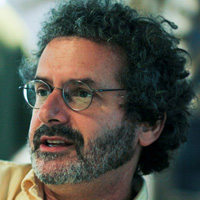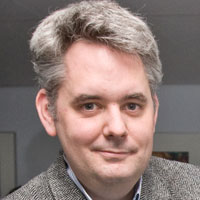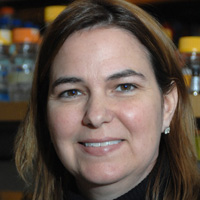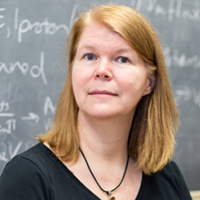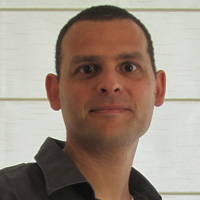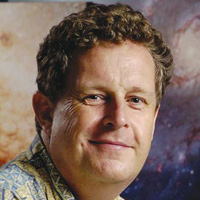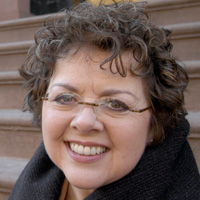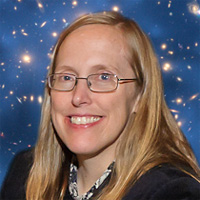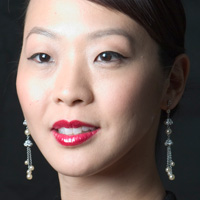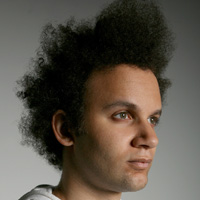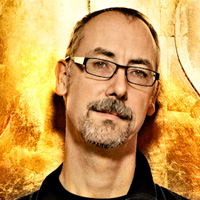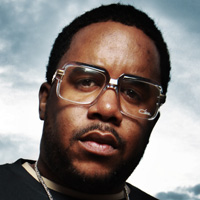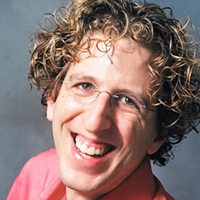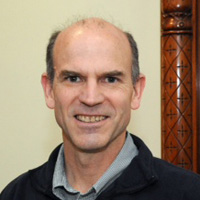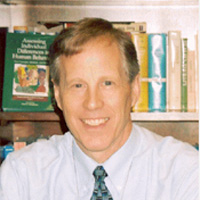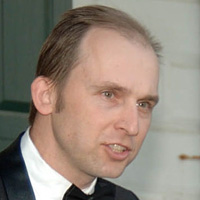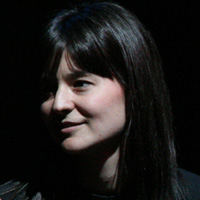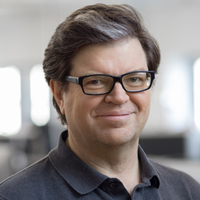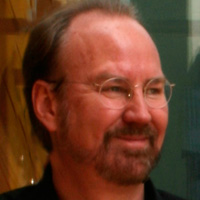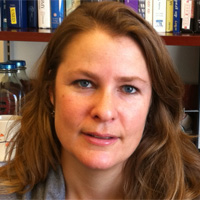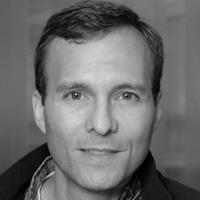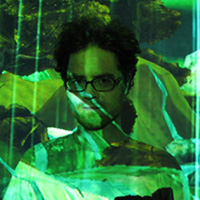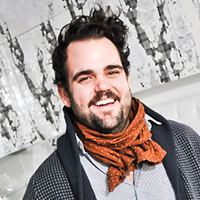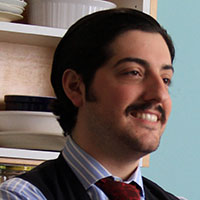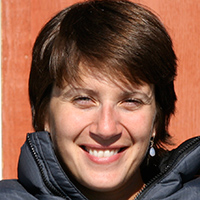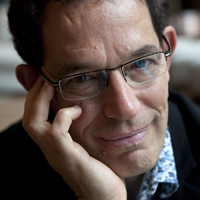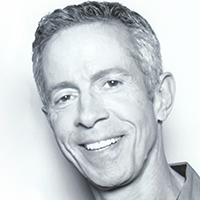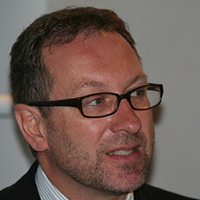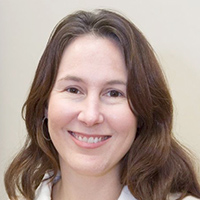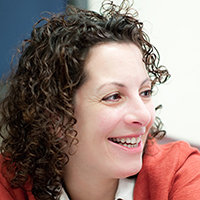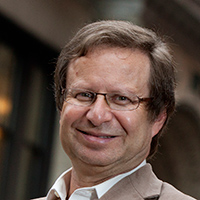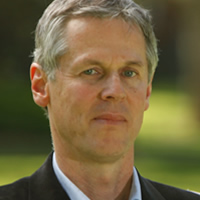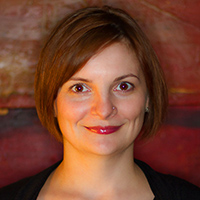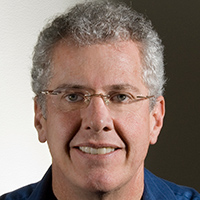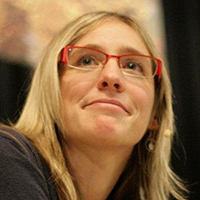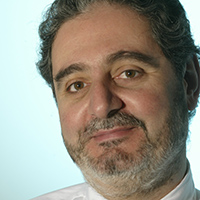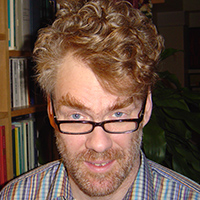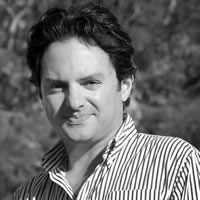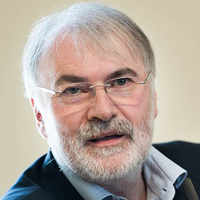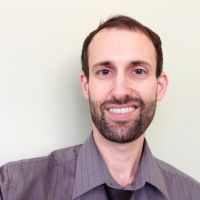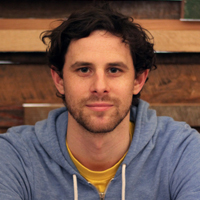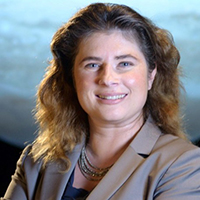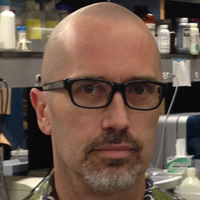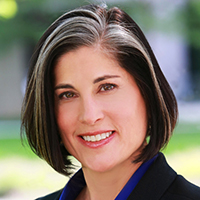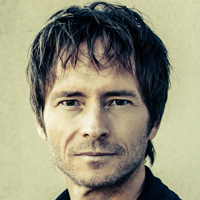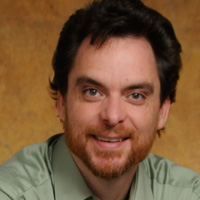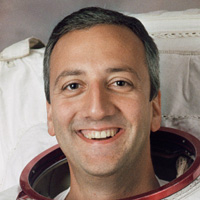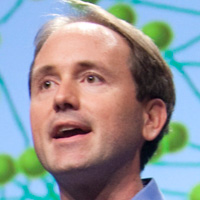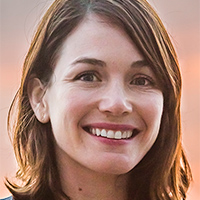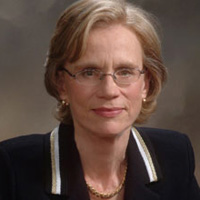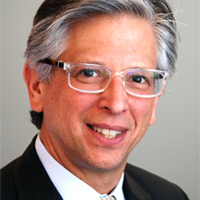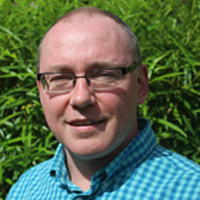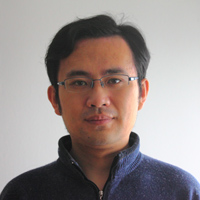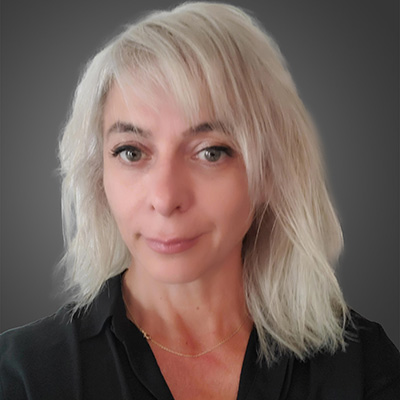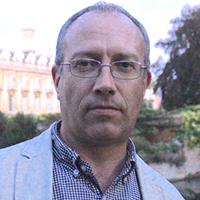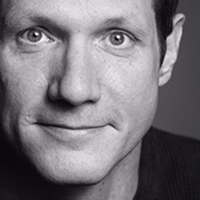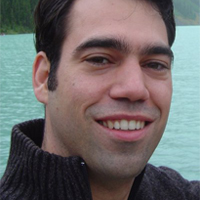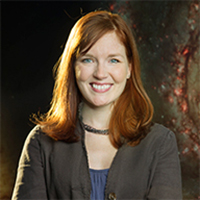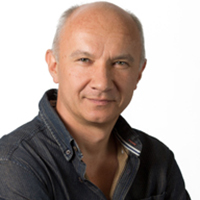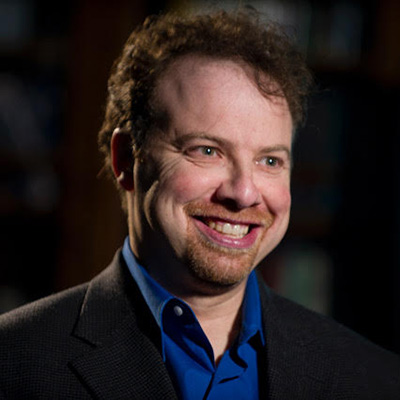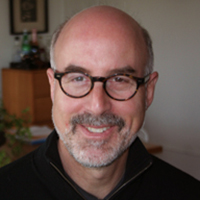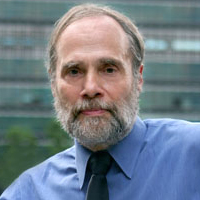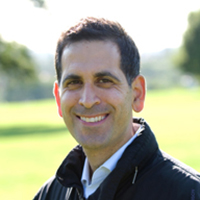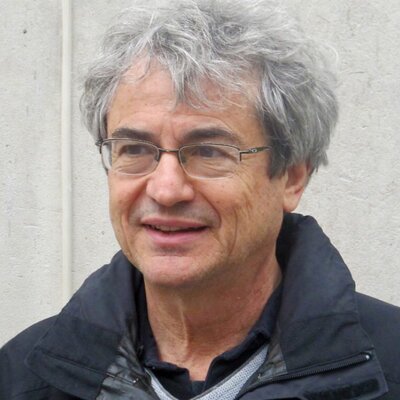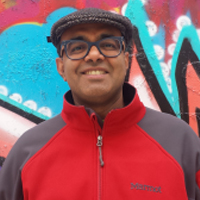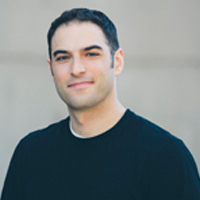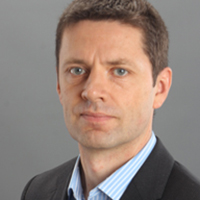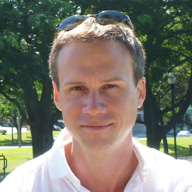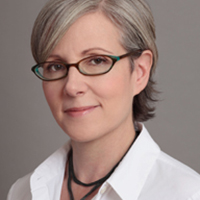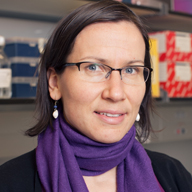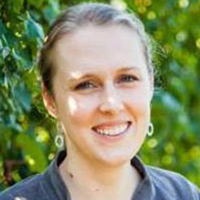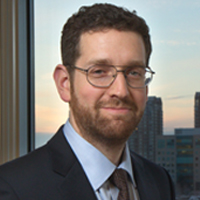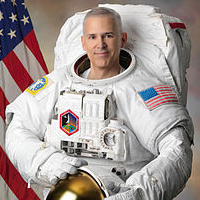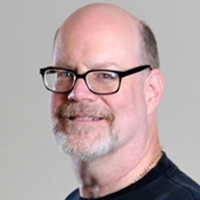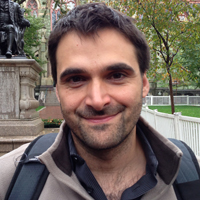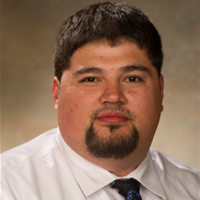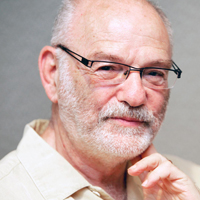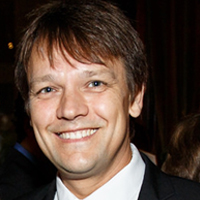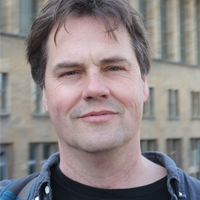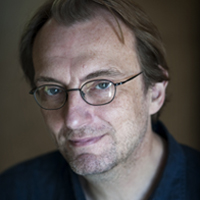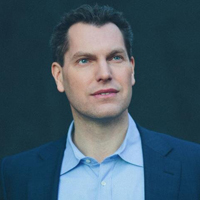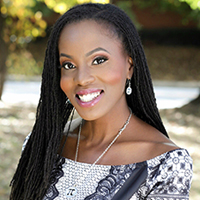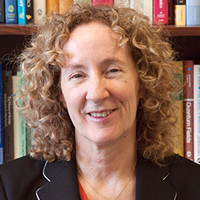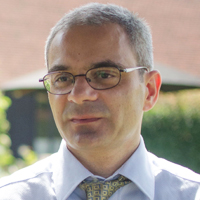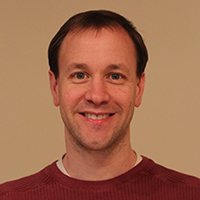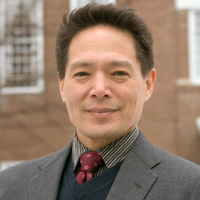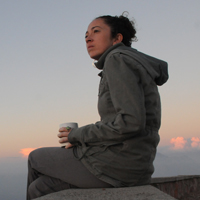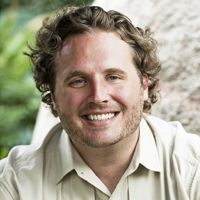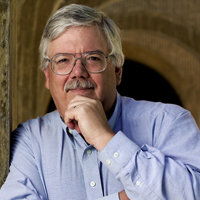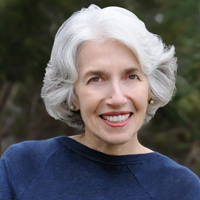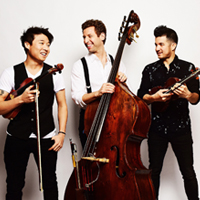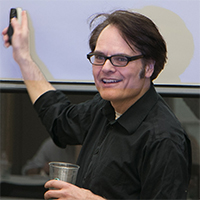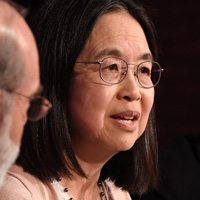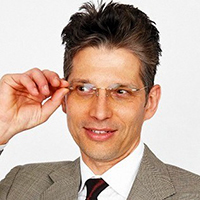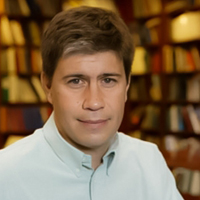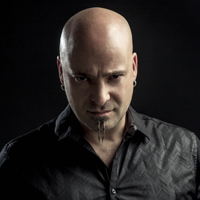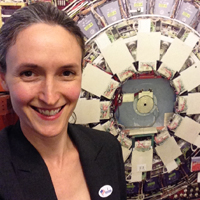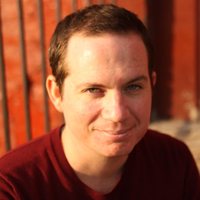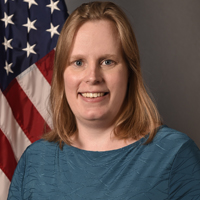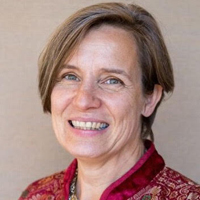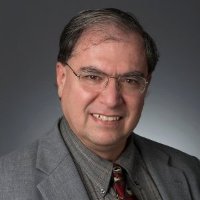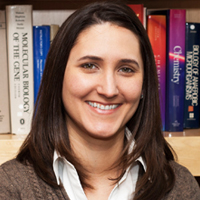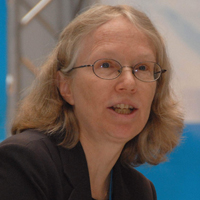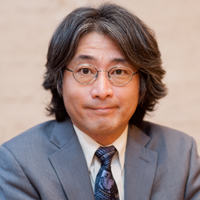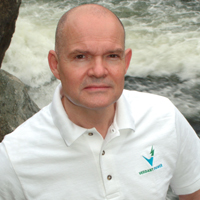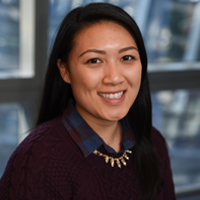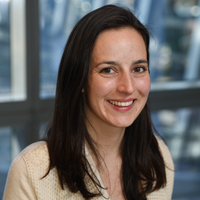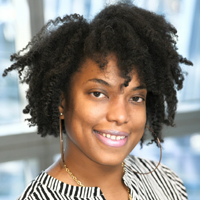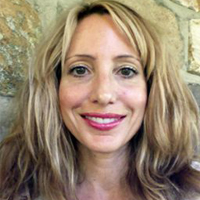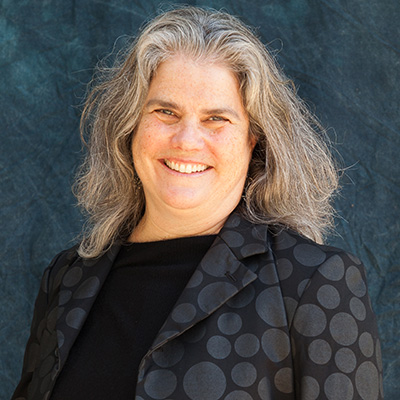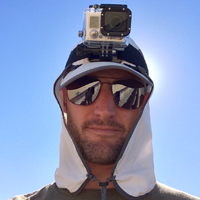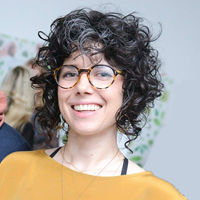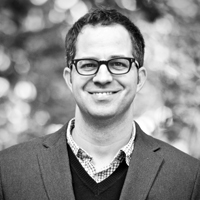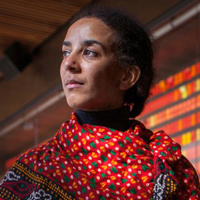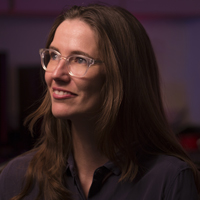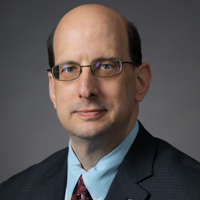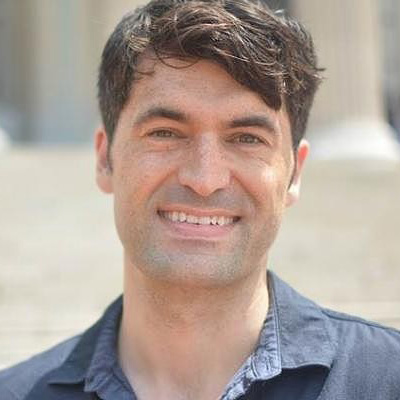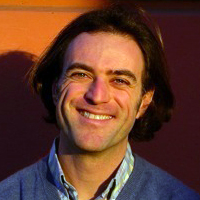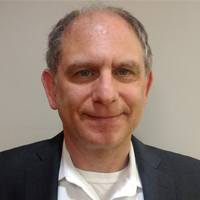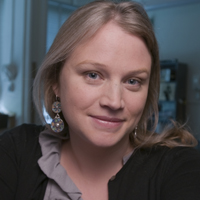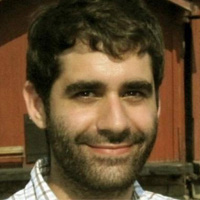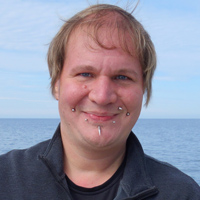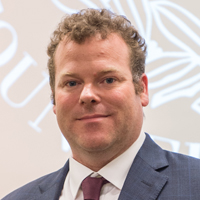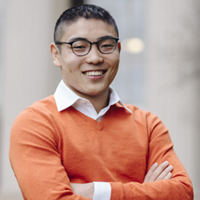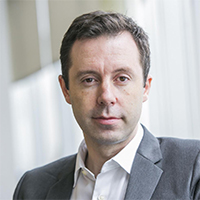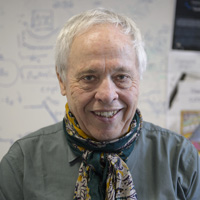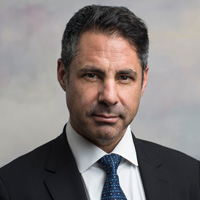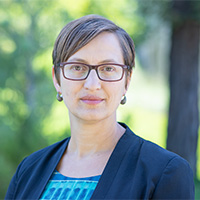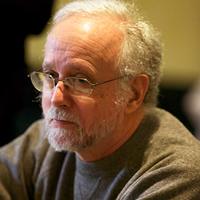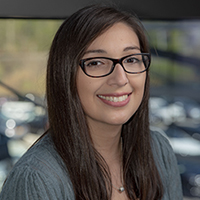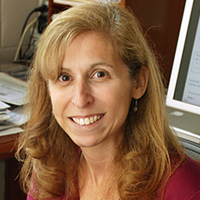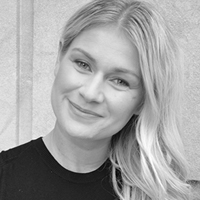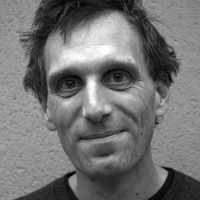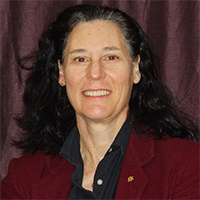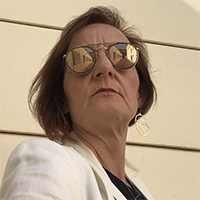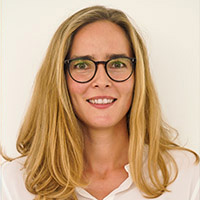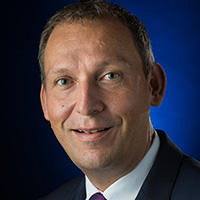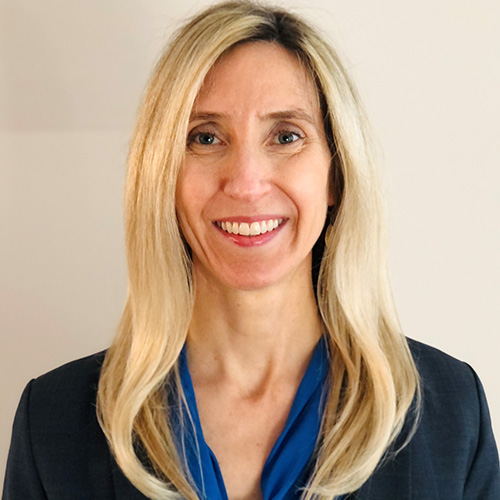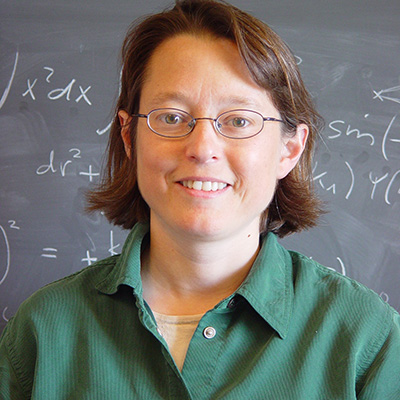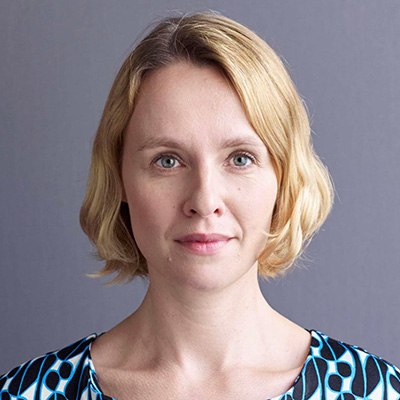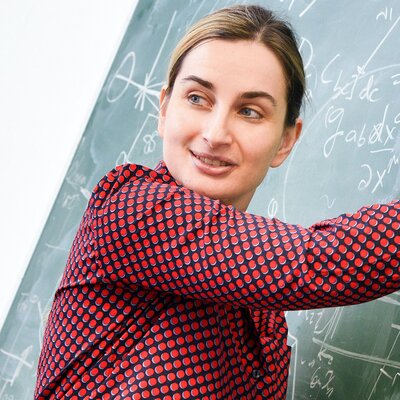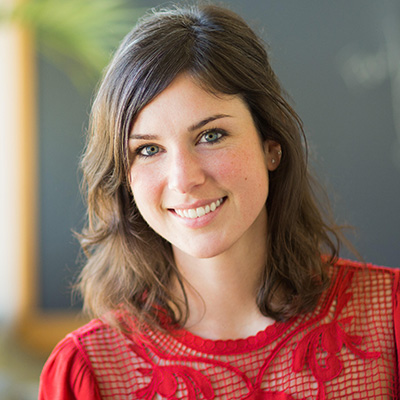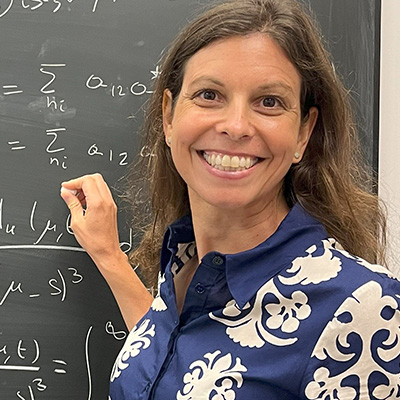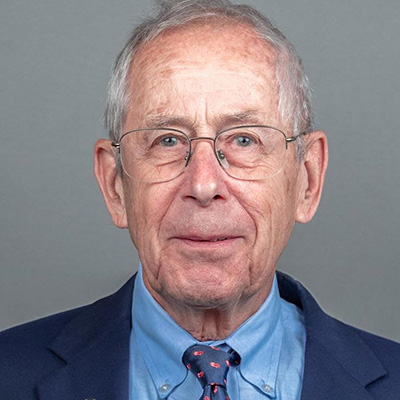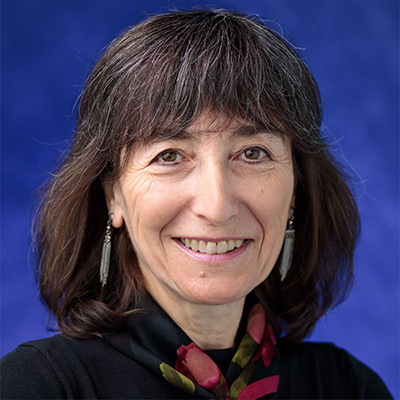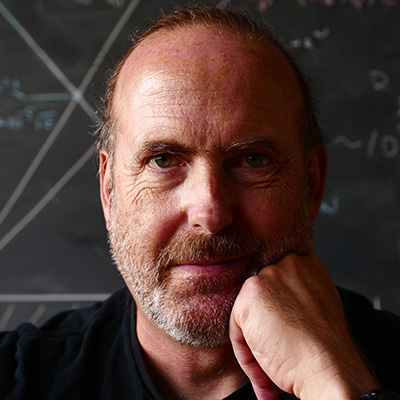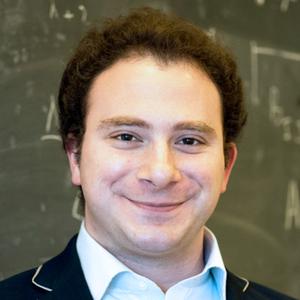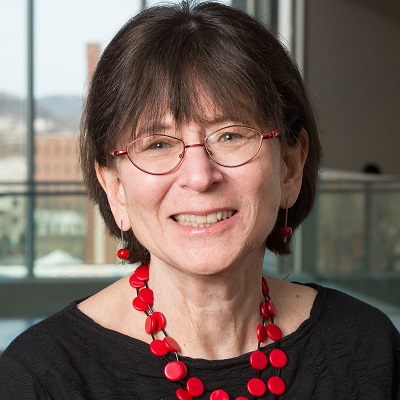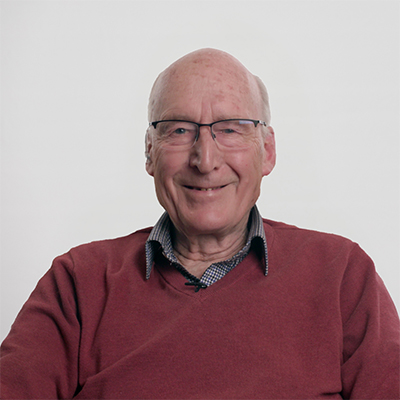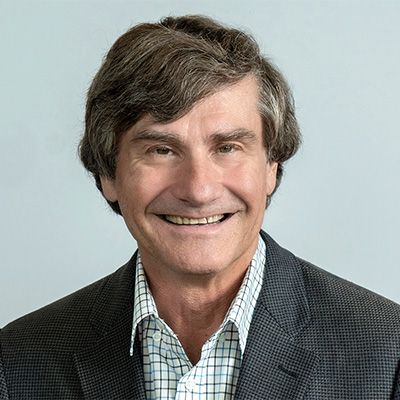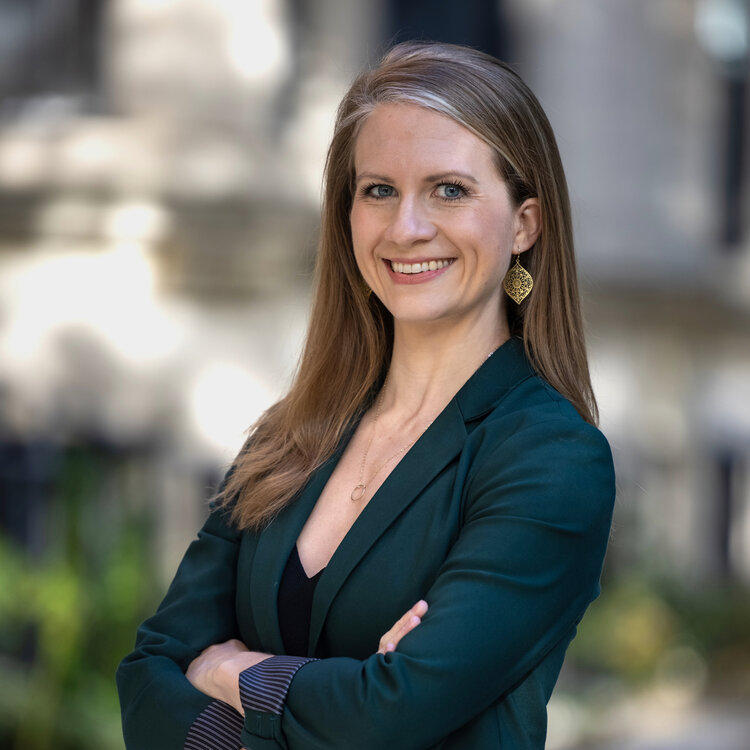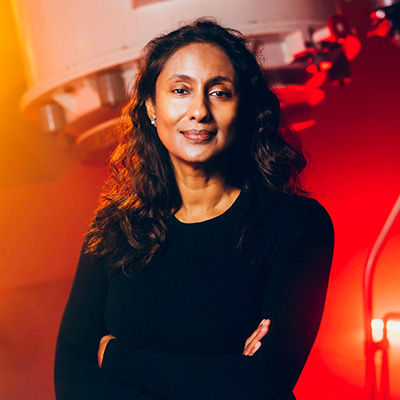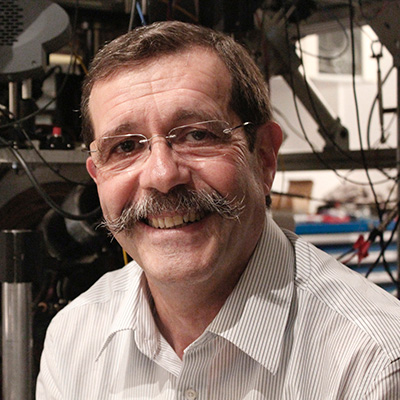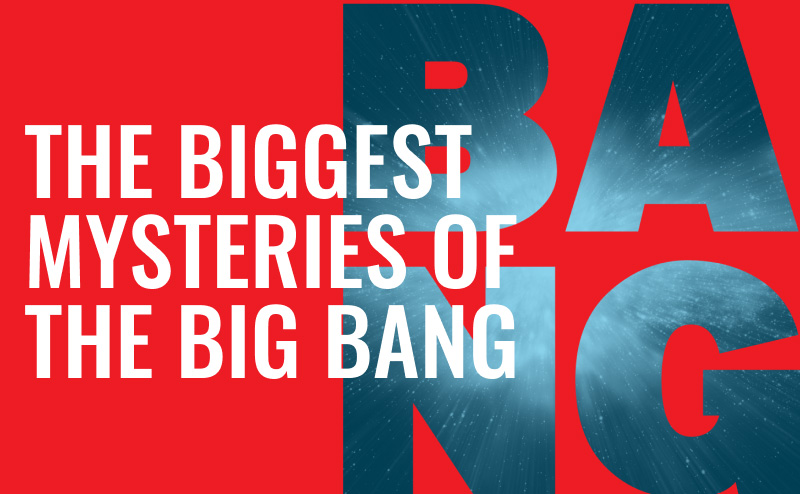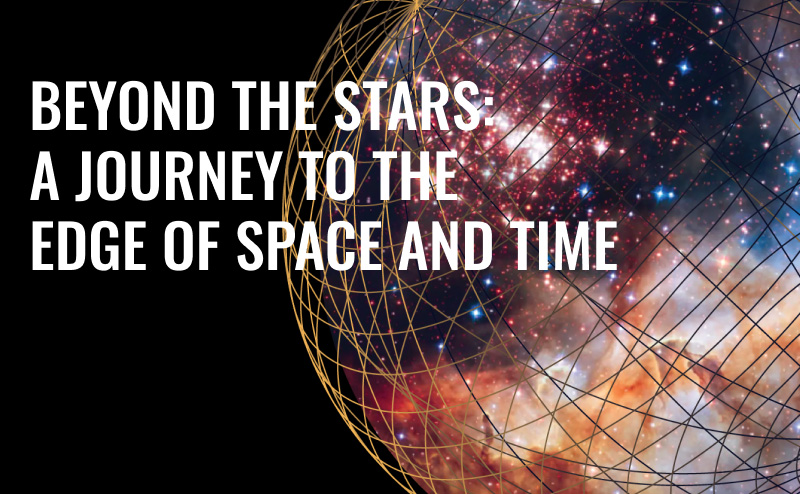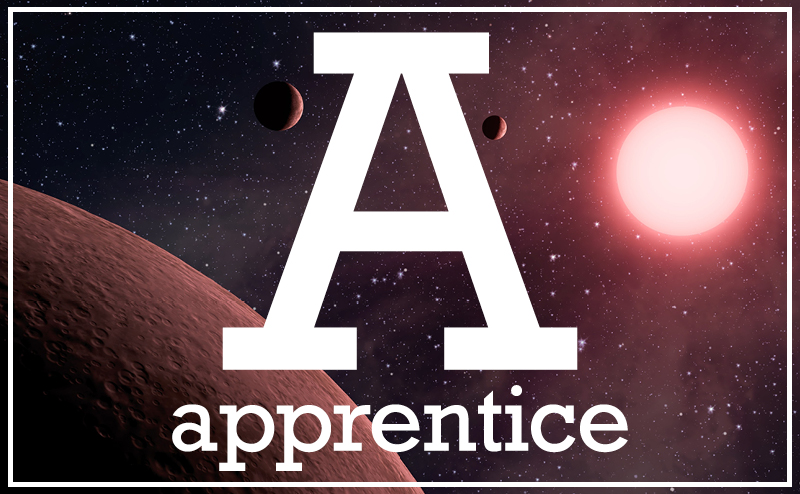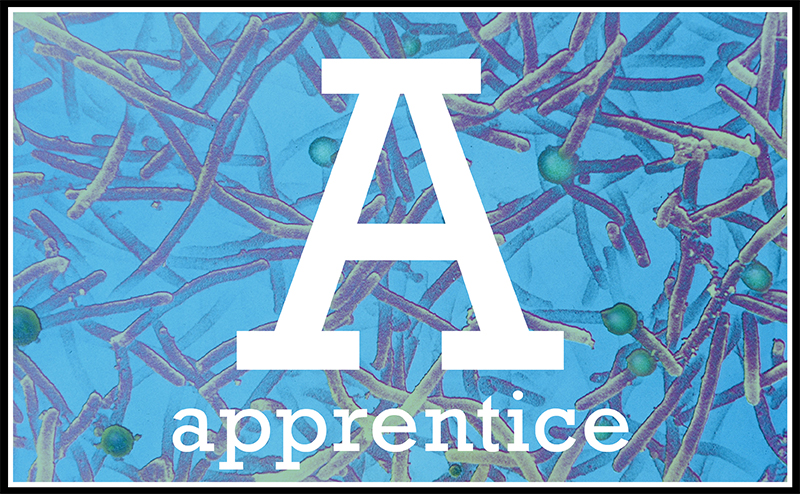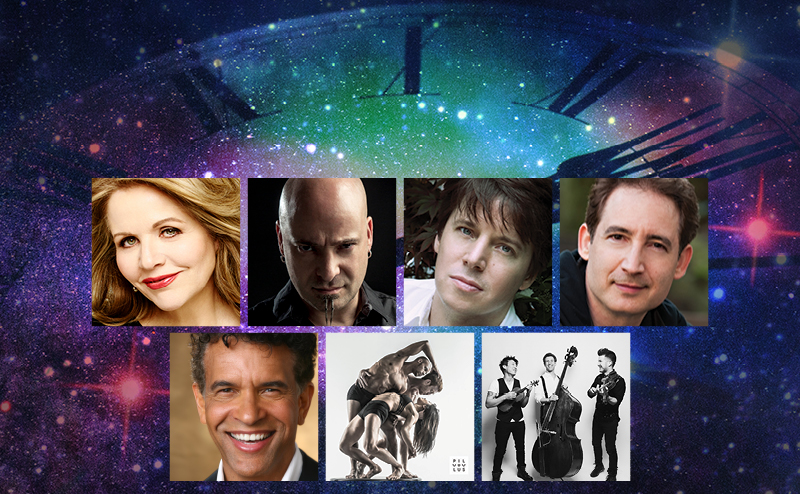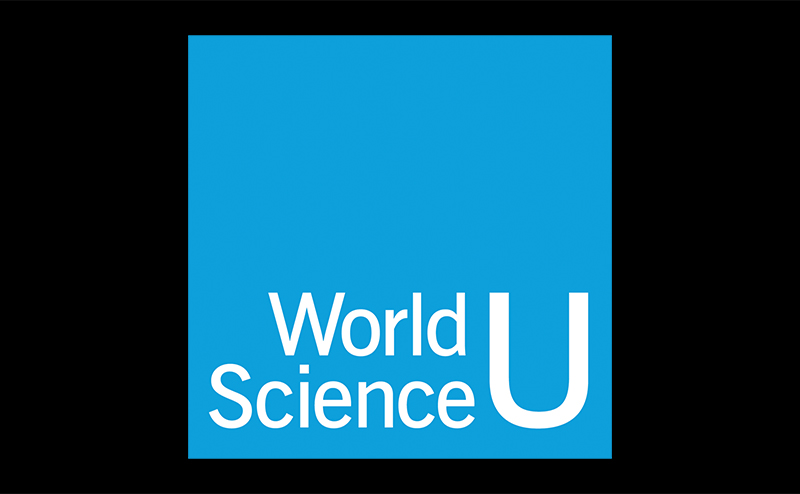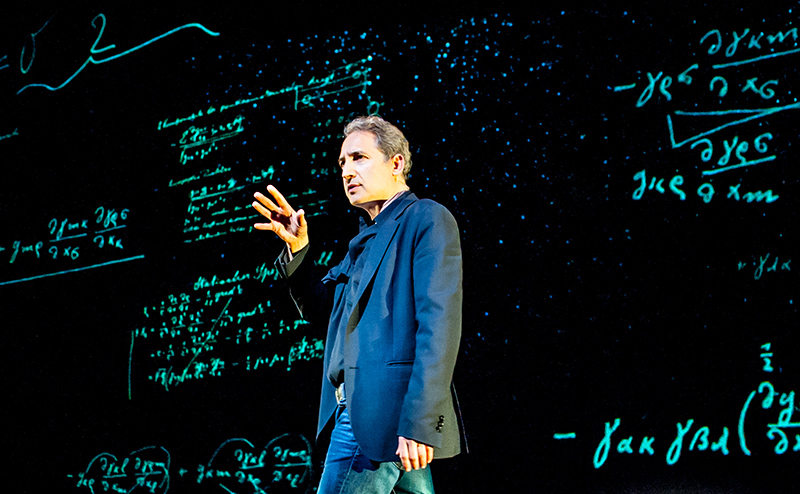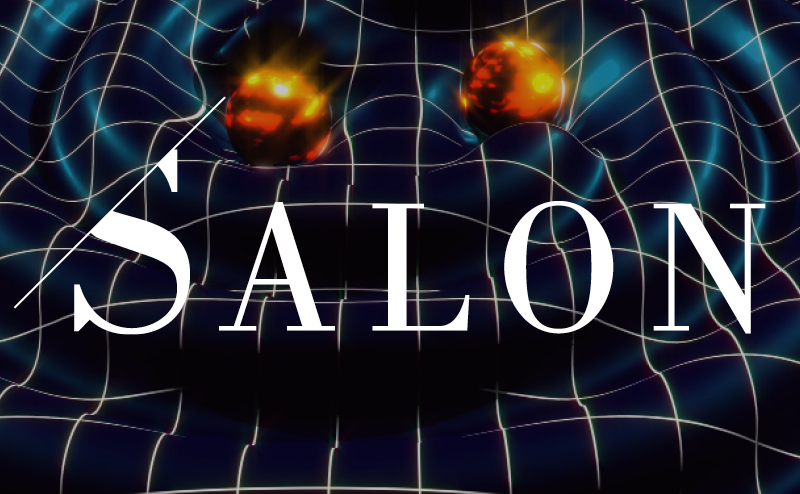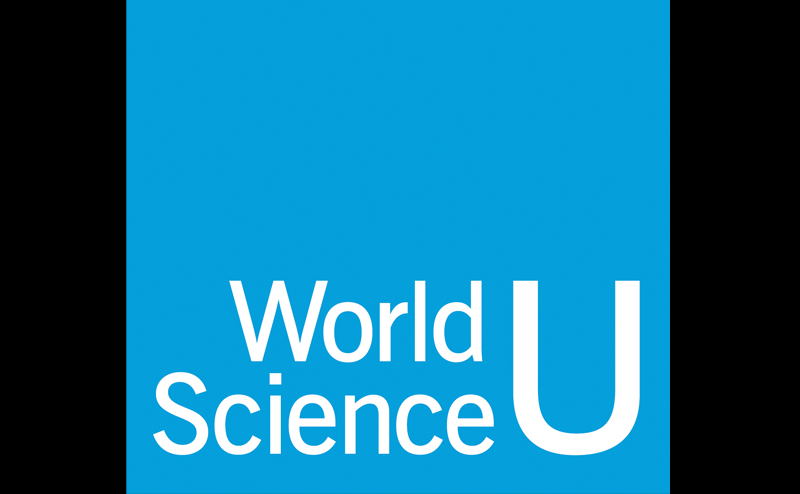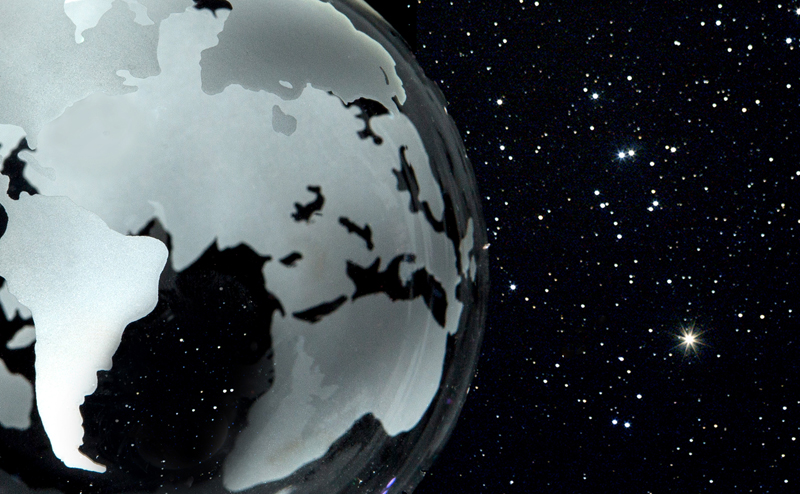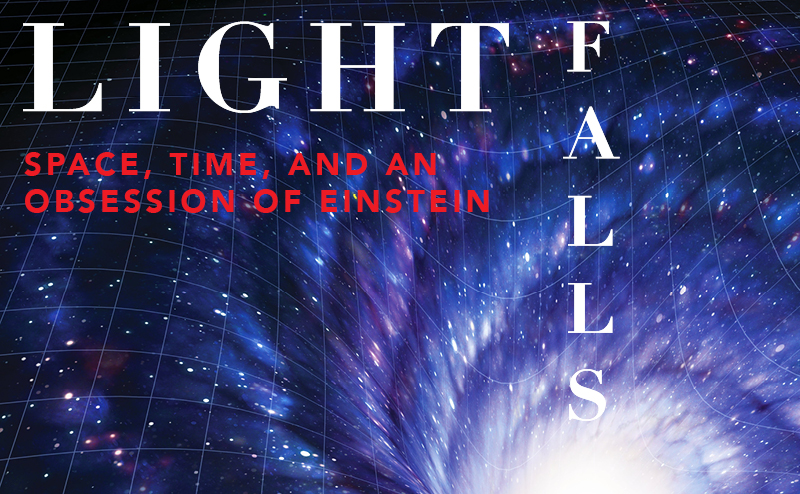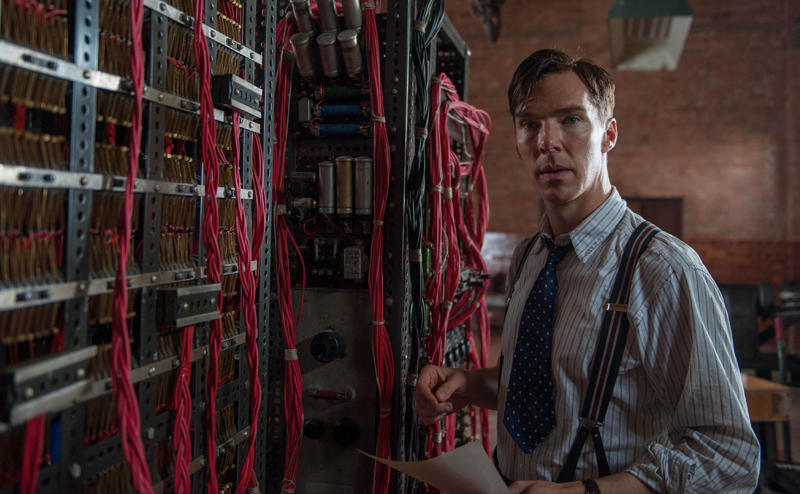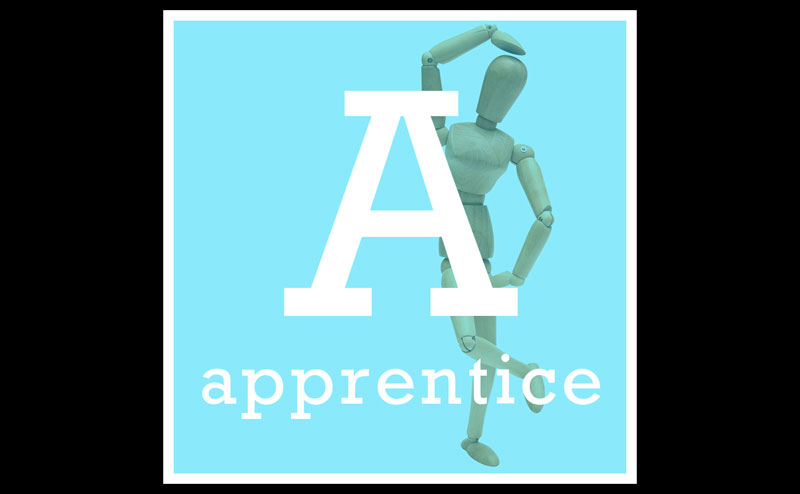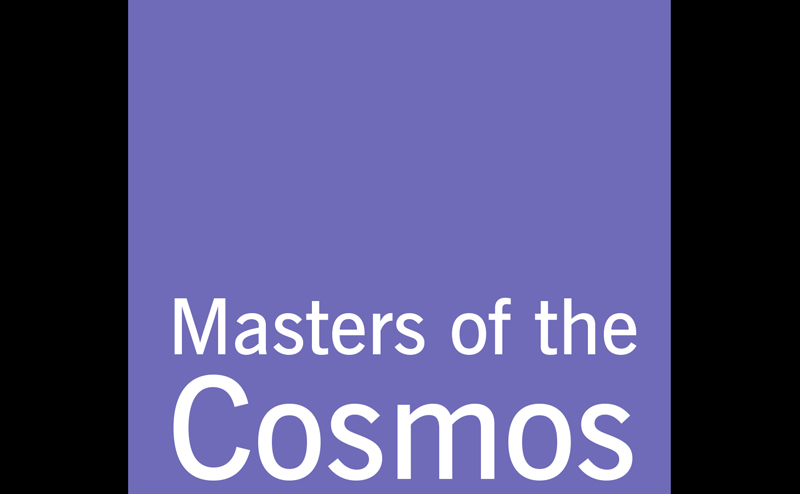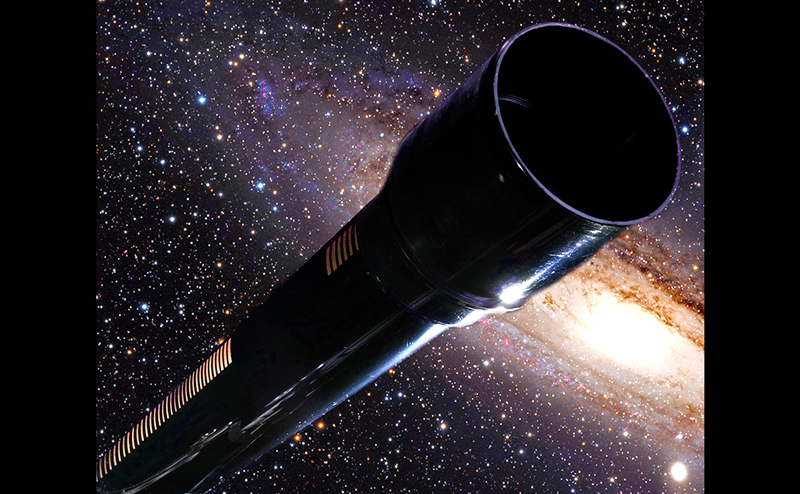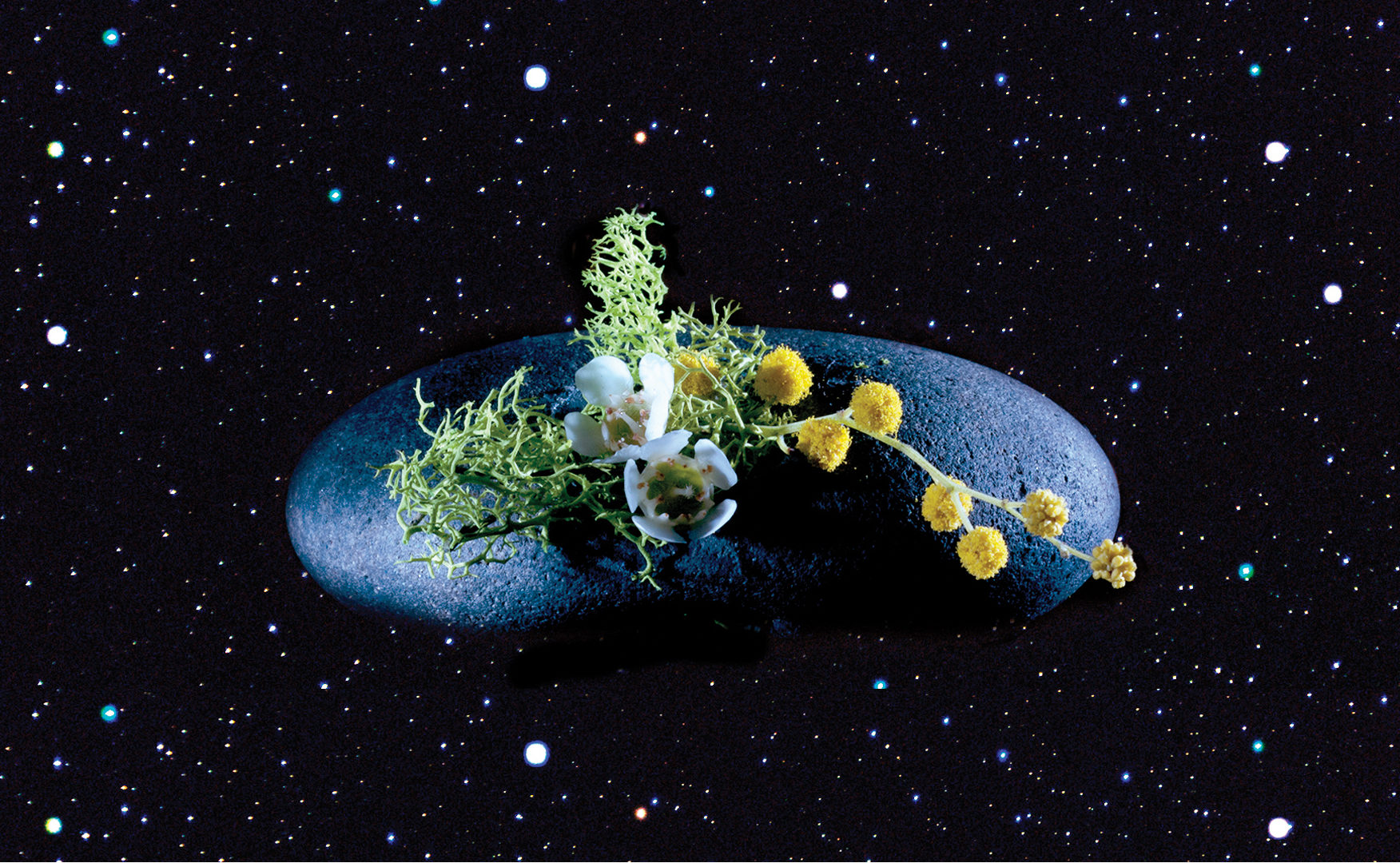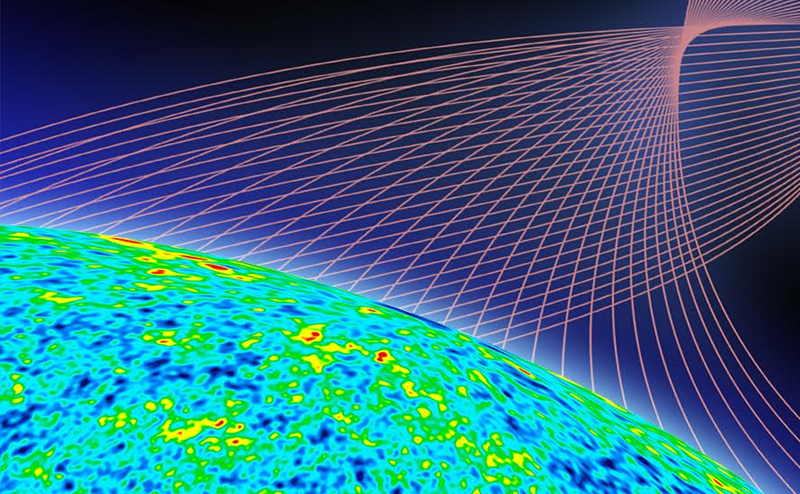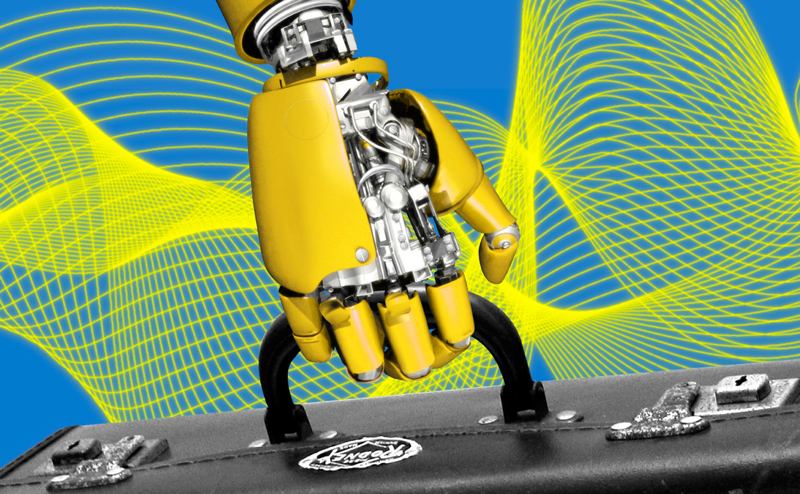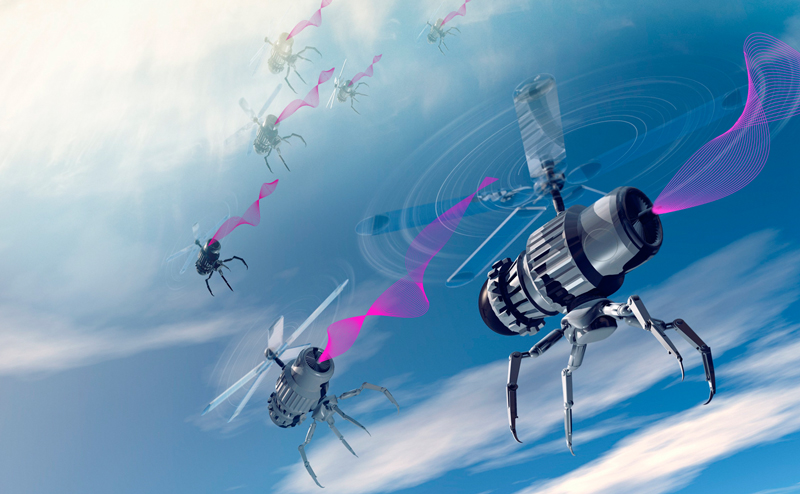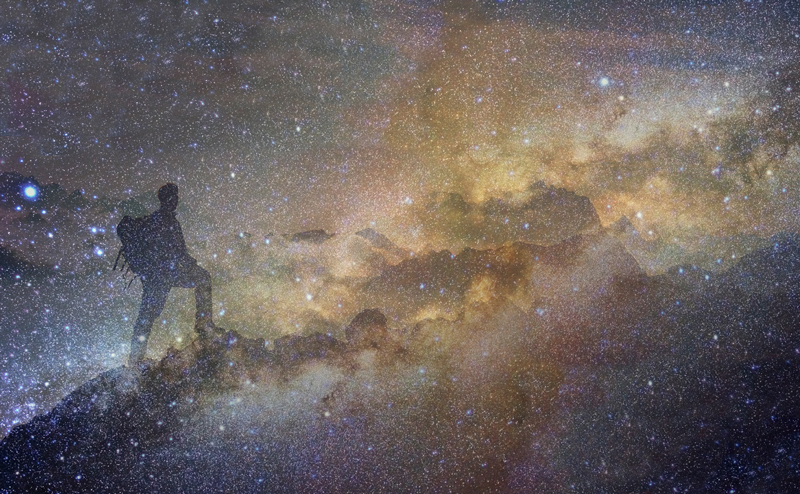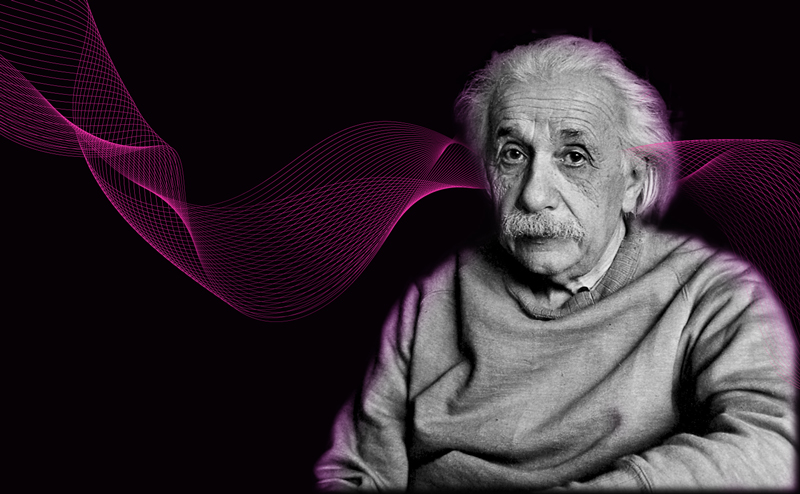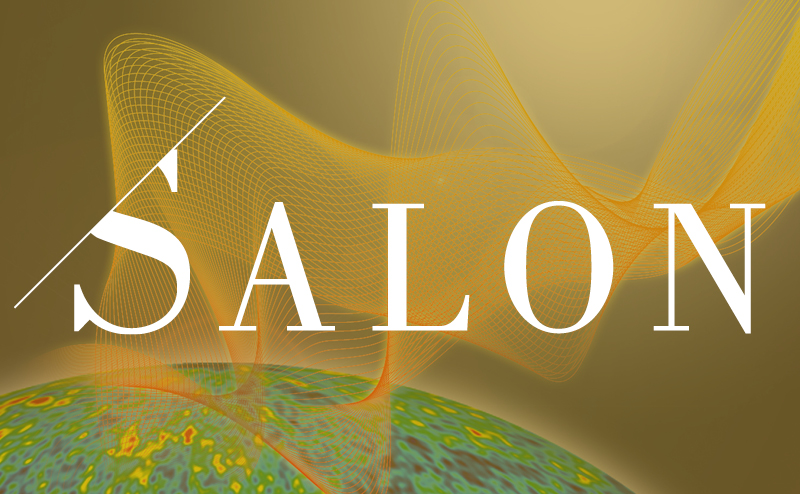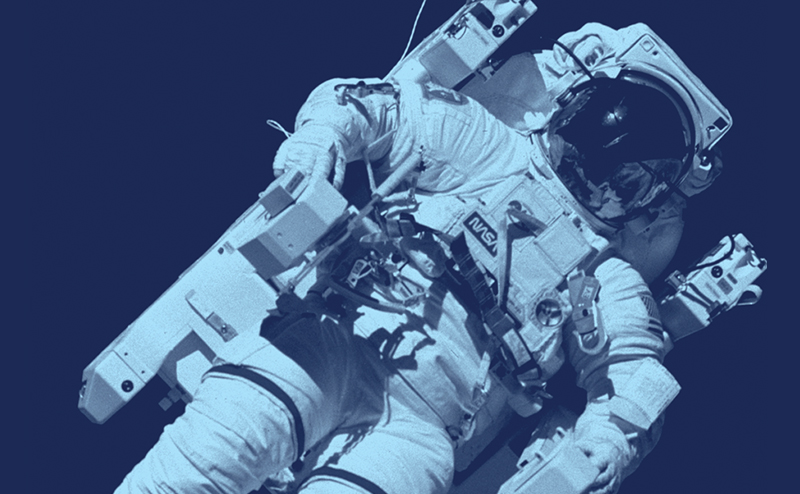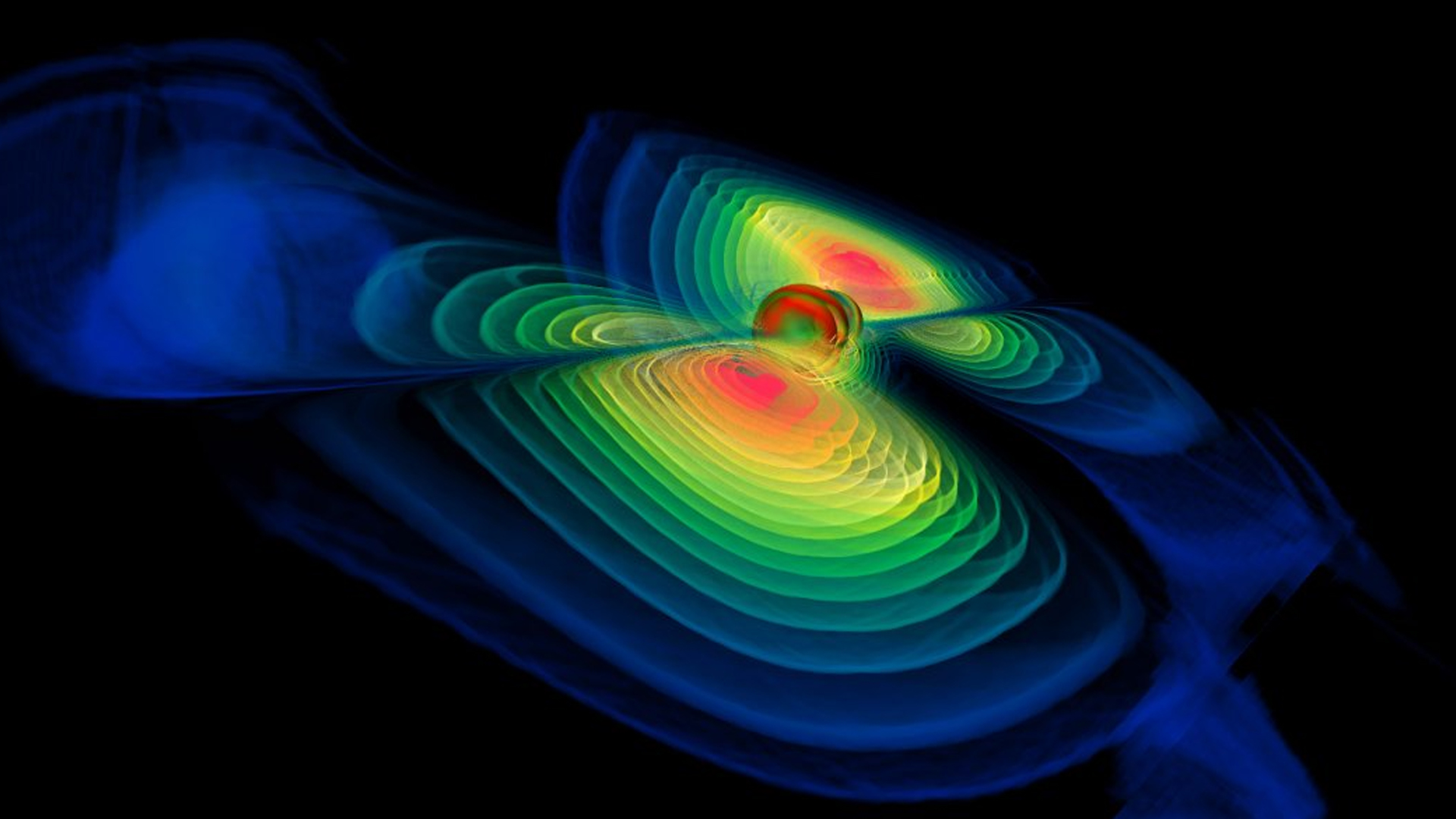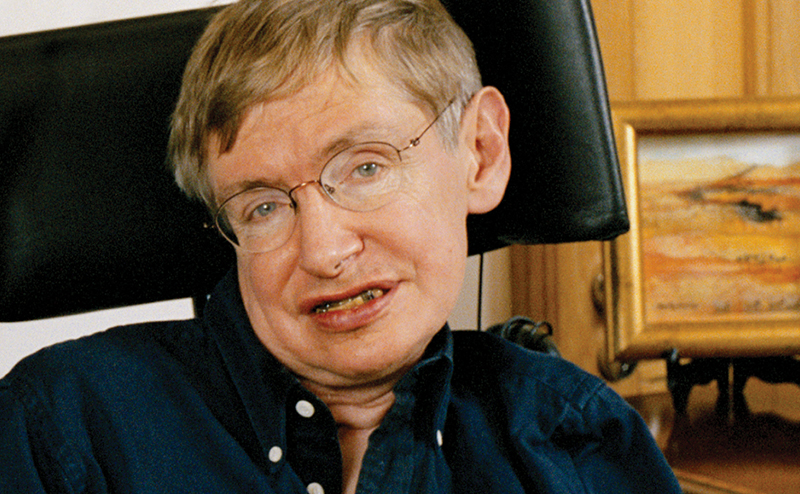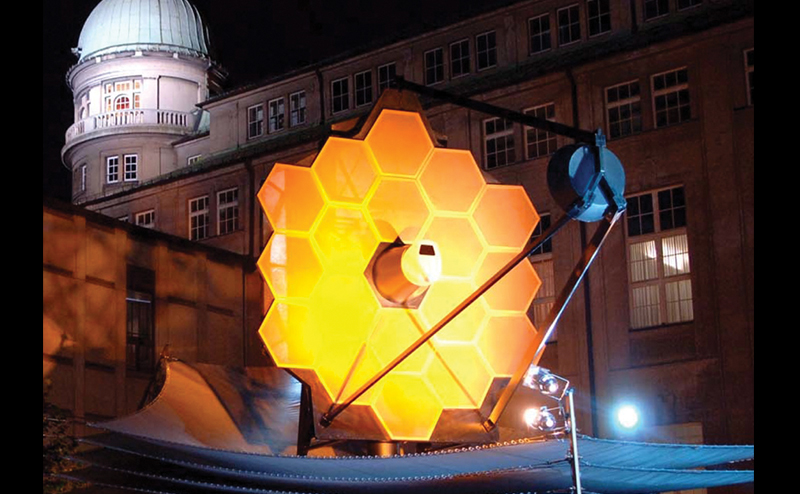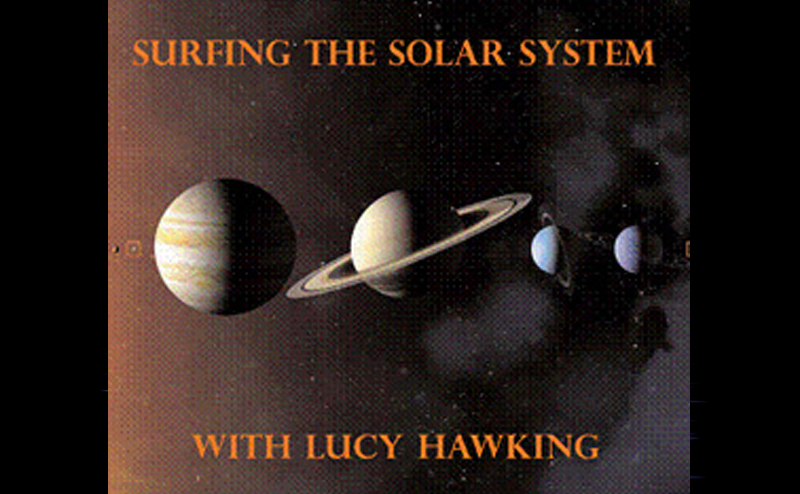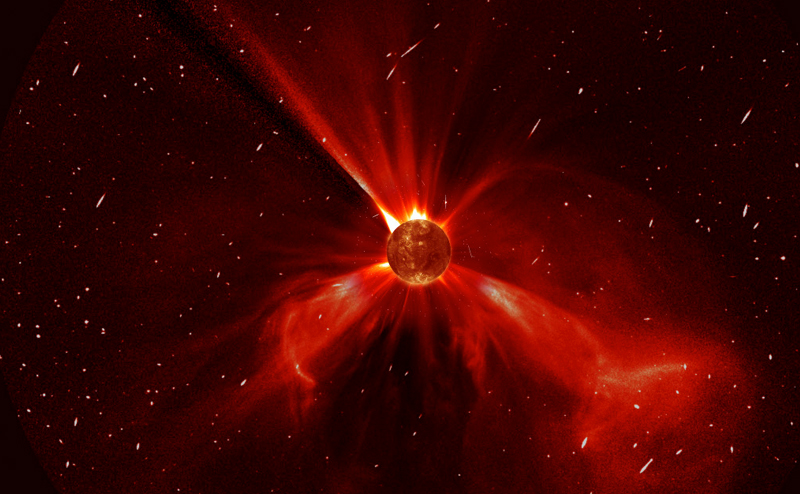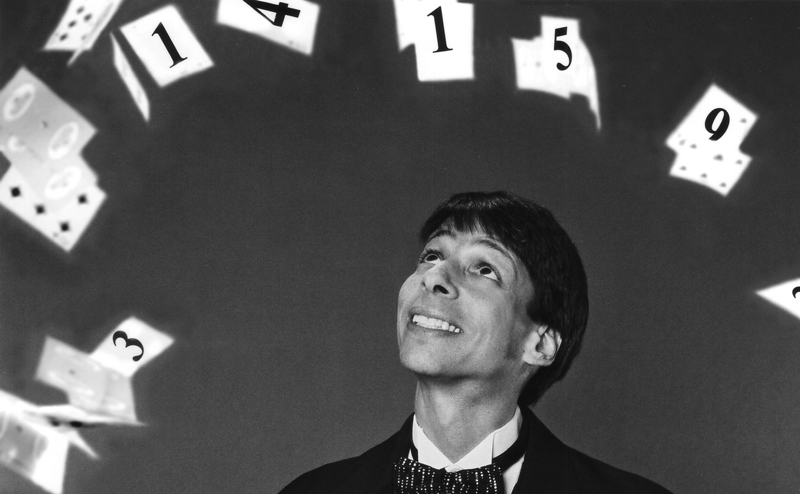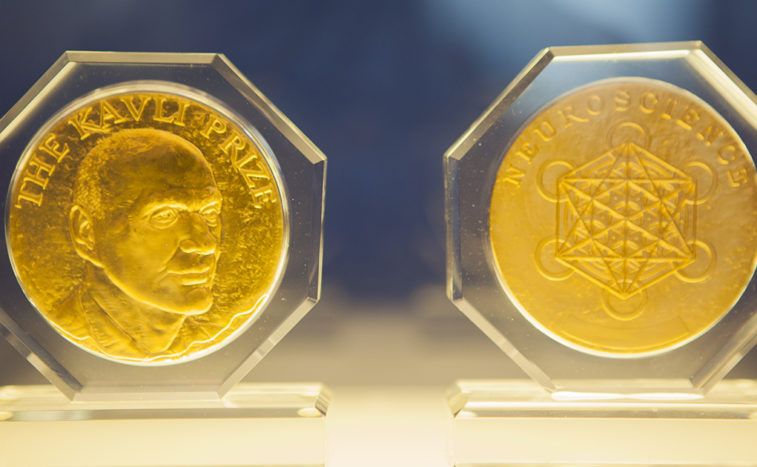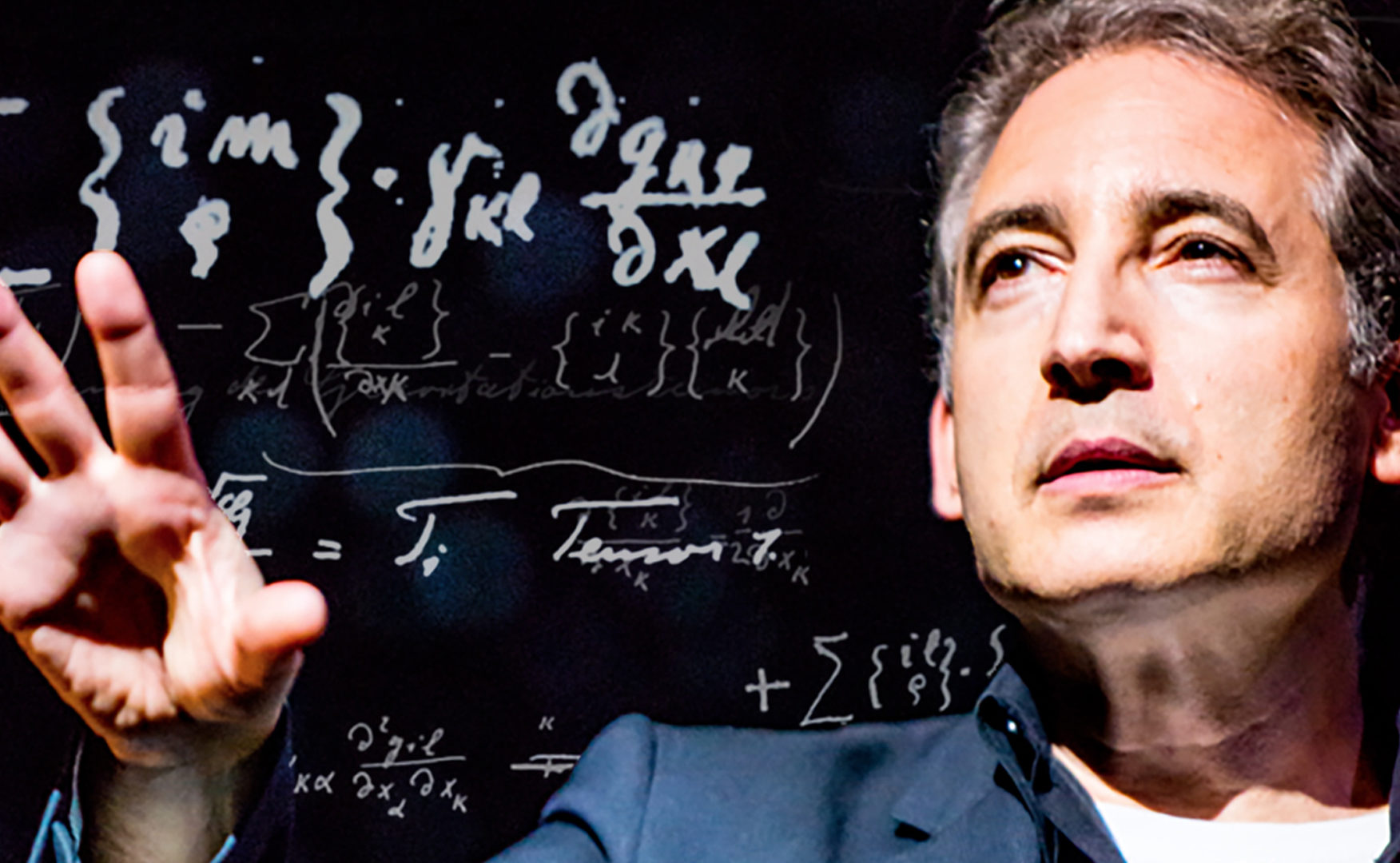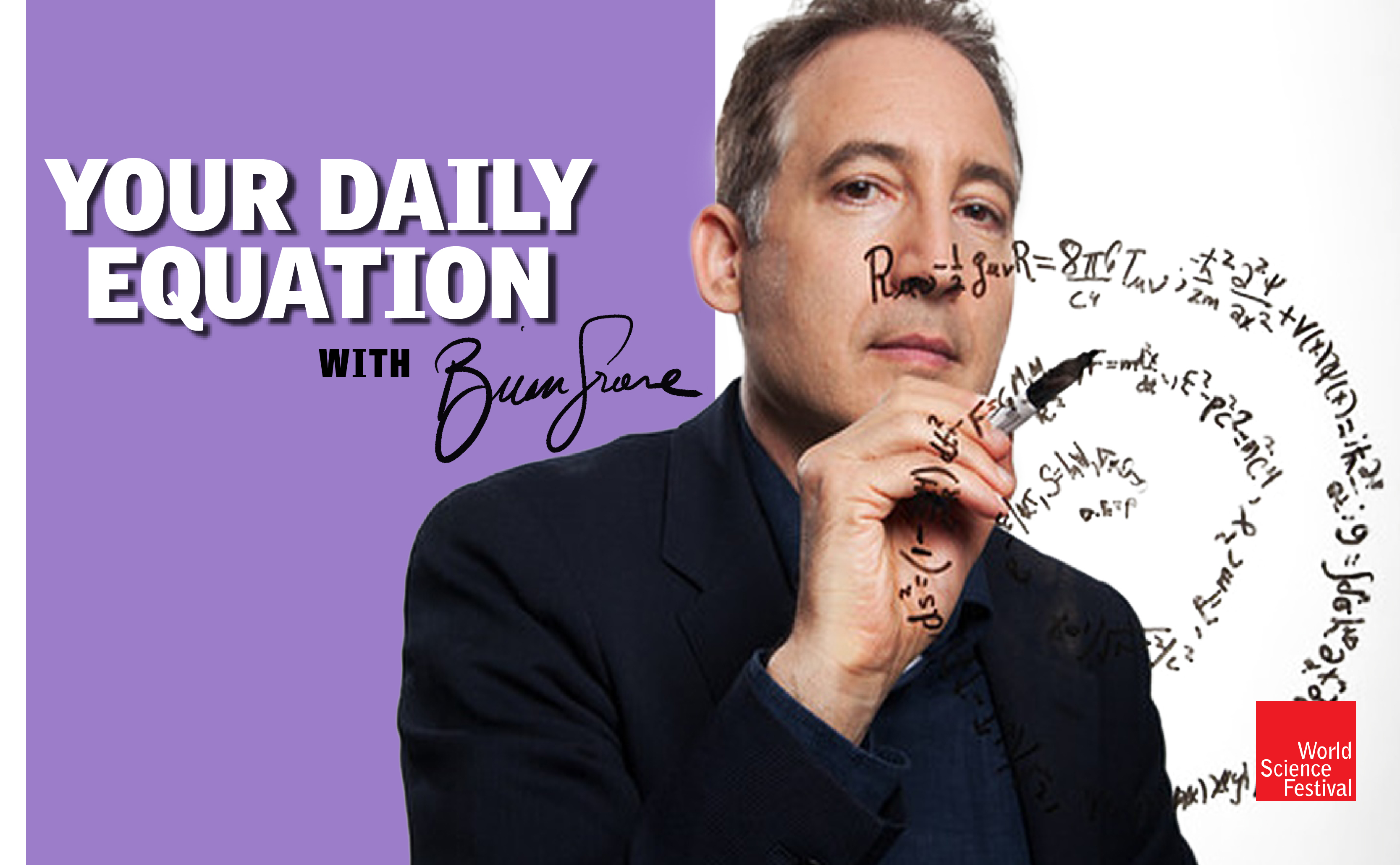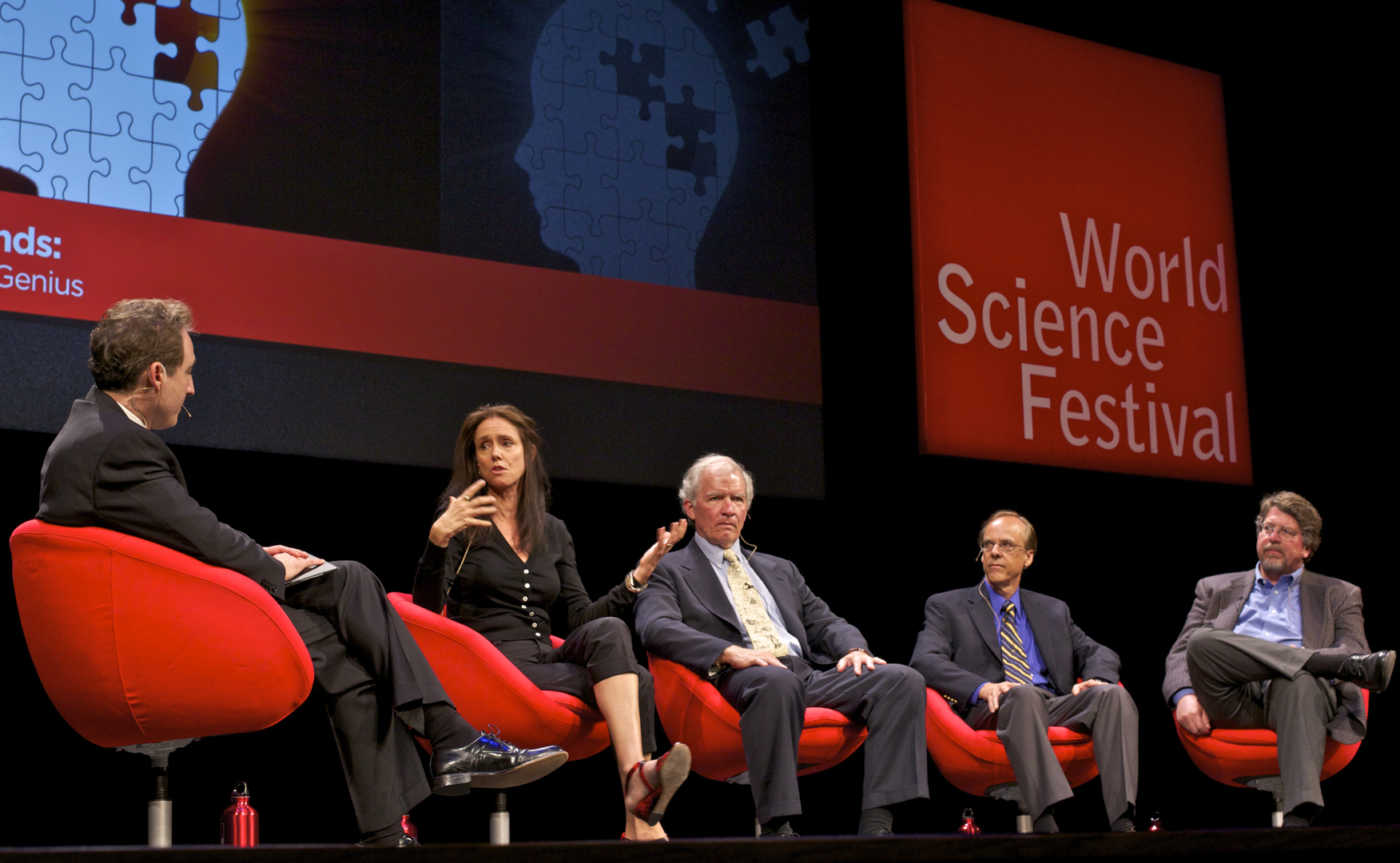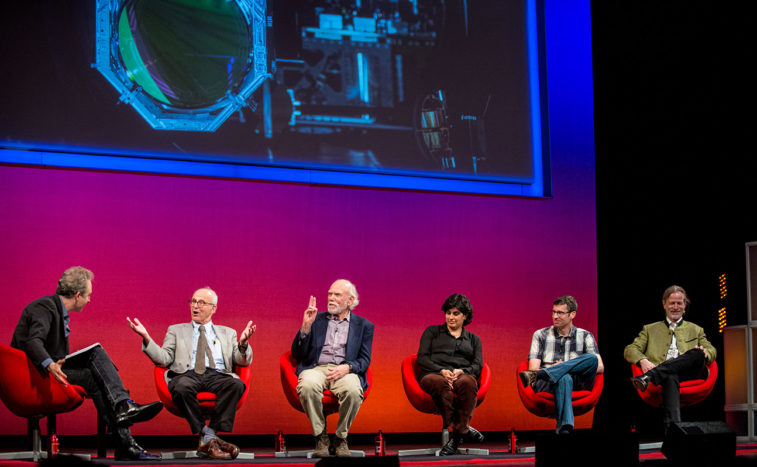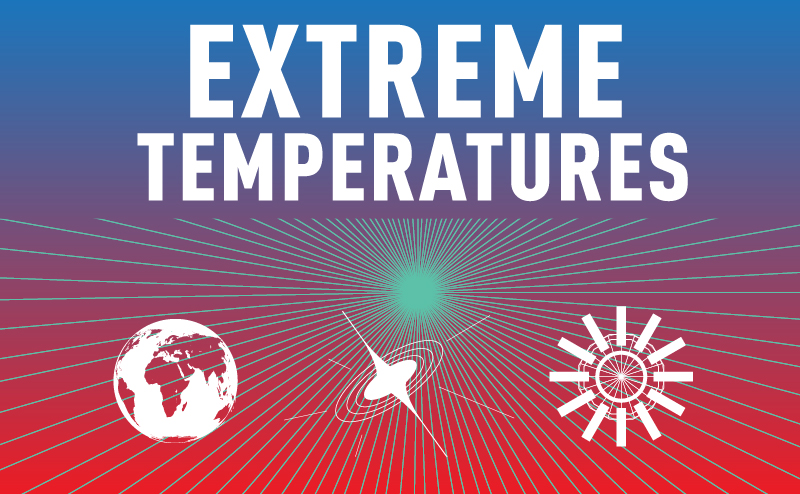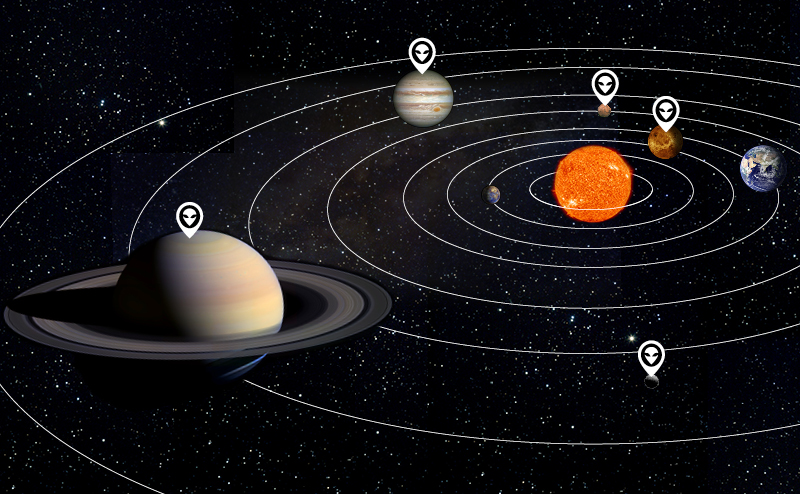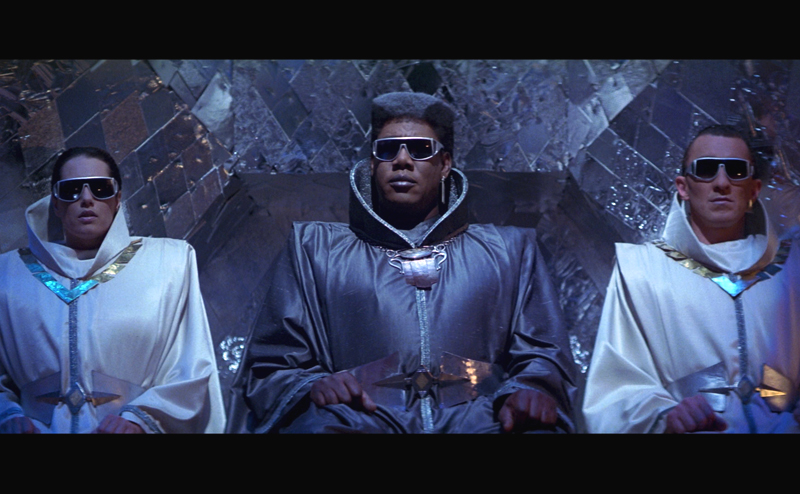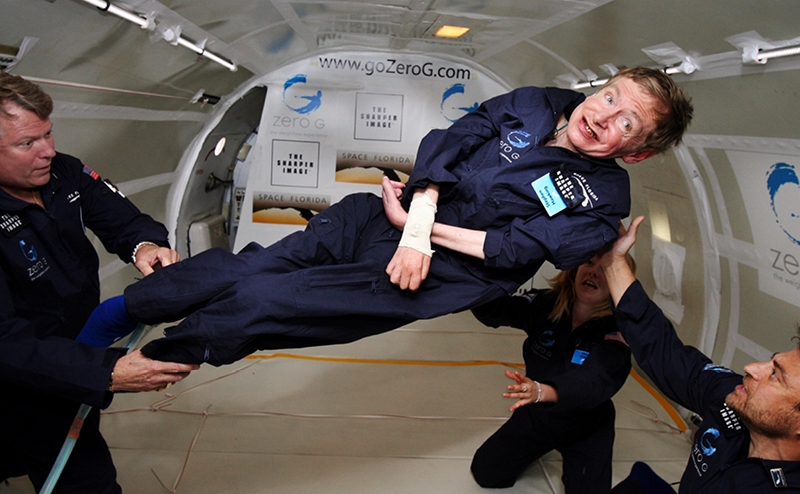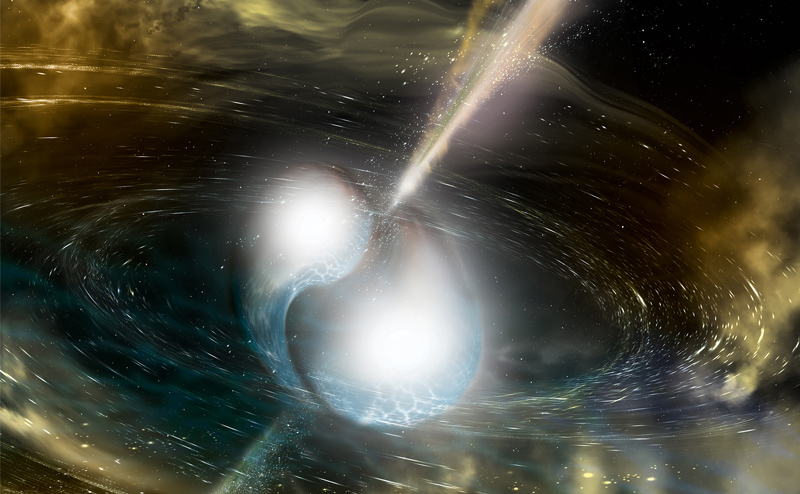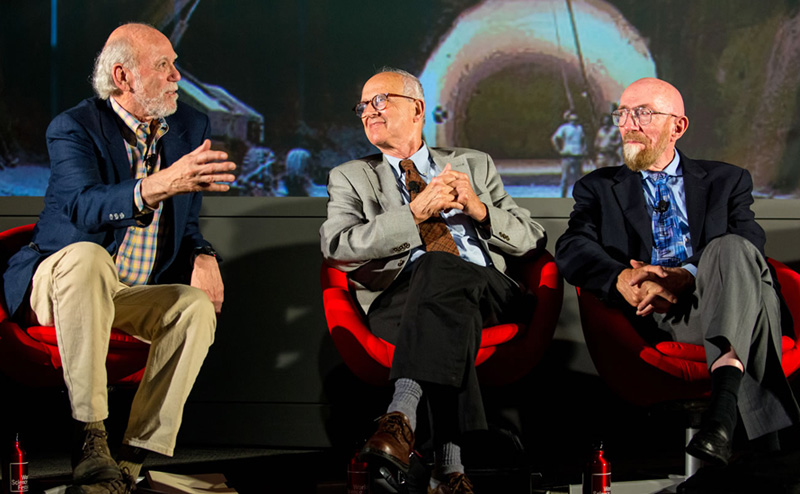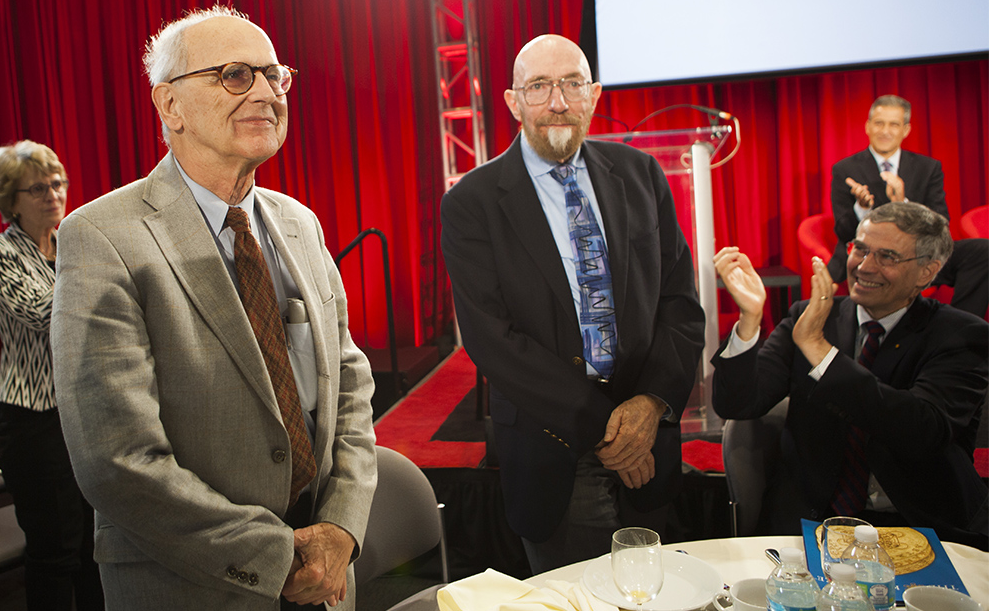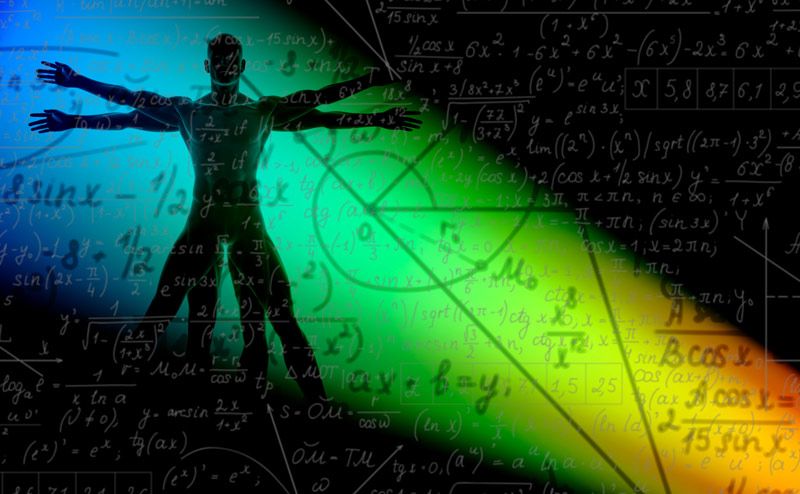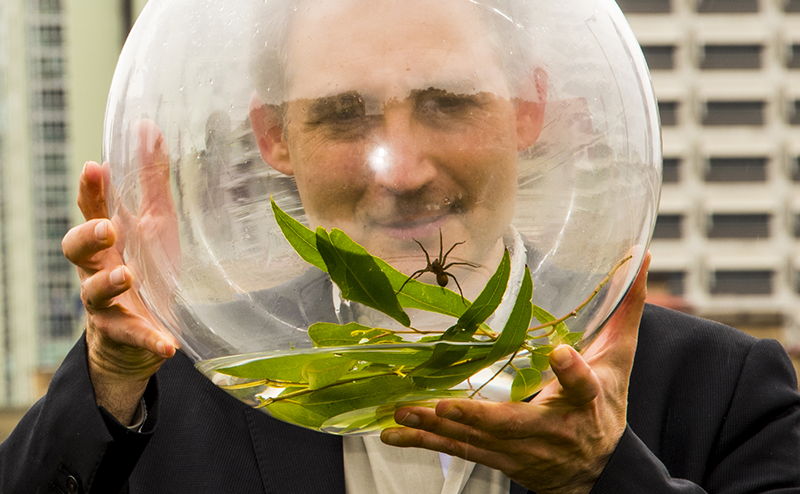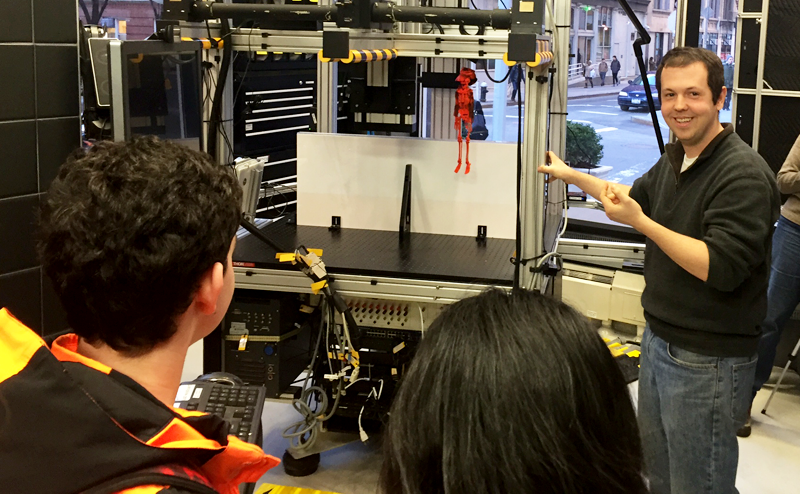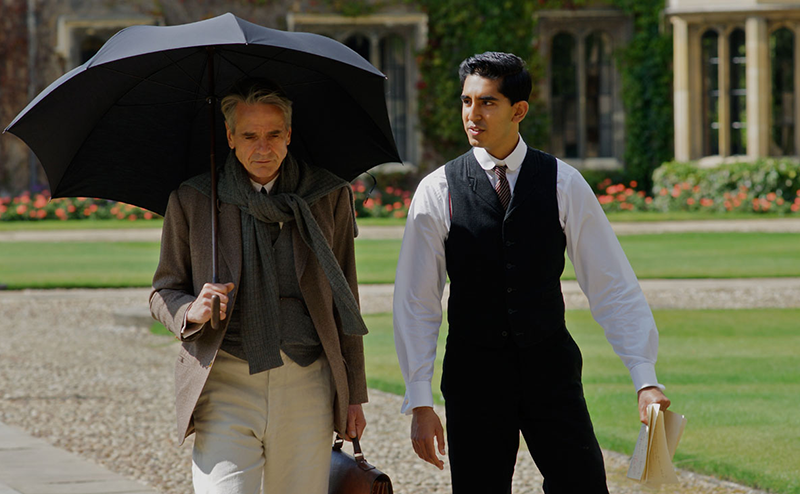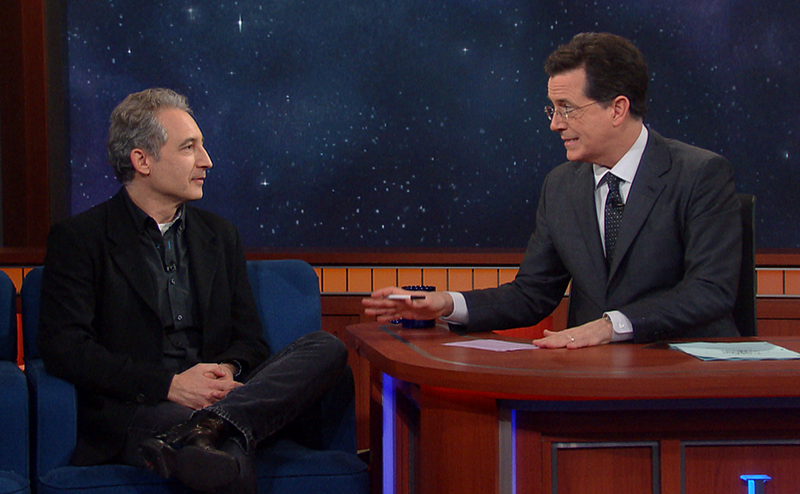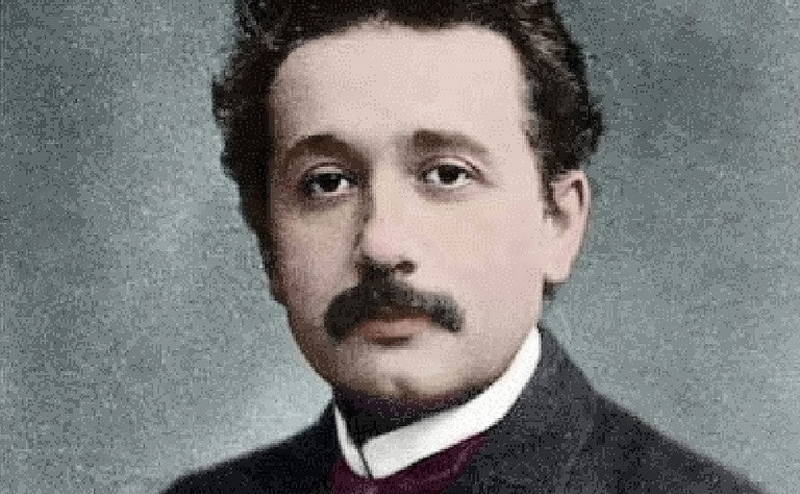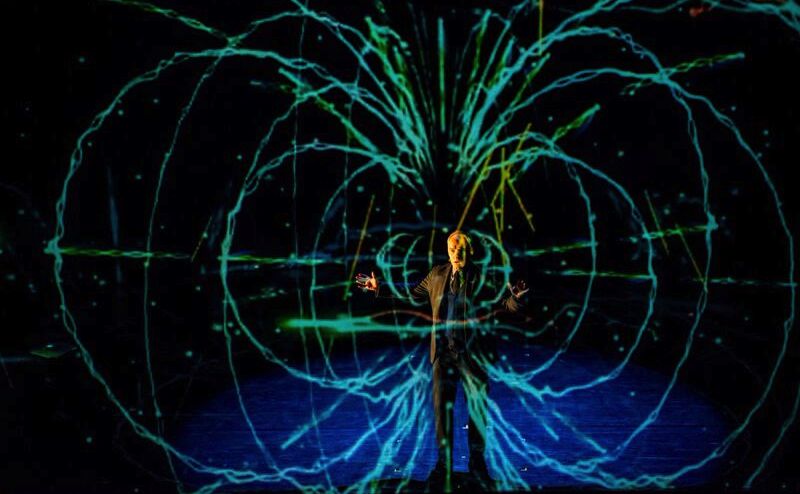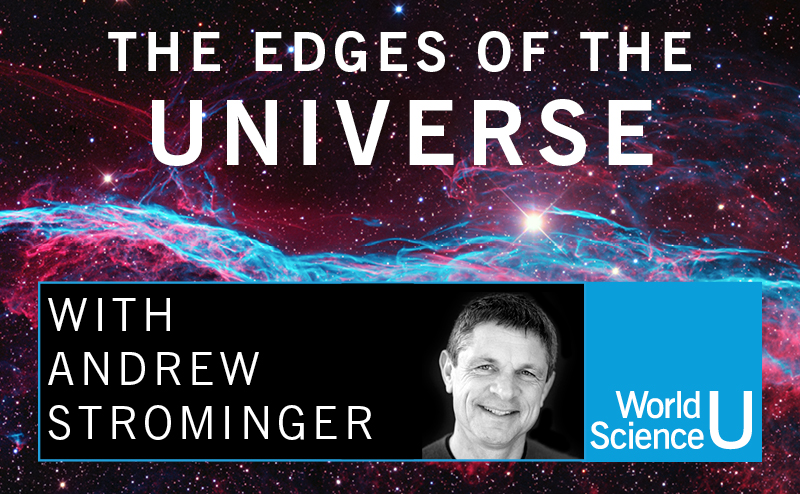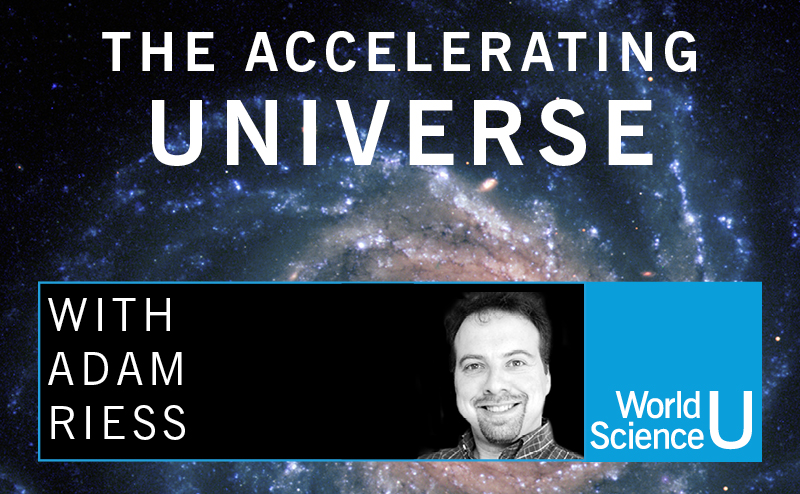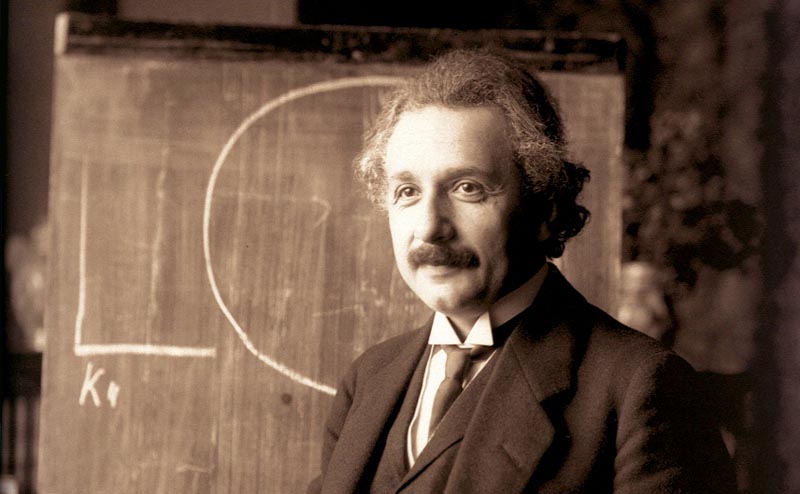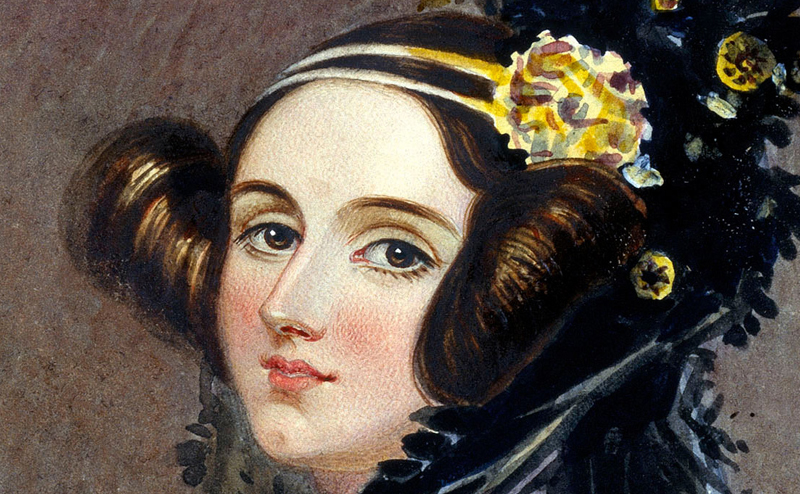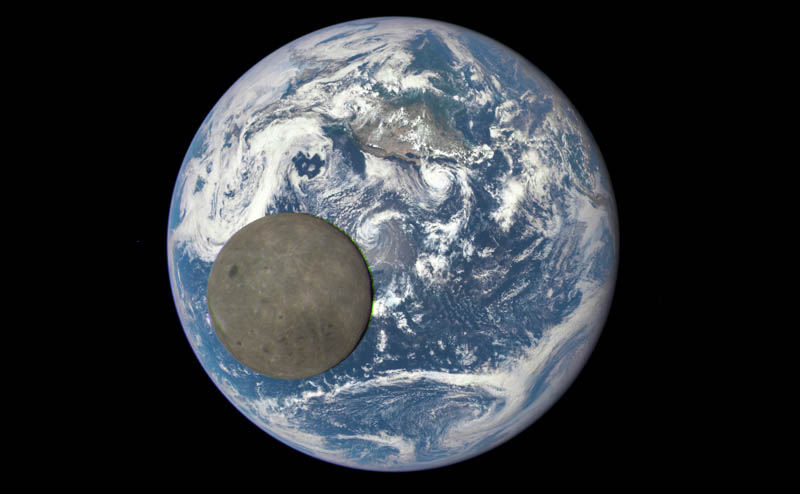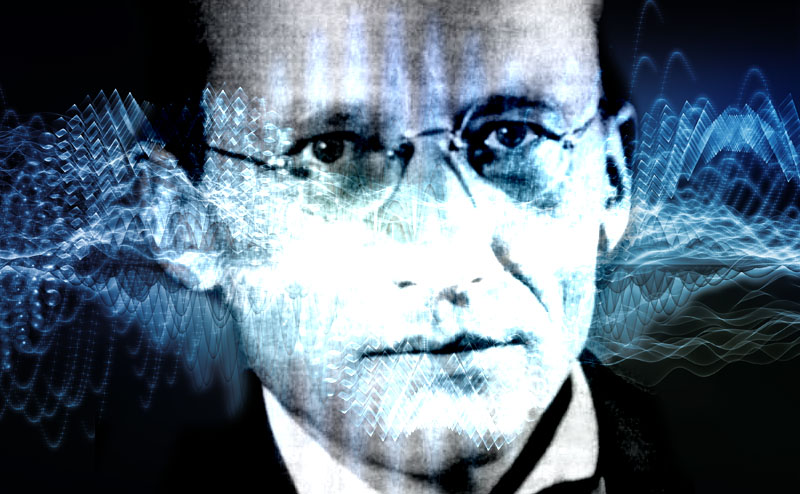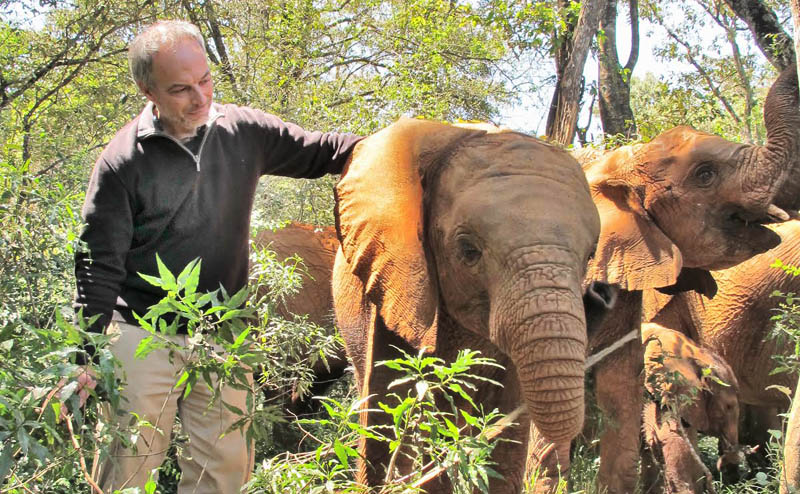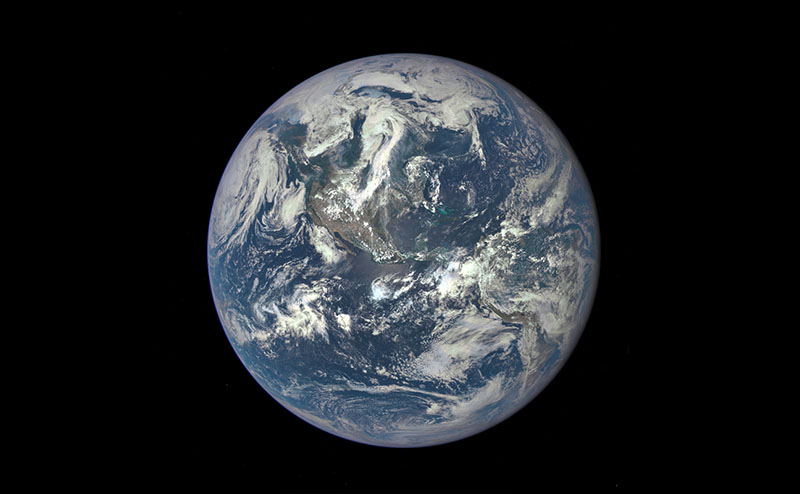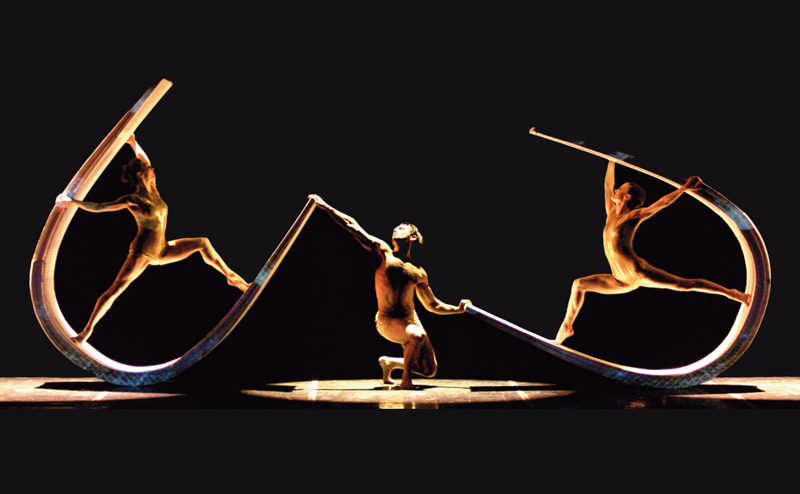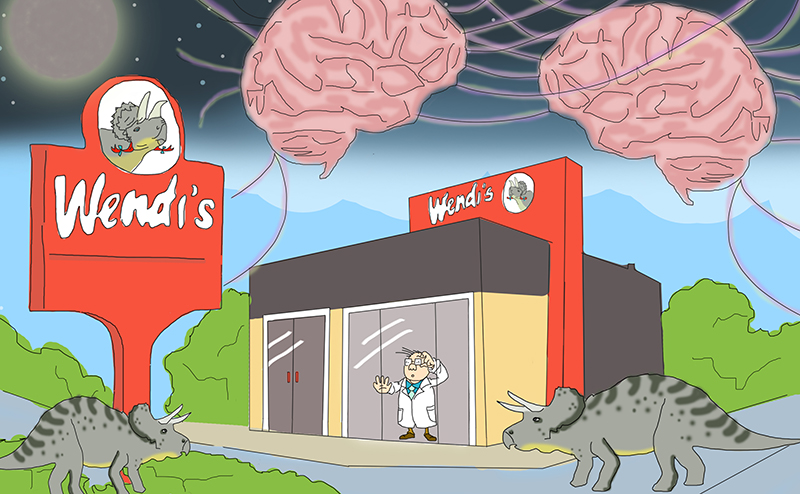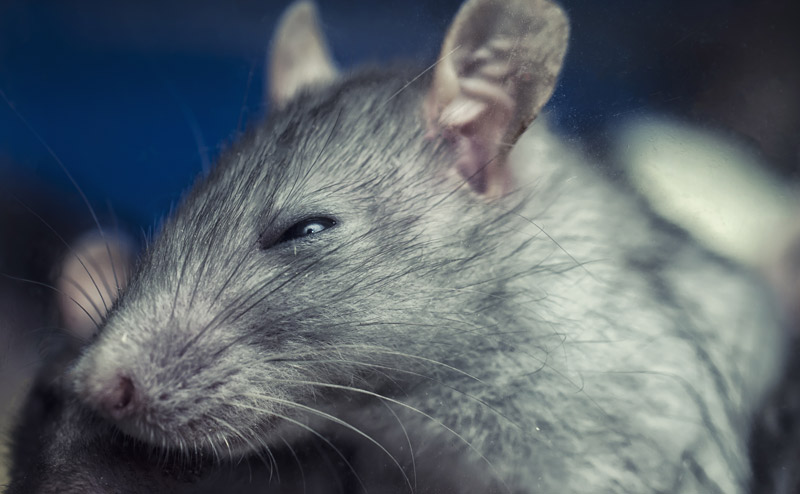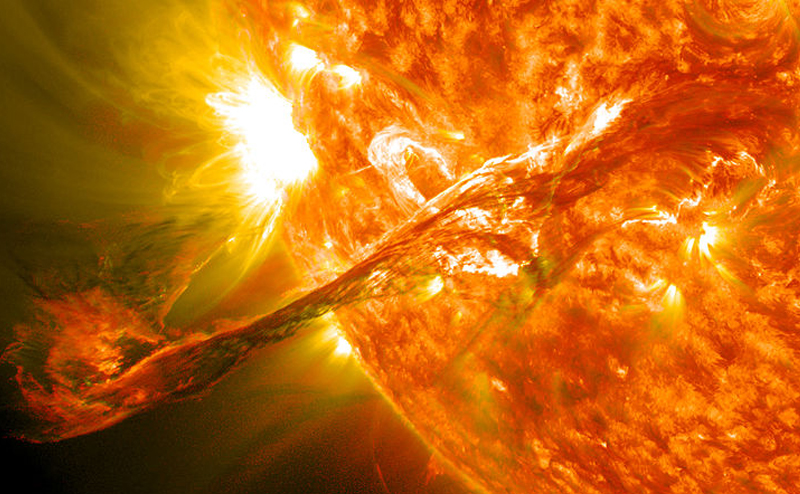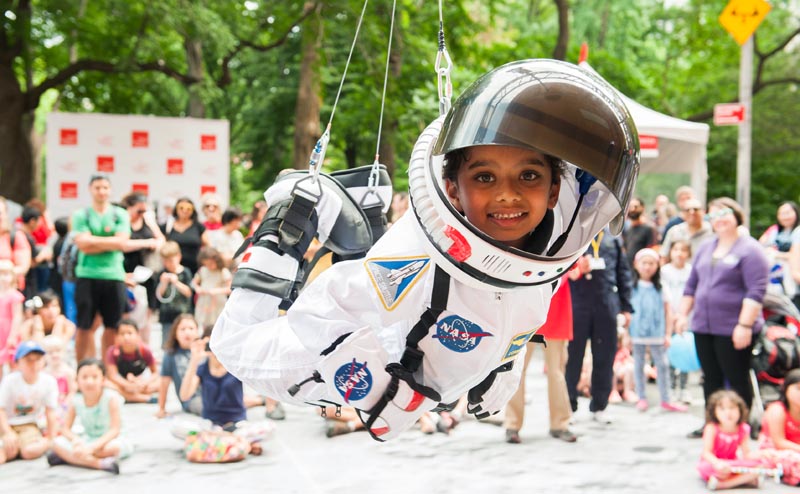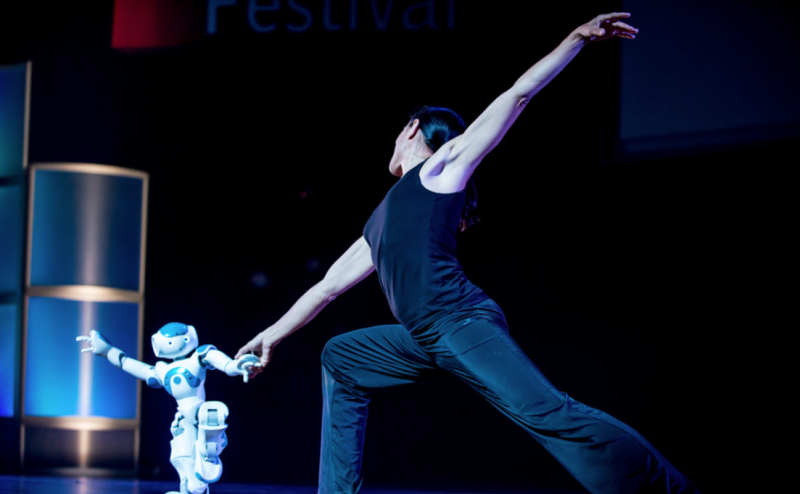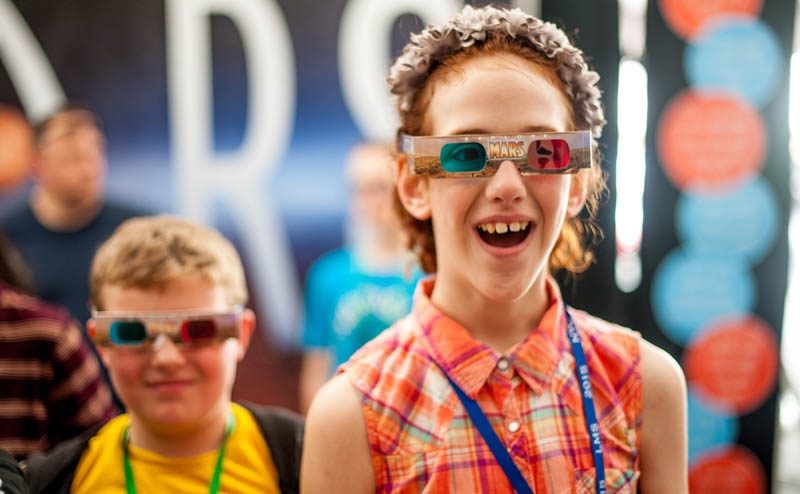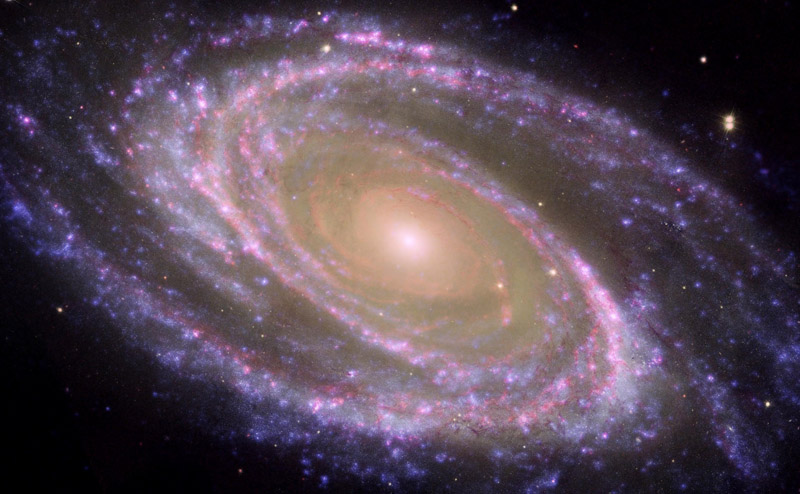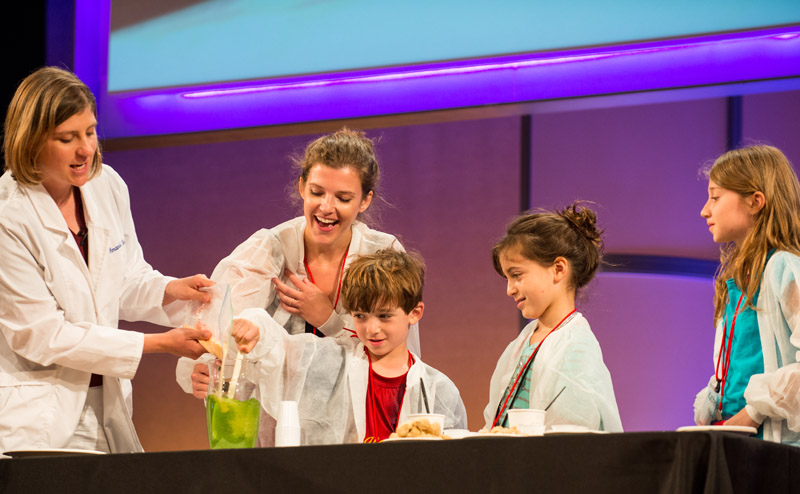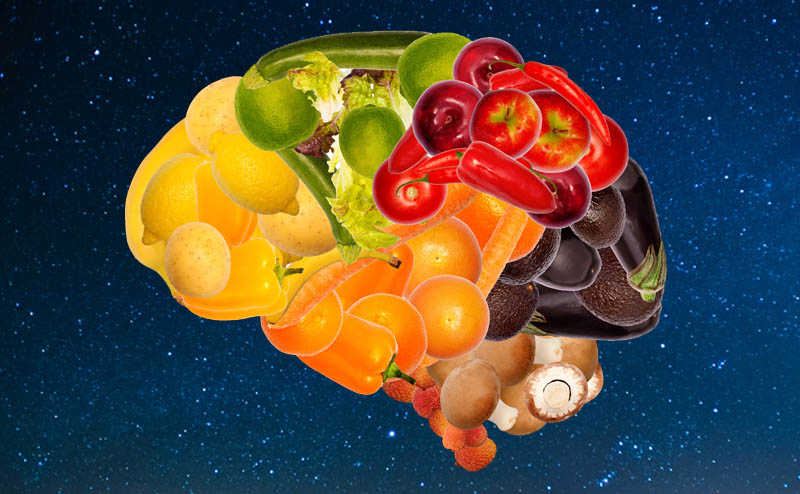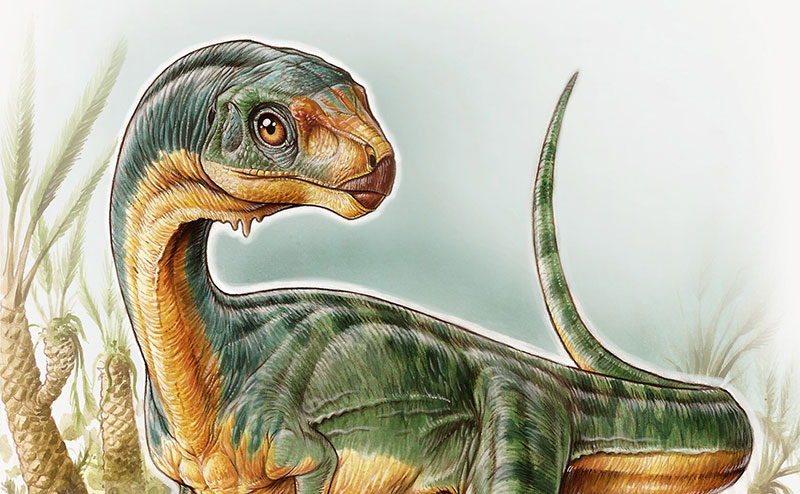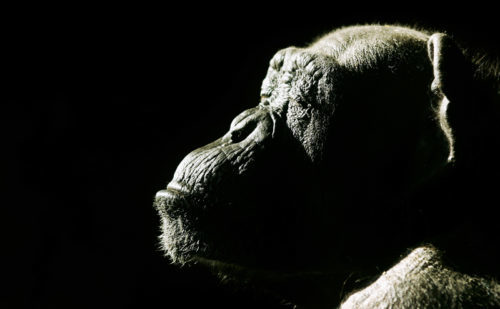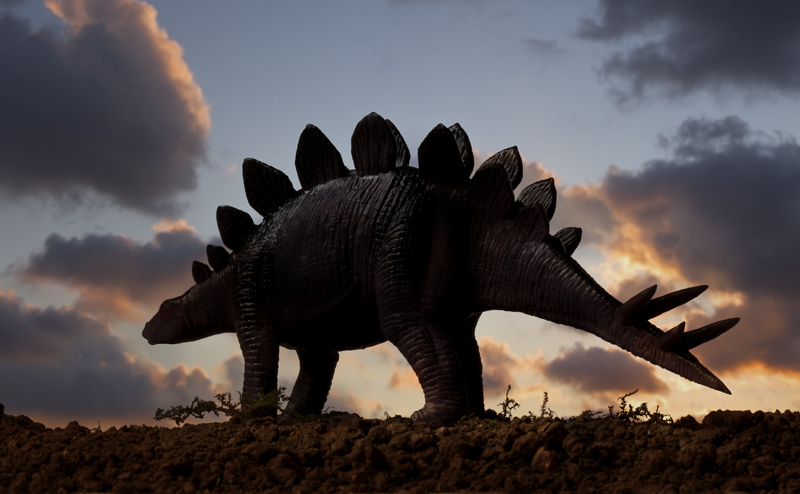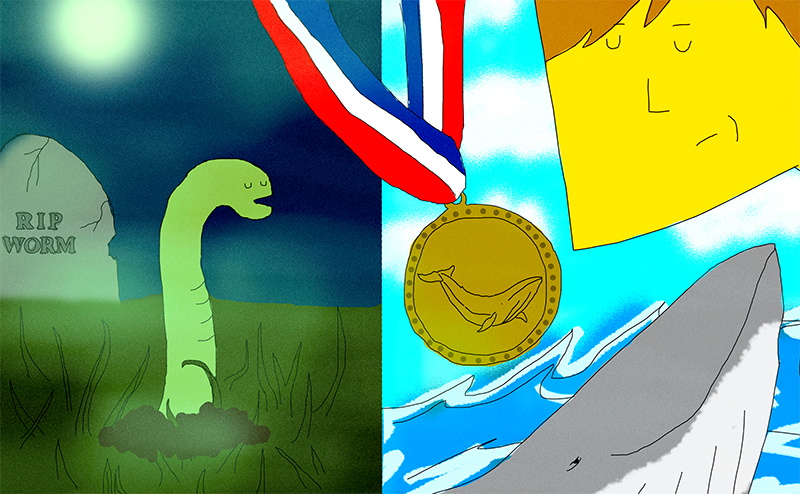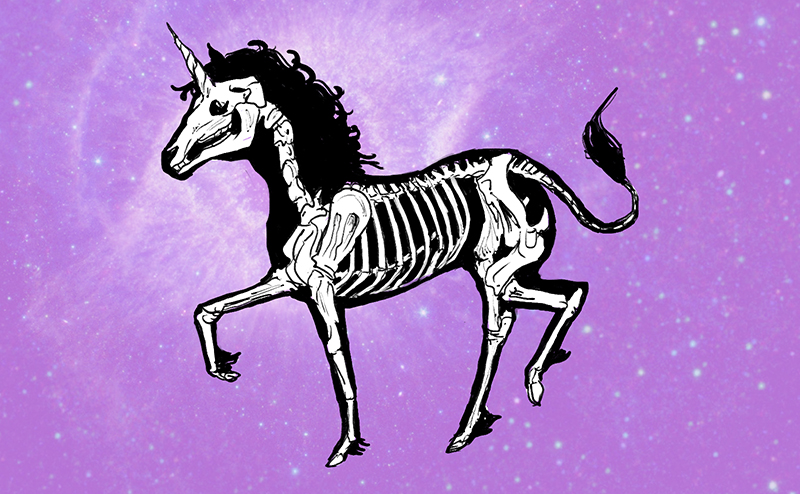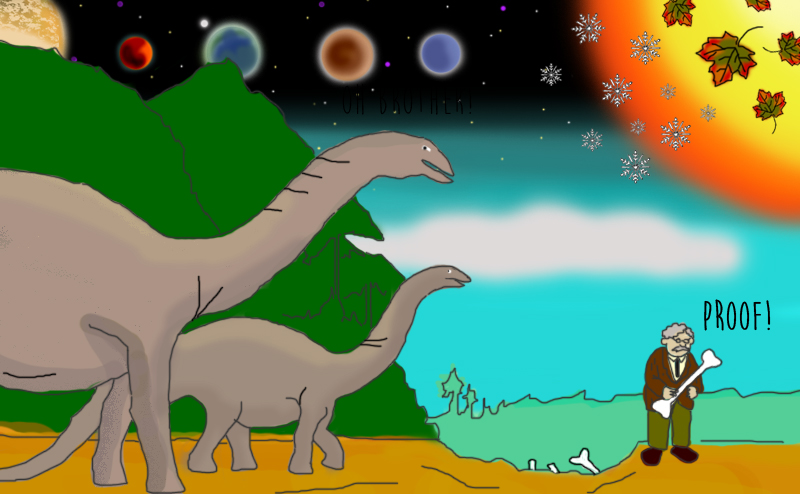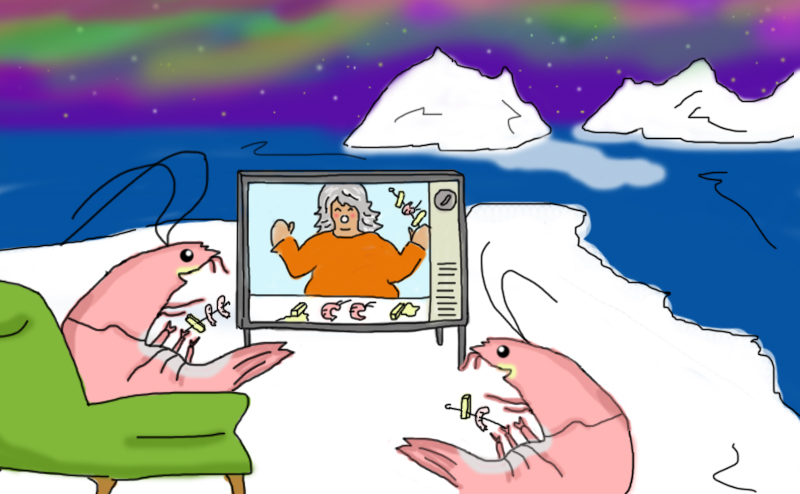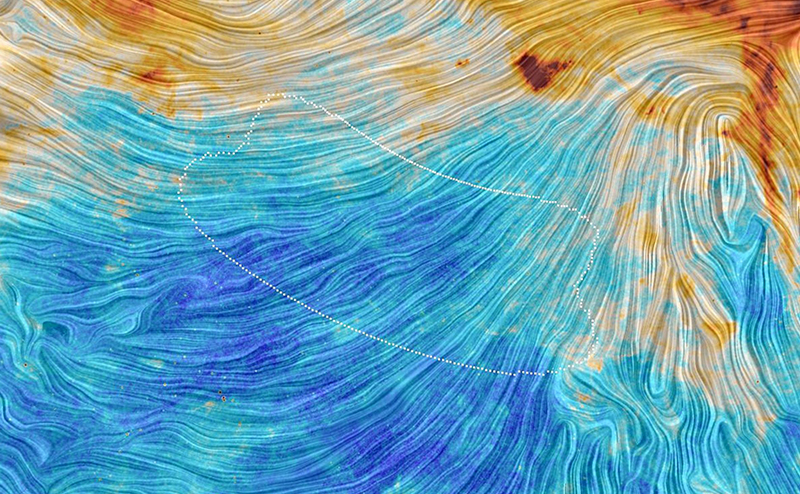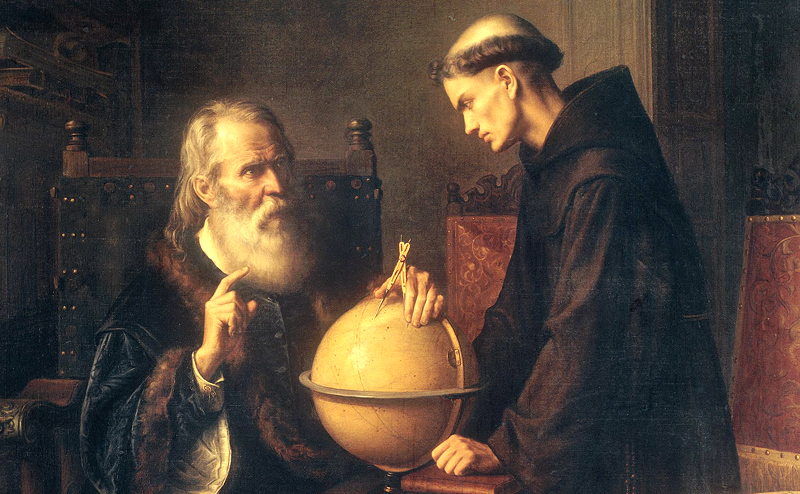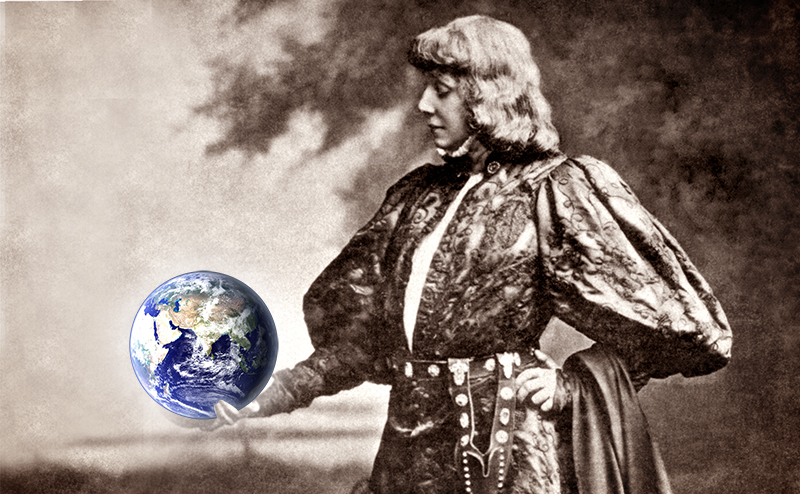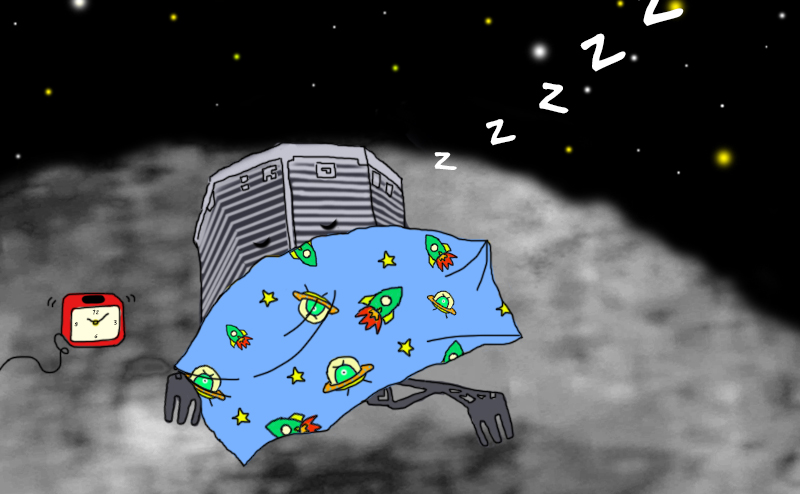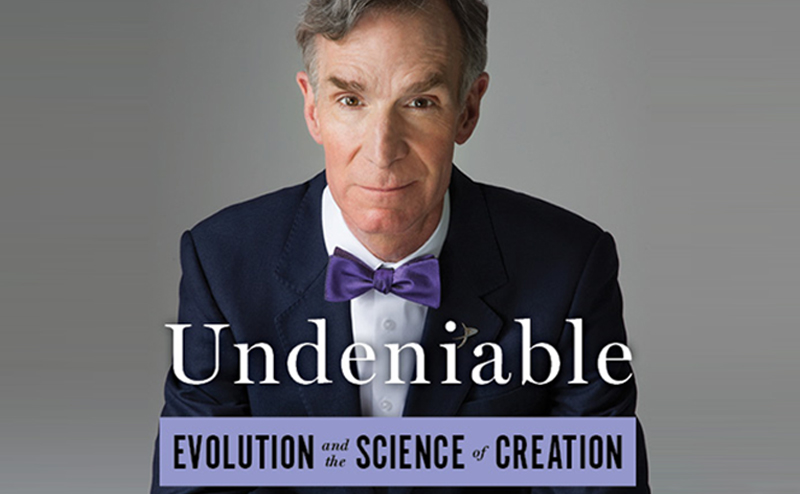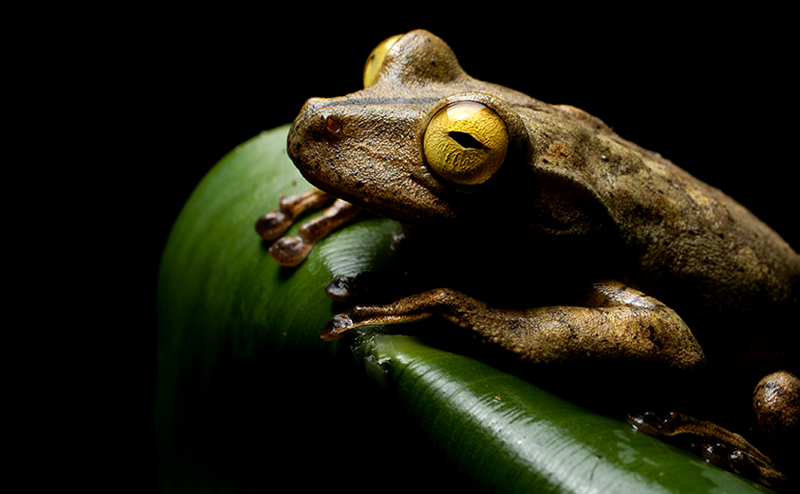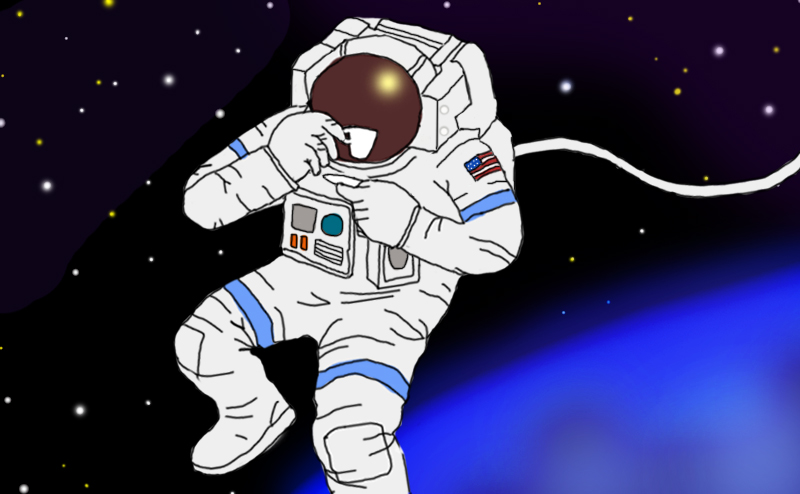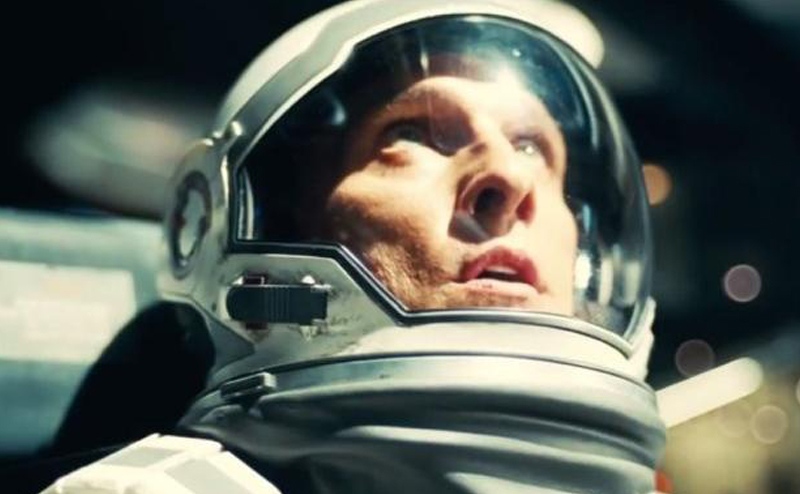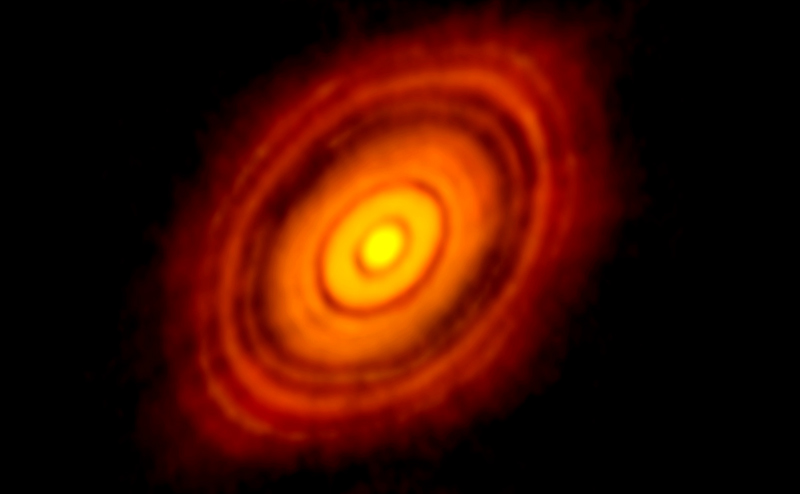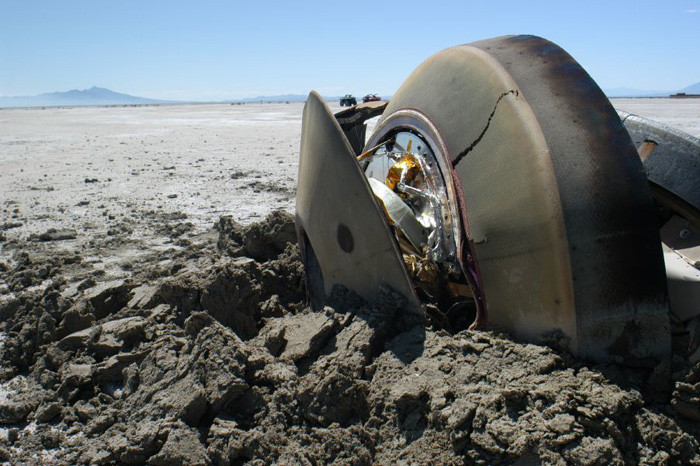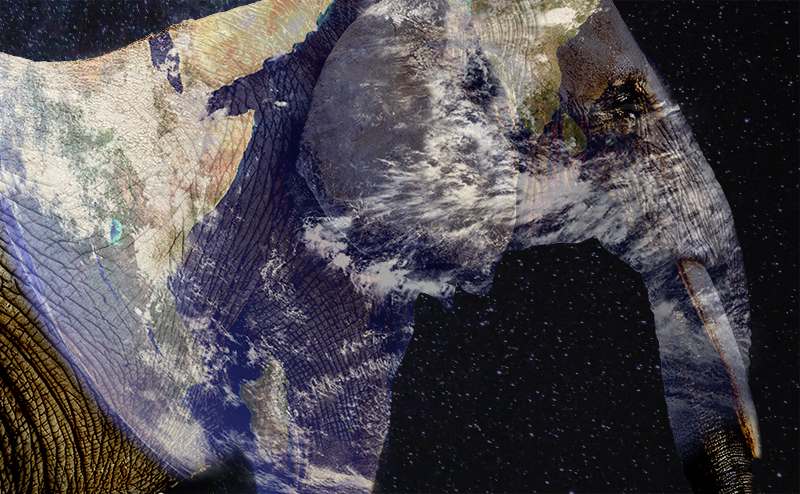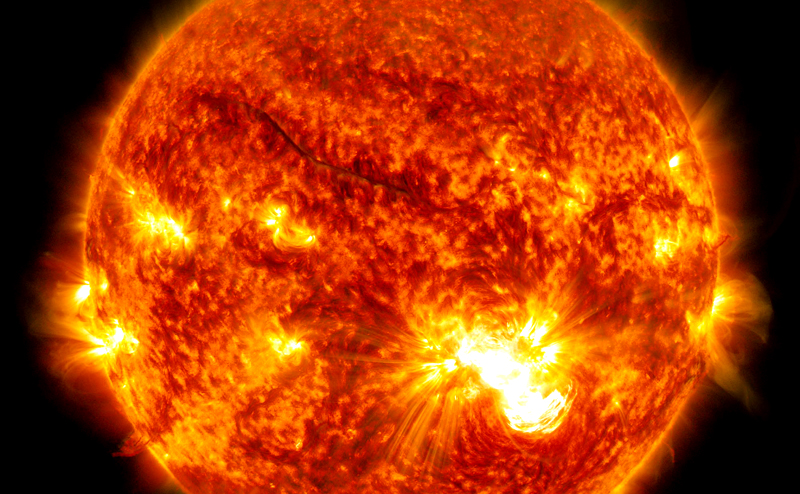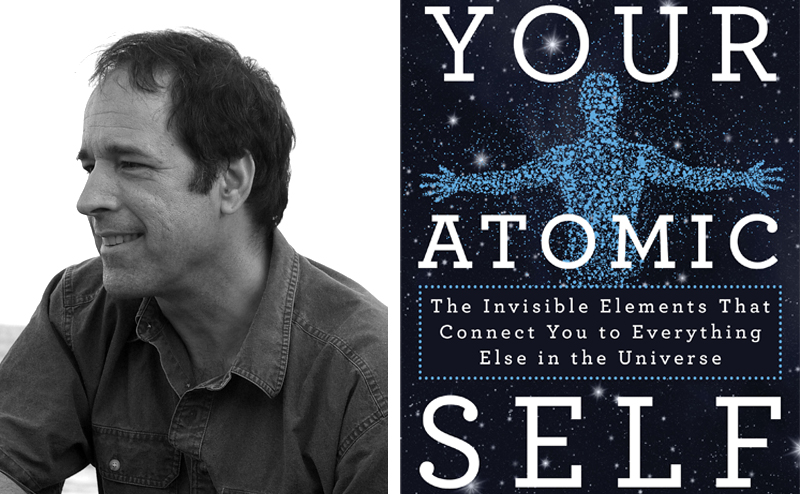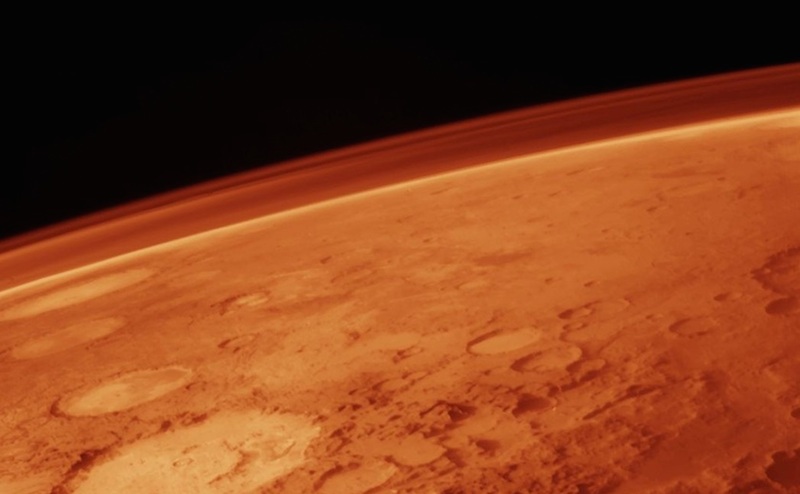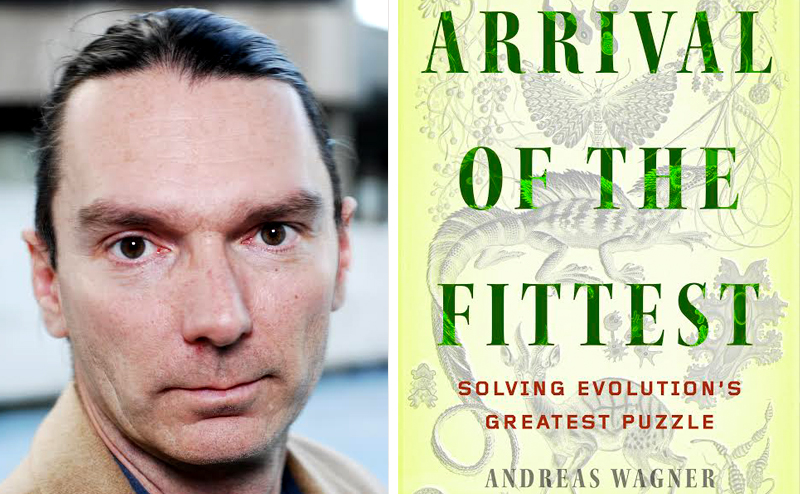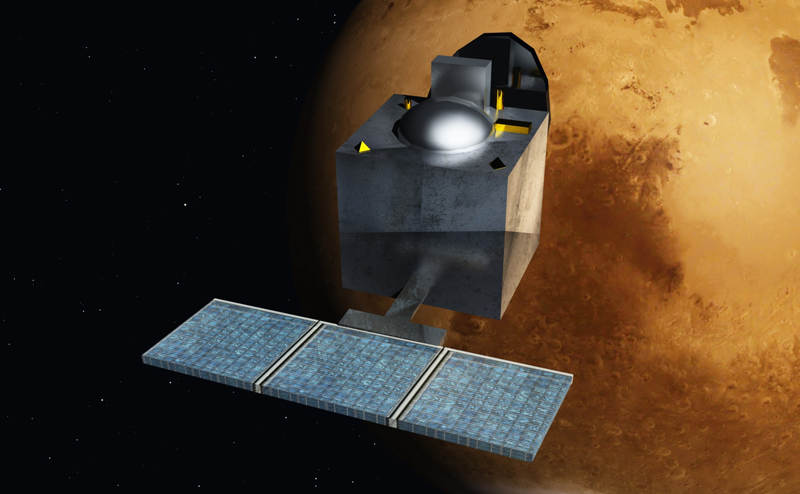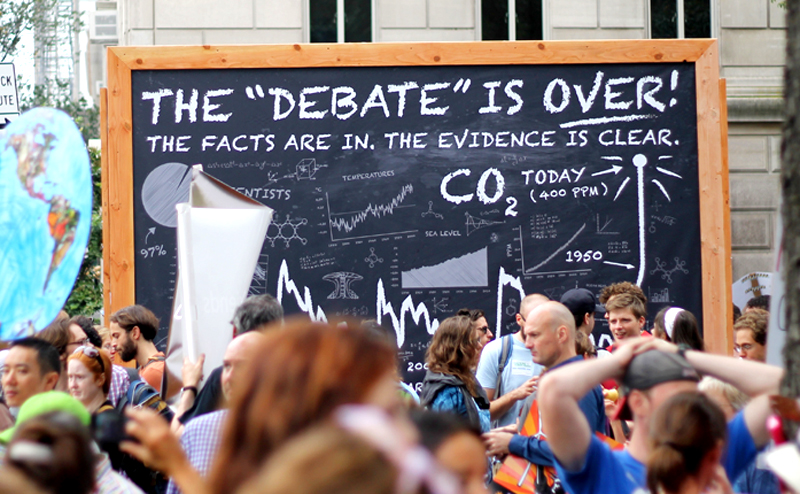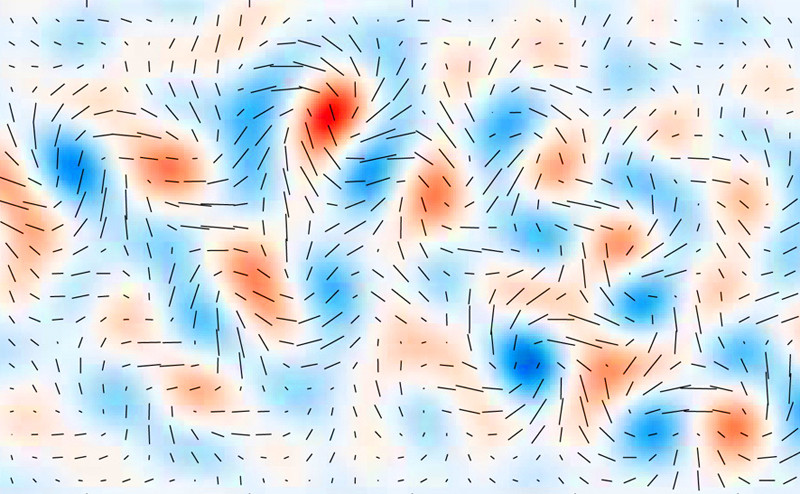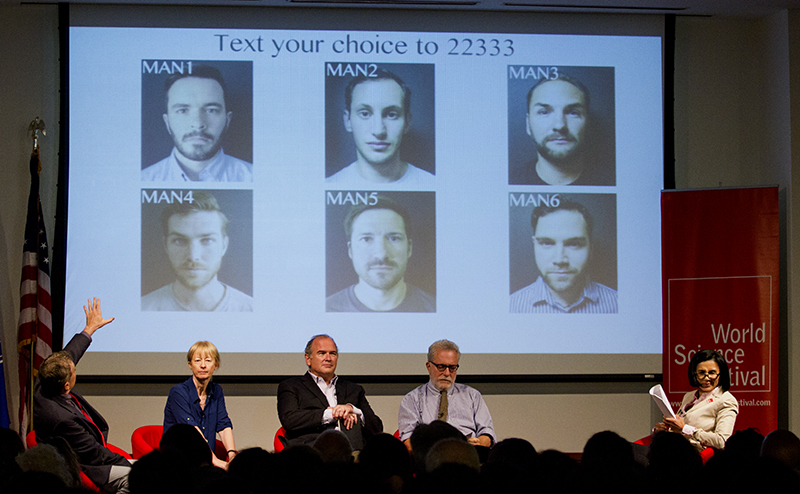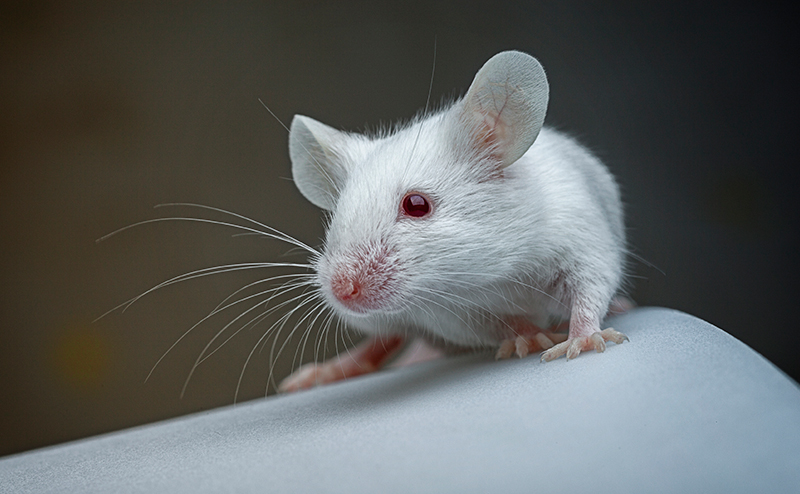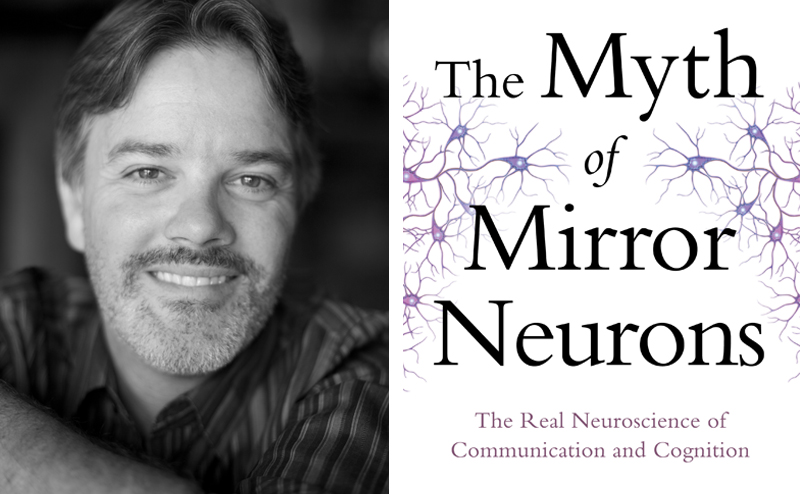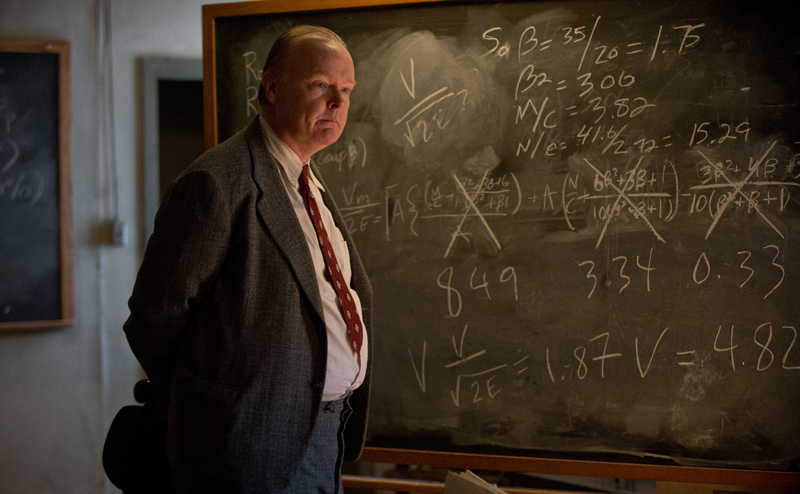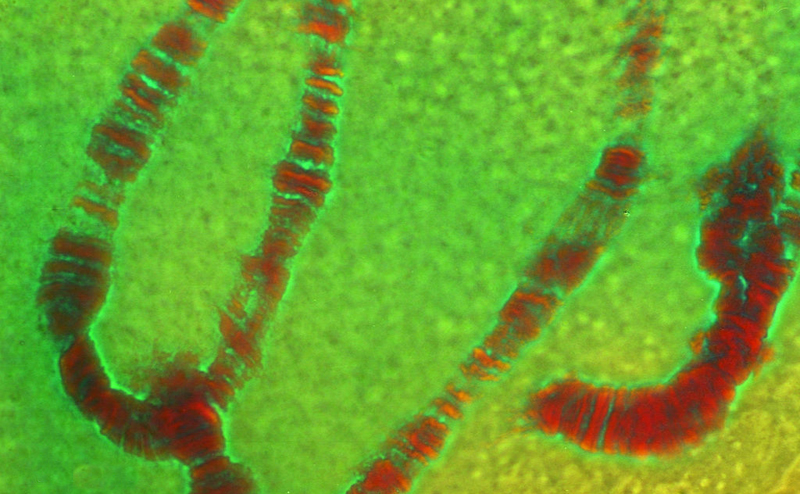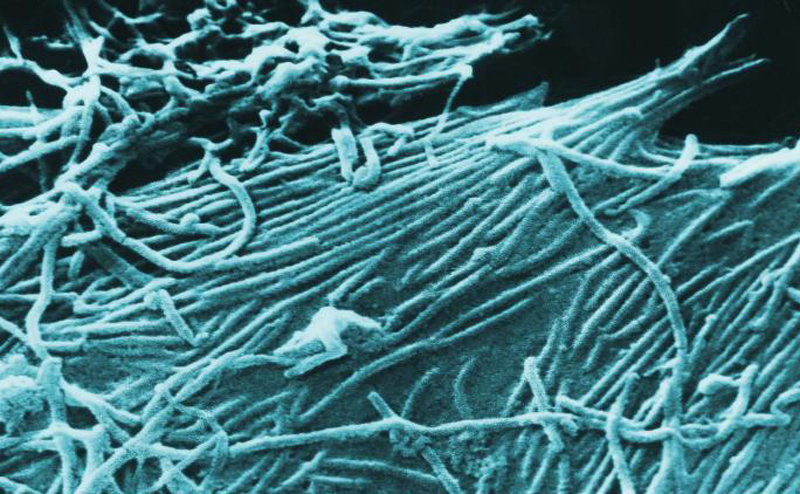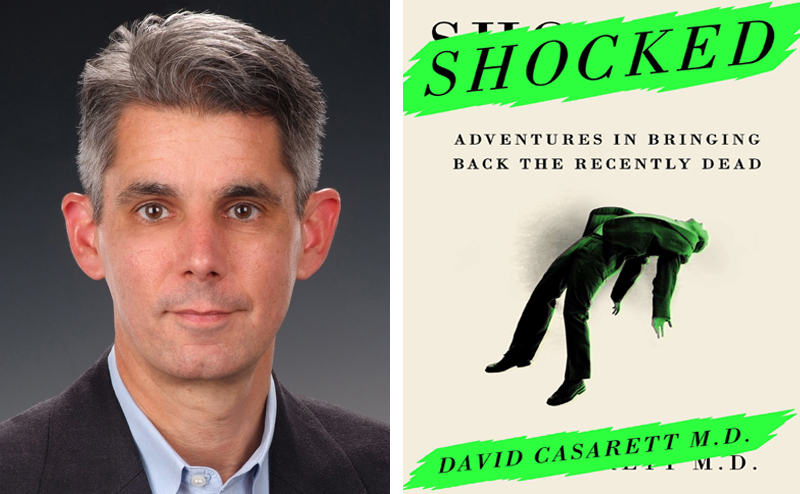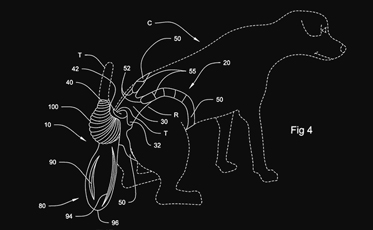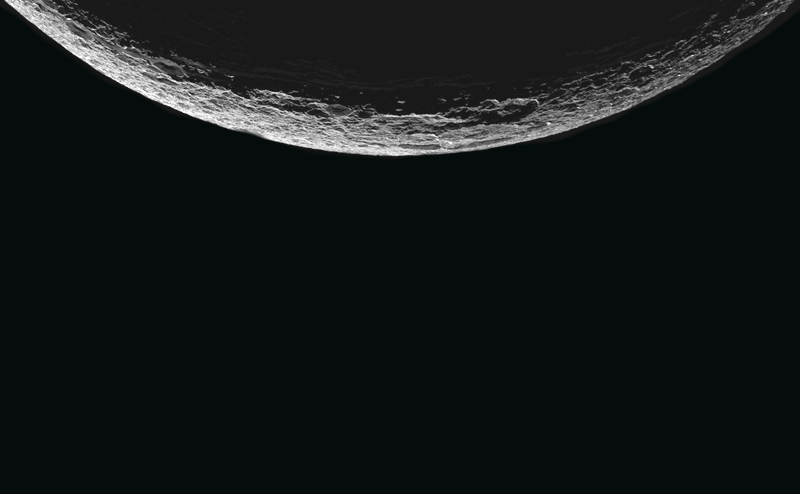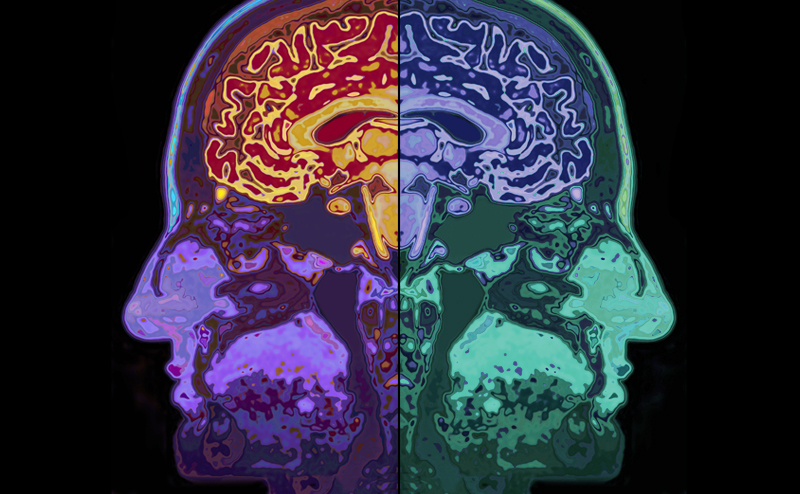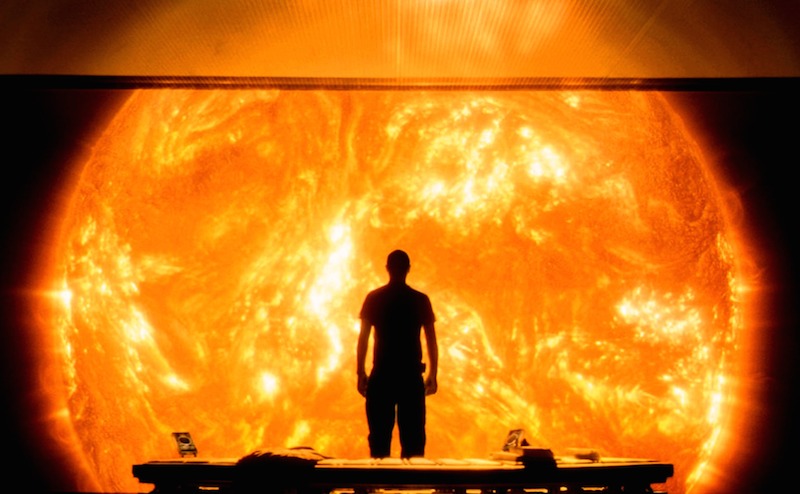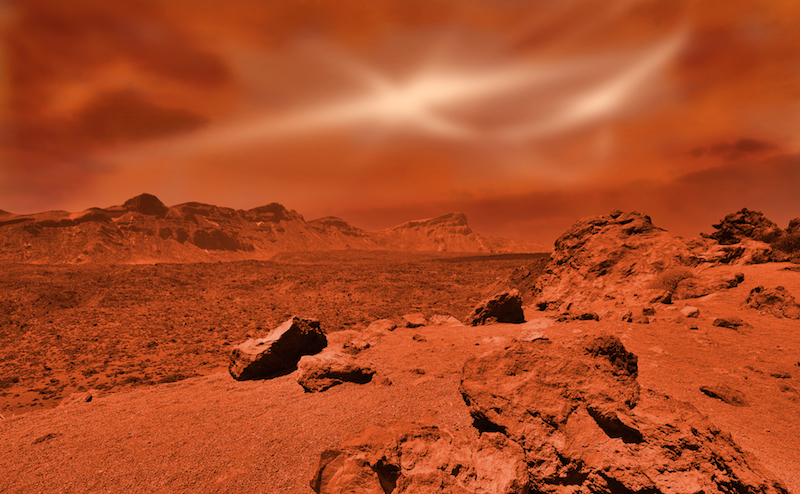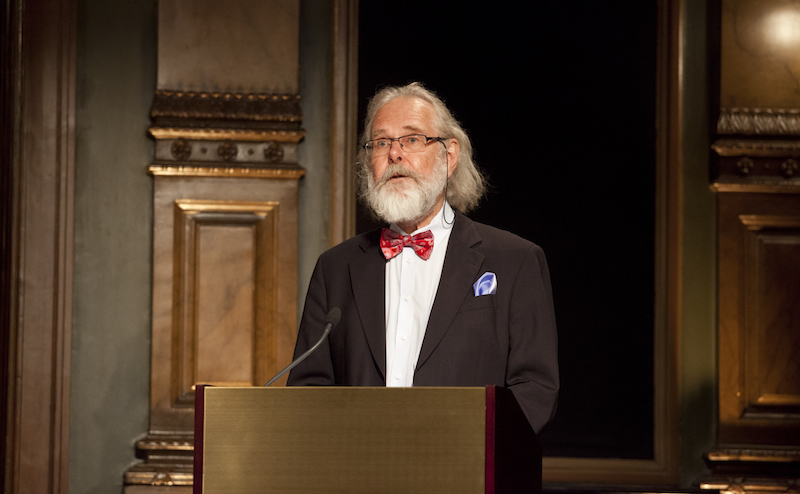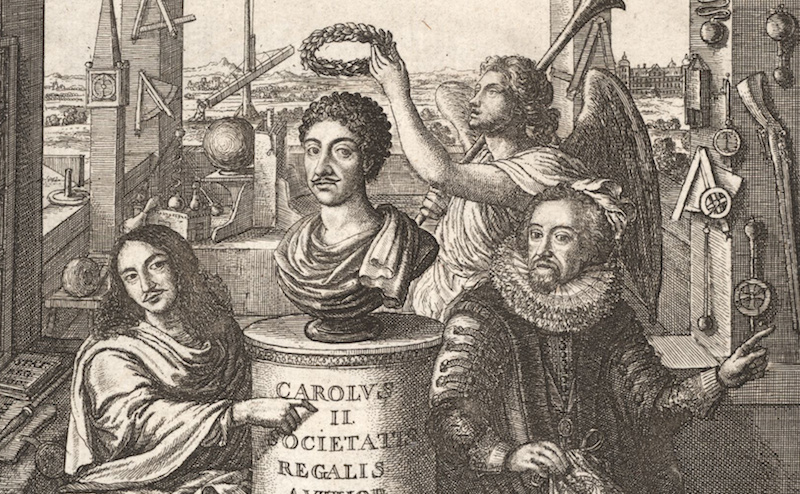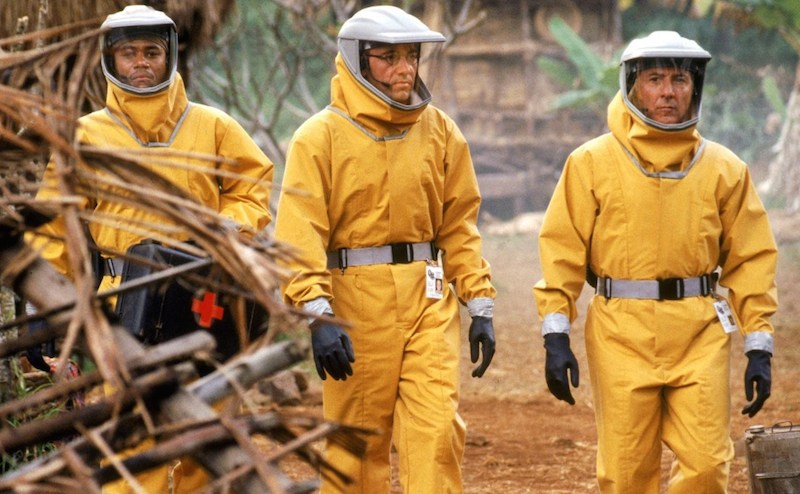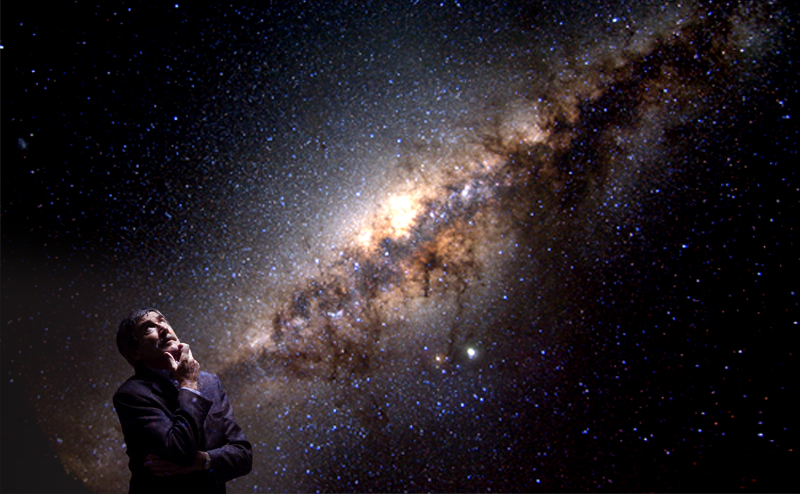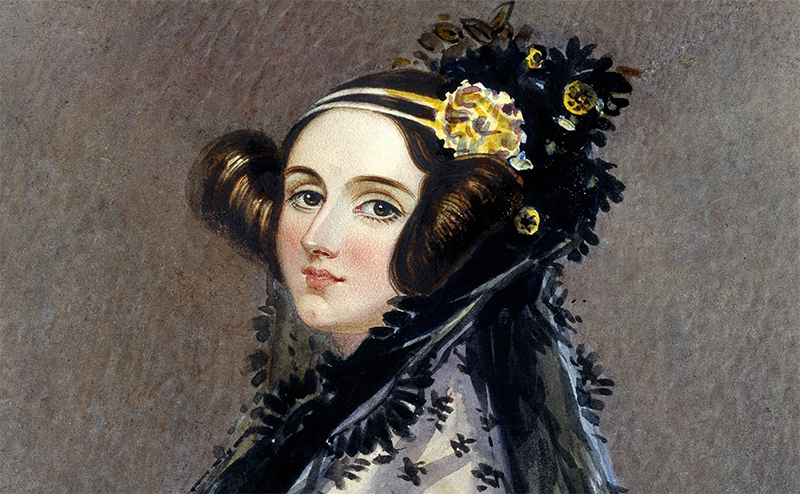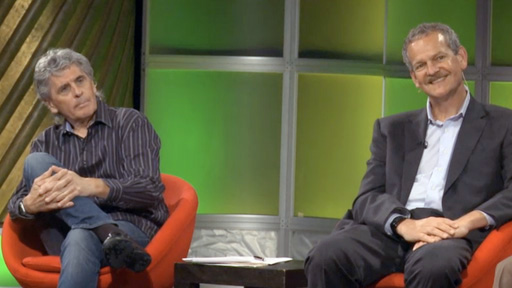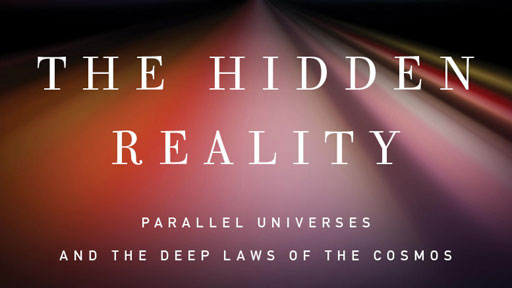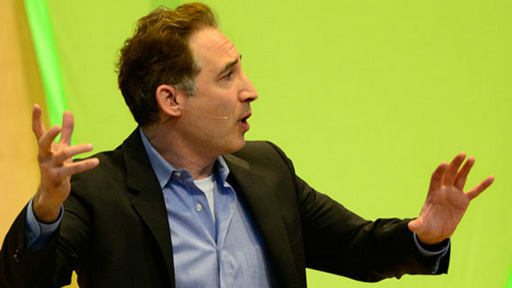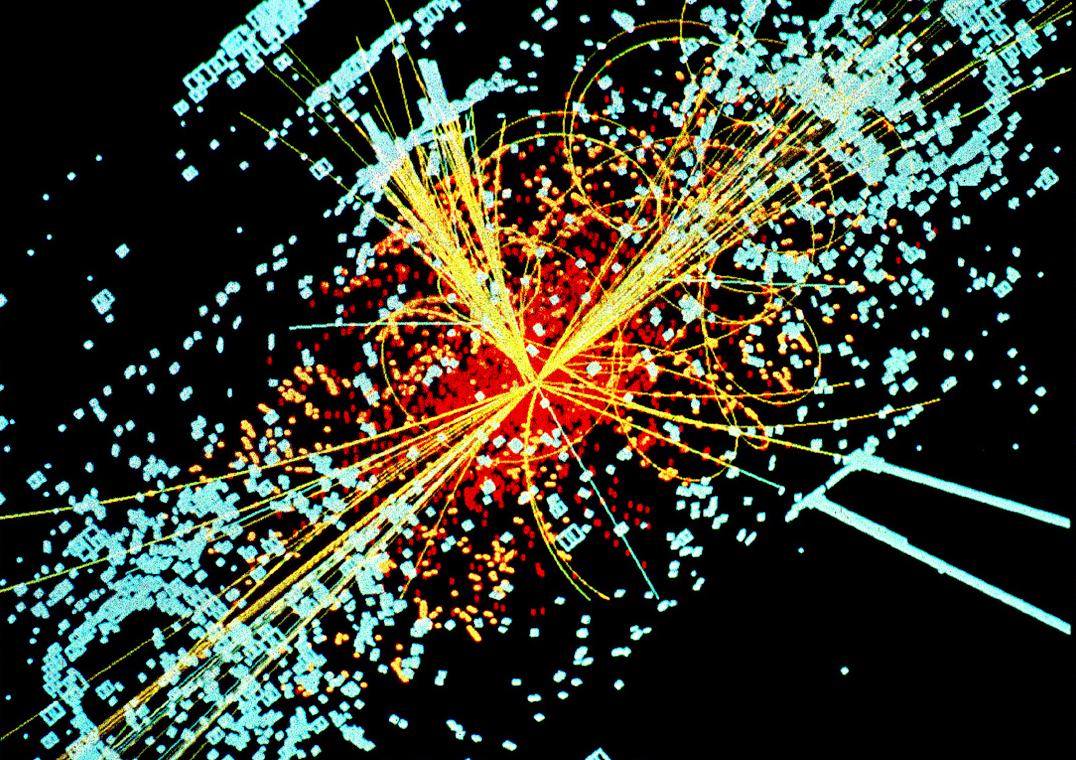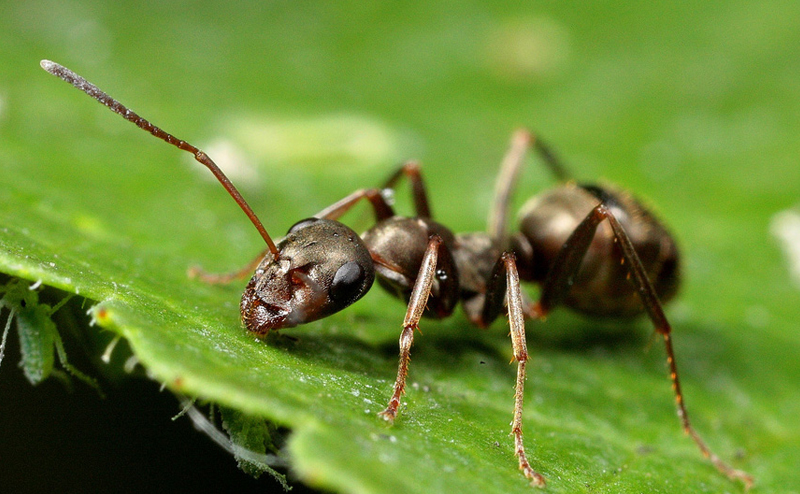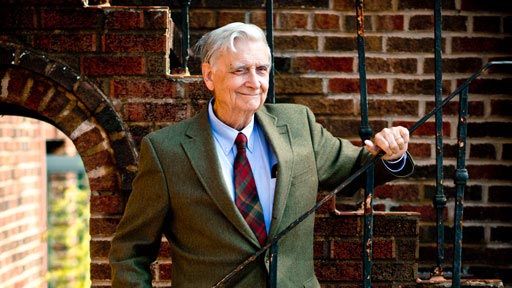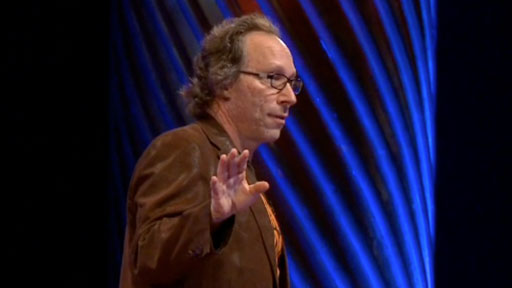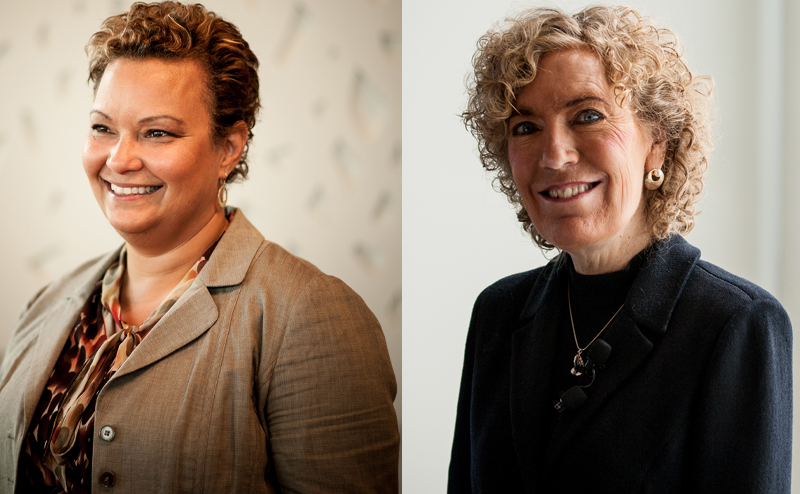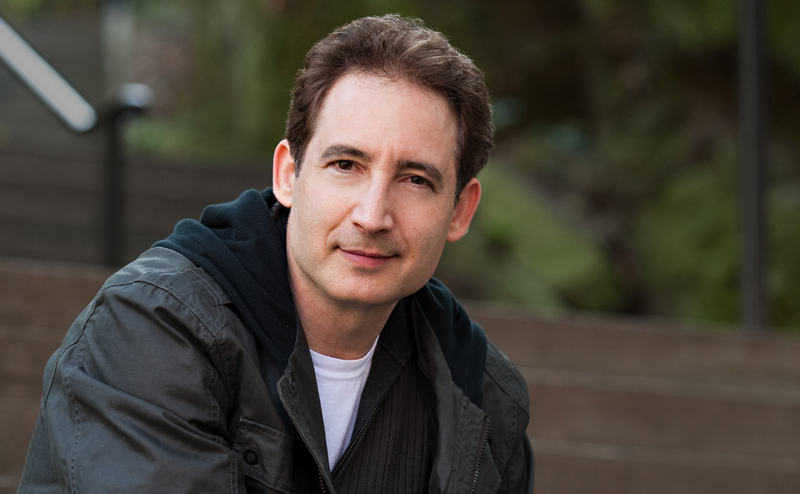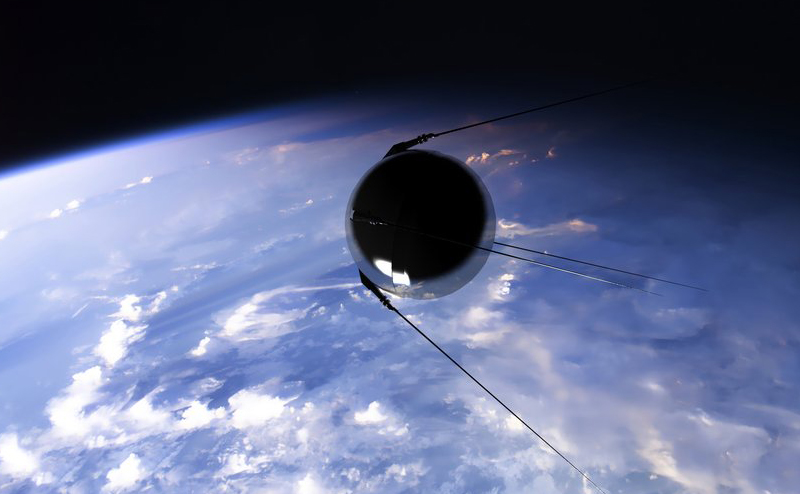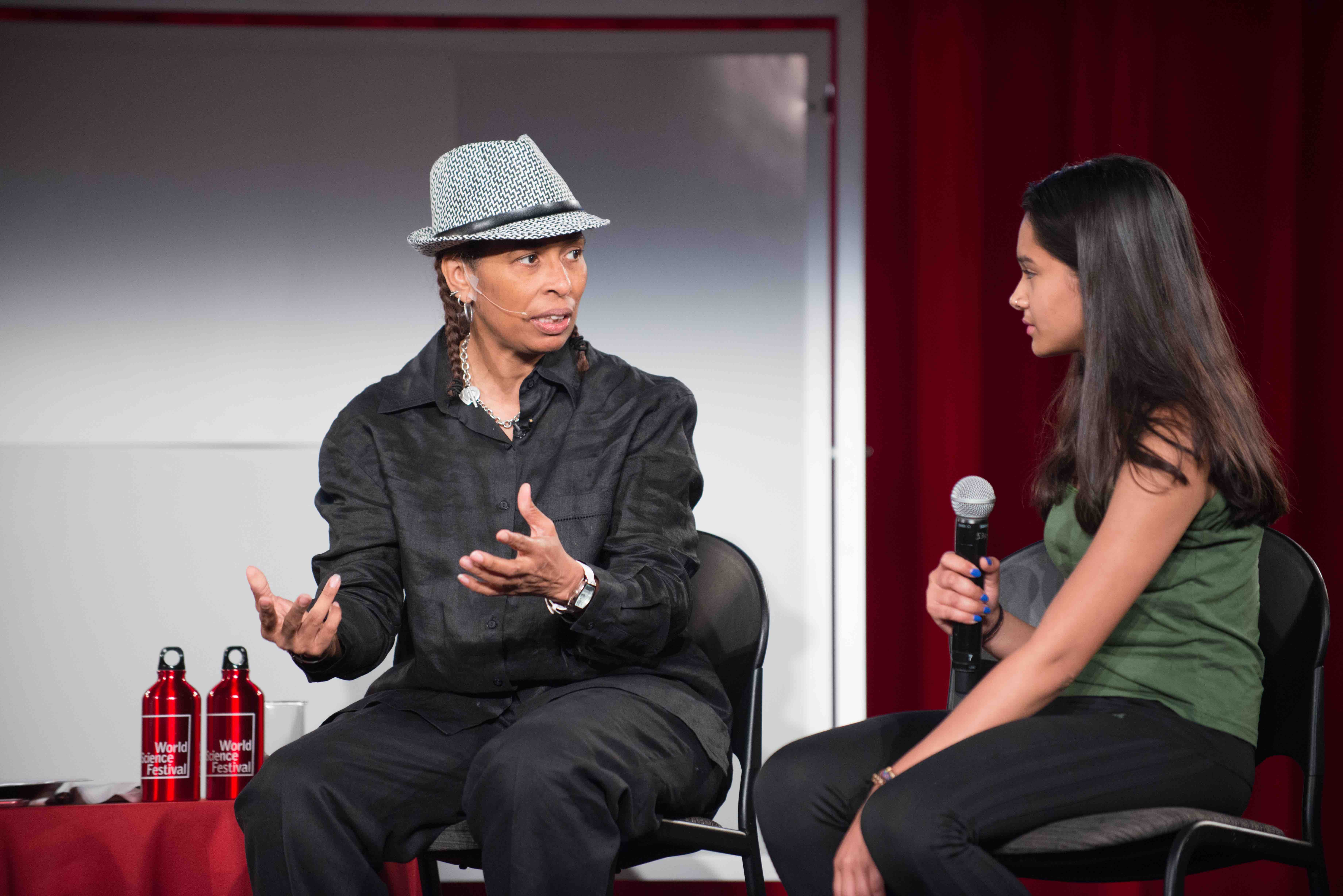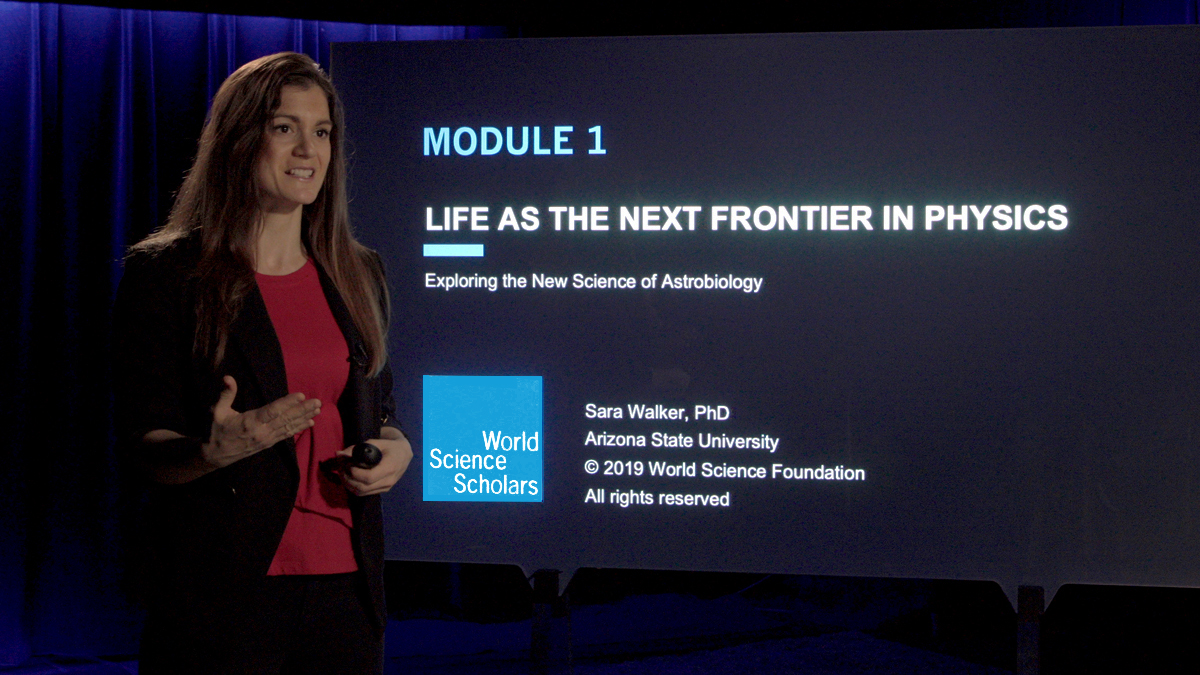Participants
Chuck Close is a visual artist noted for his highly inventive techniques used to paint the human face, and is best known for his large-scale, photo-based portrait paintings. He has also participated in nearly 800 group exhibitions. In 1988, Close was paralyzed following a rare spinal artery collapse; he continues to paint using a brush-holding device strapped to his wrist and forearm.
Read MoreLawrence Krauss is an internationally known theoretical physicist and best-selling author. His research focuses on the intersection of cosmology and elementary particle physics. Krauss’s work addresses questions about the origin of matter in the universe.
Read MoreBrian Greene is a professor of physics and mathematics at Columbia University, and is recognized for a number of groundbreaking discoveries in his field of superstring theory. His books, The Elegant Universe, The Fabric of the Cosmos, and The Hidden Reality, have collectively spent 65 weeks on The New York Times bestseller list.
Read MoreMichael Russell’s research into the emergence of life and early evolution will help determine whether earth alone supports life in our universe. Russell was awarded the William Smith Medal from the Geological Society of London.
Read MoreKip Thorne is the Feynman Professor of Theoretical Physics, Emeritus, at Caltech. He was the co-founder (with Rai Weiss and Ron Drever) of the LIGO (Laser Interferometer Gravitational Wave Observatory) Project and he chaired the steering committee that led LIGO in its earliest years.
Read MoreGregory Chaitin is a mathematician and computer scientist who began making lasting contributions to his field while still a student at the Bronx High School of Science. His approach to mathematics views the field as much as an art form as science and inextricably linked with philosophical questions.
Read MoreLuciano Floridi is one of Italy’s most influential thinkers in the area of philosophy science, technology, and ethics, and is best known as the founder of two major areas of research, Information Ethics and the Philosophy of Information. Dr. Floridi is the first philosopher elected Gauss Professor by the Göttingen Academy of Sciences.
Read MoreRebecca Newberger Goldstein’s Orthodox Jewish background and advanced studies in philosophy came together in an original writing style for which she has been widely recognized.
Read MoreThupten Jinpa has been the principal English translator to the Dalai Lama for more than 25 years and has translated and edited many of his books, including Ethics for the New Millennium; Transforming the Mind; The Universe in a Single Atom: Convergence of Science and Spirituality.
Read MoreBrian Hare is an expert in chimpanzee and bonobo behavior in African sanctuaries, and founded the Hominoid Psychology Research Group, which compares the psychology of hominoids (human and non-human ape).
Read MoreAndrea Lommen has been a pioneer in detecting gravitational waves with pulsars. Dr. Lommen’s research, and that of the team she leads, has taken theoretical concepts and transformed them into experimental practice.
Read MoreBrad Lubman, conductor/composer, is founding co-Artistic Director and Music Director of Ensemble Signal, hailed by The New York Times as “one of the most vital groups of its kind.” He has gained widespread recognition during the past two decades for his versatility, commanding technique, and insightful interpretations.
Read MoreNobel Laureate
Nobel Laureate John Mather’s research in cosmology as part of the Cosmic Background Explorer (COBE) team has been recognized as some of the most important work of the 20th century.
Read MoreAndré Fenton is a recognized neuroscientist, biomedical engineer, and entrepreneur. Dr. Fenton is a Professor at the Center for Neural Science at New York University.
Read MoreRobbert Dijkgraaf is director and Leon Levy Professor of the Institute for Advanced Study, one of the world’s leading centers for curiosity-driven research in the sciences and humanities.
Read MoreRai Weiss is known for his pioneering measurements of the spectrum of the cosmic microwave background radiation and his seminal leadership in the conception, design and operation of the laser interferometer gravitational wave detector; remarkable scientific achievements recognized by his roles as a co-founder and an intellectual leader of both the COBE Project and LIGO.
Read MoreMark Whittle uses large optical and radio telescopes, including the Hubble Space Telescope, to study processes occurring within 1,000 light years of the central supermassive black hole in Active Galaxies.
Read MoreMarcela Carena is an internationally renowned expert on revolutionary ideas in particle physics, ideas about to be tested at the Large Hadron Collider. She has worked closely with experimental physicists at the Fermilab and CERN laboratories developing strategies for discovery at the world’s highest-energy particle colliders.
Read MorePaul Davies is a theoretical physicist, cosmologist, astrobiologist, and best-selling author. He is Regents’ Professor at Arizona State University, where he is Director of Beyond: Center for Fundamental Concepts in Science.
Read MoreMonica Dunford is an experimental high-energy particle physicist who helped bring the ATLAS detector at CERN into operation for the first Large Hadron Collider beam and collisions.
Read MoreLeonard Mlodinow is a theoretical physicist. He received his Ph.D. from the University of California at Berkeley and taught at the California Institute of Technology. He is a popular international speaker and the author of numerous academic papers in physics and eight popular science books, including four best sellers.
Read MoreThe Escher String Quartet has received acclaim for its individual sound and unique cohesiveness. The quartet takes its name from Dutch graphic artist M.C. Escher; the members were inspired by Escher’s method of interplay between individual components working together to form a whole.
Read MoreMostafa A. El-Sayed is an internationally renowned nanoscience researcher whose work in the synthesis and study of the properties of nanomaterials of different shape may have applications in the treatment of cancer.
Read MoreStephen W. Hawking is one of the world’s foremost theoretical physicists. His dramatic breakthroughs into the origin of the universe and the properties of black holes are among the most revolutionary insights into the nature of the cosmos since the work of Albert Einstein.
Read MoreJanna Levin is a professor of physics and astronomy at Barnard College of Columbia University and the author of Black Hole Blues and Other Songs from Outer Space.
Read MoreTod Machover, called “America’s Most Wired Composer” by the Los Angeles Times, is celebrated for creating music that breaks traditional artistic and cultural boundaries.
Read MoreNobel Prize-winning physicist William Phillips is a professor at the University of Maryland and leads the Laser Cooling and Trapping Group at the National Institute of Standards and Technology.
Read MoreProfessor Frank Wilczek is considered one of the world’s eminent theoretical physicists. He received the 2004 Nobel Prize in Physics for the discovery of asymptotic freedom in the theory of the strong interaction—key to several major problems in particle physics and beyond.
Read MoreRosalind W. Picard is an international leader in envisioning and inventing innovative technology. Her award-winning book Affective Computing was instrumental in starting the new field by that name.
Read MoreSeth Shostak is an astronomer, lecturer and the author and editor of several books, including the 2009 Confessions of an Alien Hunter: A Scientist’s Search for Extraterrestrial Intelligence (National Geographic). For much of his career, he conducted radio astronomy research on galaxies.
Read MoreNeil deGrasse Tyson is the Frederick P. Rose Director of the Hayden Planetarium at the American Museum of Natural History in New York City. He is the author of several books and hosts the NOVA ScienceNow program on PBS. Tyson is best known as an ardent popularizer of astronomy and astrophysics.
Read MoreMitchell Joachim is on the faculty at Columbia University and Parsons School of Design. He is a partner in Terrefuge, a New York-based organization for philanthropic architecture and ecological design.
Read MoreMajora Carter is a green economic consultant who combines social, economic development, and region wide infrastructure needs into positive feedback systems. She has been a driving force behind some of NYC’s most progressive environmental legislation, as well as cultural acceptance of sustainable practices.
Read MoreClaire Evans is a freelance science writer, science fiction critic, polymath, and musician. Her work explores the synchronies between culture, technology, and science. She has been writing the art/science blog Universe for over five years and still doesn’t know how to describe it.
Read MoreNick Bostrom is a co-founder of the World Transhumanist Association and Director of the Future of Humanity Institute at Oxford University. His research areas of interest include artificial intelligence, bio-enhancement, and mind uploading.
Read MoreAlan Guth is a professor of physics at MIT, and world-renowned for his discovery of inflationary cosmology, the dominant cosmological paradigm for over two decades. His current research focuses on developing mathematical tools for quantitatively analyzing inflation’s suggestion that there are an infinite number of universes.
Read MoreDavid Albert is the Frederick E. Woodbridge Professor of Philosophy at Columbia University in New York where he directs the MA Program in the philosophical Foundations of Physics. He received …
Read MoreJohn Barrow is a research professor of mathematical sciences in the Department of Applied Mathematics and Theoretical Physics at the University of Cambridge in England. He is also the author of nearly twenty books for a general audience, including The Book of Nothing.
Read MoreSylvester James (Jim) Gates, Jr. is currently the John S. Toll Professor of Physics at the University of Maryland-College Park. In spring of 2009 he was appointed to serve on President Obama’s Council of Advisors on Science and Technology and the Maryland State Board of Education.
Read MoreEvalyn Gates is the Assistant Director of the Kavli Institute for Cosmological Physics at the University of Chicago and a Senior Research Associate in the Department of Astronomy and Astrophysics. Her research focuses on theoretical cosmology and particle astrophysics.
Read MoreNobel Laureate
David Gross is the Chancellor’s Chair professor of theoretical physics and the former director of the Kavli Institute for Theoretical Physics at the University of California, Santa Barbara. He received …
Read MoreBestselling Author
Sean Carroll is the Homewood Professor of Natural Philosophy at the Johns Hopkins University, and an External Professor at the Santa Fe Institute. Prior to that he was a research …
Read MoreYoon Chang joined Argonne National Laboratory in 1974 and has been responsible for leadership of advanced reactor design and fuel cycle technology development activities in positions of increasing responsibility.
Read MoreBrother Guy Consolmagno, SJ, earned undergraduate and masters’ degrees from MIT, and a Ph. D. in Planetary Science from the University of Arizona. He was a researcher at Harvard and MIT, served in the US Peace Corps (Kenya), and taught university physics at Lafayette College, Pennsylvania, before entering the Jesuits in 1989.
Read MoreDr. Robert W. Corell, Vice President of Programs & Policy for The H. John Heinz III Center for Science, Economics, and the Environment is also a Council Member for the Global Energy Assessment and a Senior Policy Fellow at the Policy Program of the American Meteorological Society.
Read MoreLucy Hawking is a journalist, and the author of several novels. With her father, the physicist Stephen Hawking, she has written George’s Secret Key to the Universe, a children’s adventure featuring the mysteries of physics, science and the Universe.
Read MoreHugh Herr is Associate Professor at MIT and Director of the Biomechatronics group at the MIT Media Lab. His research seeks to advance technologies merging body and machine, and encompasses a diverse set of disciplines.
Read MorePaul Hoffman is the author of a memoir called King’s Gambit and two biographies, The Man Who Loved Only Numbers and Wings of Madness. Formerly the publisher of Encyclopaedia Britannica and the long-time editor in chief of Discover magazine, Paul has performed mathematical paper-folding tricks on David Letterman and strapped Oprah into a virtual hang-glider while she accused him of ogling her butt.
Read MoreLeon Lederman is the Director Emeritus of Fermi National Accelerator Laboratory in Batavia, Illinois, and Pritzker Professor of Science at Illinois Institute of Technology in Chicago; for his contributions to neutrino physics, he shared the 1988 Nobel Prize in Physics.
Read MoreAlan McDonald is Head, Programme Coordination Group, Department of Nuclear Energy, International Atomic Energy Agency (IAEA). The Department of Nuclear Energy supports interested Member States in improving the performance of nuclear power plants and the nuclear fuel cycle.
Read MoreSir Roger Penrose has made seminal contributions to our understanding of space and time. In describing the initial conditions of the universe, he provided the foundation for studying the origins of the arrow of time.
Read MoreTheoretical physicist Stephon Alexander explores unresolved questions about the early universe. Also an accomplished jazz musician, Alexander has collaborated with Grammy Award-winning musician Will Calhoun.
Read MoreCynthia Breazeal is an associate professor of media arts and sciences and the director of the personal robots group at the Media Lab of the Massachusetts Institute of Technology in Cambridge. She is an expert on the interaction between people and sociable robots.
Read MoreTom Crawford has been helping athletes, executives and teams across the U.S. perform at their highest levels for over 20 years — from youth programs to Major League Baseball, the National Football League and the National Basketball association.
Read MoreGordon Davidson is a Tony Award-winning theater director. He was artistic director of the renowned Center Theater Group in Los Angeles for more than thirty years. His credits include Broadway productions of Children of a Lesser God and The Shadow Box.
Read MoreAs director of the CUNY Institute for Sustainable Cities, William Solecki’s research focuses on urban environmental change, urban land use, and suburbanization.
Read MorePresident of the Future of Life Institute, Max Tegmark advocates for positive use of technology. He is also a professor doing physics and AI research at MIT.
Read MoreEugene Thacker is the author of several books and articles that combine philosophy, science, and technology, including Biomedia, The Global Genome, and The Exploit: A Theory of Networks which he co-authored with Alexander Galloway. He has collaborated with art collectives Biotech Hobbyist and the Radical Software Group.
Read MorePhysicist Lyman Page measures the cosmic microwave background radiation left over from the Big Bang to better understand the very early universe and how it has since evolved. He is the Henry DeWolf Smyth Professor of Physics at Princeton University.
Read MoreVera C. Rubin was an observational astronomer who studied the motions of gas and stars in galaxies and motions of galaxies in the universe for 75 percent of her life. …
Read MoreDirac Medalist
Paul J. Steinhardt is the Albert Einstein Professor in Science and Director of the Princeton Center for Theoretical Science at Princeton University, where he is also on the faculty of …
Read MoreLeonard Susskind is the Felix Bloch Professor of Theoretical Physics at Stanford University, and one of the discoverers of string theory, a candidate for a theory that unifies all laws of physics. An award-winning author, he is a proponent of the idea that our universe is one of an infinite number.
Read MoreTheoretical astrophysicist Michael S. Turner is a recognized figure in pioneering the interdisciplinary field of particle astrophysics and cosmology, for which he shared the 2010 Dannie Heineman Prize. In collaboration with Edward Kolb, he initiated the Fermilab astrophysics program.
Read MoreGlennys Farrar is a collegiate professor of physics at New York University. She has made seminal contributions to theoretical particle physics, including demonstrating that quarks are not just mathematical constructs but are actually physically present in matter and pioneering the search for supersymmetry.
Read MoreHeather Knight is an electrical engineer and social roboticist who runs Marilyn Monrobot in New York, where she and her cohort create “charismatic machine performances,” as well as founding the world’s first Robot Film Festival. Knight is currently conducting her doctoral research at the intersection of robotics and entertainment at Carnegie Mellon’s Robotics Institute.
Read MoreRenowned for his influential contributions to string theory and its application in mathematics, particle physics, cosmology, and black hole physics, Herman Verlinde’s research has been widely recognized through many awards and fellowships.
Read MoreRecognized mathematician and noted expert on the number Pi, Jonathan Borwein is the author of several hundred research papers and over a dozen books spanning the topics of optimization, analysis, computation, and experimental mathematics.
Read MoreJosh Tenenbaum is a professor of Computational Cognitive Science in the Department of Brain and Cognitive Sciences at MIT, and a member of the Computer Science and Artificial Intelligence Laboratory (CSAIL). He studies learning, reasoning, and perception in humans and machines.
Read MoreKatherine Freese is the Director of the Weinberg Institute for Theoretical Physics and the Jeff & Gail Kodosky Professor of Physics at the University of Texas at Austin. She is …
Read MoreKnown as the “Math Guy” on National Public Radio and author of 30 books and over 80 published research articles, Keith Devlin is a recognized mathematician. In 2003, he was lauded by the California State Assembly for his “innovative work and longtime service in the field of mathematics and its relation to logic and linguistics.”
Read MoreCommitted to advancing discoveries in the science of aging and longevity, Leonard Guarente is recognized for his impactful contribution in identifying sirtuins, a group of related proteins that slow aging in model organisms and mitigate aging and diseases in mammals.
Read MoreMathematician, researcher, writer and radio presenter Marcus du Sautoy has contributed to the Times, Daily Telegraph, Independent and the Guardian. For several years, he wrote a regular column in the Times called Sexy Science. He is also a frequent commentator on BBC radio and television.
Read MoreSaul Perlmutter is a professor in Berkeley’s Department of Physics and a senior scientist at the Lawrence Berkeley National Laboratory. He is the leader of the Supernova Cosmology Project, an international collaboration of research teams from seven countries measuring the expansion history of the universe.
Read MoreSeth Lloyd was the first person to develop a realizable model for quantum computation and is working with a variety of groups to construct and operate quantum computers and quantum …
Read MoreSeth Mnookin’s most recent book, The Panic Virus: A True Story of Medicine, Science, and Fear, uses a combination of investigative reporting, intellectual and scientific history, and sociological analysis to explore the controversies over vaccines and their rumored connection to developmental disorders. The New York Times said it was “just what the public needs…a tour-de-force.”
Read MoreManager and research staff member of the Cryptography Research Group at IBM’s T.J. Watson Research Center, Tal Rabin’s research focuses on the general area of cryptography and, more specifically, on multiparty computations, threshold and proactive security.
Read MoreJoseph LeDoux is a professor of neural science at NYU and director of the Emotional Brain Institute involving NYU and the Nathan Kline Institute. LeDoux’s research is focused on the brain mechanisms of emotion and memory. He is the author of The Emotional Brain: The Mysterious Underpinnings of Emotional Life.
Read MoreNiels Rattenborg aims to gain insight into the function of sleep through studying birds, the only taxonomic group to independently evolve sleep patterns like those in mammals, including humans.
Read MoreSmell scientist, entrepreneur, and author Avery N. Gilbert is a fragrance industry innovator and pioneer in the areas of olfactory mental imagery, multisensory correlates of odor perception, and the psychological factors that bias odor judgments.
Read MoreDavid Bodanis is known to a wide audience as an author of popular science books such as the highly acclaimed E=mc²: A Biography of the World’s Most Famous Equation and Electric Universe, which won the 2006 Royal Society Aventis Prize for Science Books.
Read MoreTimothy Ferris is the author of a dozen books (most recently The Science of Liberty), plus 200 articles and essays, and three documentary films—The Creation of the Universe, Life Beyond Earth, and Seeing in the Dark—seen by over 20 million viewers
Read MoreMae Jemison is a scientist, physician, astronaut, and educator. In 1992, she became the first woman astronaut of color when she flew aboard the space shuttle Endeavour as a science mission specialist.
Read MoreLisa Randall studies theoretical particle physics and cosmology at Harvard University, where she is Frank B. Baird, Jr., Professor of Science. Randall is a member of the National Academy of Sciences, the American Philosophical Society, and the American Academy of Arts and Sciences.
Read MoreLee Smolin is a theoretical physicist who has made important contributions to the search for quantum gravity. Smolin is a founding faculty member at Perimeter Institute for Theoretical Physics. His five books explore philosophical issues raised by contemporary physics and cosmology.
Read MoreSteven Weinberg was a professor of physics and astronomy at the University of Texas at Austin. His honors included the Nobel Prize in Physics and National Medal of Science, election to numerous academies, and 16 honorary doctoral degrees.
Read MoreShing-Tung Yau is the William Casper Graustein Professor of Mathematics at Harvard University. He was the recipient of the 1982 Fields Medal for his extensive work in differential geometry, the study of mathematical generalizations of curved surfaces.
Read MoreAs the director of astrovisualization at the American Museum of Natural History, Carter Emmart directs the museum’s groundbreaking space shows and heads up development of an interactive 3D atlas called The Digital Universe.
Read MorePat Metheny was born in Kansas City into a musical family. Starting on trumpet at the age of 8, Metheny switched to guitar at age 12. By the age of 15, he was working regularly with the best jazz musicians in Kansas City, receiving valuable on-the-bandstand experience at an unusually young age.
Read MorePriyamvada Natarajan is the Joseph S. and Sophia S. Fruton Professor of Astronomy and Physics at Yale. She is an astrophysicist with research interests in cosmology, gravitational lensing, and black …
Read MoreThe Stone Forest Ensemble is an avant-garde hip-hop ensemble whose core consists of strings, beatbox, and hand drumming, with the occasional inclusion of traditional Asian instruments.
Read MoreThis is a collaborative, multi-user audio-visual experience. Sensors in a table and objects combine to create a sonic experience that is different every time a piece is moved.
Read MoreMIT physicist Enectali Figueroa-Feliciano works at the intersection of cosmology, particle physics, astronomy, and engineering.
Read MoreCharles Liu is a professor of astrophysics at the City University of New York’s College of Staten Island and an associate with the Hayden Planetarium and Department of Astrophysics at the American Museum of Natural History in New York. His research focuses on colliding galaxies, quasars, and the star formation history of the Universe.
Read MoreIn 1998, Julie Taymor became the first woman to win the Tony® Award for Best Direction of a Musical, and also won a Tony® for Best Costumes, for her landmark production of The Lion King. The musical has won three Molière Awards including Best Musical and Best Costumes, garnered Drama Desk, Outer Critics Circle and Drama League awards for Taymor’s direction.
Read MoreMatt Schickele is a composer, songwriter, and co-host of the podcast Scopes Monkey Choir: Music in a Rational Universe.
Read MoreBefore joining the Department of Journalism, Charles Seife was a writer for Science magazine and had been a U.S. correspondent for New Scientist. He holds an A.B. in mathematics from Princeton University, an M.S. in mathematics from Yale University, and an M.S. in journalism from Columbia University.
Read MoreMichael Osterholm is one of the nation’s foremost experts in public health, infectious disease and biosecurity. He is the director of the Center for Infectious Disease Research and Policy at the University of Minnesota.
Read MoreDaniela O’Neill has spent more than 20 years researching child psychology, with a focus on how children learn to communicate and understand their own and other people’s minds.
Read MoreAmber Miller aims to understand the origin and evolution of the universe by studying the cosmic microwave background, the faint glow of light left over from the Big Bang.
Read MoreDavid Spergel studies the big questions in cosmology and astrophysics: How large is the universe, and what is its shape? Is it finite? What are the dark matter and dark …
Read MoreEd Green has helped pioneer the use of advanced genetic sequencing technology to read ancient DNA extracted from fossilized bones. In 2010, he and large collaboration of other scientists announced that they had used 40,000-year-old bone fragments excavated in a cave in Croatia to map out the genetic code of Neanderthals, humans’ long-dead ancestral cousins.
Read MoreNeil Gershenfeld leads a unique laboratory, the Center for Bits and Atoms at MIT, that is breaking down boundaries between digital and physical worlds.
Read MoreJoris Dik studied art history and classical archaeology at the University of Amsterdam, receiving his M.A. in 1997. He spent a year as a Getty Graduate Intern at the J. Paul Getty Museum in Los Angeles. After returning to the Netherlands he graduated with a PhD in chemistry, focusing on historical pigment technology.
Read MoreAngela Belcher is the W. M. Keck Professor of Energy at MIT. She combines chemistry, molecular biology and electrical engineering to understand how living things make molecular-scale materials and incorporate their tricks into new organic-inorganic hybrid technologies.
Read MoreJanet Conrad’s work focuses on the lightest known particle of matter, the neutrino. The number of neutrinos in the universe far exceeds the number of atoms, yet we know surprisingly little about them. Conrad is now exploring whether neutrinos have other unexpected properties and is working to develop an updated model for particle physics that incorporates these new surprises.
Read MoreBoaz Almog studies superconductors—materials with no electrical resistance—and their applications at Tel-Aviv University in Israel. By using exceptional superconductors, Boaz and his colleague Mishael Azoulay recently succeeded in demonstrating a phenomenon called “quantum levitation”: They trapped a superconductor disc in a powerful magnetic field, causing the disc to float uncannily in midair.
Read MoreNow in its 37th year, Orchestra of St. Luke’s (OSL) is one of America’s foremost and most versatile ensembles. St. Luke’s Chamber Ensemble consists of 22 virtuoso artists who form the artistic core of OSL.
Read MoreMatt Mountain has been the Director of the Space Telescope Science Institute since September 1, 2005. He leads the 400-person organization responsible for the science operations and education and public outreach of the Hubble Space Telescope and of its planned successor, the James Webb Space Telescope.
Read MoreLaurie Garrett is currently the senior fellow for global health at the Council on Foreign Relations in New York. Garrett is the only writer ever to have been awarded all three of the Big “Ps” of journalism: The Peabody, The Polk and The Pulitzer.
Read MoreSuzanne Staggs is an experimental physicist who uses cutting-edge detectors and optical technology to measure the cosmic microwave background, the low-level radiation left over from the very first moments of the universe. A physics professor at Princeton University, Staggs is now in charge of the detectors for the Atacama Cosmology Telescope project.
Read MoreTim Wu is an author, policy advocate, and professor at Columbia Law School, and director of the Poliak Center for the study of First Amendment Issues at Columbia Journalism School.
Read MoreHailed by Time Out New York as “one of New York’s most reliably adventurous performers”, violinist Jennifer Choi has charted a career that breaks through the conventional boundaries of solo violin, chamber music, and the art of creative improvisation.
Read MoreFor the past sixteen years, American composer Tyondai Braxton has been actively involved in music composition and performance. His music has received critical acclaim from an extraordinarily diverse expanse of the music world.
Read MoreTim McHenry, the program producer at New York City’s Rubin Museum of Art, presents theater-going audiences with what the Huffington Post has called “some of the most original and inspired programs on the arts and consciousness in New York City.”
Read MoreThe fundamentals of foundational hip-hop pulsate vibrantly through the veins of the multi-dimensional artist, John Robinson. This native New Yorker has sojourned and resided in the underground scenes of New York, New Jersey, Atlanta and Los Angeles.
Read MoreEitan Grinspun is associate professor of computer science at Columbia University, and Director of the Columbia Computer Graphics Group. His research seeks to discover connections between geometry, physics, and computation.
Read MoreJohn Carlstrom studies the origin and evolution of the universe from the very bottom of the Earth. Carlstrom is the Subramanyan Chandrasekhar Professor of Astronomy, Astrophysics, and Physics at the University of Chicago, and deputy director of the Kavli Institute for Cosmological Physics.
Read MoreBruce Cuthbert, Ph.D., was named director of the Division of Adult Translational Research and Treatment Development (DATR) at the National Institute of Mental Health (NIMH) in 2010. A major component of this position involves coordinating the new Research Domain Criteria project to develop neuroscience-based criteria for studying mental disorders.
Read MoreTed Widmer is a historian who has starred in a rock and roll band, written speeches for an American president, enjoyed a lifelong love affair with cartoons, and now leads one of the most cherished libraries in the land.
Read MoreElizabeth Stark is a visiting fellow at the Yale Information Society Project and a Lecturer in Computer Science at Yale University. She is an influential open internet advocate who was deeply involved in stopping SOPA and fostering online engagement in support of internet freedom.
Read MoreTuring Award
Yann LeCun is VP & Chief AI Scientist at Facebook and Silver Professor at NYU affiliated with the Courant Institute of Mathematical Sciences & the Center for Data Science. He …
Read MoreKent Larson directs the Changing Places research group and co-directs the City Science Initiative at the MIT Media Laboratory. His current research is focused on responsive urban housing, new urban vehicles, ubiquitous technologies, and living lab experiments.
Read MoreBritt Reichborn-Kjennerud is an experimental astrophysicist who uses measurements of the cosmic microwave background, the afterglow of the big bang, to understand the origin, composition, and evolution of the universe.
Read MoreJohn Kovac is an associate professor in the Astronomy and Physics Departments at Harvard University. His cosmology research focuses on observations of the cosmic microwave background to reveal signatures of the physics that drove the birth of the universe.
Read MoreMark Skwarek is a new media artist working to bridge the gap between virtual reality and the real world by using augmented reality technology. He is one of the founding members of the artist augmented reality group manifest.AR.
Read MoreGregory Hildreth has appeared in Broadway shows such as Cinderella, Peter and the Starcatcher, and Bloody Bloody Andrew Jackson. His Off-Broadway credits include roles in Peter and the Starcatcher (New York Theatre Workshop), and Bloody Bloody Andrew Jackson (The Public Theatre).
Read MoreMichael J. Cirino is the founder, principal, and executive chef of a razor, a shiny knife, a culinary performance art and experience design group. a razor, a shiny knife creates immersive experiences that break the boundaries of theater and restaurant.
Read MoreKristin Laidre is a marine mammal ecologist at the University of Washington, Seattle working at the Polar Science Center and the School of Aquatic and Fishery Sciences. She is a member of the IUCN Species Survival Commission Cetacean Specialist Group and Polar Bear Specialist Group.
Read MoreNeil Turok is Director and Niels Bohr Chair at the Perimeter Institute for Theoretical Physics in Ontario, Canada. Previously he was Professor of Physics at Princeton and Chair of Mathematical Physics at Cambridge. He is also Founder and Chair of the African Institute for Mathematical Sciences.
Read MorePeter Staley has been a long-term AIDS and gay rights activist, first as a member of ACT UP New York, then as the founding director of TAG, the Treatment Action Group. He served on the board of the American Foundation for AIDS Research (amfAR) for 13 years.
Read MoreRichard Matthew is a professor in the schools of social ecology and social science at the University of California at Irvine, and founding director of the Center for Unconventional Security Affairs.
Read MoreFrances A. Champagne is an associate professor in the department of psychology at Columbia University. Champagne received a master’s degree in psychiatry in 1999 and a doctoral degree in neuroscience in 2004 from McGill University.
Read MoreBeth Simone Noveck served in the White House as the first United States deputy chief technology officer and founder and director of the White House Open Government Initiative.
Read MoreSteven E. Koonin was appointed as the founding director of NYU’s Center for Urban Science and Progress in April 2012. He previously served as the U.S. Department of Energy’s second Senate-confirmed under secretary for science from 2009–2011.
Read MoreAndreas Albrecht is a leading theoretical cosmologist. He received his Ph.D. from the University of Pennsylvania in 1983 where, with Paul Steinhardt, he wrote one of the original papers on “new” or “slow roll” inflation.
Read MoreAnne E. McBride is the culinary program and editorial director for strategic initiatives at The Culinary Institute of America, where her responsibilities include leading the programming for the Worlds of Flavor® International Conference & Festival.
Read MoreRobert (Bob) Grant has 29 years of experience with HIV/AIDS research and clinical care. He is a senior investigator at the Gladstone Institute of Virology and Immunology and a professor of medicine at the University of California San Francisco.
Read MoreMelanie Boly is a neurologist and postdoctoral research fellow at the Belgian National Fund for Scientific Research and at University of Wisconsin-Madison. She conducts research investigating the neural correlates of decreased consciousness during vegetative state, anesthesia, and sleep using functional neuroimaging techniques.
Read MoreJean-Pierre Issa is a professor of medicine and director at Fels Institute for Cancer Research and Molecular Biology at Temple University. Issa’s laboratory has made important contributions to the understanding of the importance of epigenetics in the pathophysiology and treatment of cancer.
Read MoreJoel David Hamkins conducts research in mathematical and philosophical logic, particularly set theory, with a focus on the mathematics and philosophy of the infinite.
Read MoreGianfranco Bertone is an Associate Professor at the University of Amsterdam, where he investigates topics at the interface between Particle Physics and Cosmology.
Read MoreMarco Bersanelli is Professor of Astronomy and Astrophysics and Director of the Ph.D. School in Physics, Astrophysics and Applied Physics at the University of Milan, Italy.
Read MoreSteve Vance is a scientist in the Planetary Chemistry and Astrobiology group at Caltech’s Jet Propulsion Laboratory in Pasadena. Dr. Vance is an Acting Staff Scientist for the Europa Clipper, a NASA mission pre-formulation study for a robotic mission, which is being conducted by JPL in partnership with Johns Hopkins University Applied Physics Laboratory in Maryland.
Read MoreDominic Walliman is a physicist and an award-winning science writer. He is co-creator of the Professor Astro Cat science books with illustrator Ben Newman. He also makes YouTube videos communicating science.
Read MoreMichelle Thaller is a nationally recognized spokesperson for astronomy and science and the Assistant Director of Science at NASA’s Goddard Spaceflight Center. She has a Bachelor’s in astrophysics from Harvard and a Ph.D. from Georgia State University.
Read MoreTodd Disotell is a biological anthropologist who researches primate and human evolution. He runs NYU’s Molecular Primatology Laboratory, a research group that has developed molecular analysis techniques and helped clarify the primate evolutionary tree.
Read MoreCatherine Ball leads a group of population geneticists, statisticians, and computer scientists and oversees the analytical approaches behind Ancestry.com’s direct-to-consumer genotyping services.
Read MoreEdward Frenkel is a professor of mathematics at the University of California, Berkeley. He is a member of the American Academy of Arts and Sciences, a Fellow of the American Mathematical Society, and the winner of the Hermann Weyl Prize in mathematical physics.
Read MoreTim Chartier is a mathematician and author whose work regularly appears in the Huffington Post Science blog. In 2014, he was named the inaugural Math Ambassador of the Mathematical Association of America. He is on the advisory council for MoMath, the first museum of mathematics in the U.S.
Read MoreMike Massimino is an engineer, NASA astronaut, and veteran of two spaceflights. He logged more than 571 hours in space, where he conducted four spacewalks and serviced the Hubble Space Telescope.
Read MoreJames Fowler is a social scientist studying networks, behavior, evolution, and genetics. He is a professor of political science and medical genetics at the University of California, San Diego, and a 2010 Fellow of the John Simon Guggenheim Foundation.
Read MoreHilary Peddicord is a science educator for the National Oceanic and Atmospheric Administration. Her work supports the Science On a Sphere program, which uses a massive globe and projection system to explain storms, climate change, and other atmospheric patterns.
Read MoreAnn Graybiel is a neuroscientist and investigator at the McGovern Institute for Brain Research at MIT. Her research focuses on the basal ganglia, a group of forebrain structures involved in controlling movement, cognition, and habit learning.
Read MorePaul S. Weiss holds a UC Presidential Chair and is a distinguished professor of chemistry and biochemistry, and of materials science and engineering at UCLA. He served as the director of the California NanoSystems Institute and held the Fred Kavli Chair in NanoSystems Sciences.
Read MoreDavid Holland is a physical climate scientist who studies phenomena relating to the polar regions and their impacts on global climate. His current research focuses on the computer modeling of the interaction of the Earth’s ice sheets with ocean waters.
Read MoreDr. Xichen Li works on climate modeling and climate changes in David Holland’s research group at New York University (NYU). He uses different diagnostic tools and numerical models to analyze and simulate the atmospheric circulations of the earth system, in order to study the natural variability and anthropogenic forcing to the present climate systems.
Read MoreMaria Spiropulu is the Shang-Yi Ch’en Professor of Physics at the California Institute of Technology. Born and educated in Macedonia/Greece, she moved to the U.S. to pursue her Ph.D. at …
Read MoreCaleb Scharf’s research career spans cosmology, exoplanetary science, and astrobiology. He currently leads efforts at Columbia University in New York to understand the nature of exoplanets and living environments in the universe.
Read MoreMark Brokaw’s work on Broadway includes Rodgers and Hammerstein’s Cinderella, The Lyons, After Miss Julie, Cry-Baby, The Constant Wife, Reckless. He has directed at London’s Donmar Warehouse and Menier Chocolate Factory, Dublin’s Gate Theatre, and the Sydney Opera House. Brokaw is the Artistic Director of the Yale Institute for Music Theatre.
Read MoreKyle Cranmer is a physicist and a professor at New York University at the Center for Cosmology and Particle Physics and Affiliated Faculty member at NYU’s Center for Data Science. He is an experimental particle physicist working, primarily, on the Large Hadron Collider, based in Geneva, Switzerland.
Read MoreAmber Straughn is an astrophysicist at NASA and a member of the James Webb Space Telescope Project Science Team. Straughn grew up in the small farming town of Bee Branch, Arkansas where her fascination with astronomy began under beautifully dark, rural skies.
Read MoreArtur Ekert is a Professor of Quantum Physics at the Mathematical Institute, University of Oxford, and a Lee Kong Chian Centennial Professor at the National University of Singapore. He’s also the director for the Centre for Quantum Technologies (CQT).
Read MoreNobel Laureate
Adam Riess is the Thomas J. Barber Professor in Space Studies at the Johns Hopkins University Krieger School of Arts and Sciences, a distinguished astronomer at the Space Telescope Science …
Read MoreJosh Frieman is a senior staff scientist at the Fermi National Accelerator Laboratory and Professor of Astronomy & Astrophysics. He’s also a member of the Kavli Institute for Cosmological Physics at the University of Chicago.
Read MoreAfter receiving a Ph.D. in biochemistry and molecular biology from Harvard, Paul Bingham spent two years at the National Institutes of Health in Research Triangle Park. He later joined the faculty of the Department of Biochemistry and Cell Biology at Stony Brook University.
Read MoreRoi Cohen Kadosh is a cognitive neuroscientist at the University of Oxford. His research focuses on the neurocognitive mechanisms of numerical understanding and mathematics in people with all ability levels.
Read MoreBestselling Author
Carlo Rovelli is a theoretical physicist in the field of quantum gravity and in the history and philosophy of science. He is a co-founder of the loop approach to quantum …
Read MoreAs a theoretical physicist at the University of Pennsylvania, Vijay Balasubramanian pursues research in two different fields: string theory and theoretical neuroscience. He is an expert in statistical inference and “Occam’s Razor”—the trade-off between simple and accurate mathematical models.
Read MoreGabriela González is a professor in the Department of Physics and Astronomy at Louisiana State University (LSU), where there is a large group of people working on the detection of gravitational waves, both in theory and experiment.
Read MoreJake Hofman is a Researcher at Microsoft Research in New York City, where his work in computational social science involves applications of statistics and machine learning to large-scale social data. Prior to joining Microsoft, he was a member of the Microeconomics and Social Systems group at Yahoo! Research.
Read MoreKoos Lodewijkx is the chief technical officer for IT risk in the office of the IBM CISO. His responsibilities include the multiyear technical strategy for Cybersecurity for the IBM Corporation, technical architecture, IT risk assessment, and various IT risk policies and standards.
Read MoreTony Wilson is interested in how and why animals reproduce the way they do, and is fascinated by the remarkable reproductive diversity of aquatic organisms. Over the past decade, Wilson’s research has focused on seahorses and pipefish, a group with a unique and highly developed form of reproduction—male pregnancy.
Read MoreMindy Greenstein is a clinical psychologist, psycho-oncologist, and writer, who also serves as a consultant to the geriatric group in the Department of Psychiatry at Memorial Sloan Kettering Cancer Center.
Read MoreChristine Vogel originally trained as a biochemist in Germany, but moved to Cambridge, England, to obtain her PhD in computational and structural biology with Dr. Cyrus Chothia and Dr. Sarah Teichmann at the MRC Laboratory for Molecular Biology.
Read MoreHeather McKellar received her Ph.D. from Columbia where she studied the hippocampus, a part of the brain important for learning and memory. Now at the NYU Neuroscience Institute, she is passionate about education and runs the graduate program in Neuroscience and Physiology as well as NOGN at NYU.
Read MoreMarom Bikson is a Cattell Professor of Biomedical Engineering at the City College of New York (CCNY) of the City University of New York (CUNY) and codirector of the Neural Engineering Group at the New York Center for Biomedical Engineering.
Read MoreLee M. Morin was selected as a NASA astronaut candidate in 1996 and took part in the 13th space mission of the shuttle Atlantis in 2002 as it traveled to the International Space Station. After the Atlantis mission, Morin served in the State Department as Deputy Assistant Secretary of State for Science, Space, and Health in the Bureau of Oceans, Environment, and Science.
Read MoreAlan Peters is the principal architect of Neocortex. He’s also an associate professor of electrical engineering at Vanderbilt University where he supervises research on a humanoid robot, ISAC, in the Intelligent Robotics Laboratory. He has over fifty publications and has secured research funding in excess of $4 million.
Read MoreJustin Khoury is associate professor and undergraduate chair of physics & astronomy at the University of Pennsylvania. He obtained his B.Sc. from McGill University and his Ph.D from Princeton University under Paul Steinhardt.
Read MoreFrance A. Córdova is an astrophysicist and the 14th director of the National Science Foundation (NSF), the only government agency charged with advancing all fields of scientific discovery, technological innovation, and science, technology, engineering and mathematics (STEM) education.
Read MoreErick Ordoñez is currently in the Systems Engineering Group at Marshall Space Flight Center (MSFC) and the lead systems engineer for In Space Manufacturing (ISM) and Additive Construction with Mobile Emplacement (ACME) Projects at NASA MSFC.
Read MoreWendell Wallach is a consultant, ethicist, and scholar at Yale University’s Interdisciplinary Center for Bioethics. He is also a senior advisor to The Hastings Center, a fellow at the Center for Law, Science & Innovation at the Sandra Day O’Connor School of Law (Arizona State University), and a fellow at the Institute for Ethics & Emerging Technology.
Read MoreSzabolcs Marka is leader of the Columbia Experimental Gravity Group in LIGO and a professor of physics at Columbia. He has received an NSF Career Award and a Grand Challenges Explorations Award from the Bill and Melinda Gates Foundation.
Read MorePedro G. Ferreira is Professor of Astrophysics at the University of Oxford. Originally from Portugal, he has studied and worked in London, Berkeley and at CERN in Geneva. His area of expertise is cosmology, focusing on the physics of the early universe and with a special interest in Einstein’s general theory of relativity.
Read MoreA Guggenheim Fellow in Science Writing, Richard Panek received the American Institute of Physics Science Communication Award in 2012. He teaches in the Writing Seminars at Johns Hopkins University and in the MFA Writing program at Goddard College.
Read MoreDuncan Watts is a principal researcher at Microsoft Research and a founding member of the MSR-NYC lab. He is also an AD White Professor at Large at Cornell University. Prior to joining MSR, he was from 2000-2007 a professor of Sociology at Columbia University, and then a principal research scientist at Yahoo! Research.
Read MoreDr. Valerie Camille Jones was recently honored with the Presidential Award for Excellence in Mathematics and Science Teaching, which is America’s highest honor in math and science for teachers. For over 16 years, Dr. Jones has served her country and the people of metropolitan Atlanta.
Read MoreBirgitta Whaley is Professor of Chemistry at the University of California, Berkeley, co-Director of the Berkeley Quantum Information and Computation Center, and Faculty Scientist at Lawrence Berkeley National Laboratory.
Read MoreKevin Laland is Professor of Behavioural and Evolutionary Biology at the University of St Andrews, where he is a member of the Centre for Biological Diversity, the Centre for Social learning and Cognitive Evolution, the Institute for Behavioural and Neural Sciences, and the Scottish Primate Research Group.
Read MoreMark Van Raamsdonk is a professor of physics at the University of British Columbia, where he also received his bachelor’s degree in mathematics and physics. He completed a Ph.D. in physics at Princeton University followed by postdoctoral research at Stanford University.
Read MorePeter Ulric Tse is interested in understanding, first, how matter can become conscious, and second, how conscious and unconscious mental events can be causal in a universe where so many believe a solely physical account of causation should be sufficient.
Read MoreDr. Jackie Faherty received a Bachelors in Science as a Physics major from the University of Notre Dame in 2001. She received her Ph.D. in Physics from Stony Brook University in 2010 with a thesis entitled the Brown Dwarf Kinematics Project, for which she received the University’s highest honors.
Read MoreCaleb Harper is the Principal Investigator and Director of the Open Agriculture (Open Ag) Initiative at the MIT Media Lab. He leads a diverse group of engineers, architects, and scientists in the exploration and development of future food systems.
Read MorePilobolus is a rebellious dance company. For 45 years, Pilobolus has tested the limits of human physicality to explore the beauty and the power of connected bodies. They continue to bring this tradition to global audiences through our post-disciplinary collaborations with some of the greatest influencers, thinkers, and creators in the world.
Read MoreHenry T. (Hank) Greely is the Deane F. and Kate Edelman Johnson Professor of Law and Professor, by courtesy, of Genetics at Stanford University. Greely graduated from Stanford and Yale Law School. He was a law clerk for Judge John Minor Wisdom on the Fifth Circuit and Justice Potter Stewart on the Supreme Court.
Read MoreDava Sobel has been writing about science for forty years, including a series of articles for The New York Times describing her month-long stint as a human subject in a laboratory study of circadian rhythm. Sobel is the author of several bestselling books about the history of astronomy.
Read MoreTime for Three (Tf3) transcends traditional classification, with high-energy performances free of conventional practices. Drawing from the members’ differing musical backgrounds, the trio performs its own arrangements of traditional repertoire with elements of classical, country western, gypsy and jazz idioms forming a blend all its own.
Read MoreDan Kahan is the Elizabeth K. Dollard Professor of Law & Professor of Psychology at Yale Law School. His primary research interests are risk perception and science communication.
Read MoreTing (C.-ting) Wu is a Professor of Genetics at Harvard Medical School. She is also Director of the Consortium for Space Genetics and Director of the Personal Genetics Education (pgEd.org) Project. She received her B.A. and Ph.D. from Harvard University and is a recipient of the NIH Director’s 2012 Pioneer Award for her laboratory’s work on genome organization and inheritance.
Read MoreDr. John R. Smith is an IBM Fellow and Manager of Multimedia and Vision at IBM T. J. Watson Research Center. He leads IBM’s Research & Development on Visual Comprehension including IBM Watson Developer Cloud Visual Recognition, Intelligent Video Analytics, and Video Understanding for Augmented Creativity.
Read MoreDr. Jerry M. Chow is the Manager of the Experimental Quantum Computing group at IBM and a Distinguished Research Staff Member. His technical expertise is in the area of design, measurement, and integration of superconducting qubits.
Read MoreMatias Zaldarriaga is a professor at the Institute for Advanced Study in Princeton. He has a PhD from MIT and is the recipient of a MacArthur Fellowship, the Gribov Medal from the European Physical Society, and the Helen B. Warner Prize from the American Astronomical Society.
Read MoreFronting GRAMMY® Award-nominated multiplatinum rock leviathan Disturbed and industrial disruptor Device, vocalist, songwriter, and producer David Draiman casts an inescapable shadow over modern rock.
Read MoreSarah Demers is the Horace D. Taft Associate Professor of Physics at Yale University. She is a particle physicist who works to understand the most fundamental constituents of the universes and the forces between them.
Read MoreSeth Fletcher is chief features editor at Scientific American. His first book, Bottled Lightning, on the lithium-ion battery and the rebirth of the electric car, was published in 2011 by Hill & Wang/FSG. His next book, currently in progress, is about a group of astronomers and their quest to take the first picture of a black hole.
Read MoreDr. Kathy-Anne (Brickman) Soderberg, Senior Research Scientist at the Air Force Research Laboratory (AFRL) Information Directorate, is the primary investigator for AFRL’s Trapped-Ion Quantum Networking group.
Read MoreAnita de Waard has a degree in low-temperature physics from Leiden University and worked in Moscow before joining Elsevier as a physics publisher in 1988. Since 1997, she has worked on bridging the gap between science publishing and computational and information technologies, collaborating with groups in Europe and the United States.
Read MoreDr. Kirk Borne is the Principal Data Scientist in the Strategic Innovation Group at Booz-Allen Hamilton since 2015. He was Professor of Astrophysics and Computational Science in the George Mason University (GMU) School of Physics, Astronomy, and Computational Sciences during 2003-2015
Read MoreDaniela Buccella is an Assistant Professor in the Department of Chemistry at New York University. Born and raised in Venezuela, she received her B.S. in Chemistry in 2002 from Simón Bolívar University in Caracas, and started research as an undergraduate in the Venezuelan Institute for Scientific Research under the supervision of Professor Roberto Sánchez-Delgado.
Read MoreDr. Cynthia Rosenzweig is a Senior Research Scientist at NASA Goddard Institute for Space Studies in New York City, where she heads the Climate Impacts Group. She is Co-Chair of the New York City Panel on Climate Change, a group of climate science experts that provides regular updates about climate change in the metropolitan region to the Mayor of New York.
Read MoreHitoshi Murayama is a theoretical physicist who works on the connection between the physics of the small (elementary particles) and the large (the Universe). He is also a founding director of the Kavli Institute for the Physics and Mathematics of the Universe at the University of Tokyo and he’s a member of American Academy for Arts and Sciences, as well as Science Council of Japan.
Read MoreTrey Taylor co-founded Verdant Power, a New York-based company. He is a founding member of the American Council on Renewable Energy and recently founded Anchor Coalition – a project of The Ocean Foundation, a non-profit organization – dedicated to securing water and energy for our communities.
Read MoreShannon Louie is a chemist in the Global R&D Regulatory Operations & Ingredient Coordination group at Avon Products, Inc. She works with ingredient suppliers to maintain Avon’s Raw Ingredient specifications to ensure a robust safety and technical evaluation of new materials and compliance with product related regulations.
Read MoreLiz Knapp is a senior chemist in the New Technology group in Research and Development at Avon Products, Inc. In this role, she uses her skill in science and art to develop new skin care and color cosmetics. She enjoys working on teams to come up with innovations to help consumers around the world look and feel like their best selves.
Read MoreMellanie Garner is a regulatory scientist in the Regulatory Operations/Raw Ingredients group in Research and Development at Avon Products, Inc. In her time at Avon she was responsible for global regulations on new raw ingredients for consumer products, including color; skincare; and hair care products.
Read MoreSusan Schneider is the 2019 Distinguished Scholar at the Library of Congress and the Director of the AI, Mind and Society (AIMS) Group at the University of Connecticut. She writes about the fundamental nature of the self and mind.
Read MoreNobel Laureate
Andrea M. Ghez, professor of Physics and Astronomy and Lauren B. Leichtman & Arthur E. Levine chair in Astrophysics, is one of the world’s leading experts in observational astrophysics and …
Read MoreMike Meacham holds a M.Eng. in mechanical engineering from Cornell University, concentrating in vehicular design and creating off-road skateboards as part of his education. He spent the first part of his career at NASA’s Jet Propulsion Laboratory (JPL)
Read MoreMeredith Whittaker is co-founder of the AI Now Institute, a leading university institute dedicated to researching the social implications of artificial intelligence and related technologies in an interdisciplinary context.
Read MoreJay Van Bavel is an Associate Professor of Psychology & Neural Science at New York University. He conducts research on how group identities’ moral values and political beliefs shape the mind and brain.
Read MoreTimnit Gebru works in the Fairness Accountability Transparency and Ethics (FATE) group at Microsoft Research, New York. She is currently studying the ethical considerations underlying any data mining project, and methods of auditing and mitigating bias in sociotechnical systems.
Read MoreJocelyn Read is an assistant professor in the Gravitational Wave Physics and Astronomy Center of California State University, Fullerton. She has spent more than a decade studying neutron star astrophysics and gravitational waves.
Read MoreDr. Scott M. Smith leads the Nutritional Biochemistry Laboratory at the NASA Johnson Space Center. This group is charged with keeping crews healthy with respect to nutrition, including using nutrition as a means to optimize astronaut health and safety.
Read MoreDavid Kipping is a Professor of Astronomy at Columbia University where he leads the Cool Worlds Lab – a research team primarily focussed on discovering new planets and moons. Kipping’s …
Read MoreAndrea Pocar joined the physics faculty at UMass-Amherst in 2009, where his research in experimental nuclear/particle physics includes searches for neutrino-less double beta decay, for weakly-interacting dark matter particles, and solar neutrinos.
Read MoreClifford Stein is Professor of Industrial Engineering and Operations Research and of Computer Science at Columbia University. He is also a member of the Data Science Institute.
Read MoreLindley Winslow’s work focuses on answering big questions about the universe by developing novel particle detectors. She received her BA in physics and astronomy in 2001 and her PhD in physics in 2008, both from the University of California at Berkeley.
Read MoreSolon Barocas is an Assistant Professor in the Department of Information Science at Cornell University. His current research explores ethical and policy issues in artificial intelligence, particularly fairness in machine learning, methods for bringing accountability to automated decision-making, and the privacy implications of inference.
Read MoreFlorian Pinel is a Senior Technical Staff Member and Master Inventor in the Watson Content and IoT group at IBM. He is the co-inventor of IBM Chef Watson, an application that uses machine learning and natural language processing to demonstrate computational creativity and suggest original recipe ideas.
Read MoreDuncan Brown is the Charles Brightman Professor of Physics at Syracuse University. Brown has worked in gravitational-wave astronomy for 20 years and played a lead role in LIGO’s discovery of binary black hole and binary neutron star collisions. Brown’s research involves using gravitational-wave observations to understand the nature of the universe.
Read MoreMatthew Chun graduated from Jericho High School in 2014 and participated in ISEF in 2013 (4th place: Materials and Bioengineering) and 2014 (2nd place: Chemistry). Chun is currently a senior at MIT studying Mechanical Engineering.
Read MoreOlivier Elemento, PhD is the Director of the Weill Cornell Medicine Englander Institute for Precision Medicine, an institute that focuses on using genomics and informatics to make medicine more individualized.
Read MoreJoseph Silk is Homewood Professor of Physics and Astronomy at Johns Hopkins University in Baltimore, a researcher at Institut d’Astrophysique de Paris, and a Senior Fellow at the Beecroft Institute for Particle Astrophysics and Cosmology at the University of Oxford.
Read MoreDr. Stephen Ross researches the therapeutic application of psychedelic treatment models to treat psychiatric and addictive disorders. He is an expert in psycho-oncology and is studying novel pharmacologic-psychosocial approaches to treating psychological and existential distress associated with advanced or terminal cancer.
Read MoreRisa Wechsler is the Director of the Kavli Institute for Particle Astrophysics and Cosmology and an associate professor of Physics at Stanford and the SLAC National Accelerator Laboratory. Her work combines numerical simulations and modeling with data from the largest existing and future galaxy surveys to model and map out the evolution and contents of the Universe from its earliest moments to the present day.
Read MoreRonald Arkin is Regents’ Professor and Director of the Mobile Robot Laboratory at Georgia Tech. He served as visiting professor at KTH Stockholm, Sabbatical Chair at Sony in Tokyo, member Robotics/AI Group at LAAS/CNRS in Toulouse, and in Queensland University of Technology and CSIRO/Brisbane.
Read MoreGloria P. Huang is a research scientist in the New Technology group in Research and Development at Avon Products, Inc. She works to develop innovations for skin care and color cosmetics by combining her love of research and collaboration to help uncover ways to delight consumers around the world.
Read MoreNaomi Leonard is the Edwin S. Wilsey Professor of Mechanical and Aerospace Engineering and associated faculty member of the Program in Applied and Computational Mathematics at Princeton University.
Read MoreDr. Sarah Pearson is a Danish astrophysicist who received her PhD from Columbia University in New York City, where she specialized in colliding galaxies and dark matter.
Read MoreStefano Scarani is the founder of Tangatamanu group with Alberto Morelli. He is professor of Electroacoustic and Audiovisual composition at Musikene and associate professor in Fine Art faculty at the Universitat Politècnica de València (UPV).
Read MoreMichelle Rucker is a native of Anchorage, Alaska and a veteran of NASA. She began her career in the Houston oil industry, designing down-hole sensors while pursuing undergraduate and graduate degrees in Mechanical Engineering.
Read MoreNuria Lloret Romero PhD, is a professor of Digital Communication and collaborative online projects at Universitat Politècnica de València. Her research focuses on the use of technology to create and enable online collaborative projects.
Read MoreSilvia Jonas is a philosopher and Marie-Sklodowska-Curie Fellow at the Munich Center for Mathematical Philosophy. Her primary areas of research are in philosophy of mathematics and science, epistemology, and metaphysics.
Read MoreSilvia Jonas is a philosopher and Marie-Sklodowska-Curie Fellow at the Munich Center for Mathematical Philosophy. Her primary areas of research are in philosophy of mathematics and science, epistemology, and metaphysics. …
Read MoreFrom October 2016 until the end of 2022, Thomas Zurbuchen was the Associate Administrator for the Science Mission Directorate at NASA. The directorate’s stated mission is to find answers to …
Read MoreKirsten is the Research and Payloads Group Lead at the European Space Agency’s Directorate of Human and Robotic Exploration. In that role, she leads a team of expert scientists and …
Read MoreJason Rhodes is NASA’s Science Lead on the EUCLID project. EUCLID is a European Space Agency project with which NASA collaborates, and its mission is to study the nature of …
Read MoreMacArthur Fellow
Eva Silverstein is a professor of physics at Stanford whose research focuses on cosmology and related areas of gravitation and quantum field theory. A number of her contributions connect the …
Read MoreBreakthrough Prize
Jo Dunkley is a professor of Physics and Astrophysical Sciences at Princeton University. Her research is in cosmology, studying the origins and evolution of the Universe. Her major projects are …
Read MoreLise Meitner Award
Anna Ijjas is a theoretical and computational physicist, working in gravitation and cosmology, whose research is aimed at the most fundamental questions about the universe: what is the mechanism that …
Read MoreNewton Lacy Pierce Prize
Erin Kara is MIT’s Class of 1958 Career Development Assistant Professor of Physics. Her research focuses on how black holes grow and affect their environments. She also works to develop …
Read MoreBlavatnik Award
Claudia de Rham is professor of theoretical physics at Imperial College London and a member of the American Academy of Arts and Sciences. She researches gravity, particle physics, and cosmology, …
Read MoreJames Peebles is the Albert Einstein Professor of Science (Emeritus) at Princeton University and is regarded as one of the greatest theoretical cosmologists of the last 50 years. His work …
Read MoreWendy Freedman is the John and Marion Sullivan University Professor in Astronomy and Astrophysics at the University of Chicago. Her research is in observational cosmology (measures of the expansion rate …
Read MoreWill Kinney is a professor in the Department of Physics at the University at Buffalo, SUNY, where he has been on faculty since 2003. Dr. Kinney received his Bachelor of …
Read MoreDaniel Jafferis is a Professor of Physics at Harvard whose research involves string theory, supersymmetric quantum field theory, and quantum gravity. Jafferis was one of the discoverers of the low …
Read MoreLenore Blum (PhD, MIT) is Distinguished Career Professor Emerita of Computer Science at Carnegie Mellon University. Lenore’s research, from her early work in model theory and differential algebra has focused …
Read MoreBrian Schmidt shares the 2011 Nobel Prize in Physics with Adam Riess and Saul Perlmutter for their discovery of the accelerating expansion of the universe through observations of distant supernovae. …
Read MoreJulian Barbour is a British theoretical physicist renowned for his work on the nature of time and quantum gravity. Largely independent from academic institutions, he has pursued research outside traditional …
Read MoreAlex Filippenko is a Richard & Rhoda Goldman Distinguished Professor in the Physical Sciences at University of California, Berkeley. There, he has made significant contributions to the study of supernovae, …
Read MoreKate Stockly is a qualitative researcher specializing in the scientific study of religion and gender and sexualities studies. She is a co-author of High On God: How Megachurches Won the Heart …
Read MoreHiranya Peiris is the 1909 Professor of Astrophysics at the University of Cambridge, the first woman to hold this prestigious chair in its 115-year history. She is a leading cosmologist …
Read MoreAlain Aspect is a former student of ENS Cachan and Paris-Sud University (now Université Paris-Saclay). He has held positions at the Institut d’Optique, ENS Yaoundé (Cameroon), ENS Cachan, the ENS/Collège …
Read More










